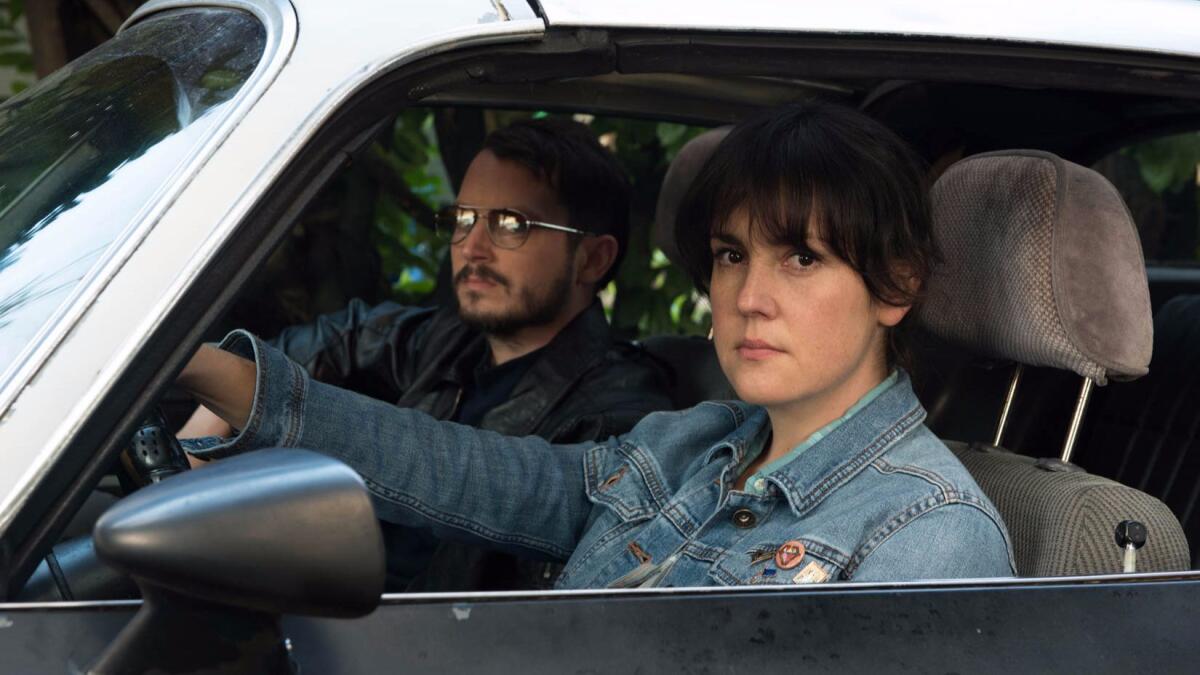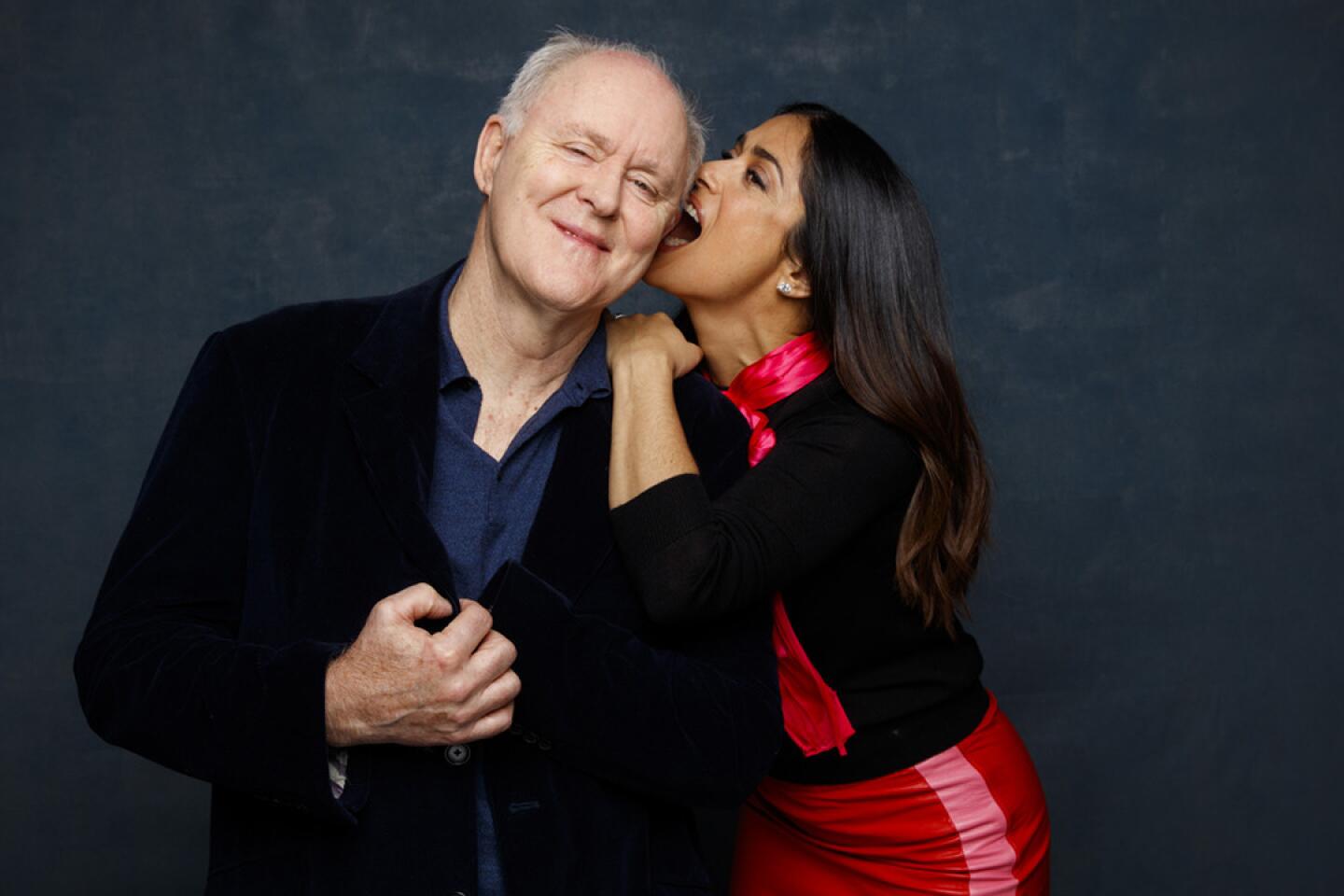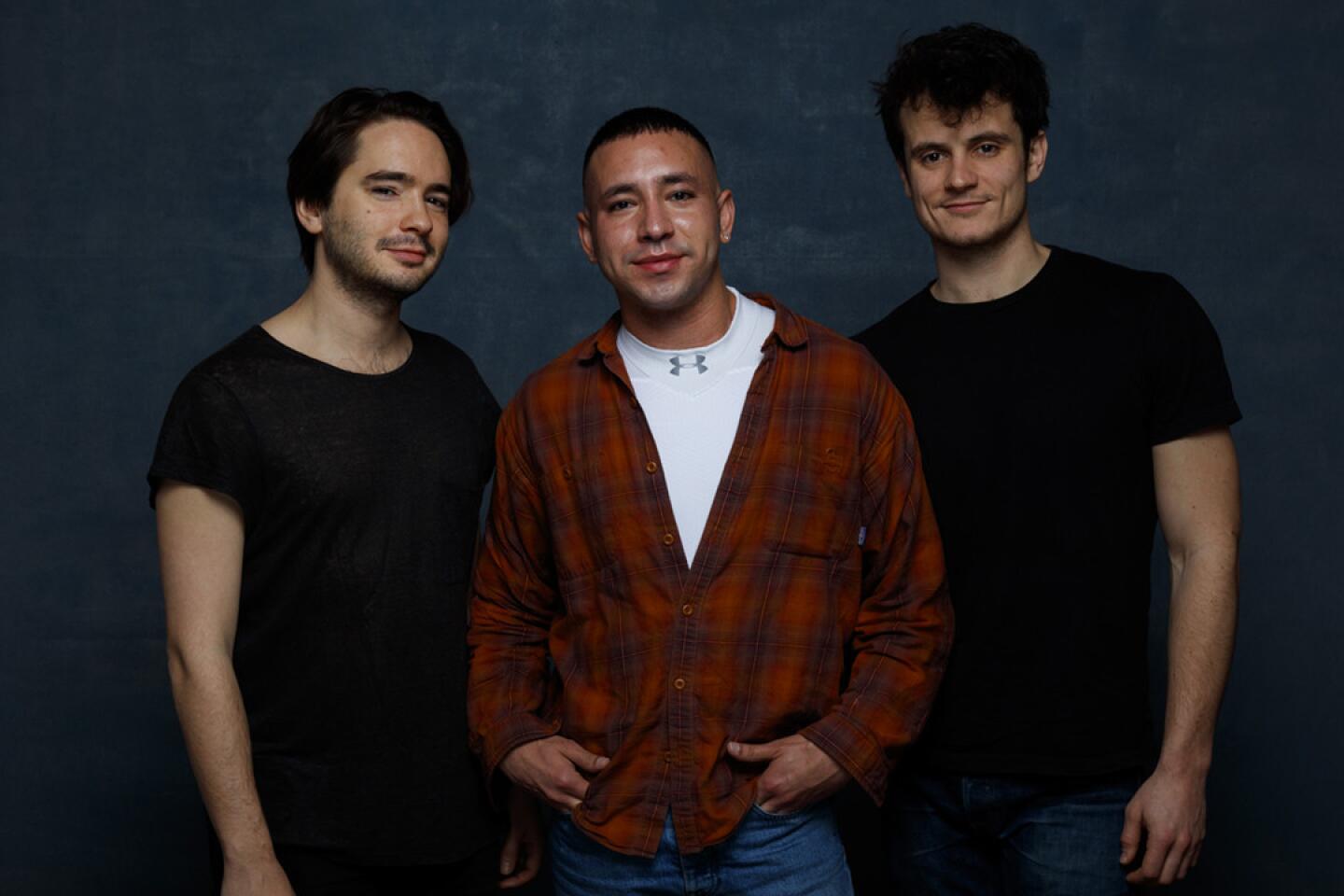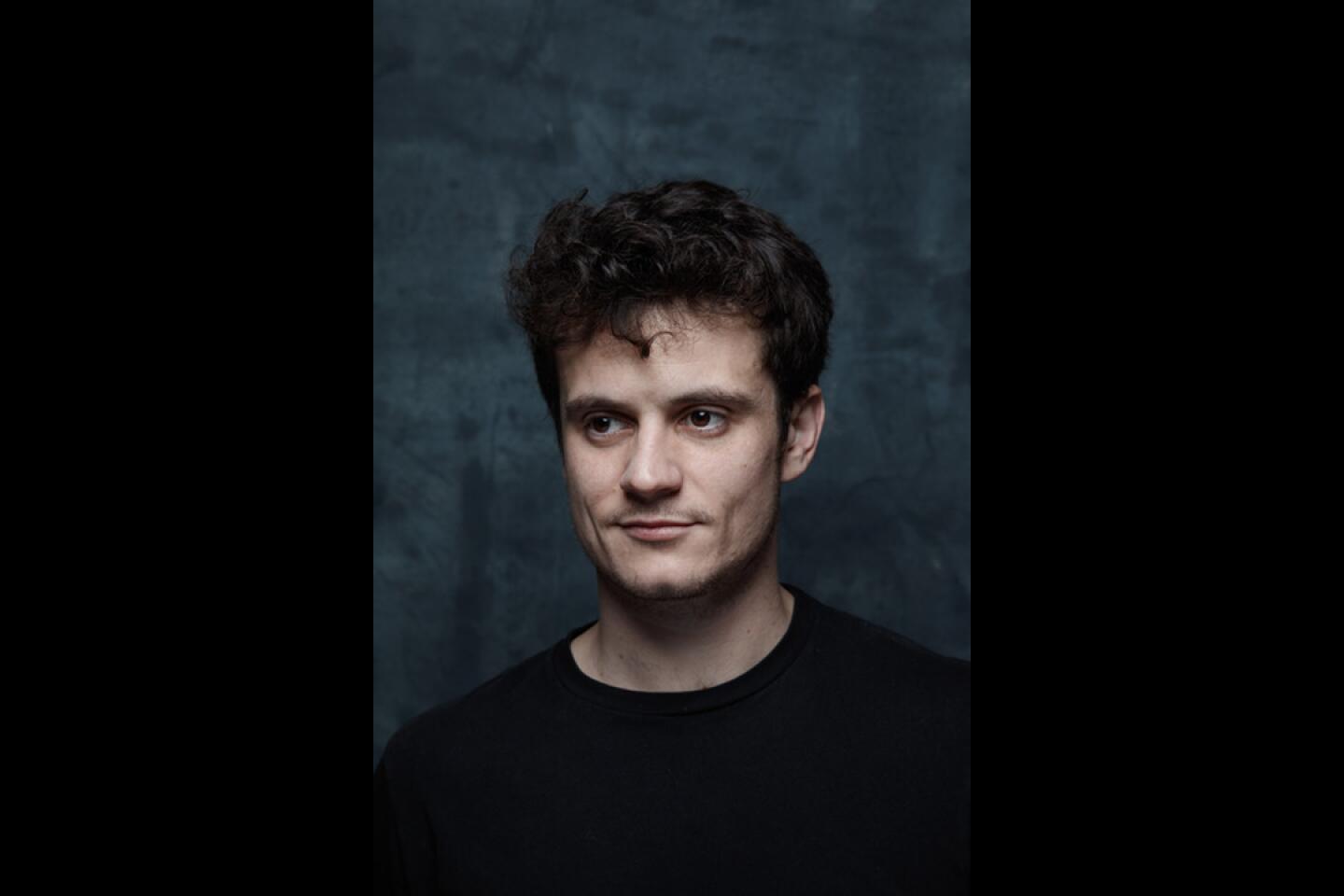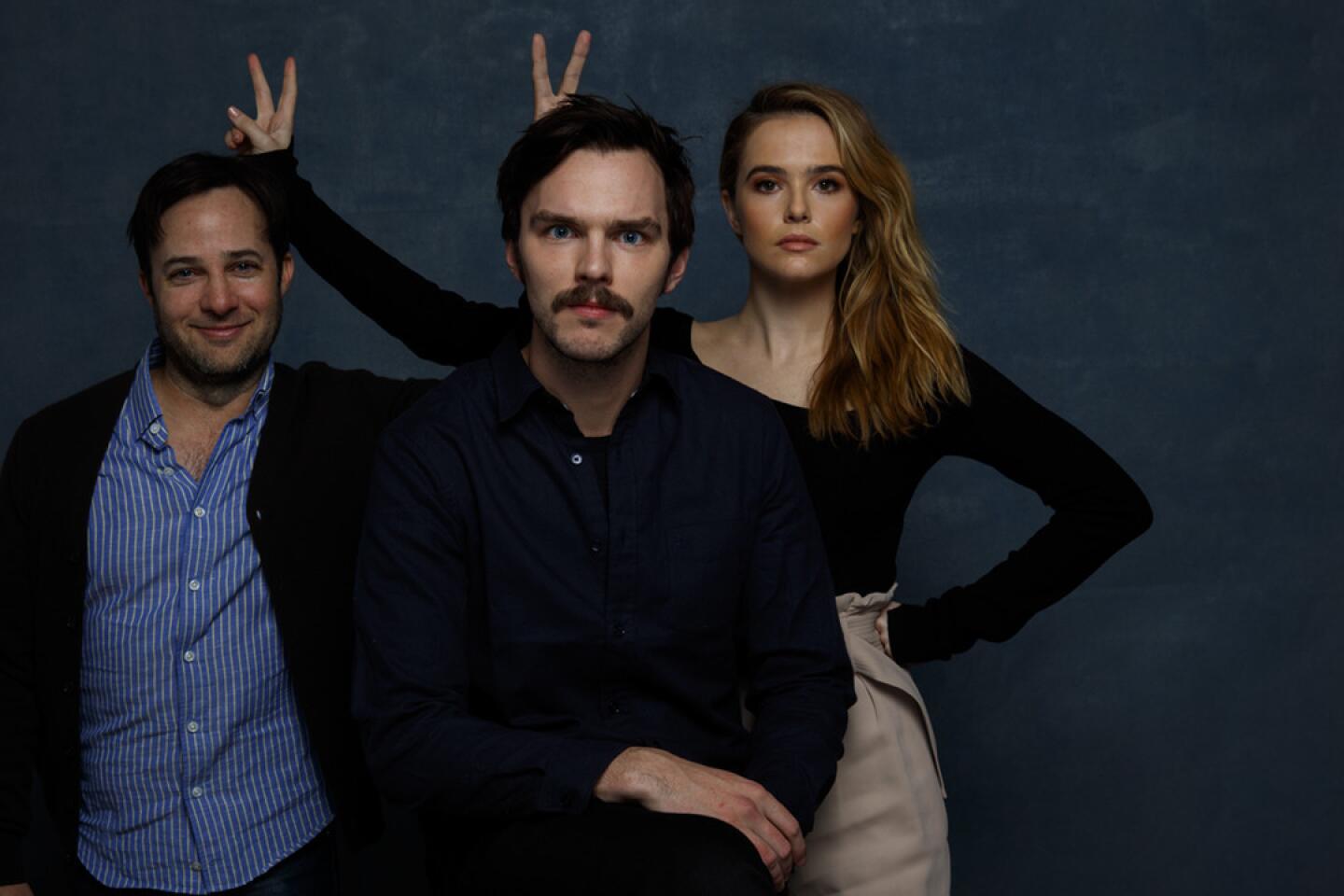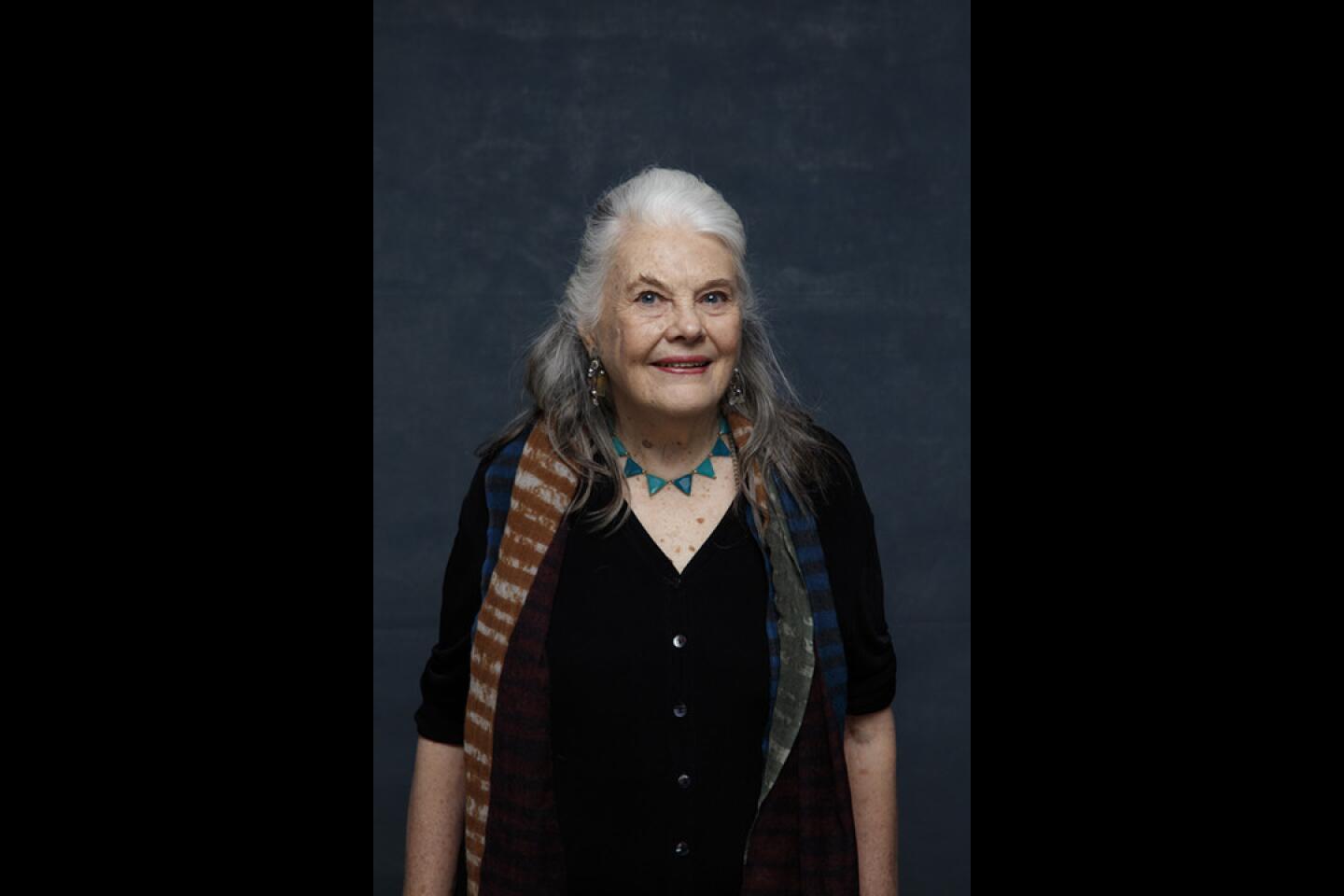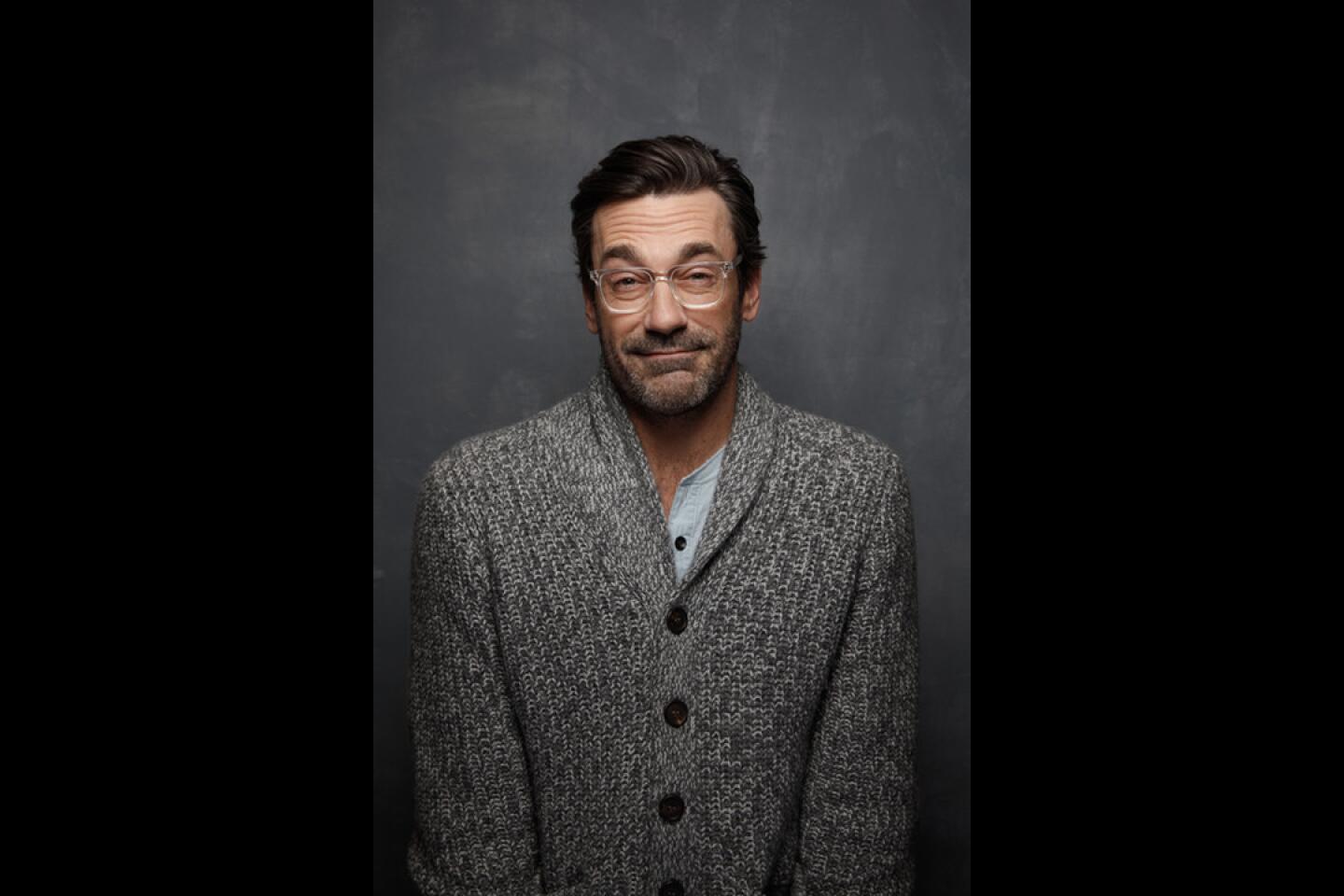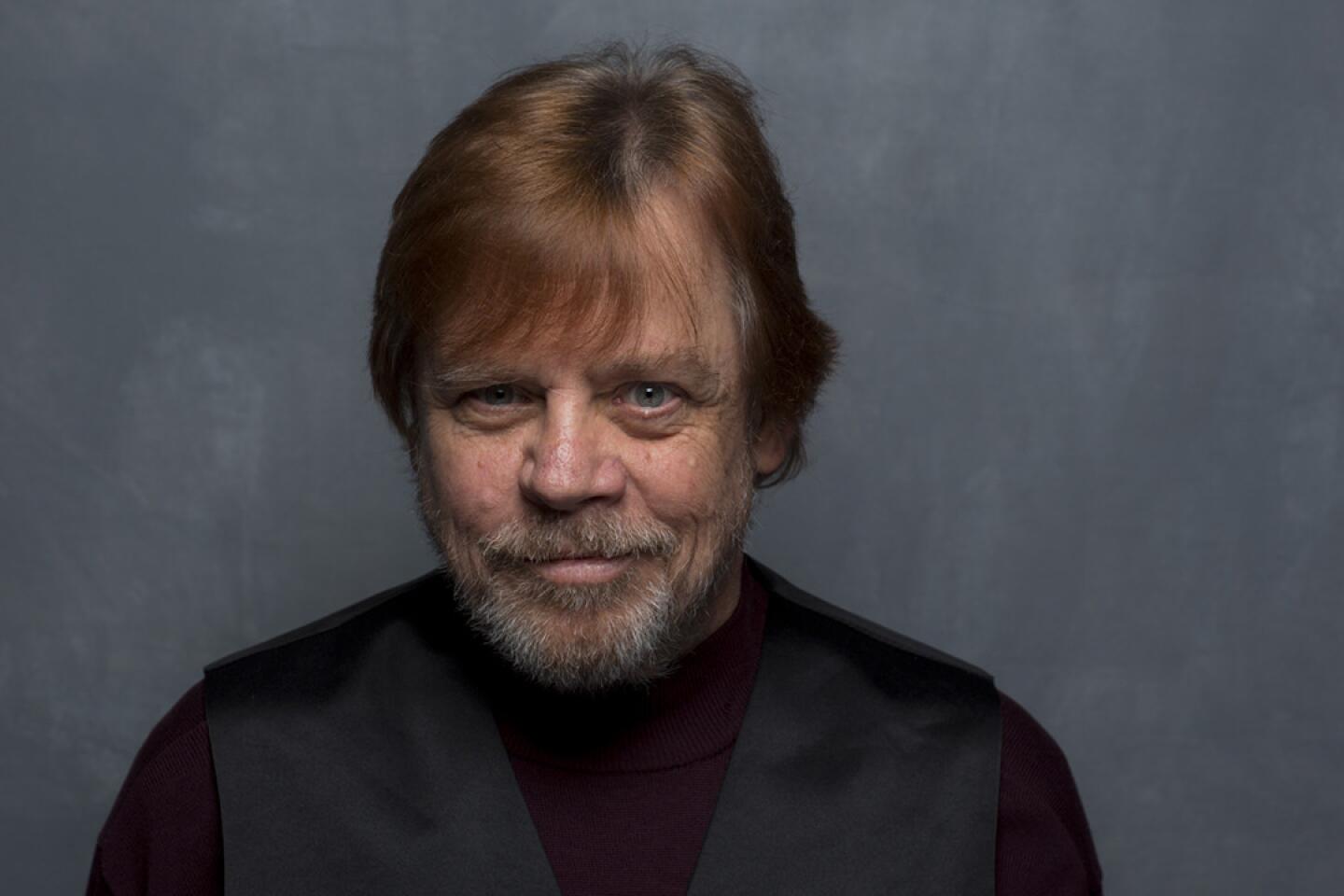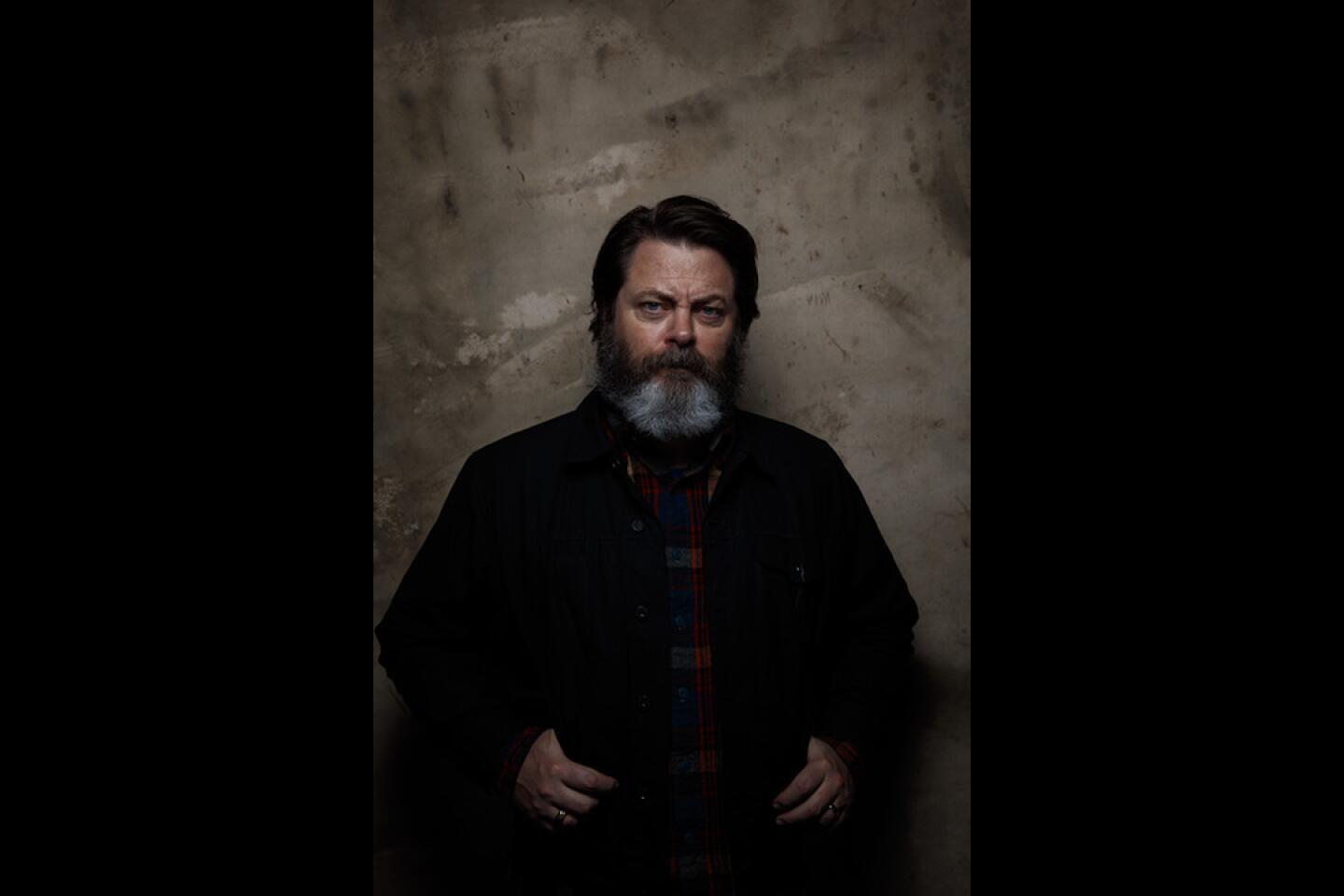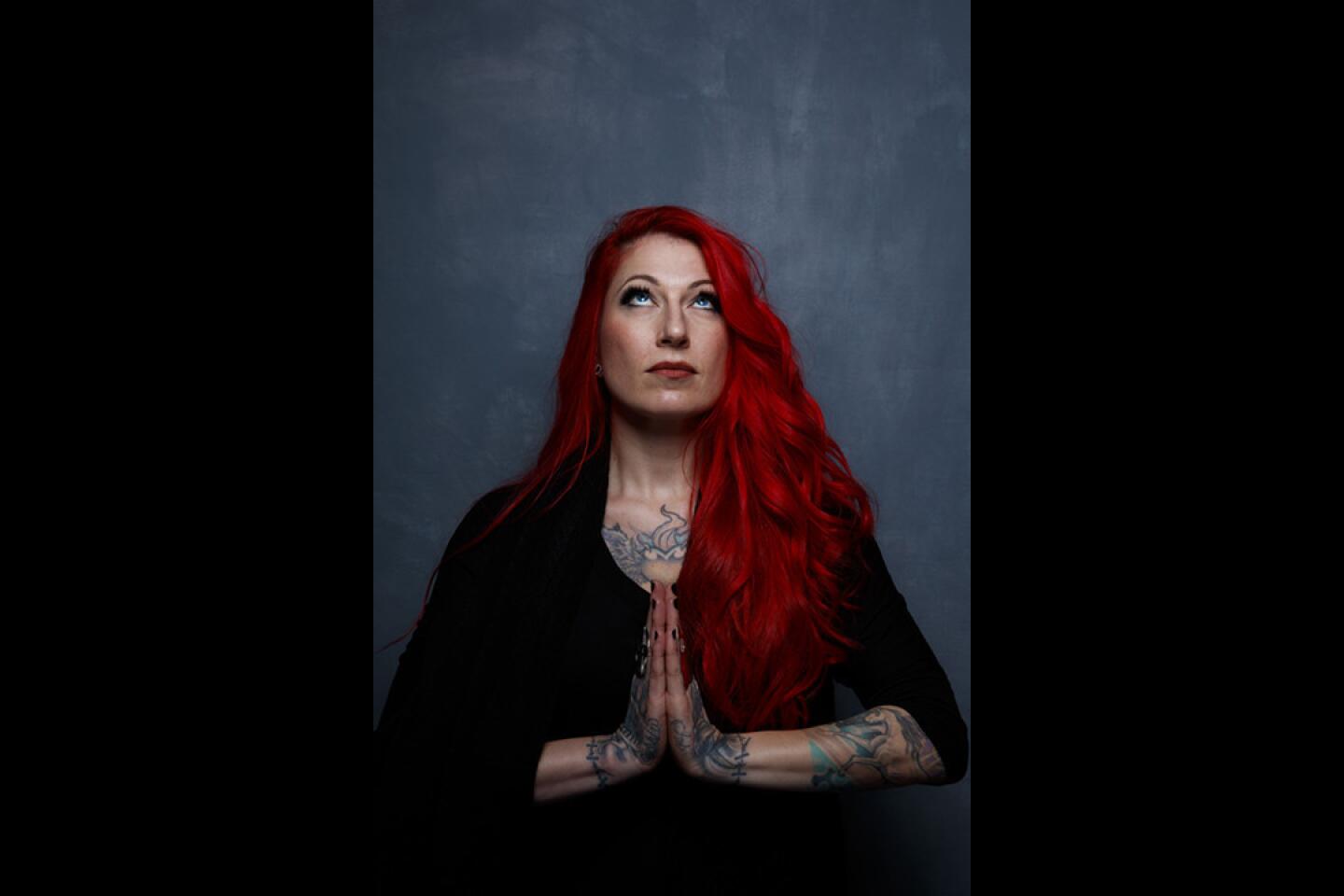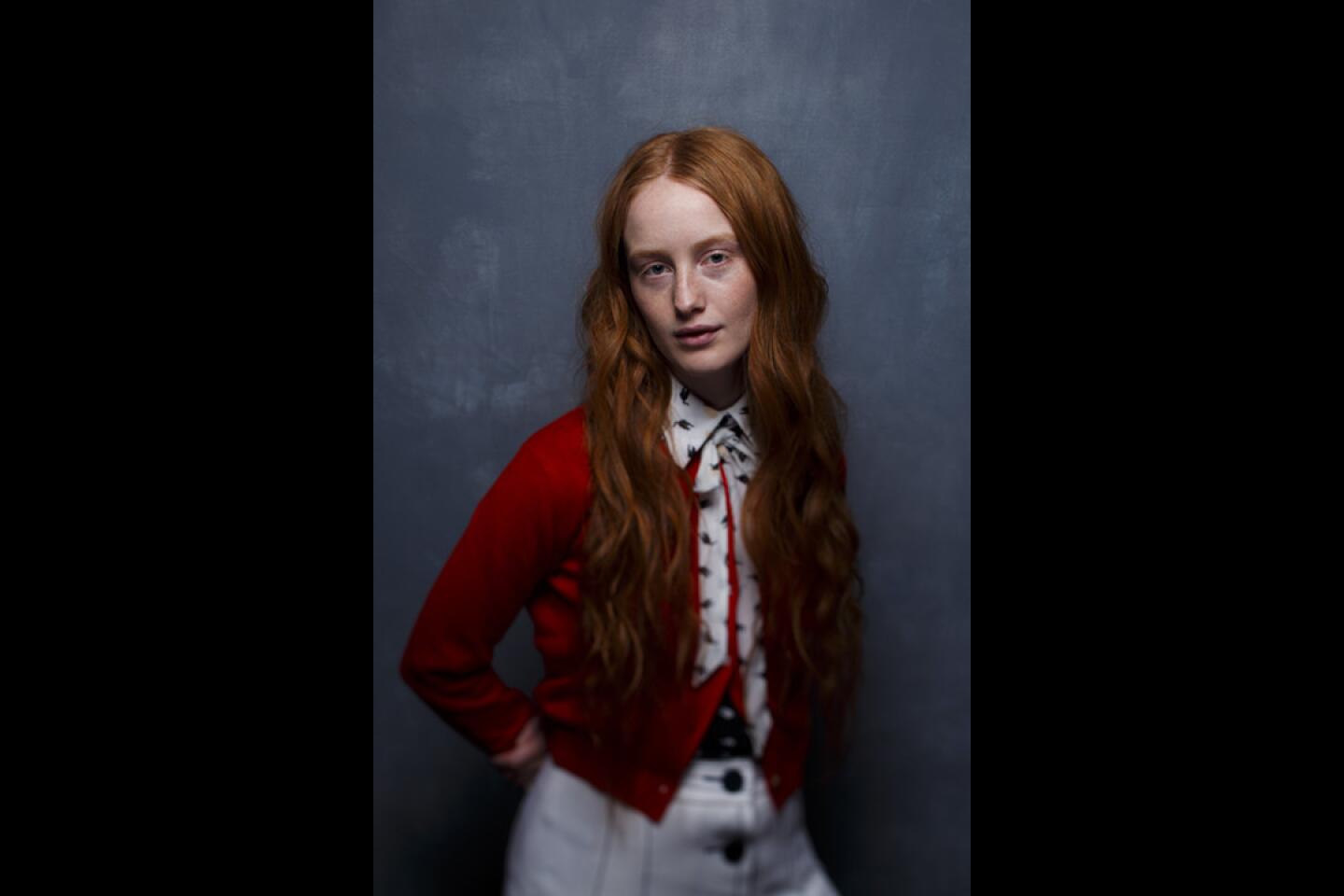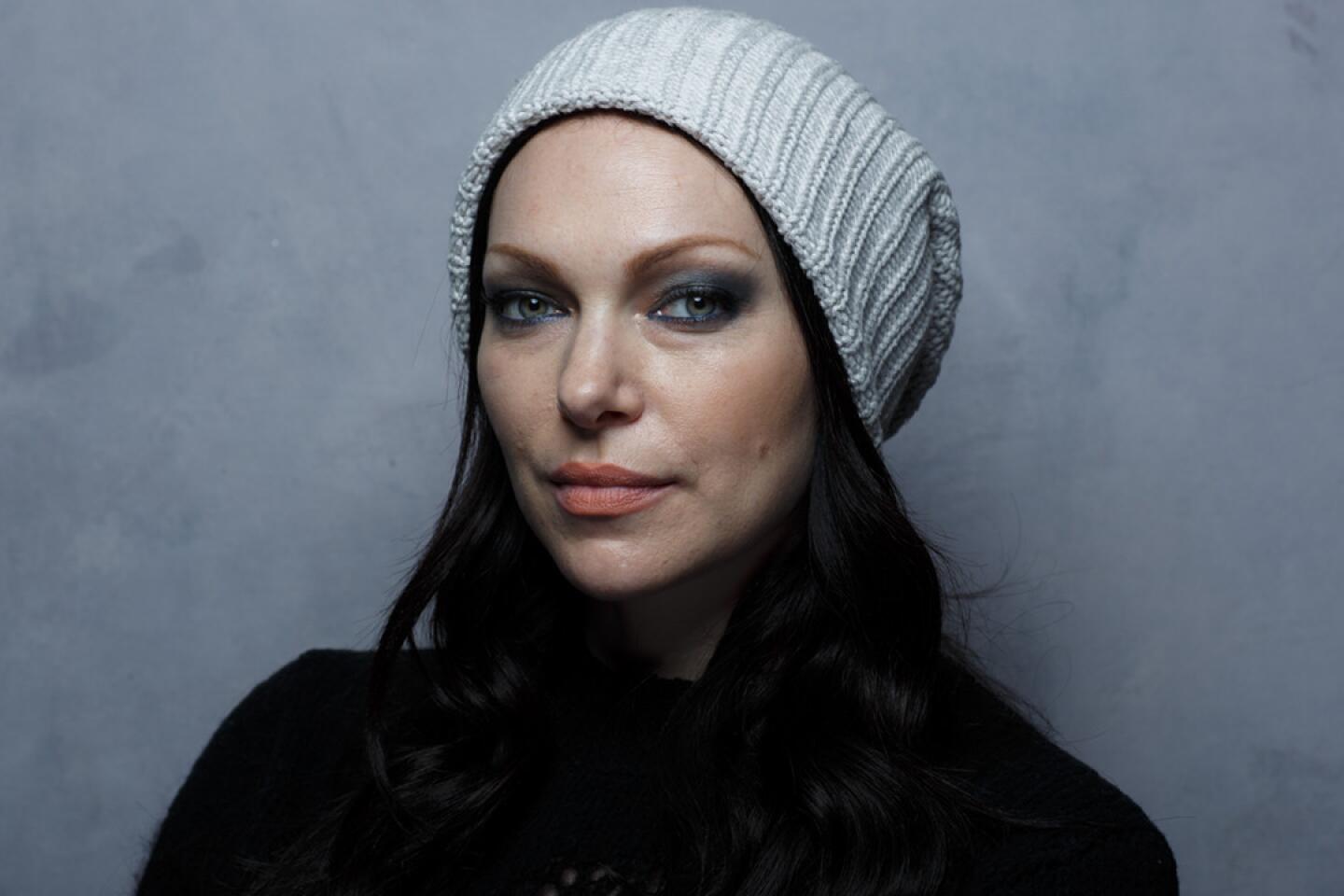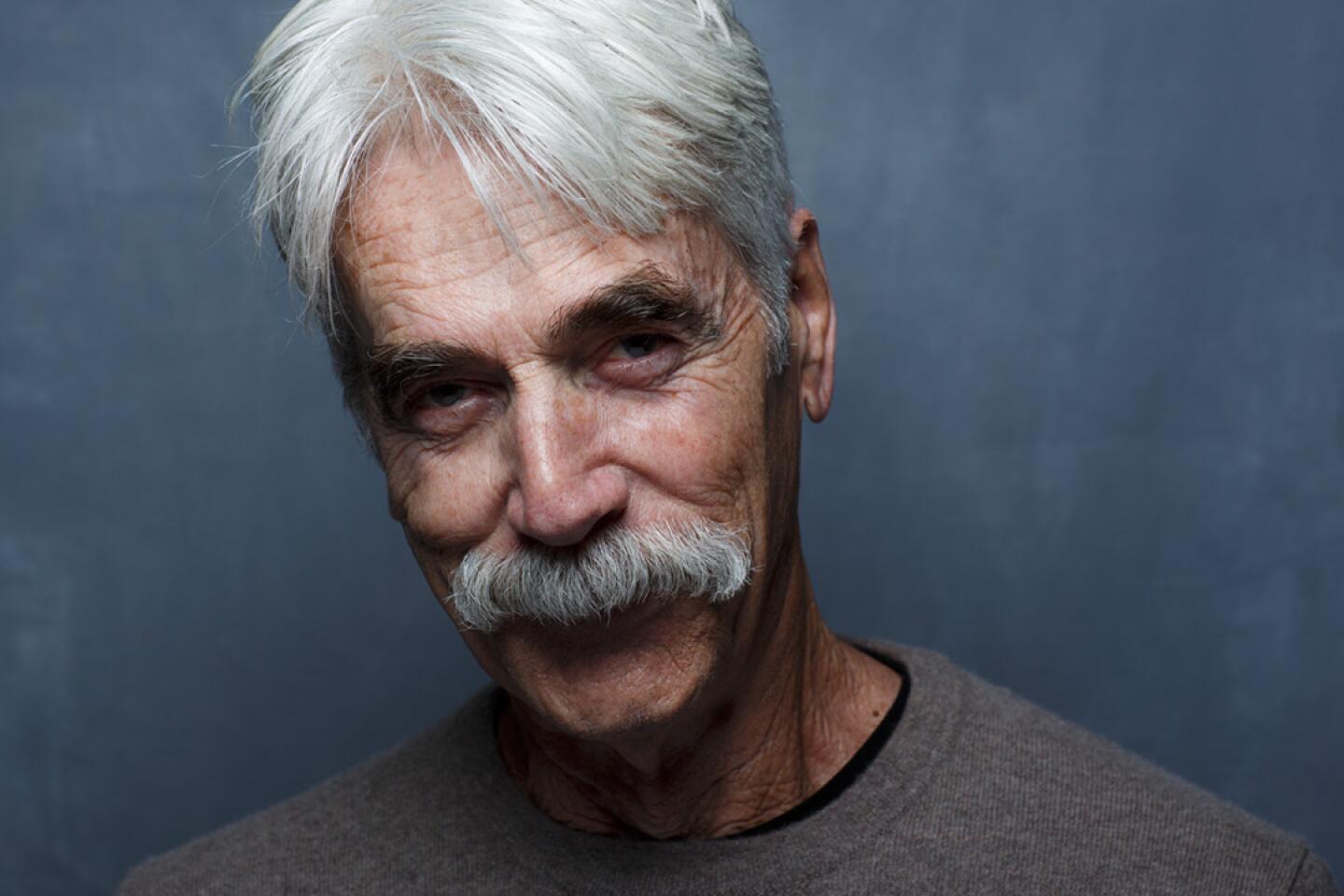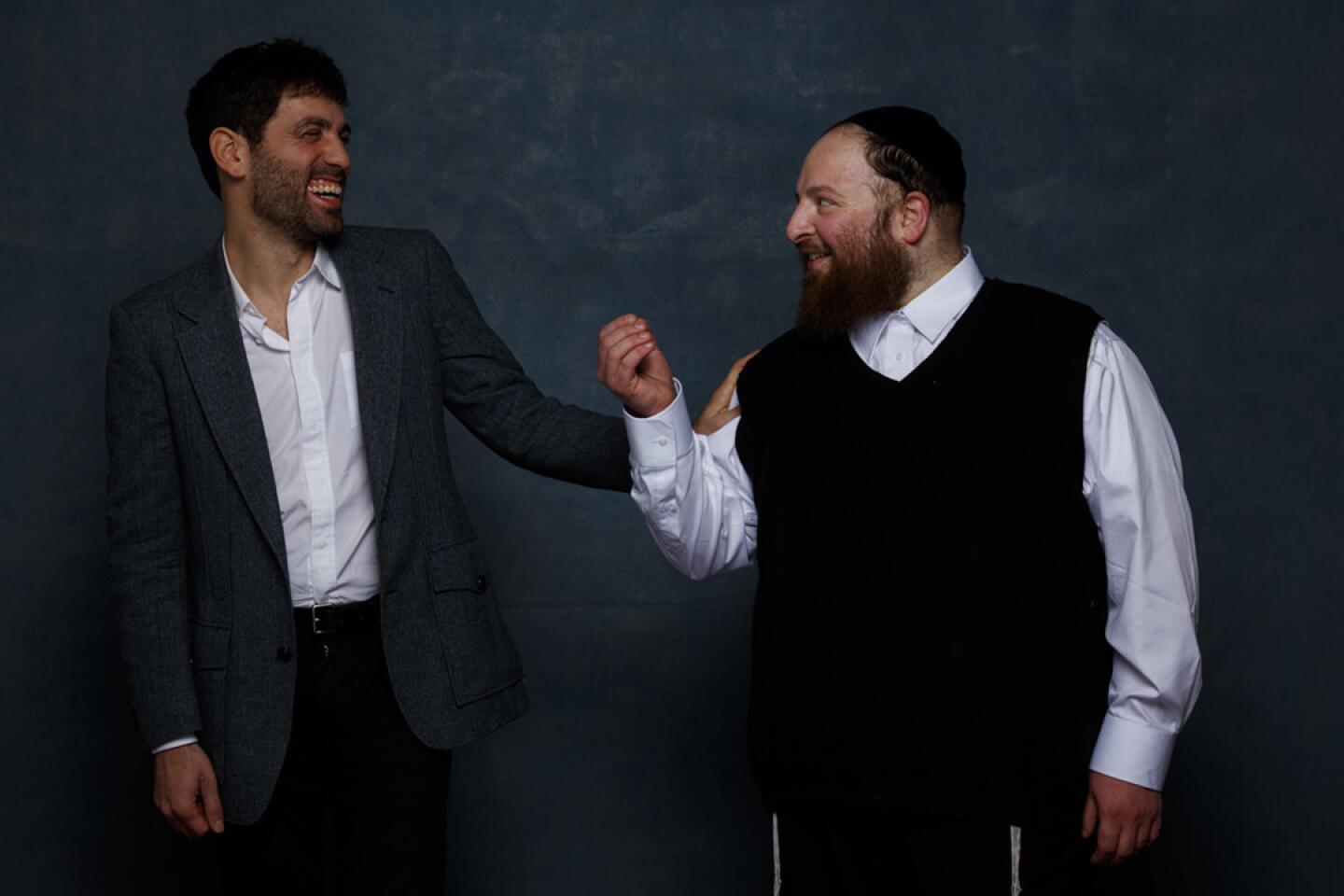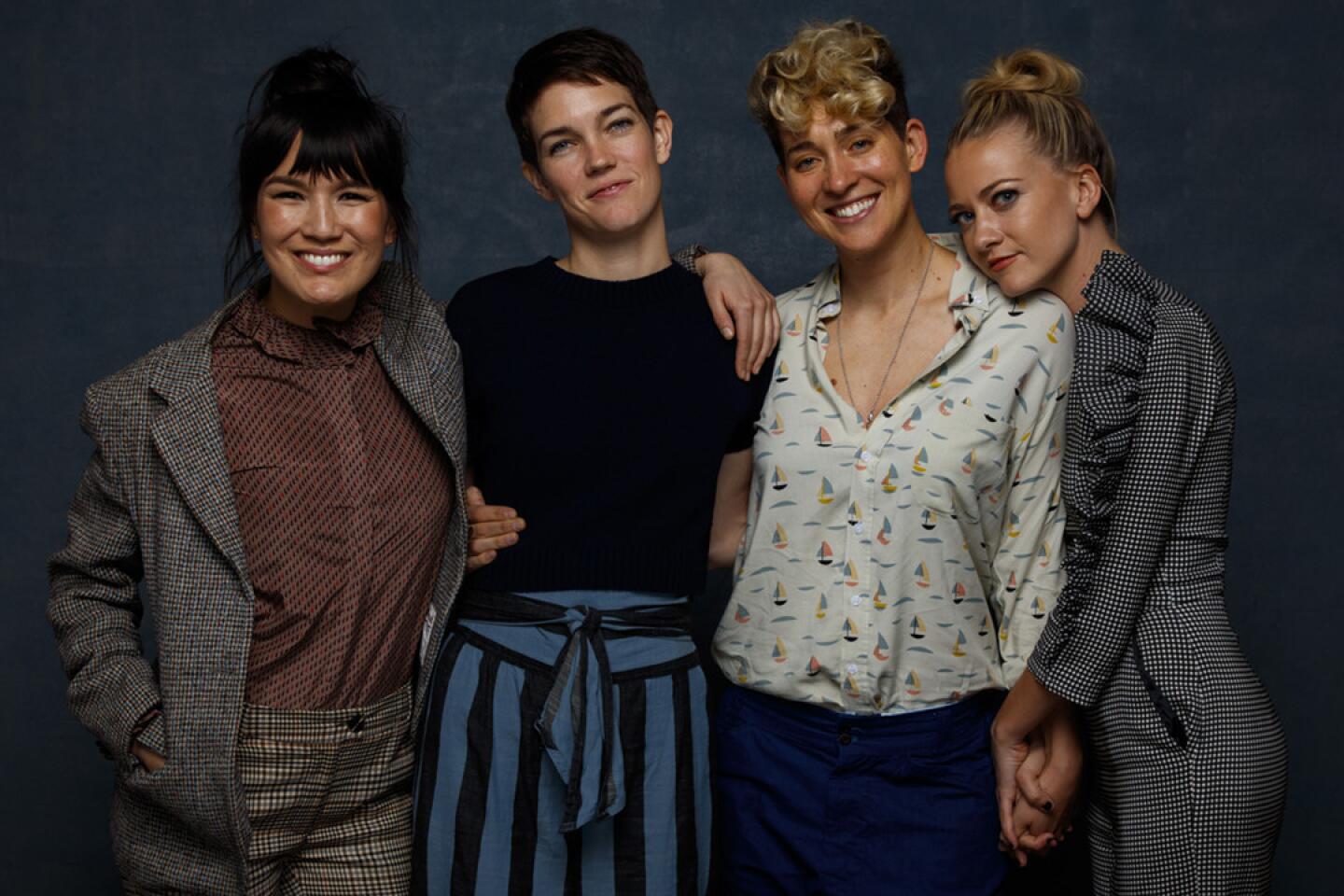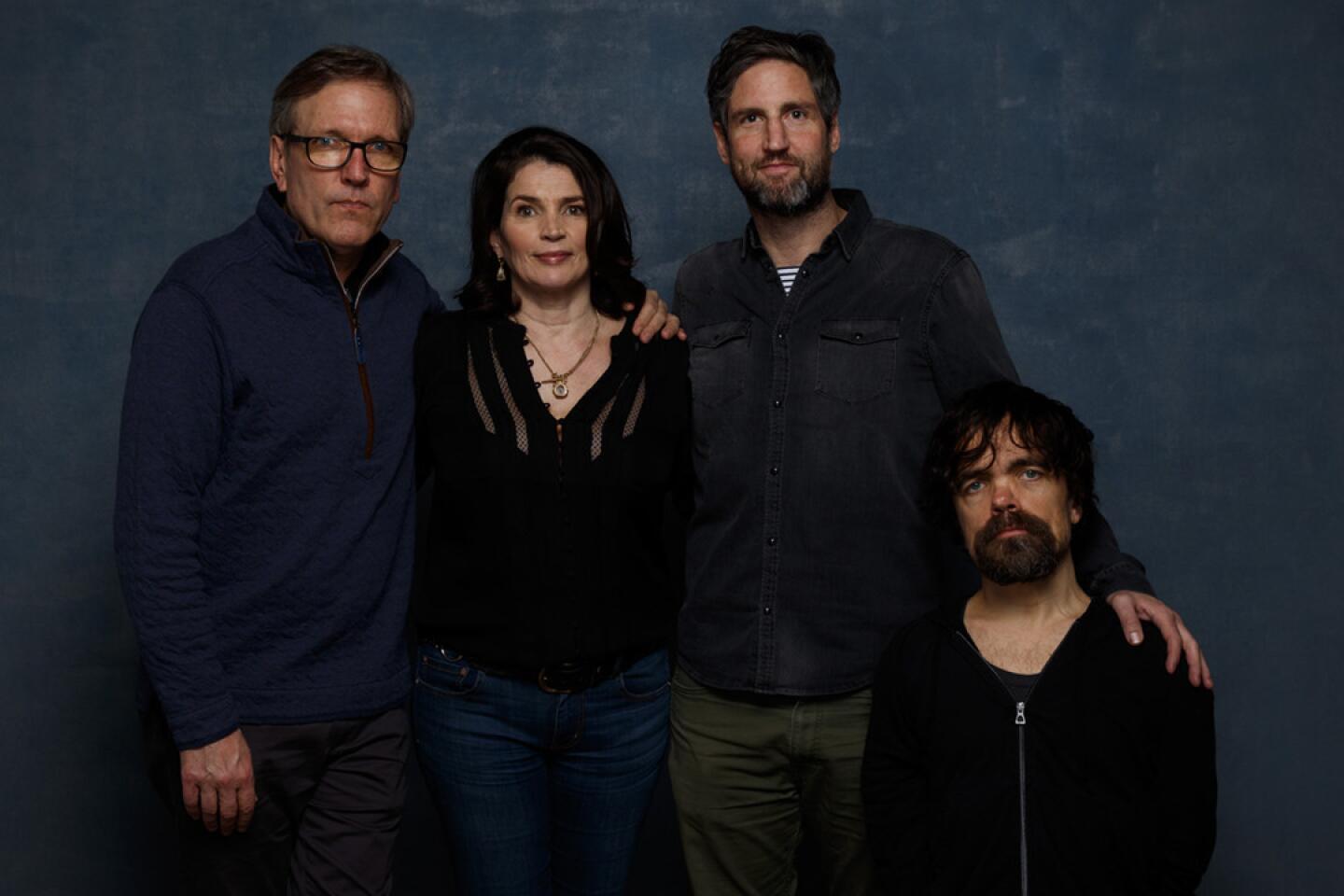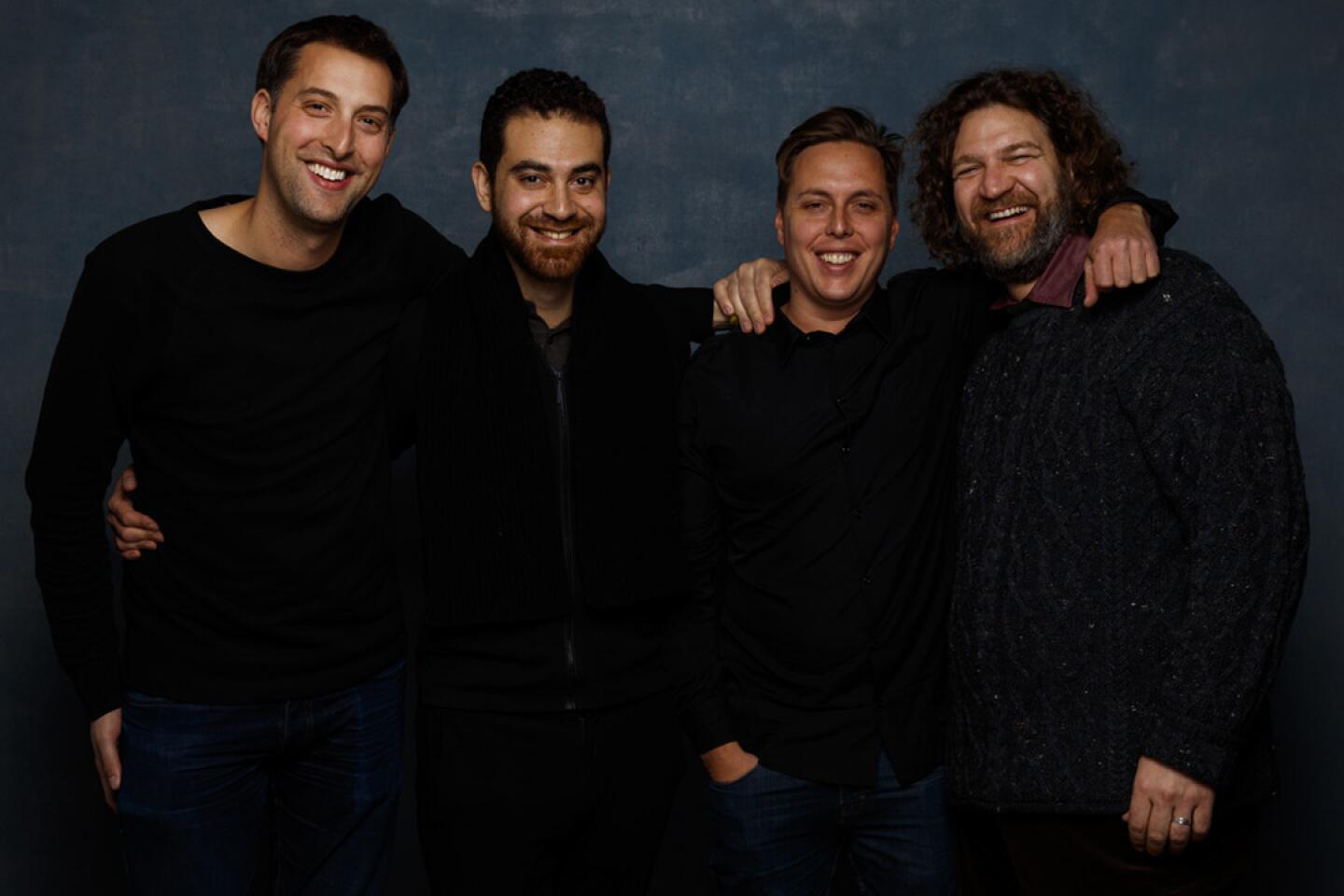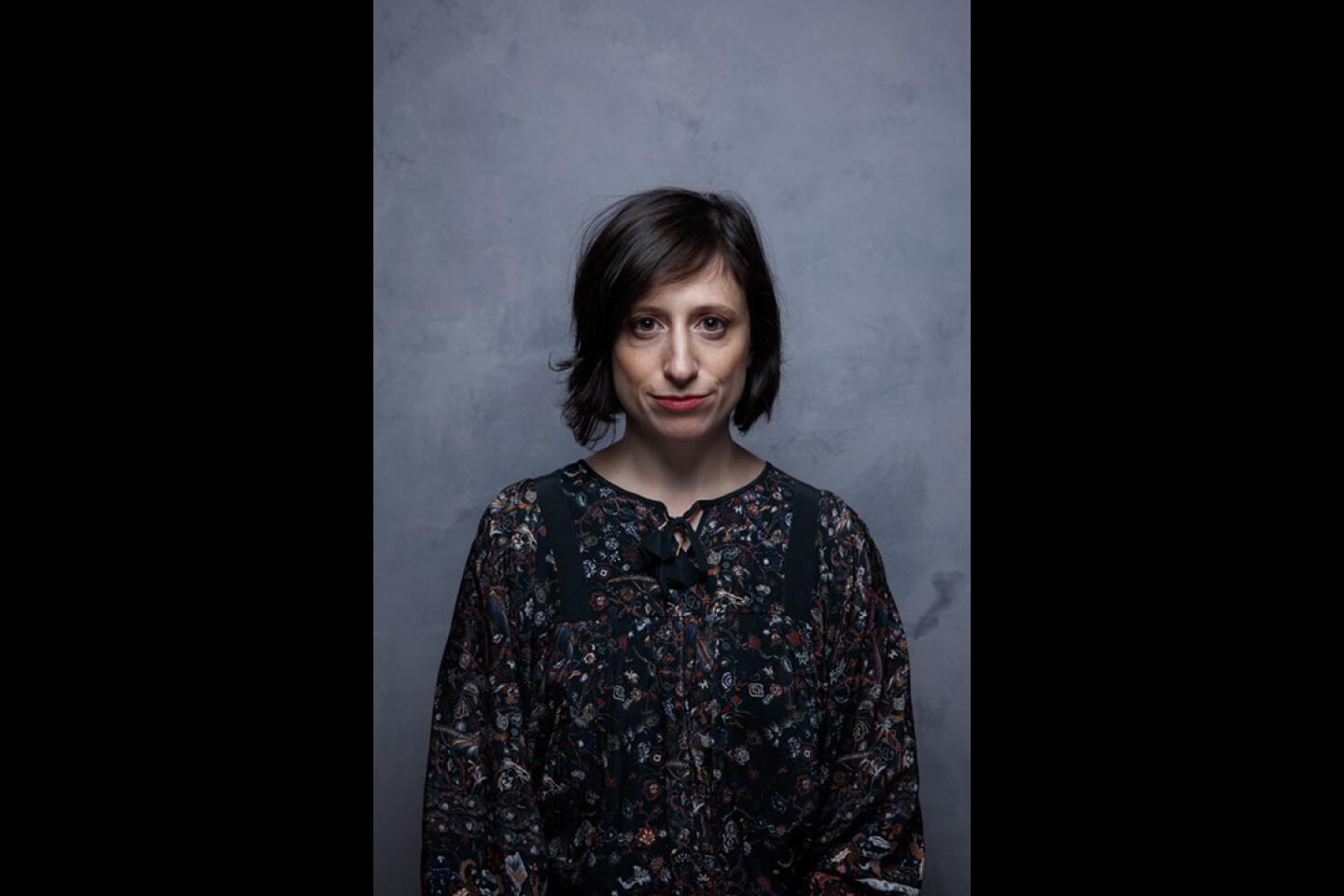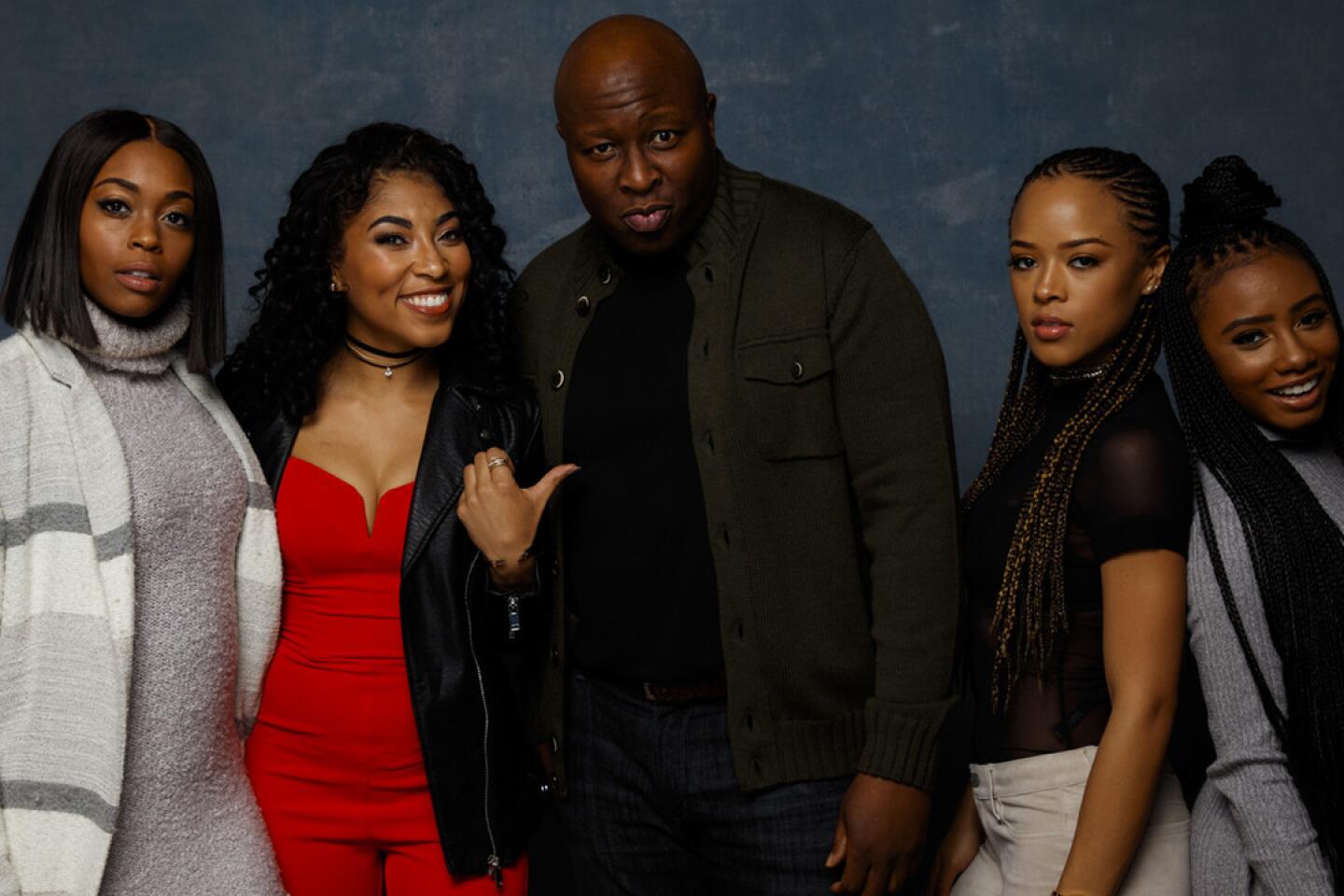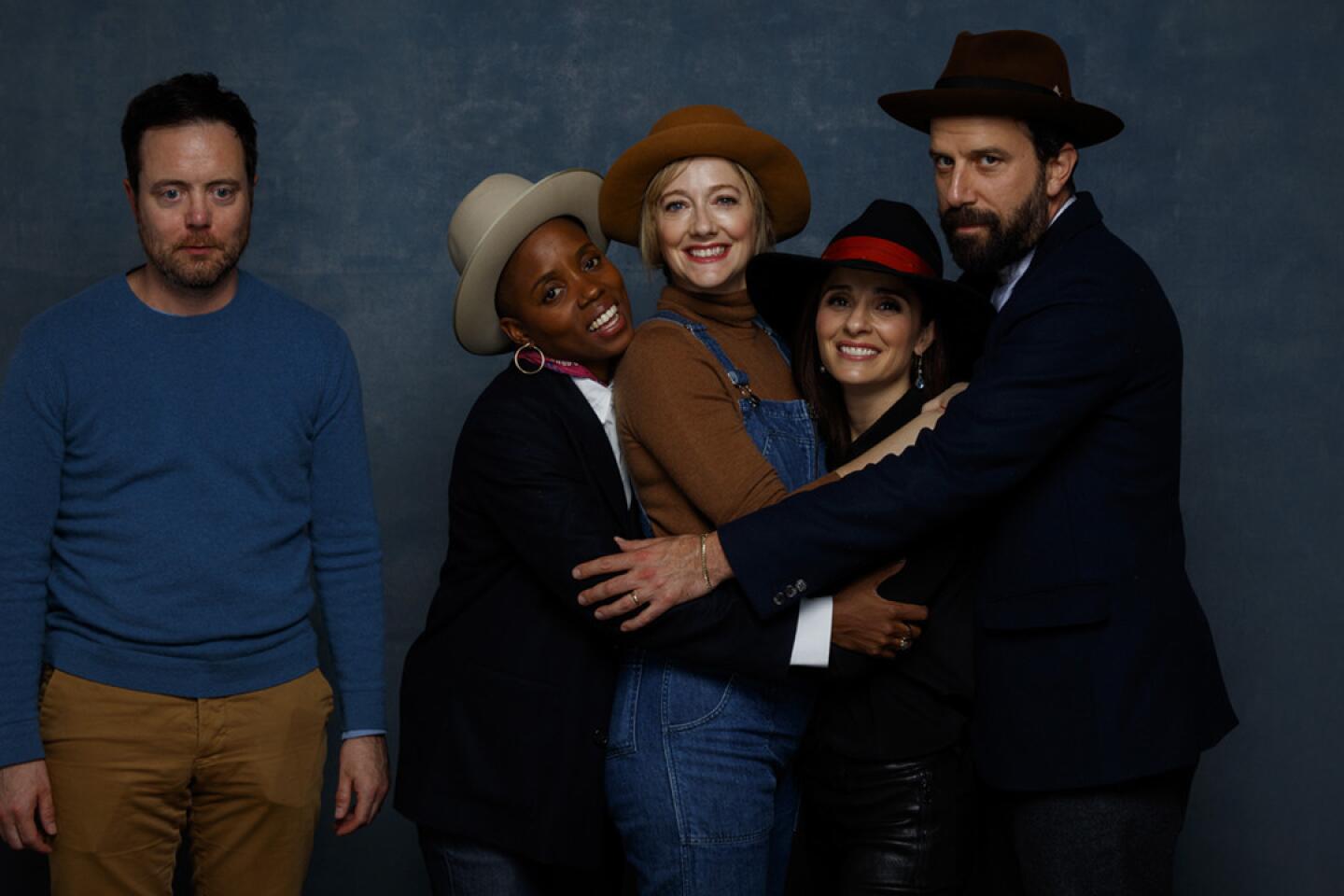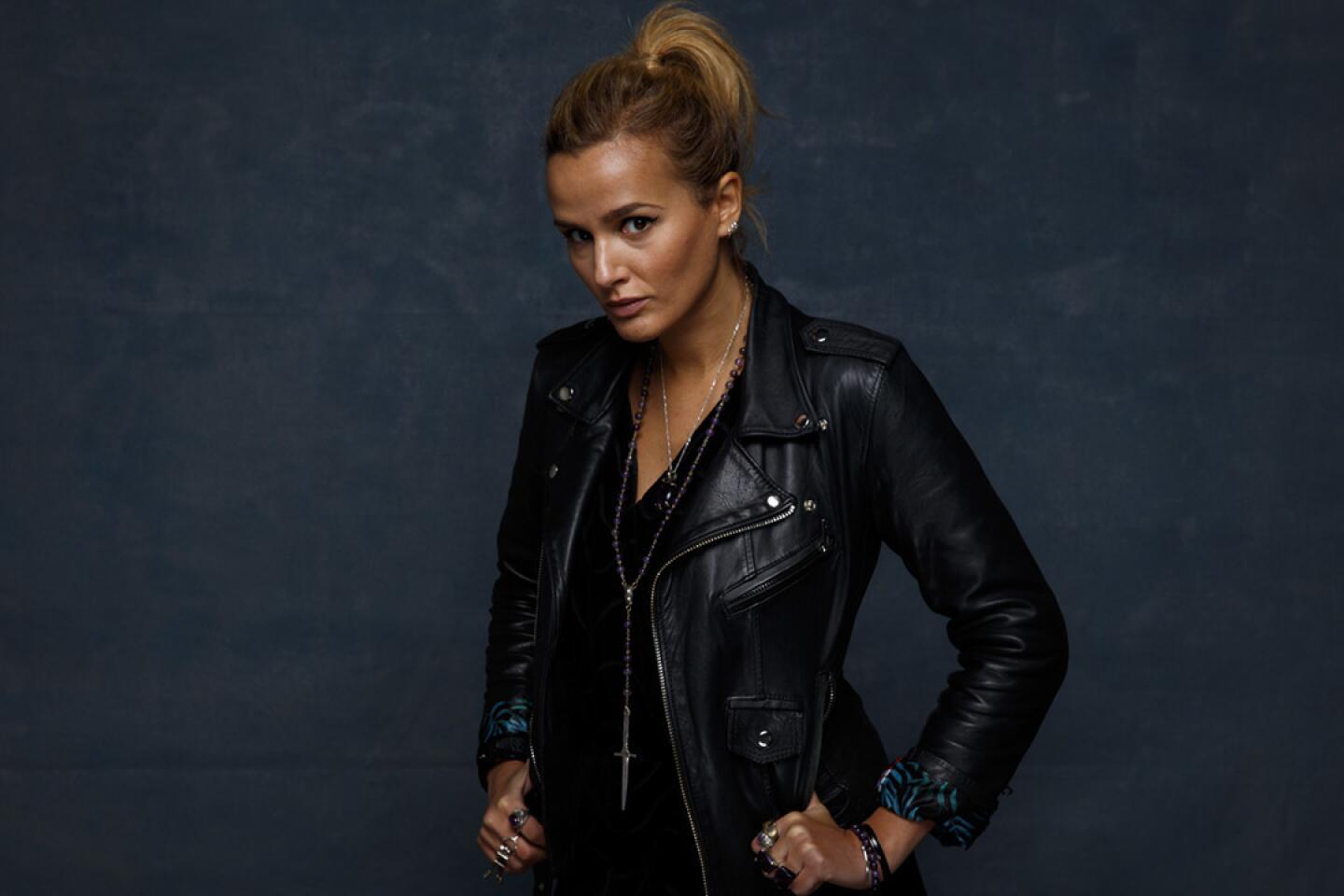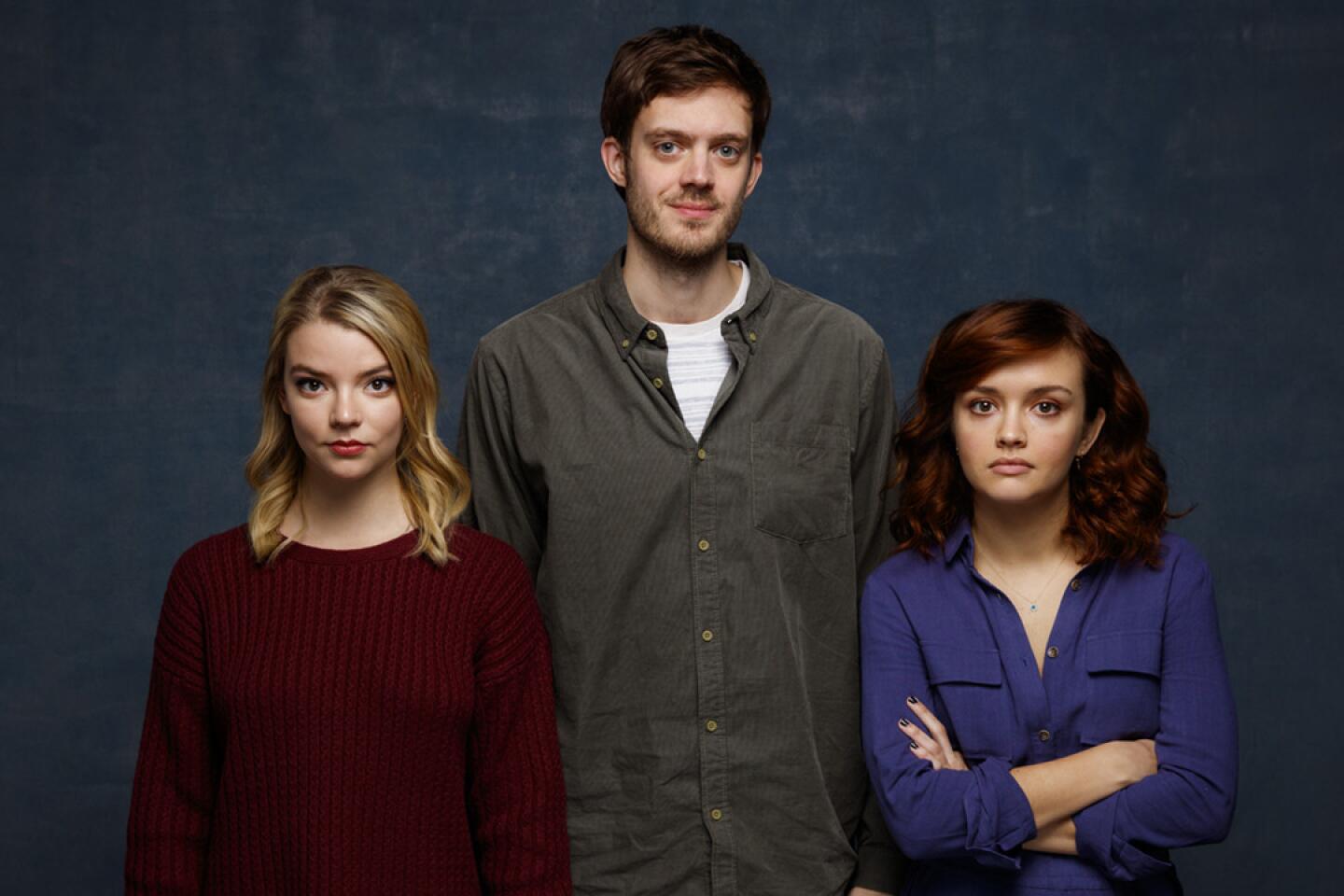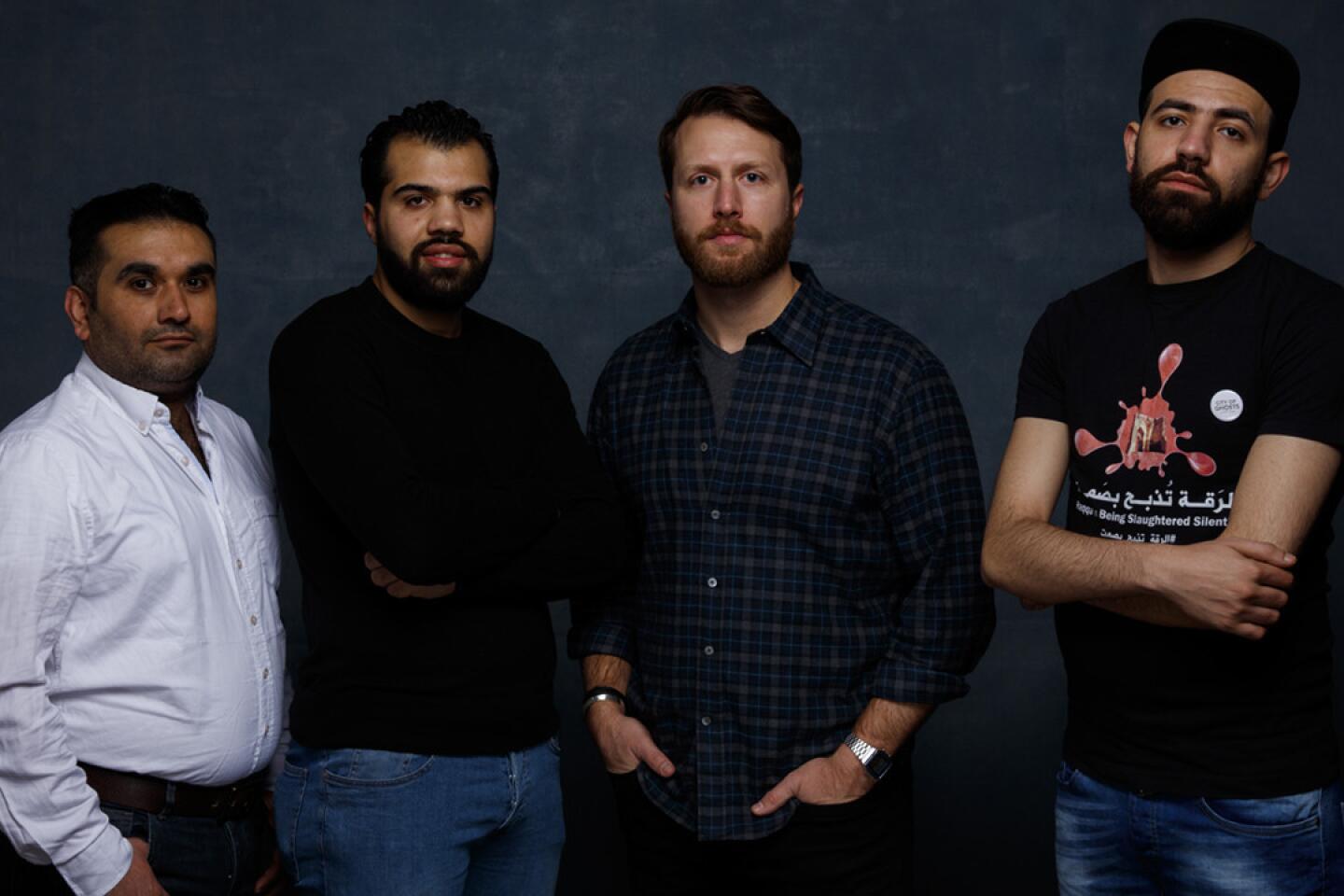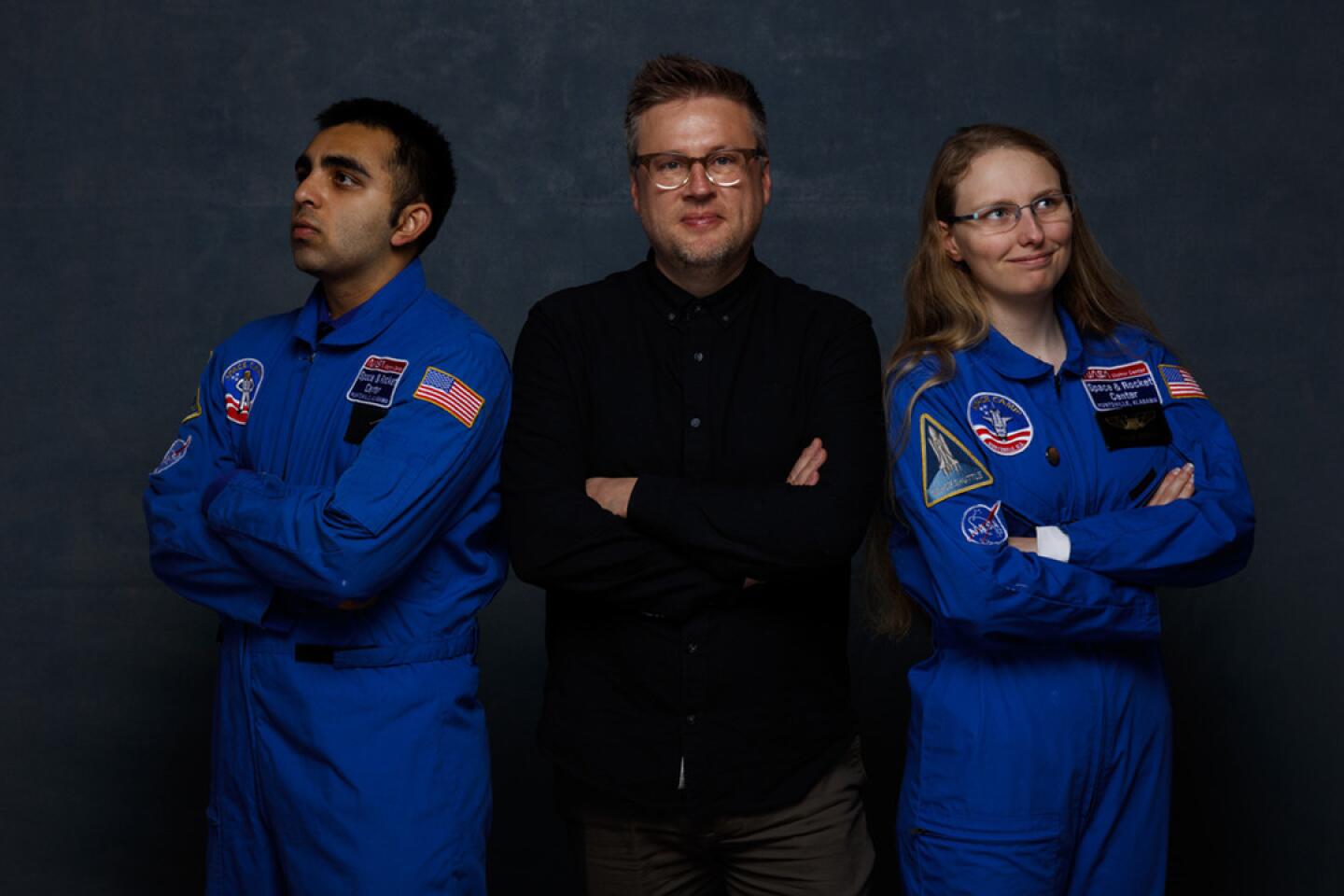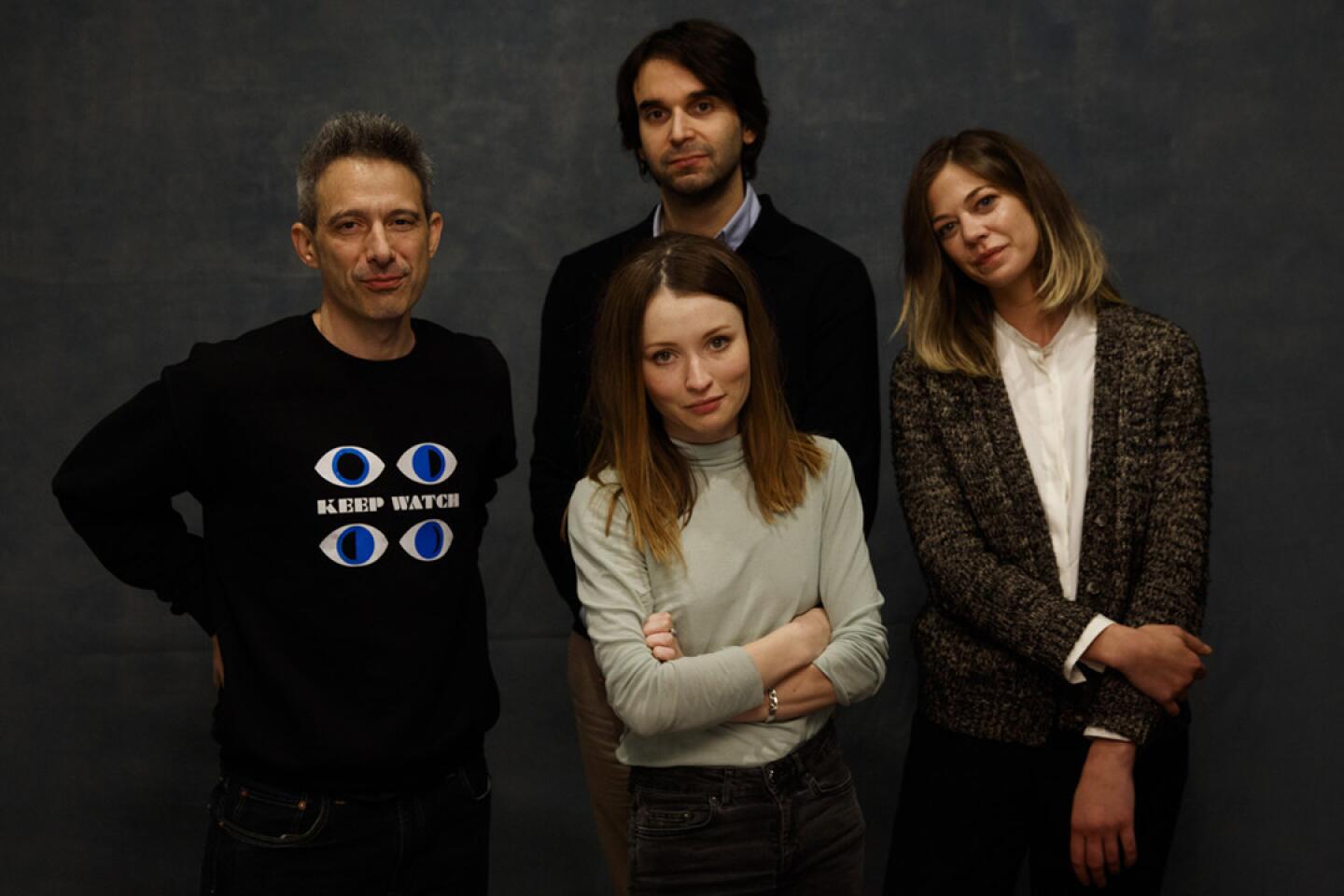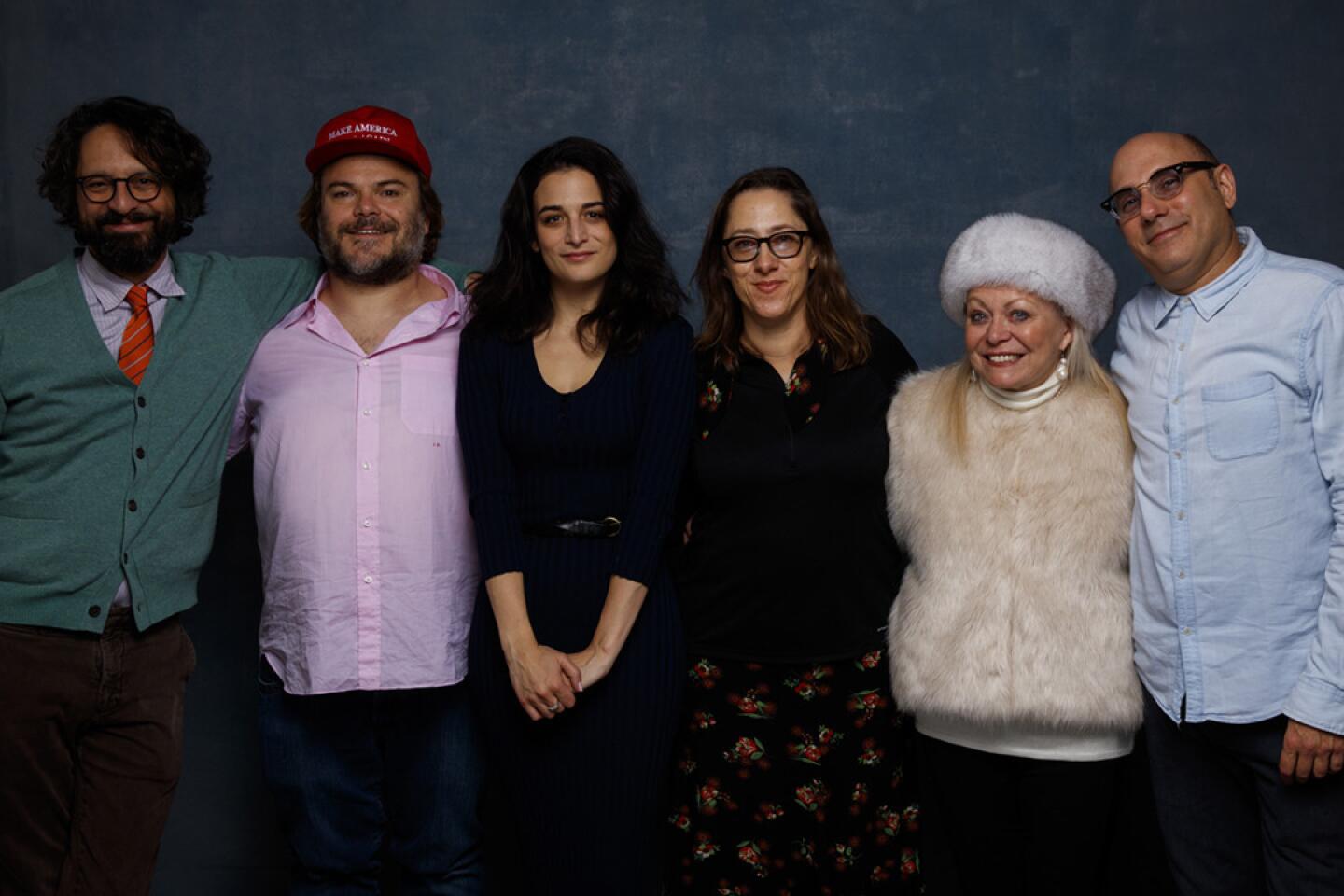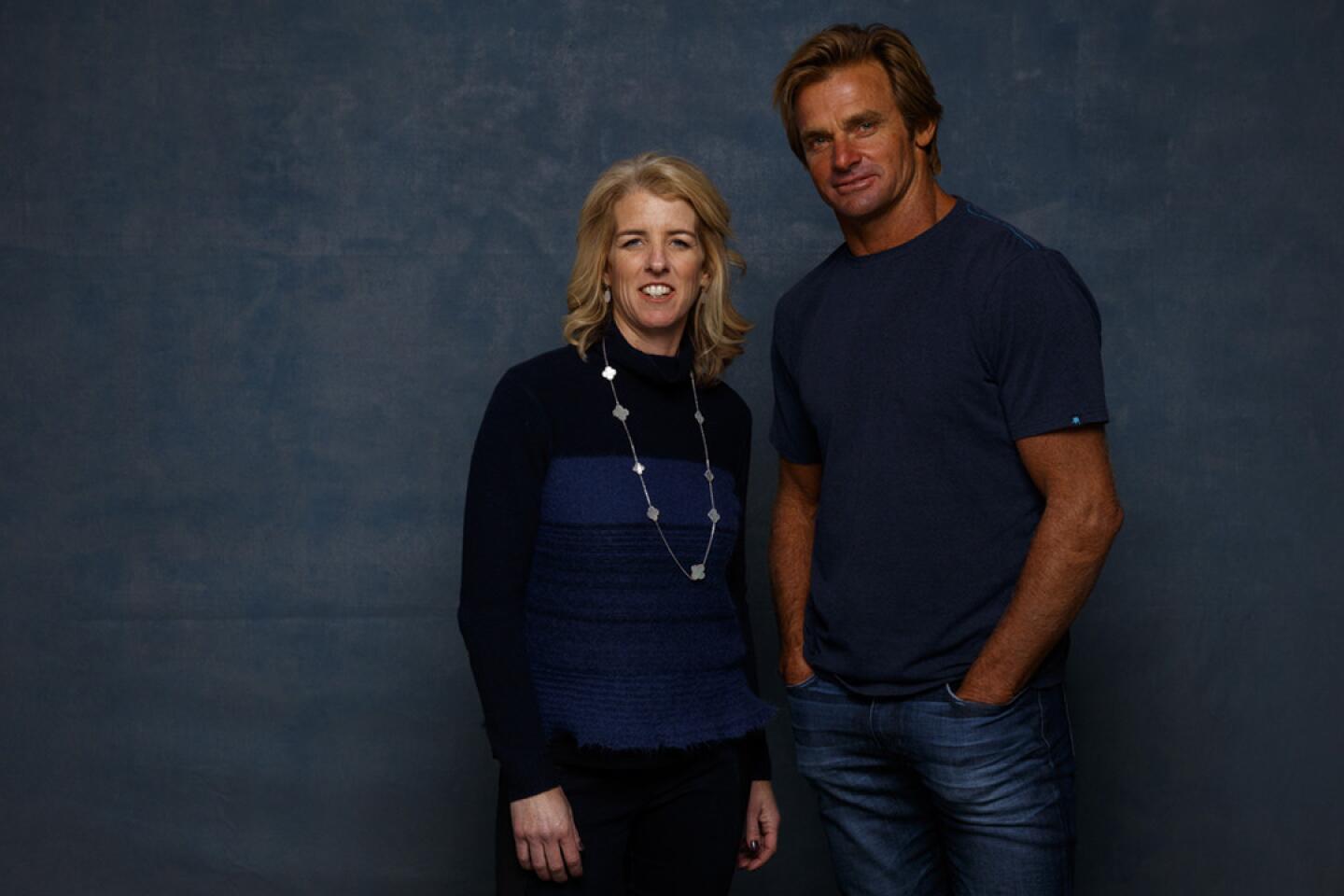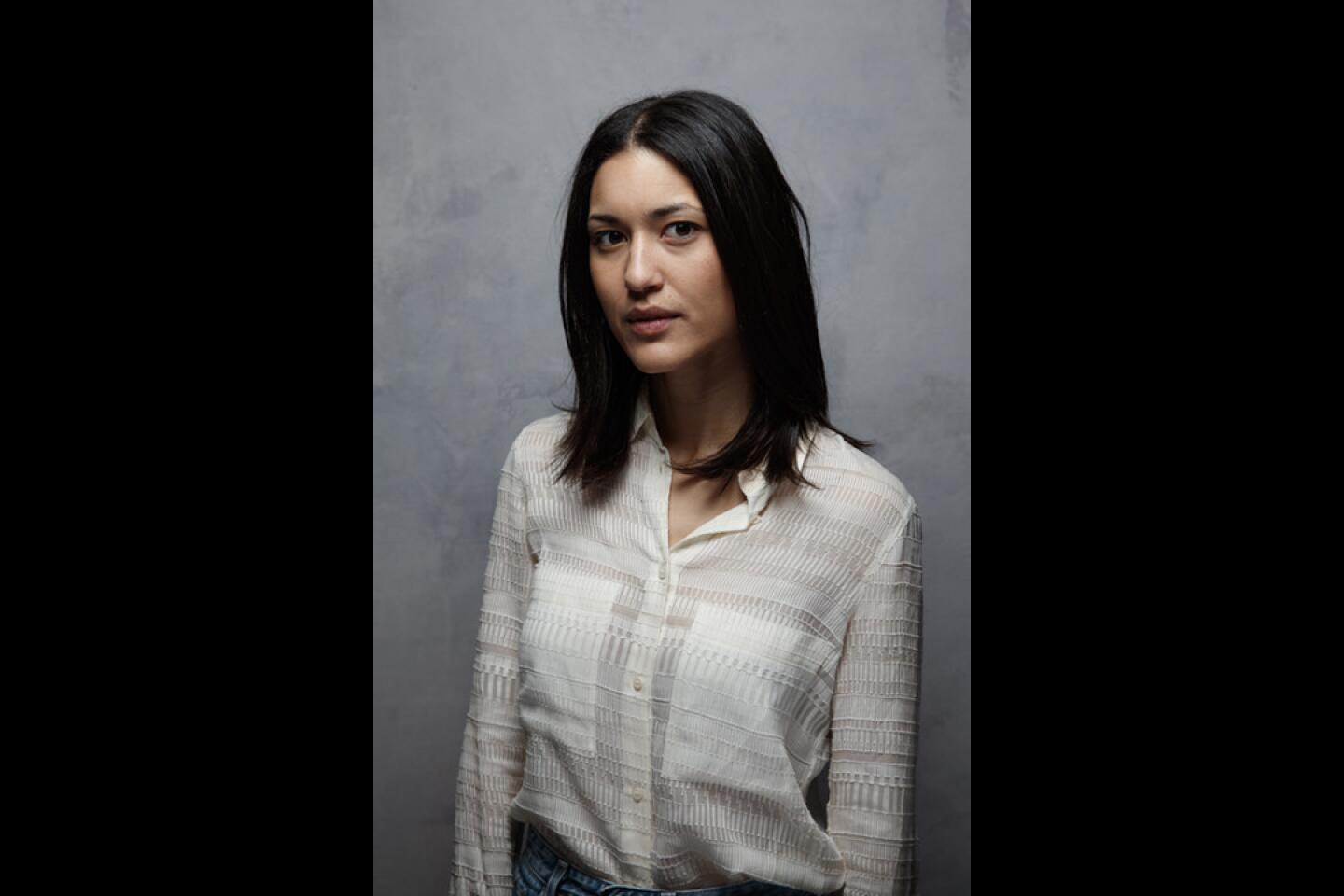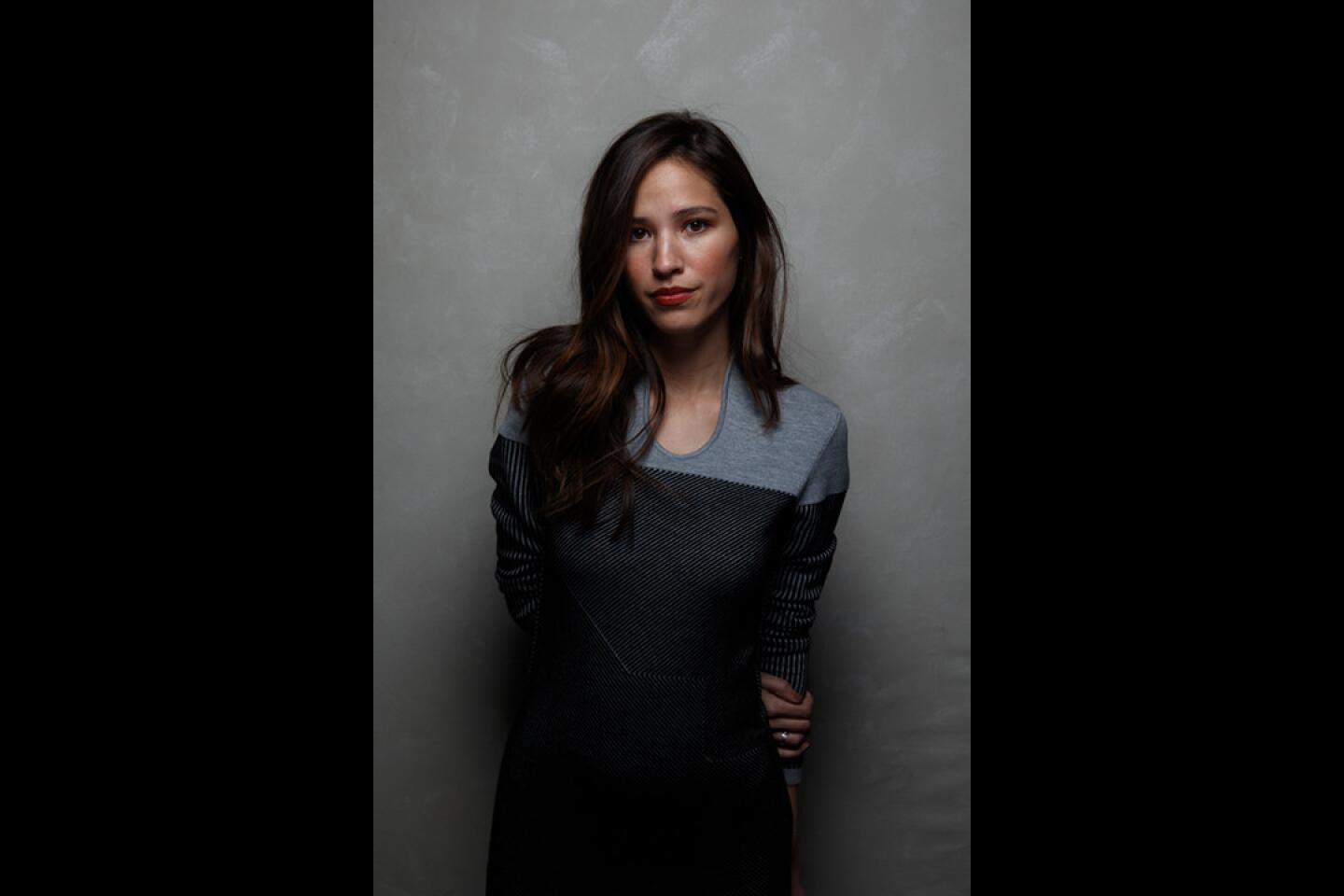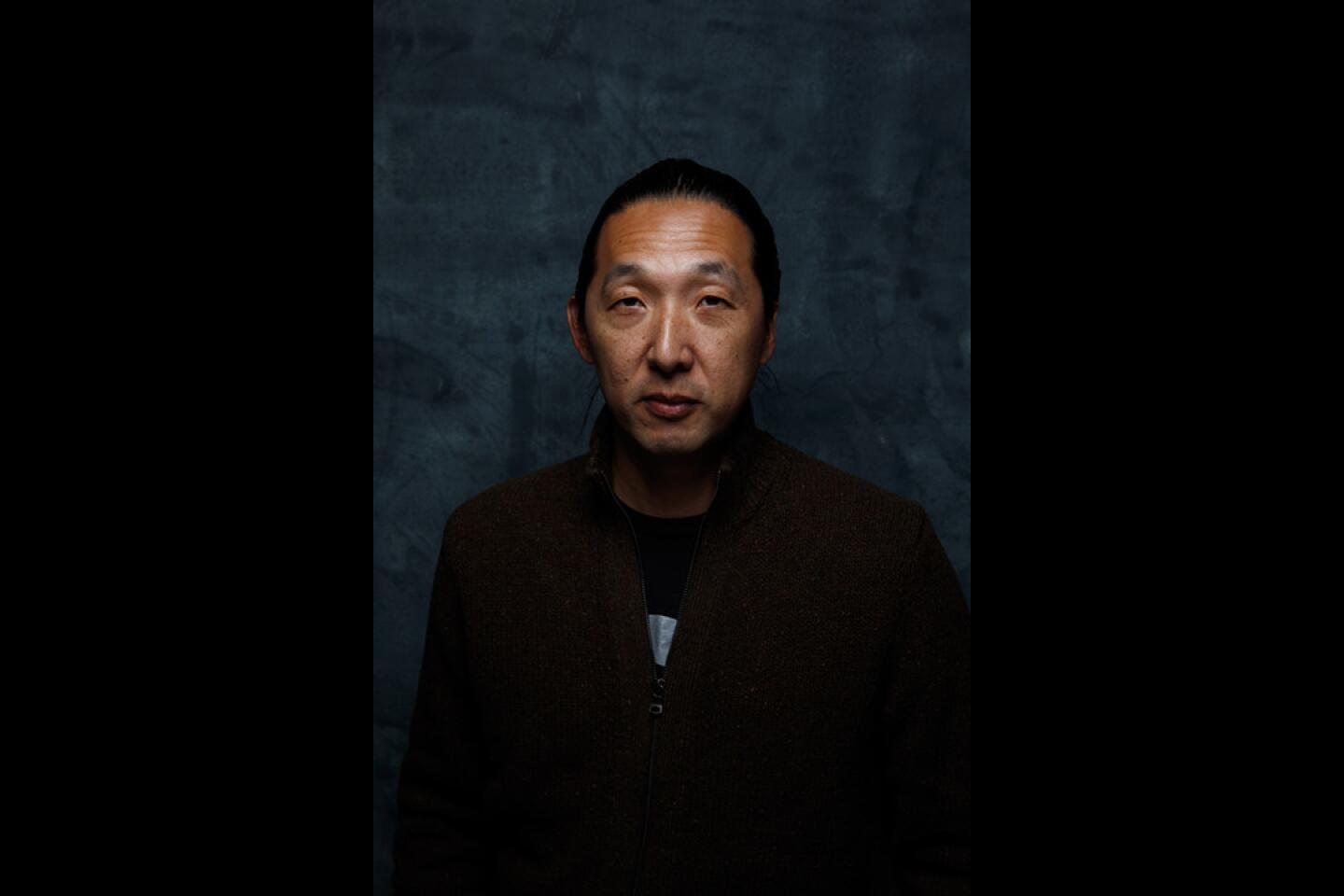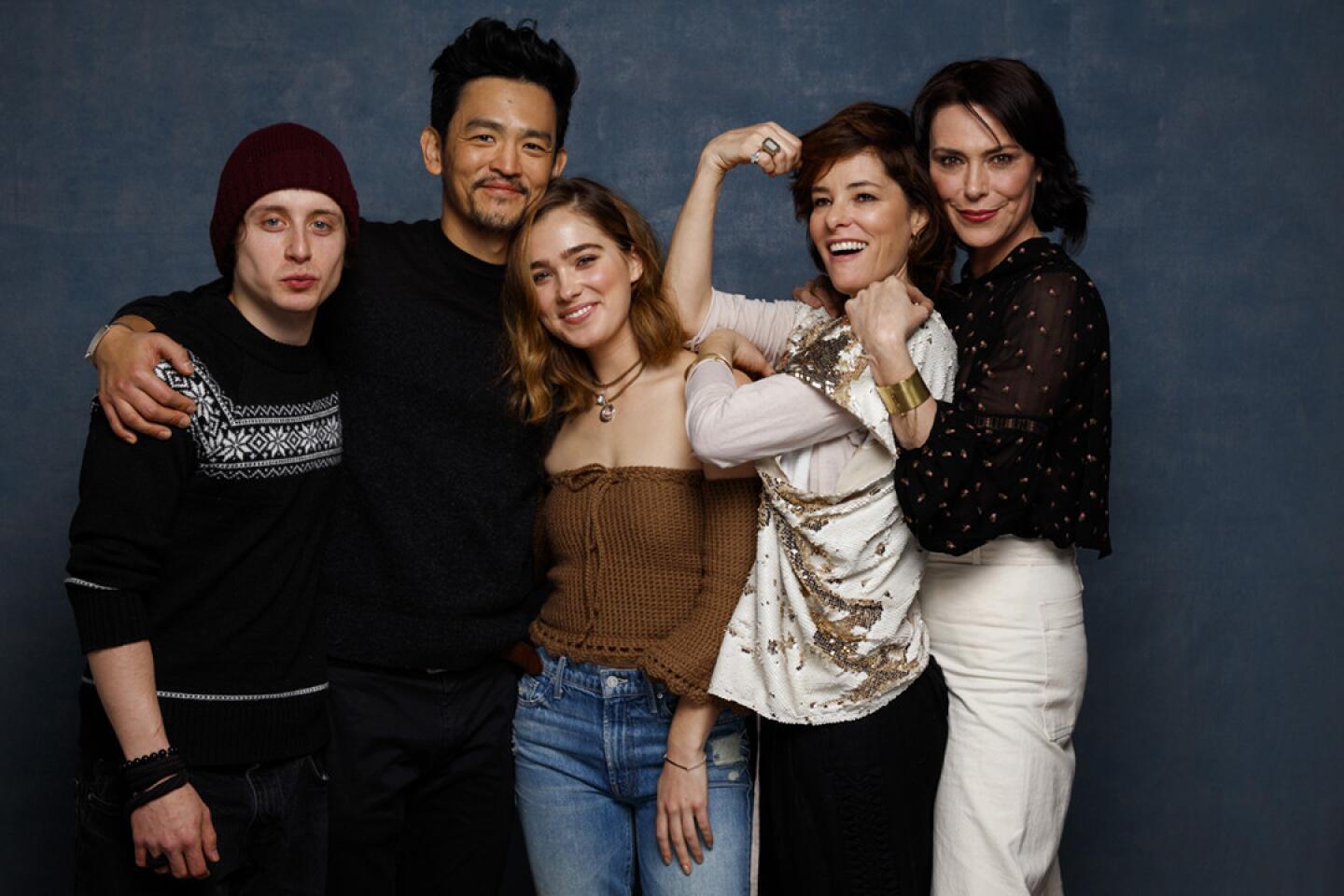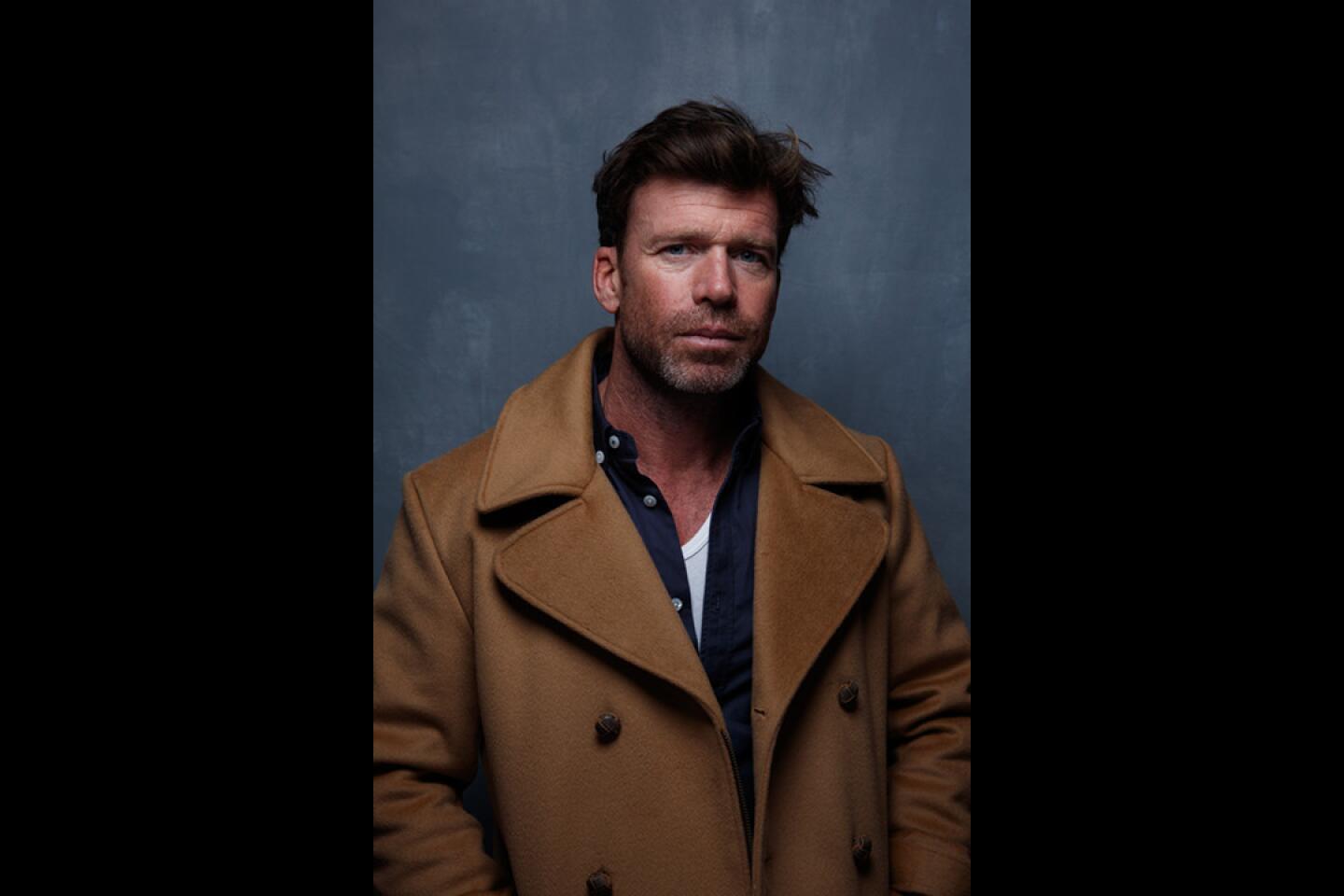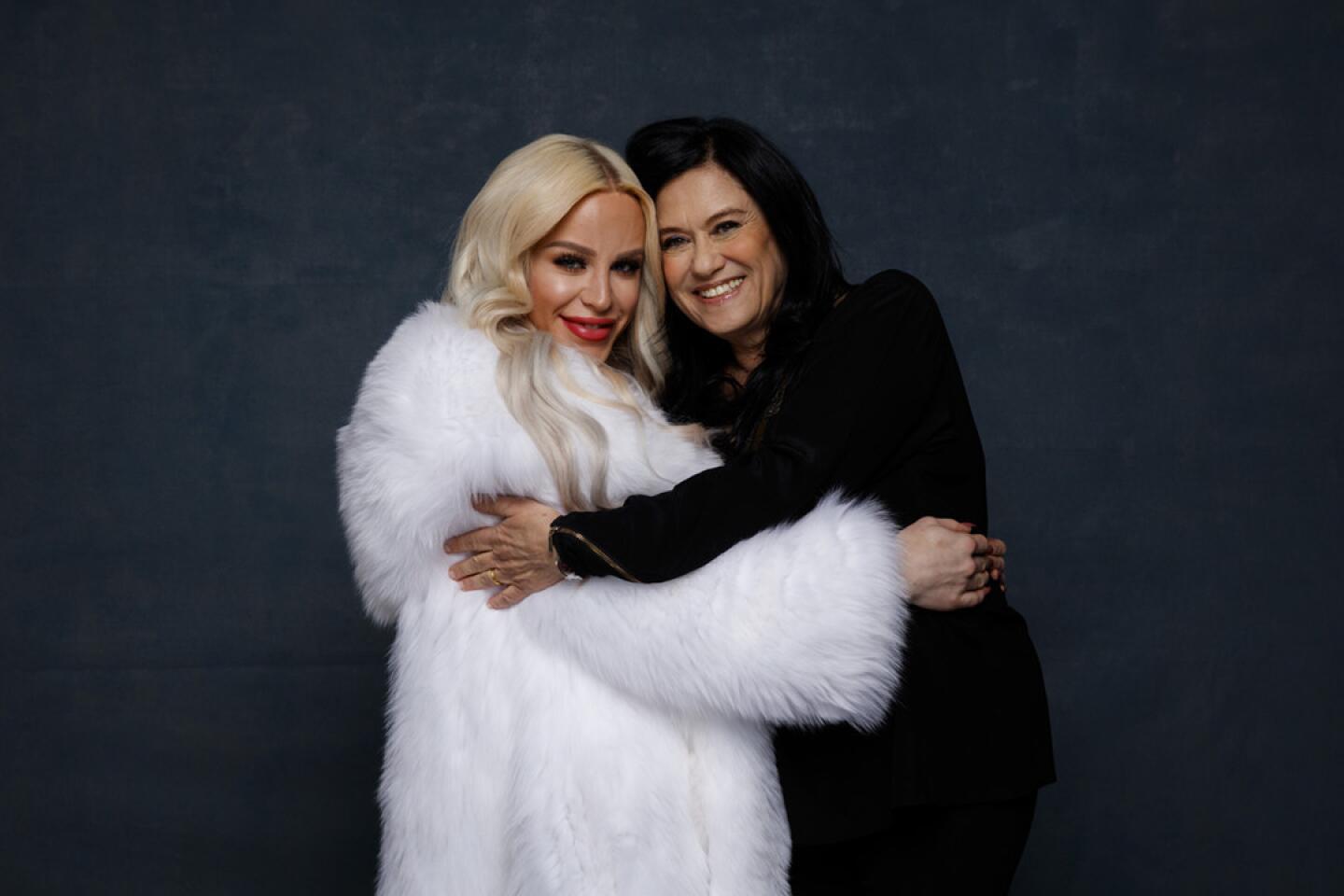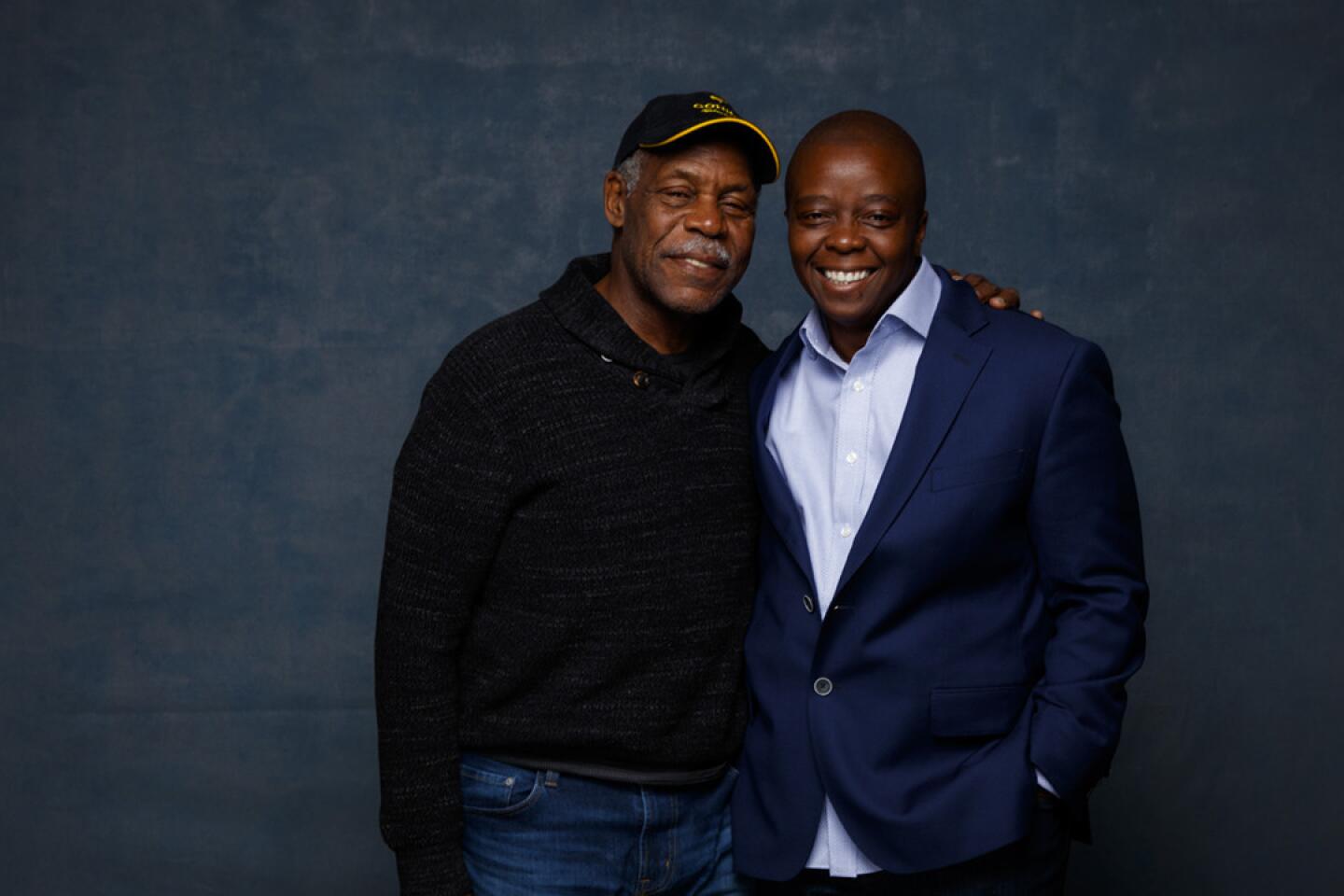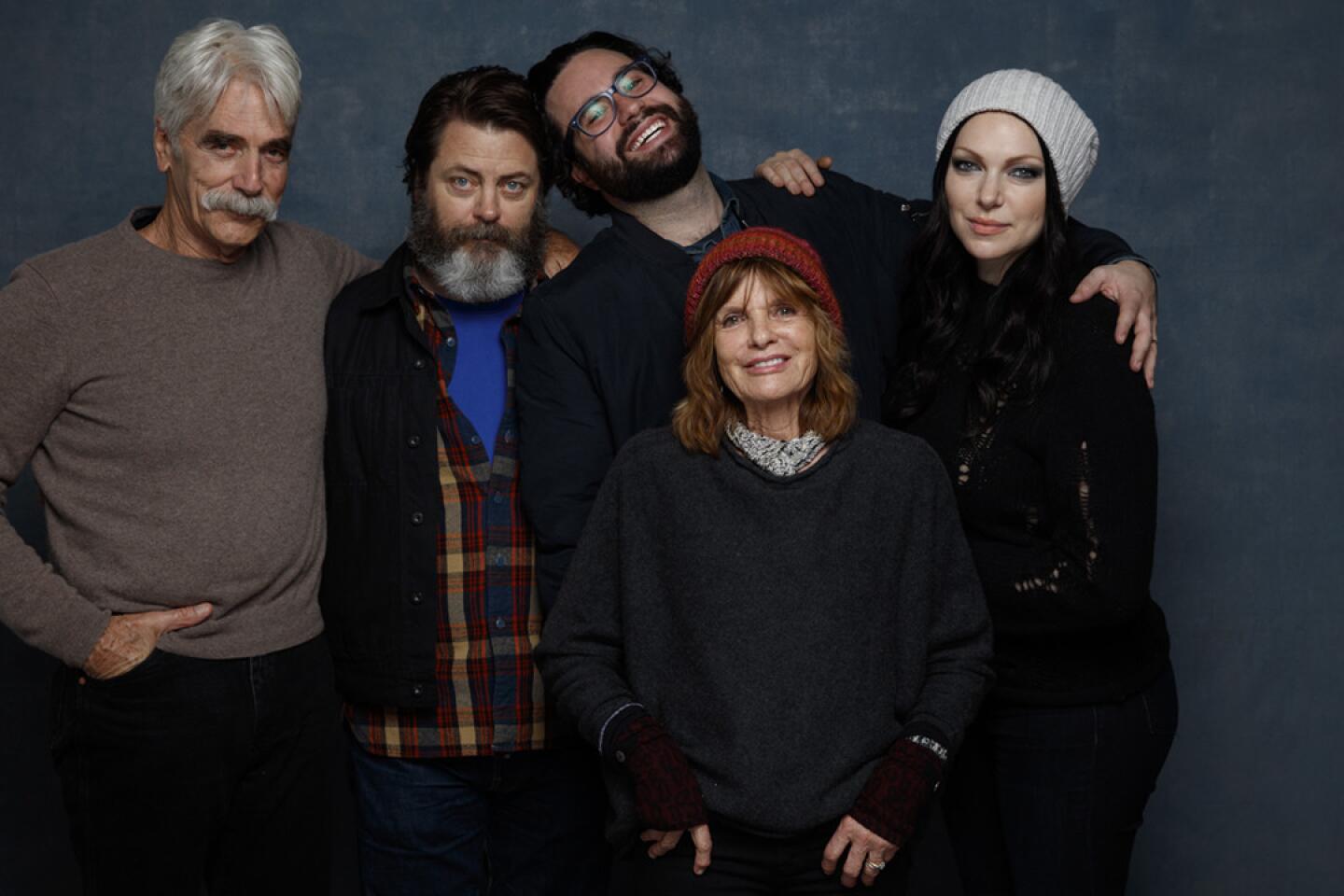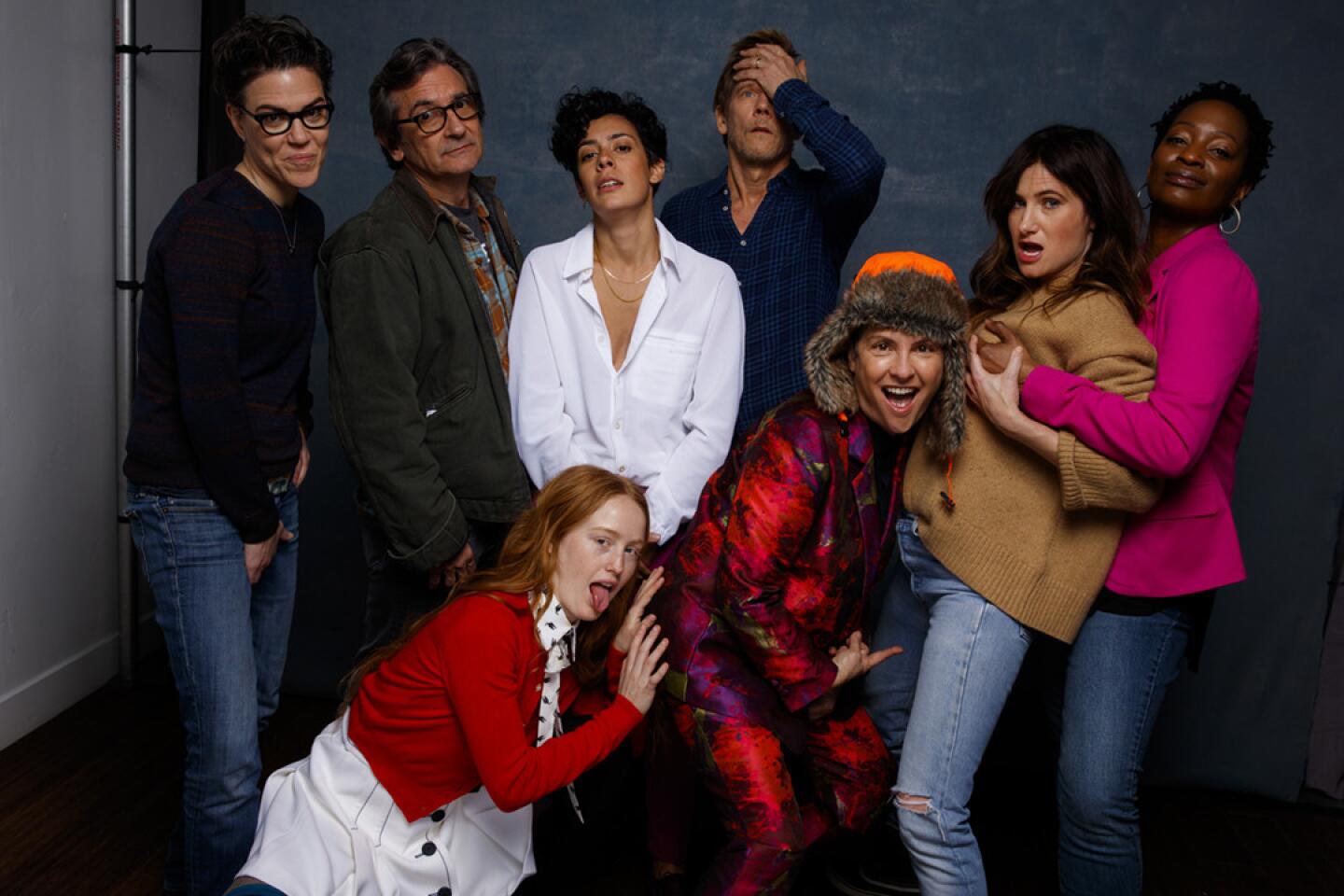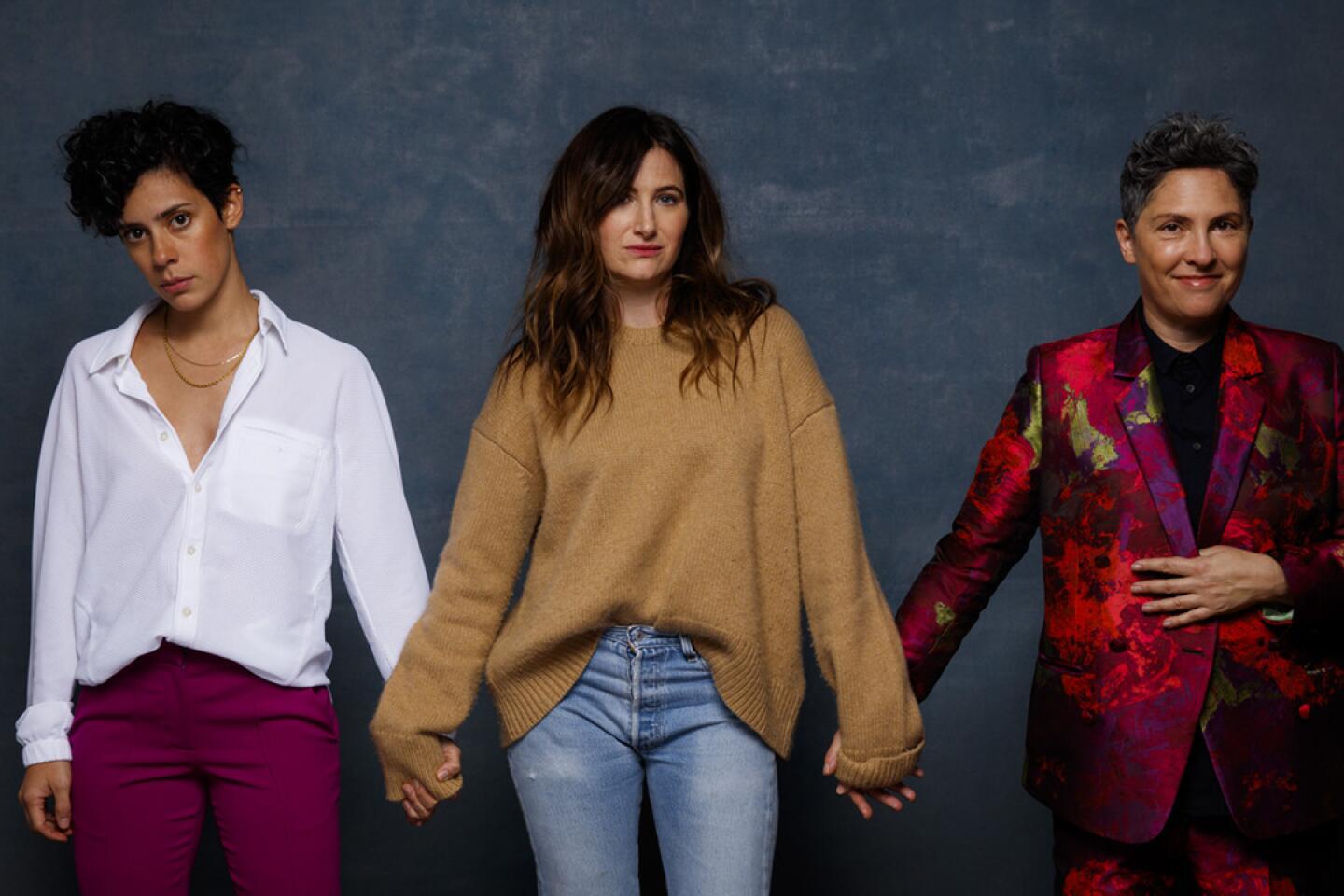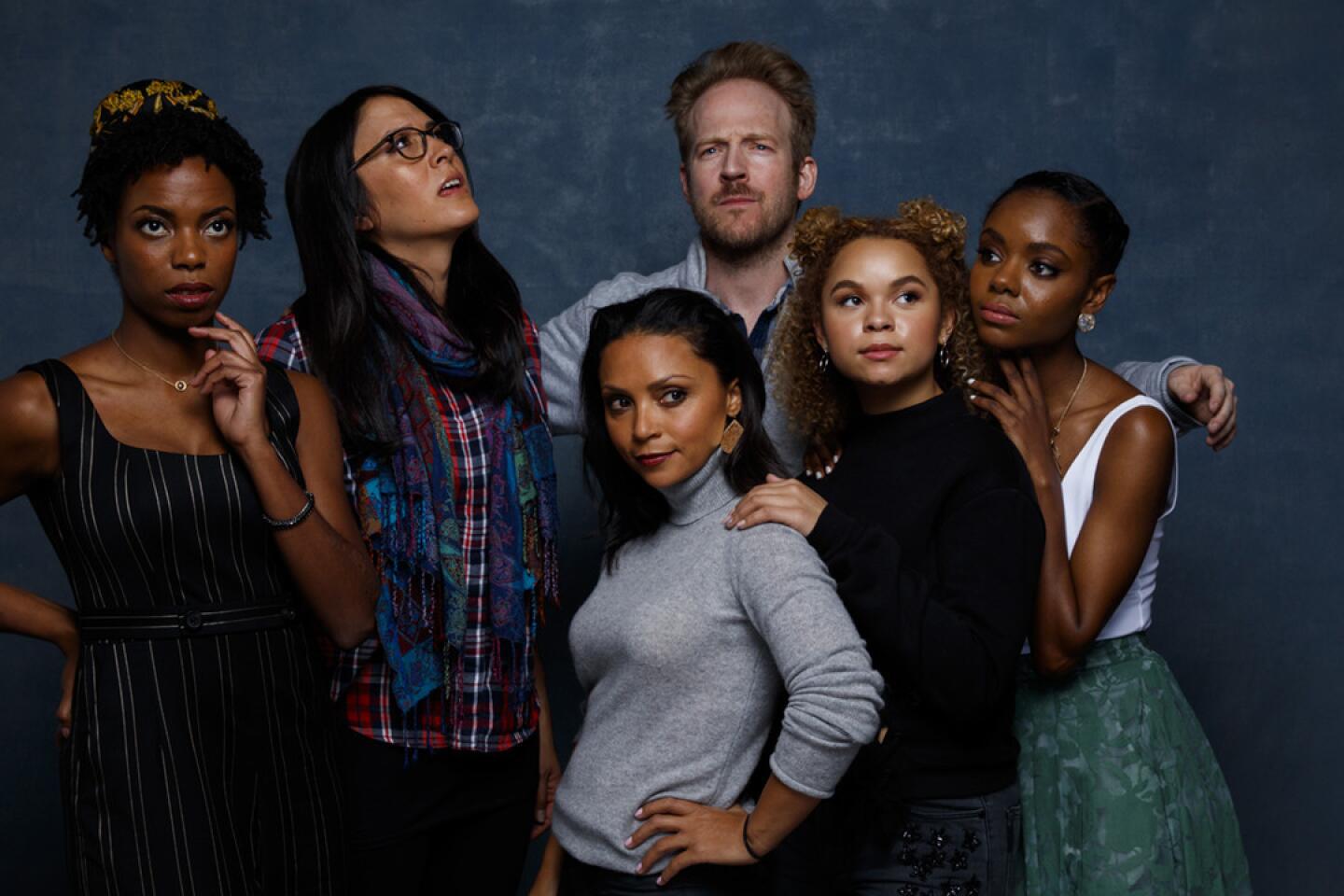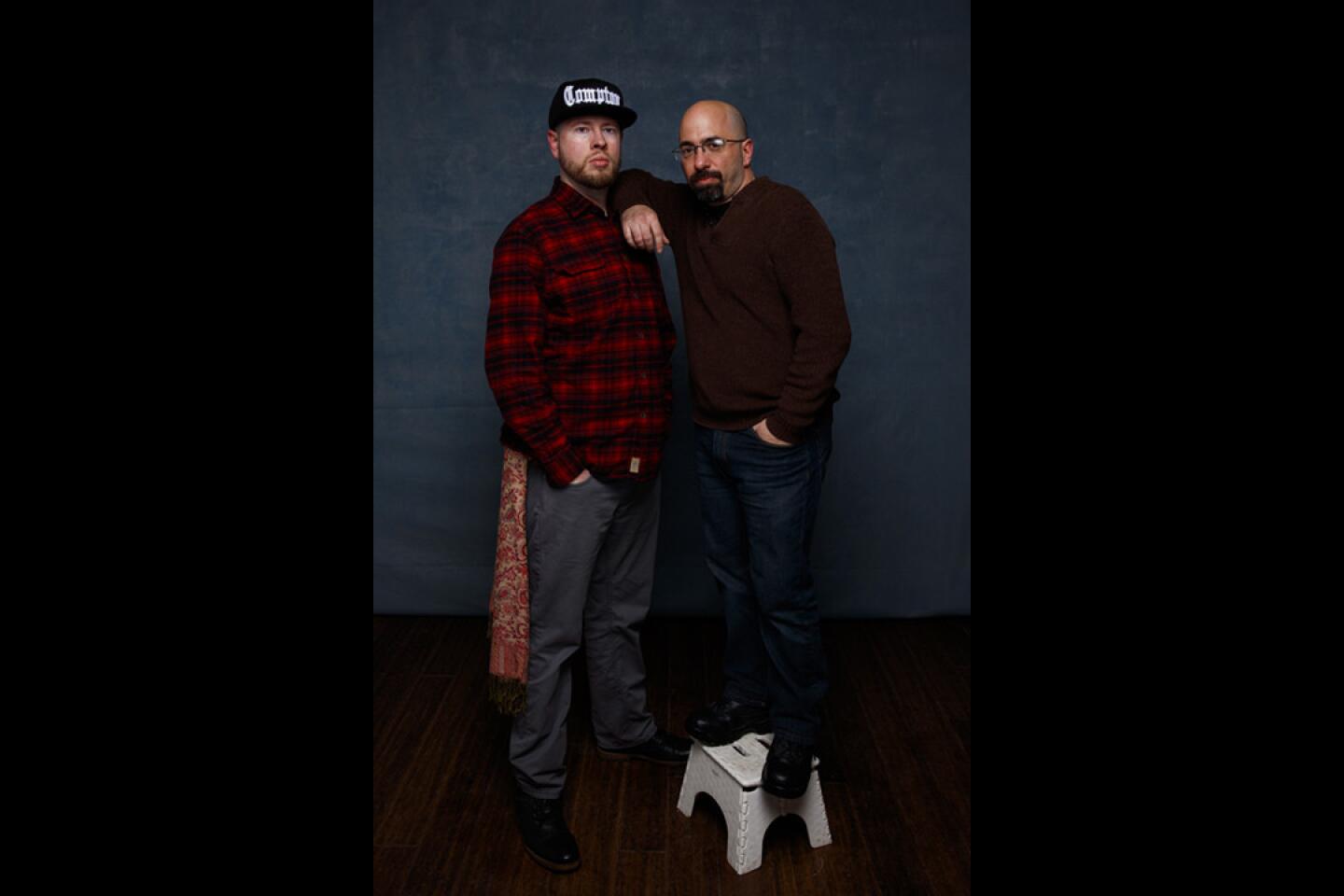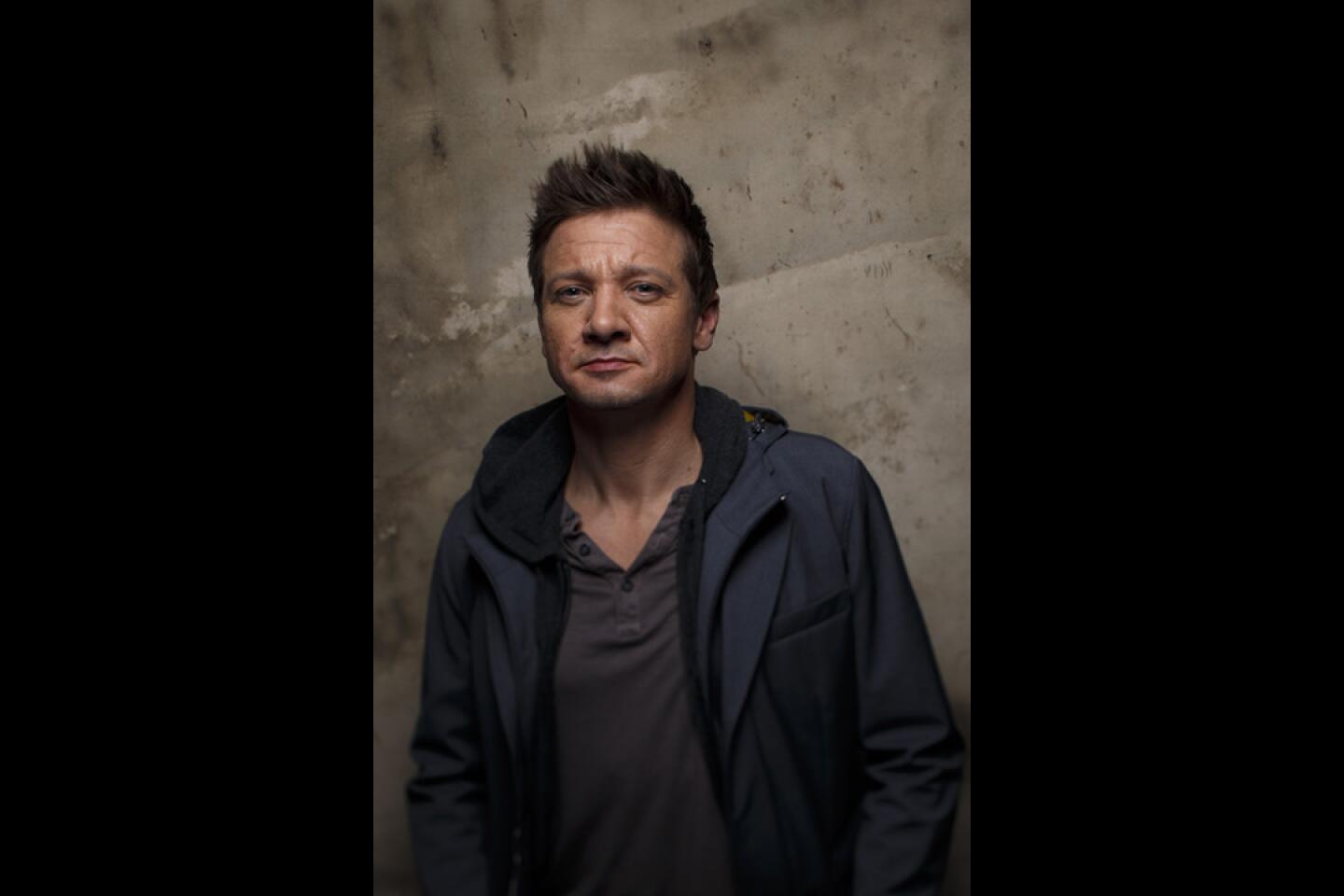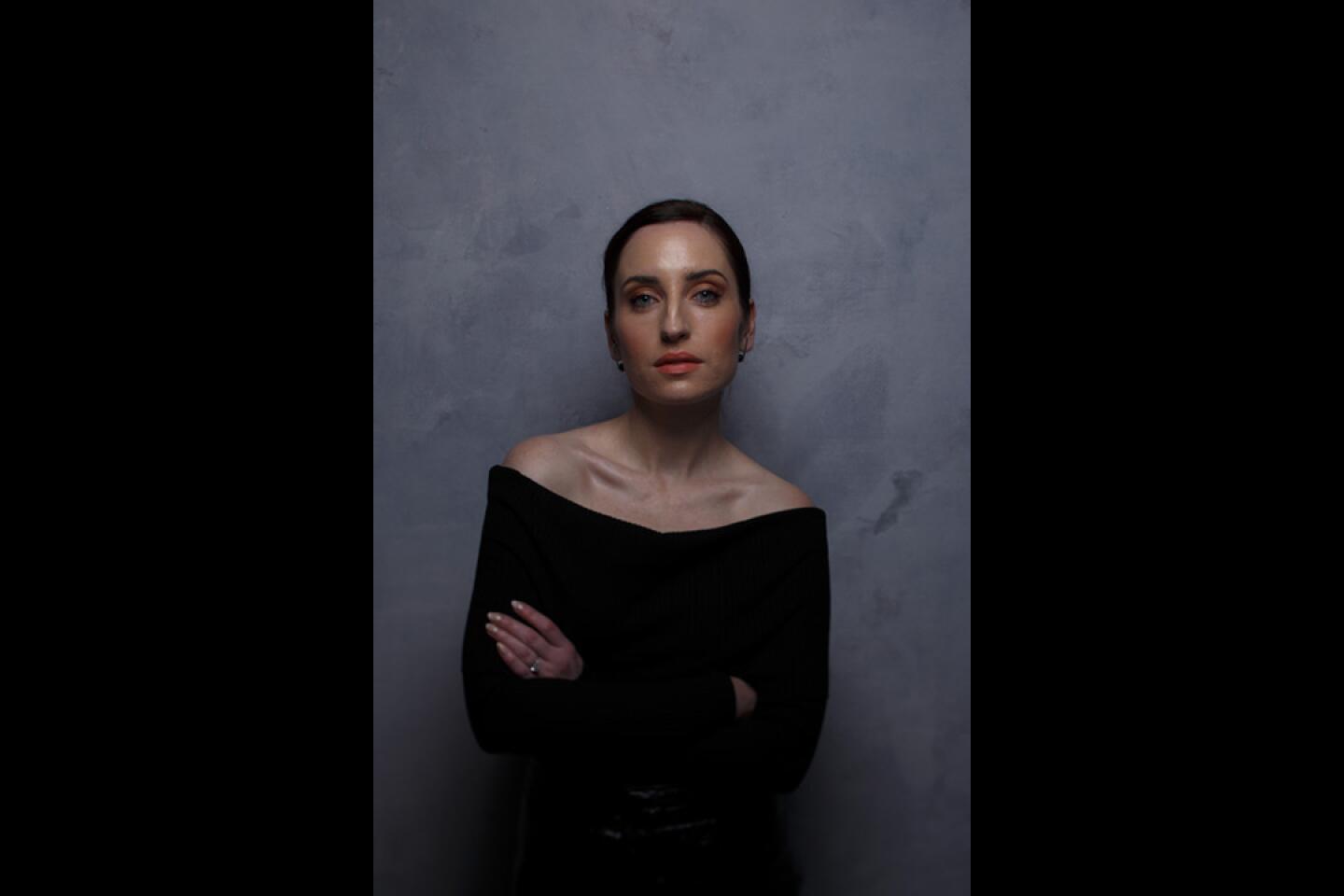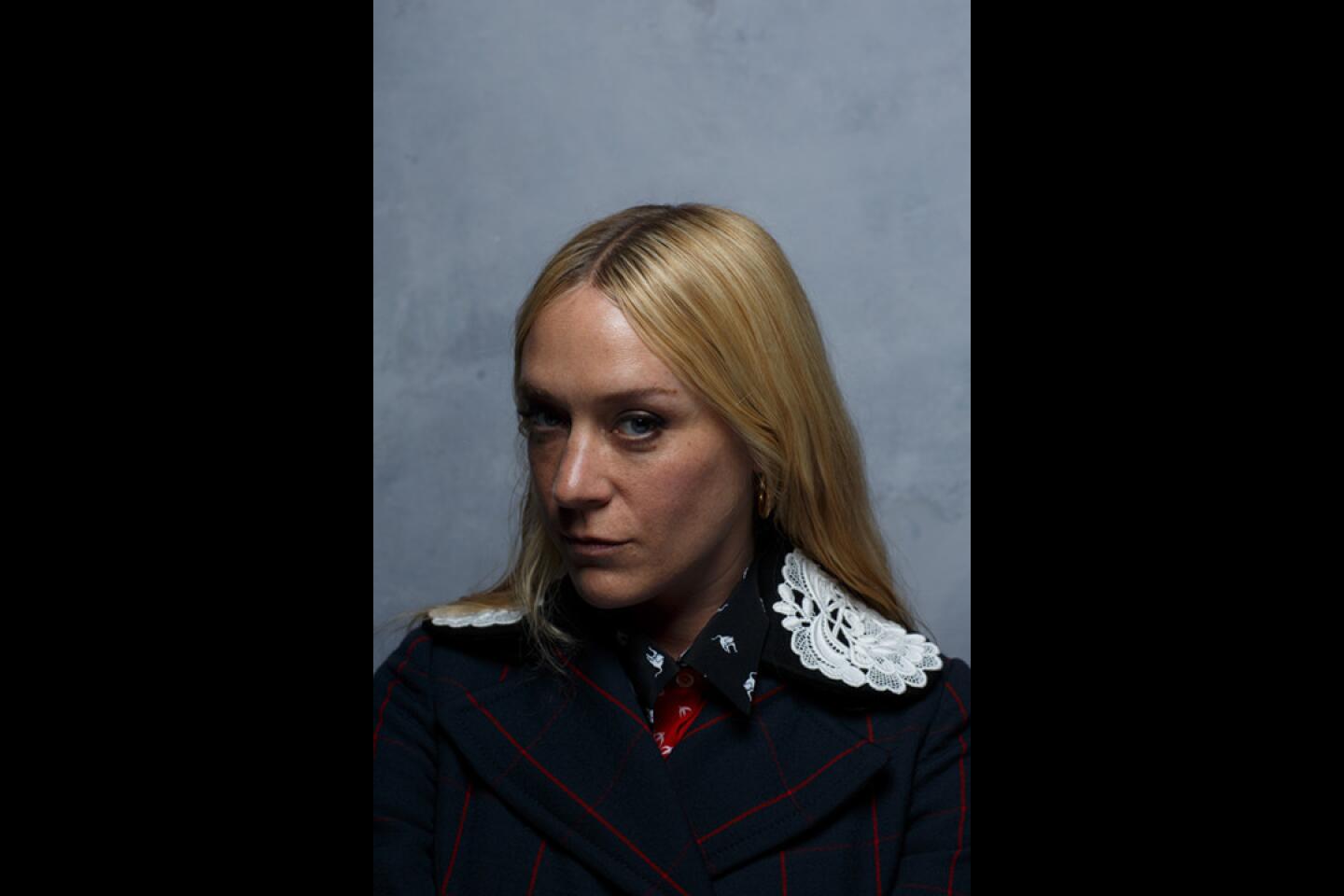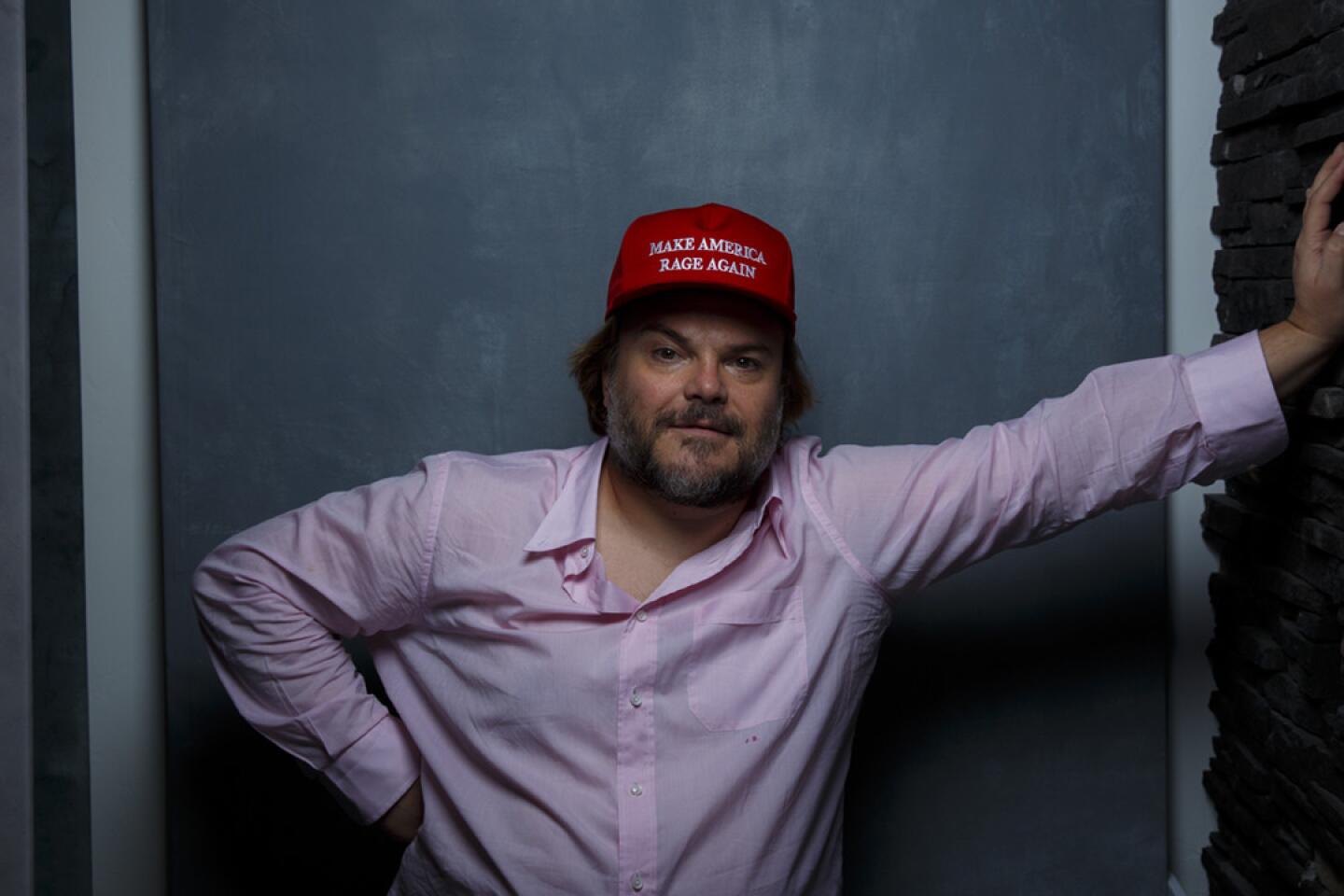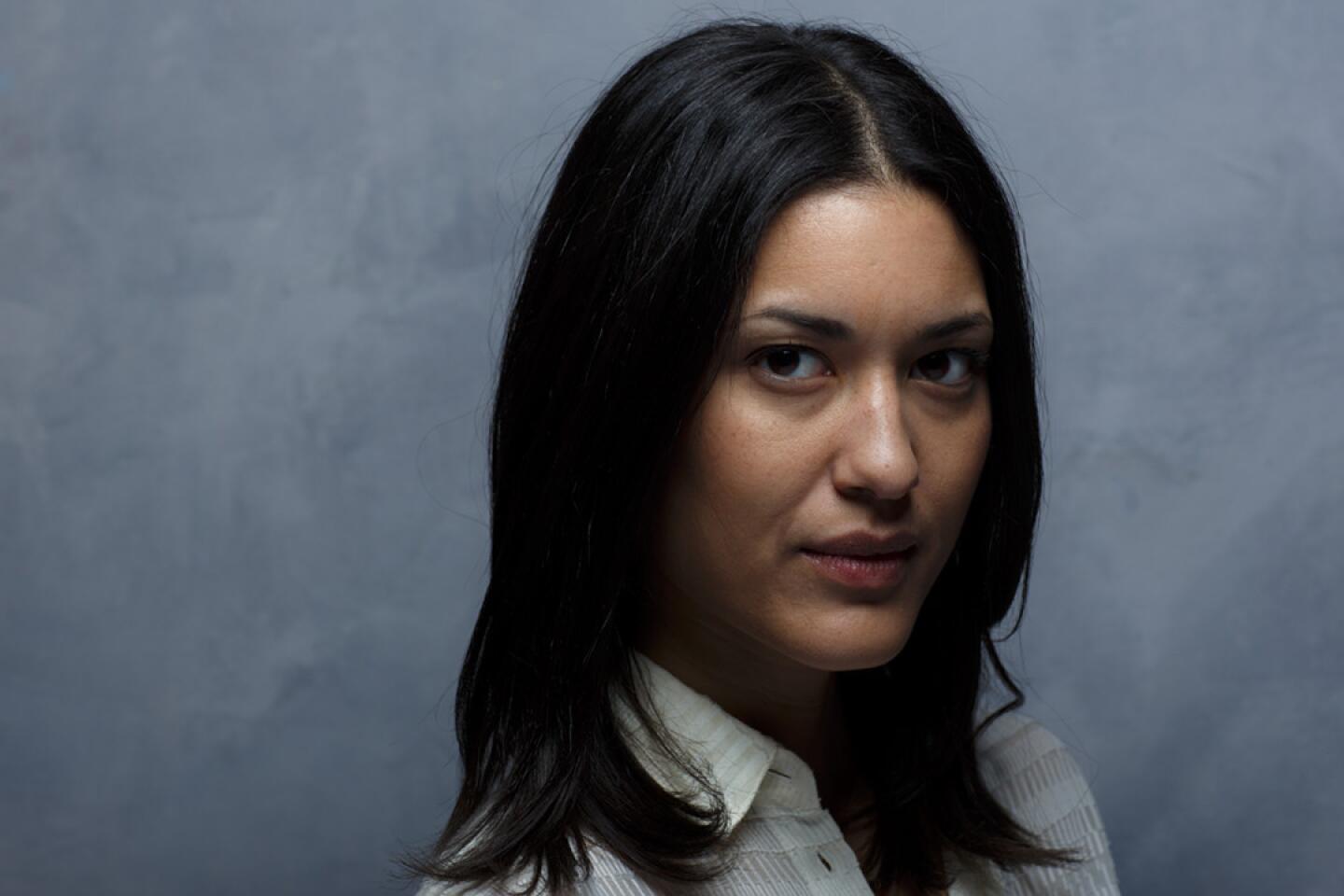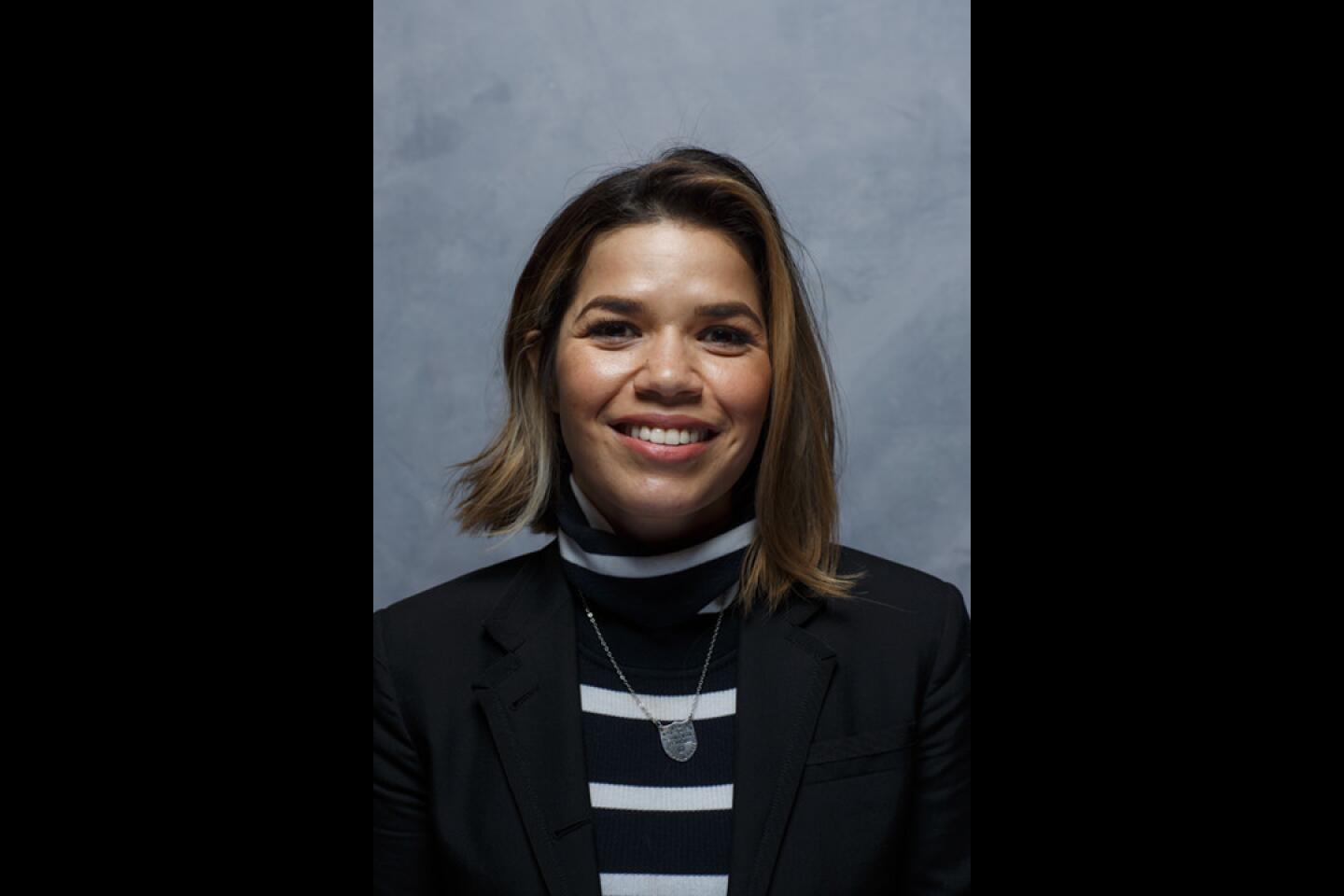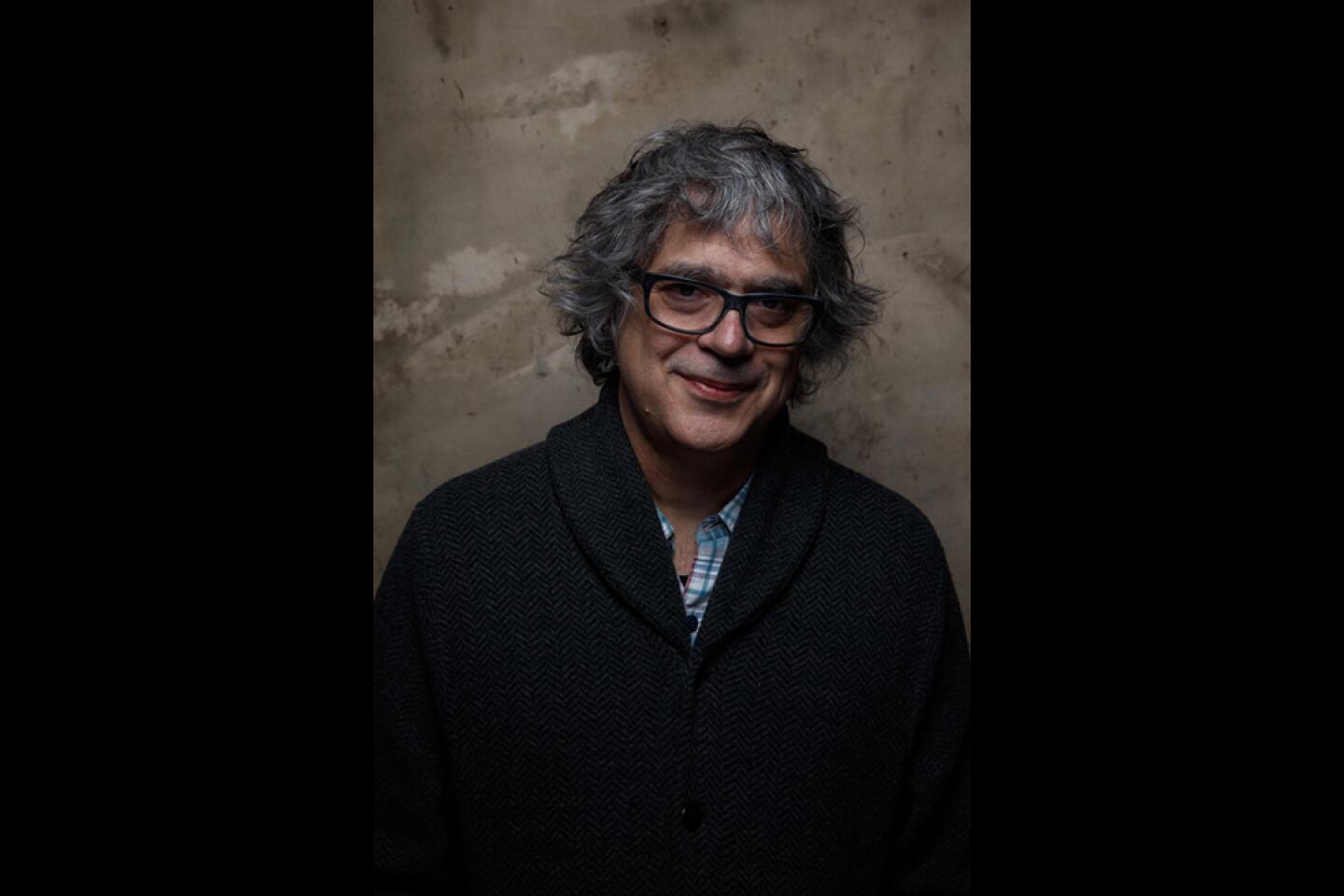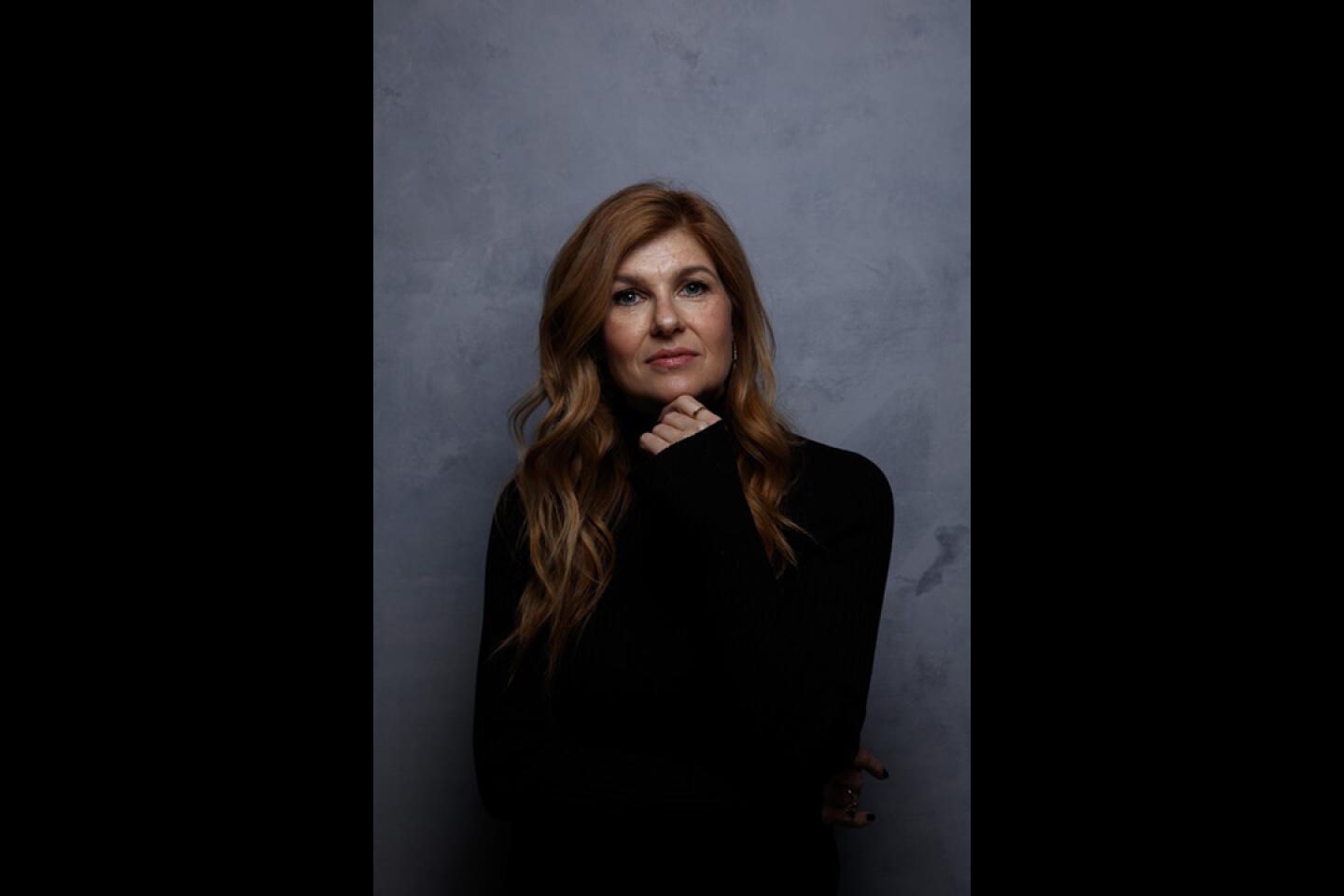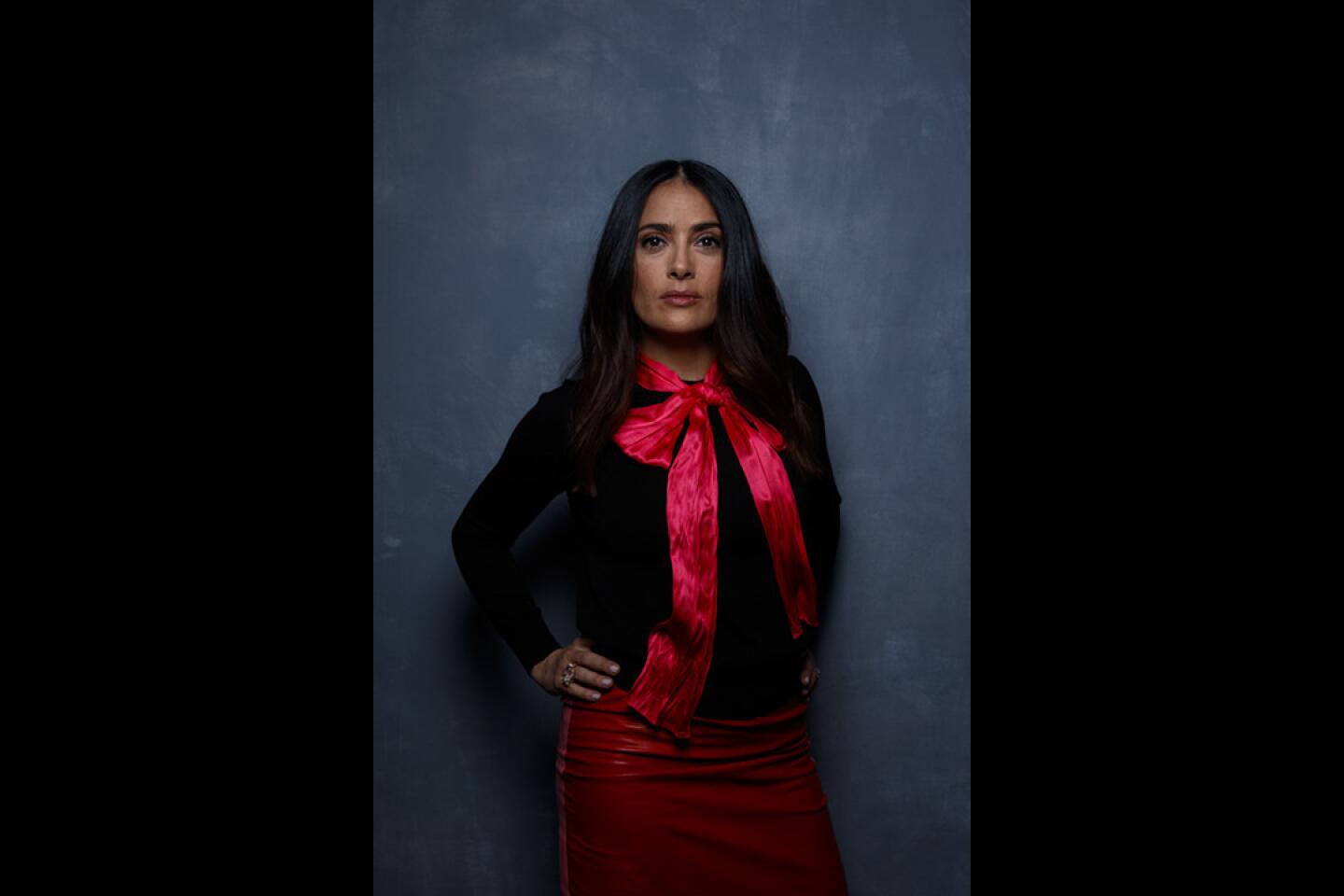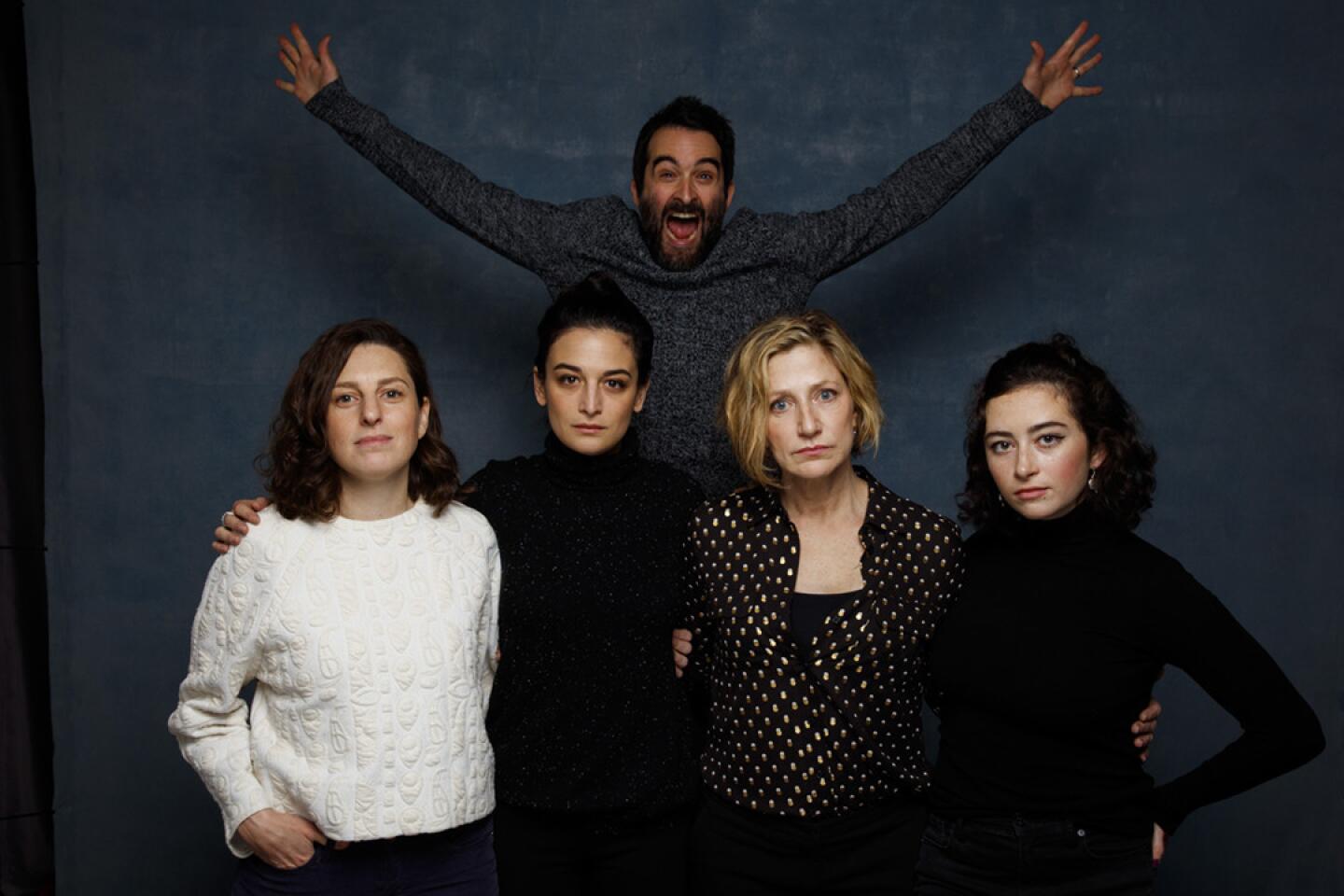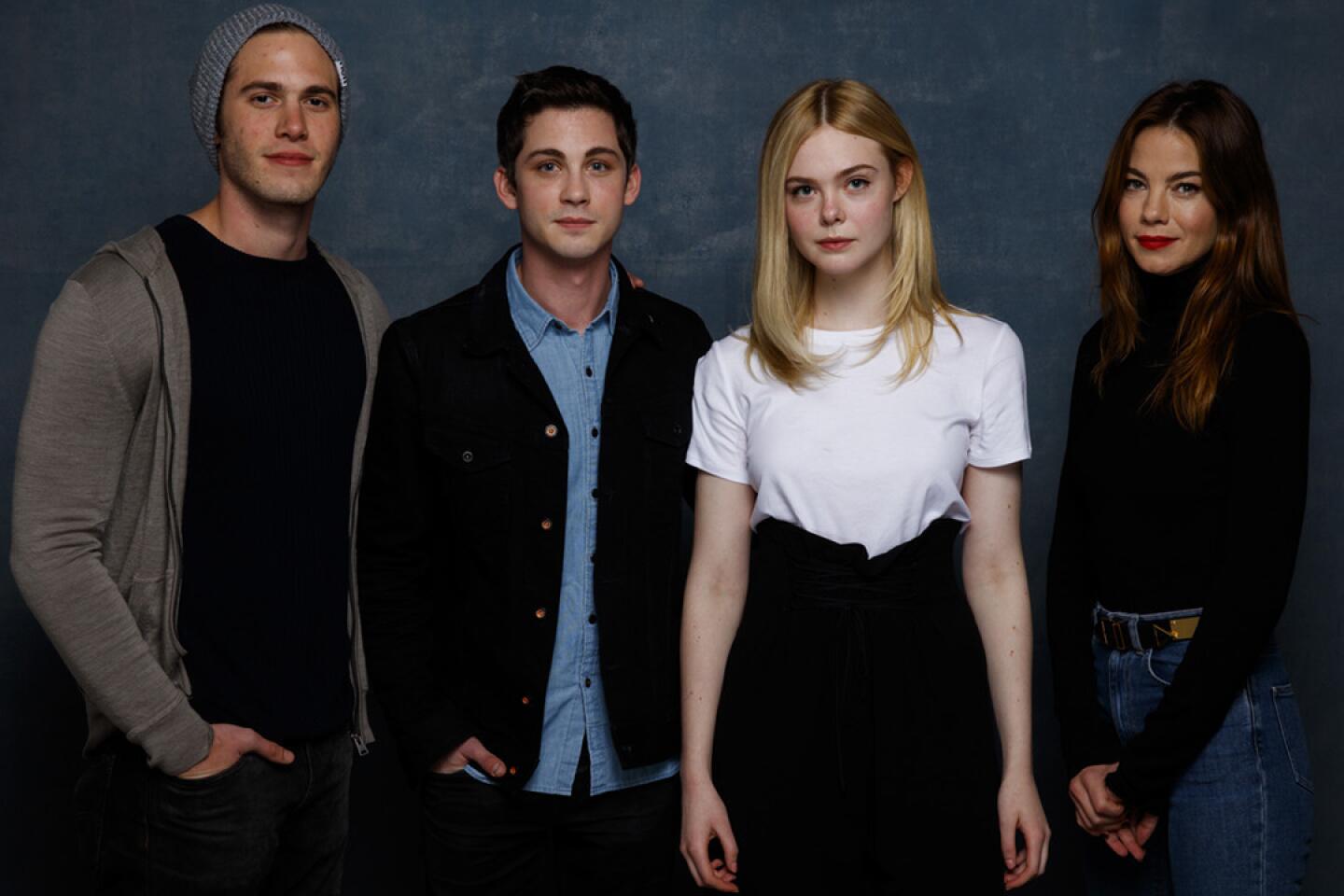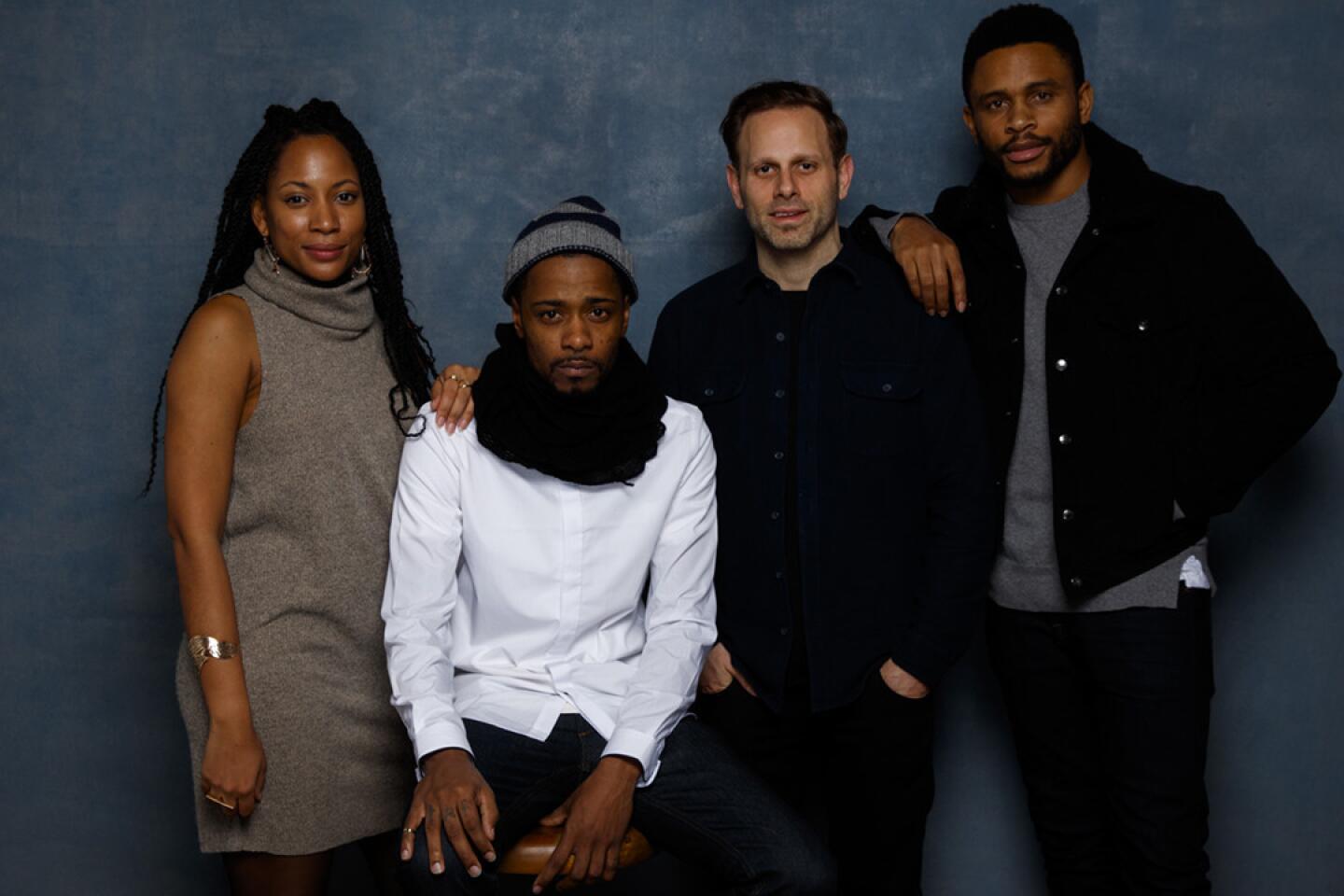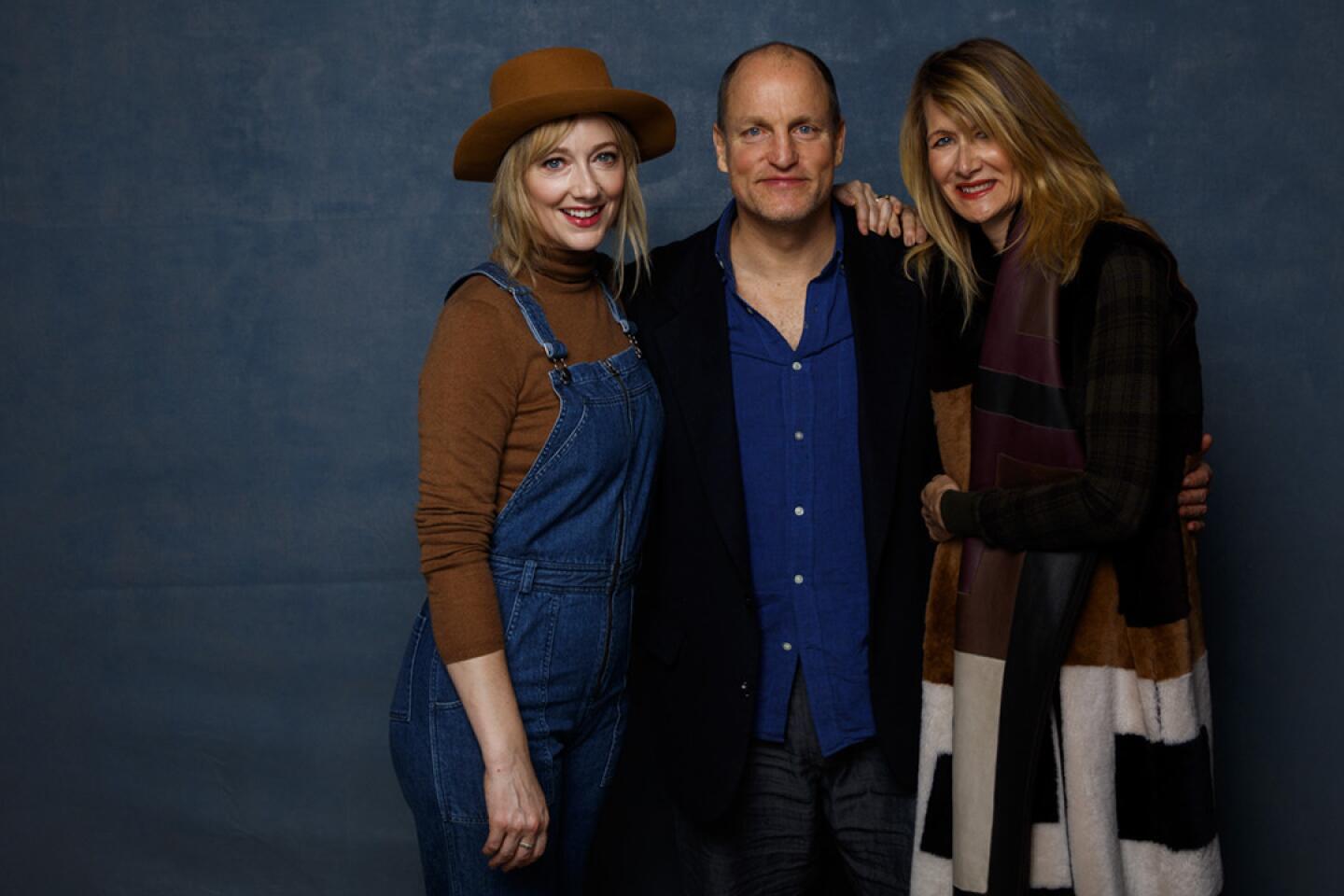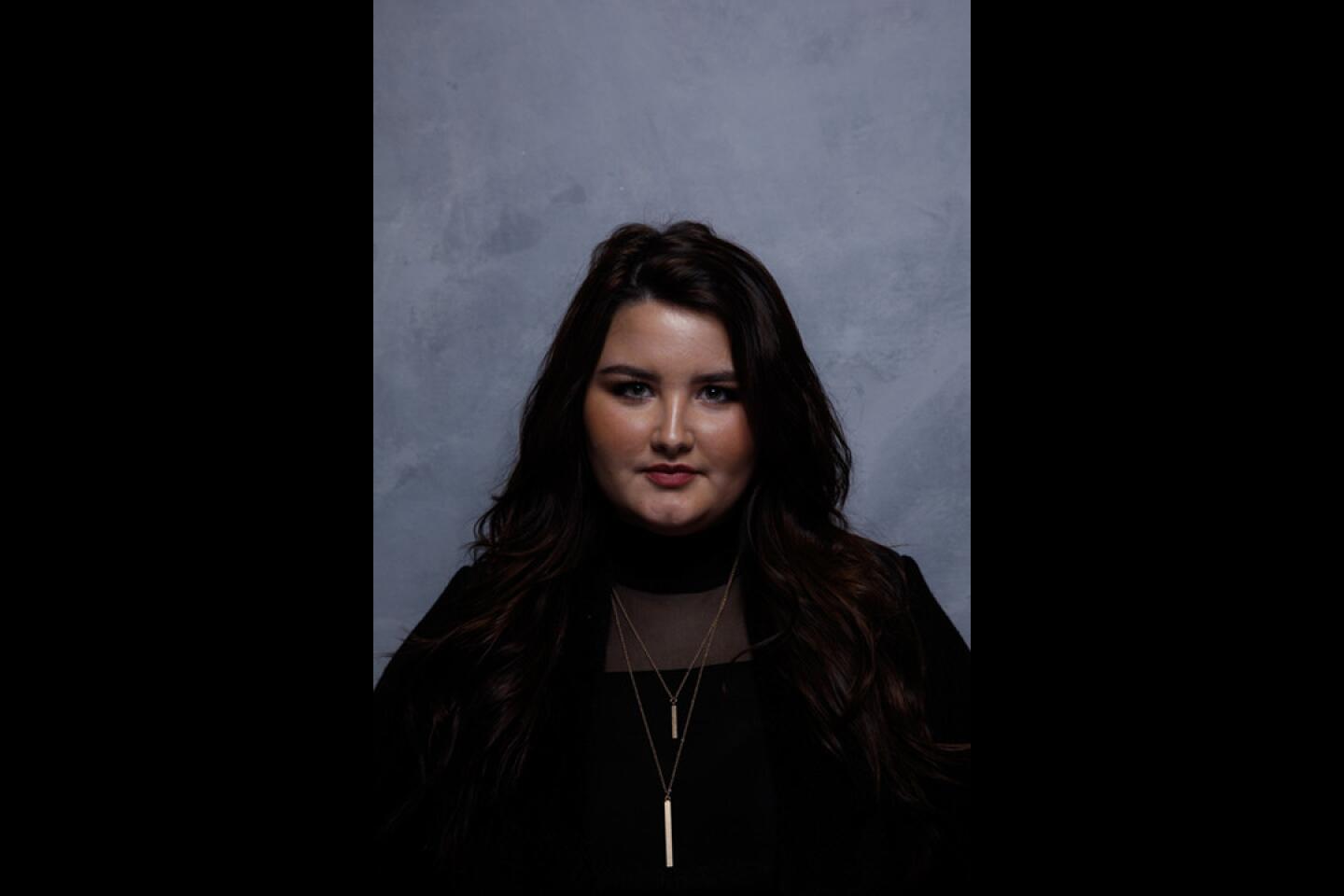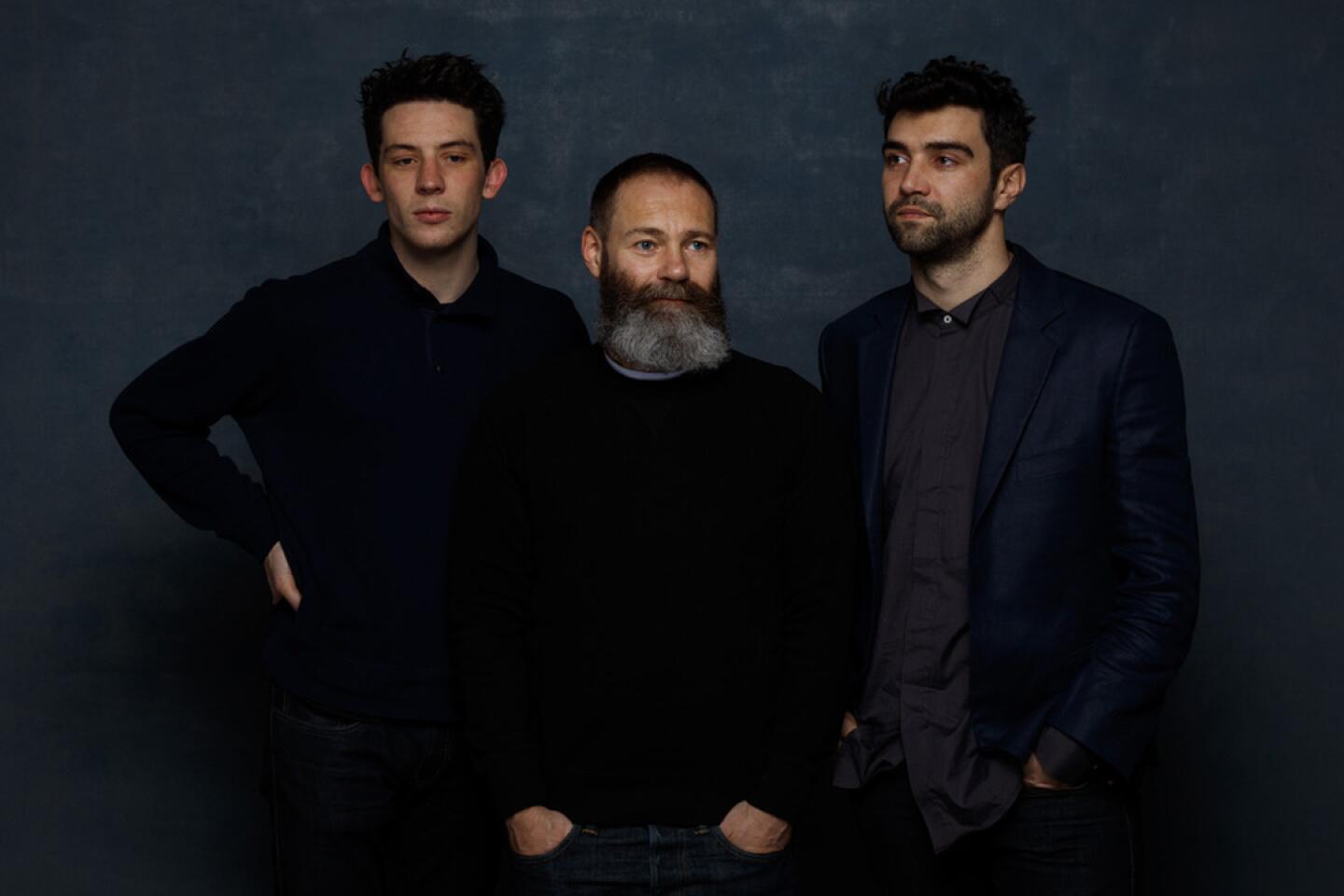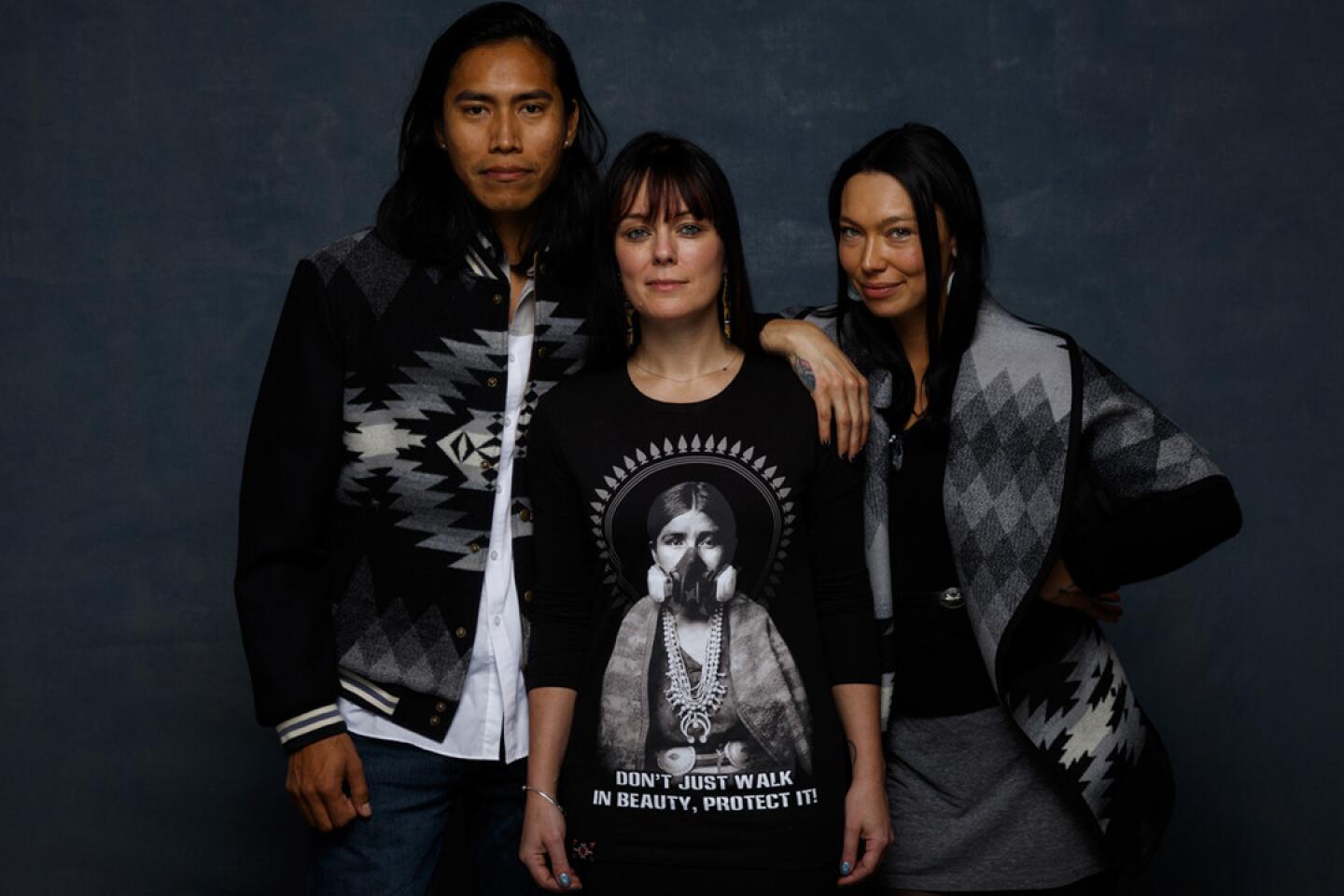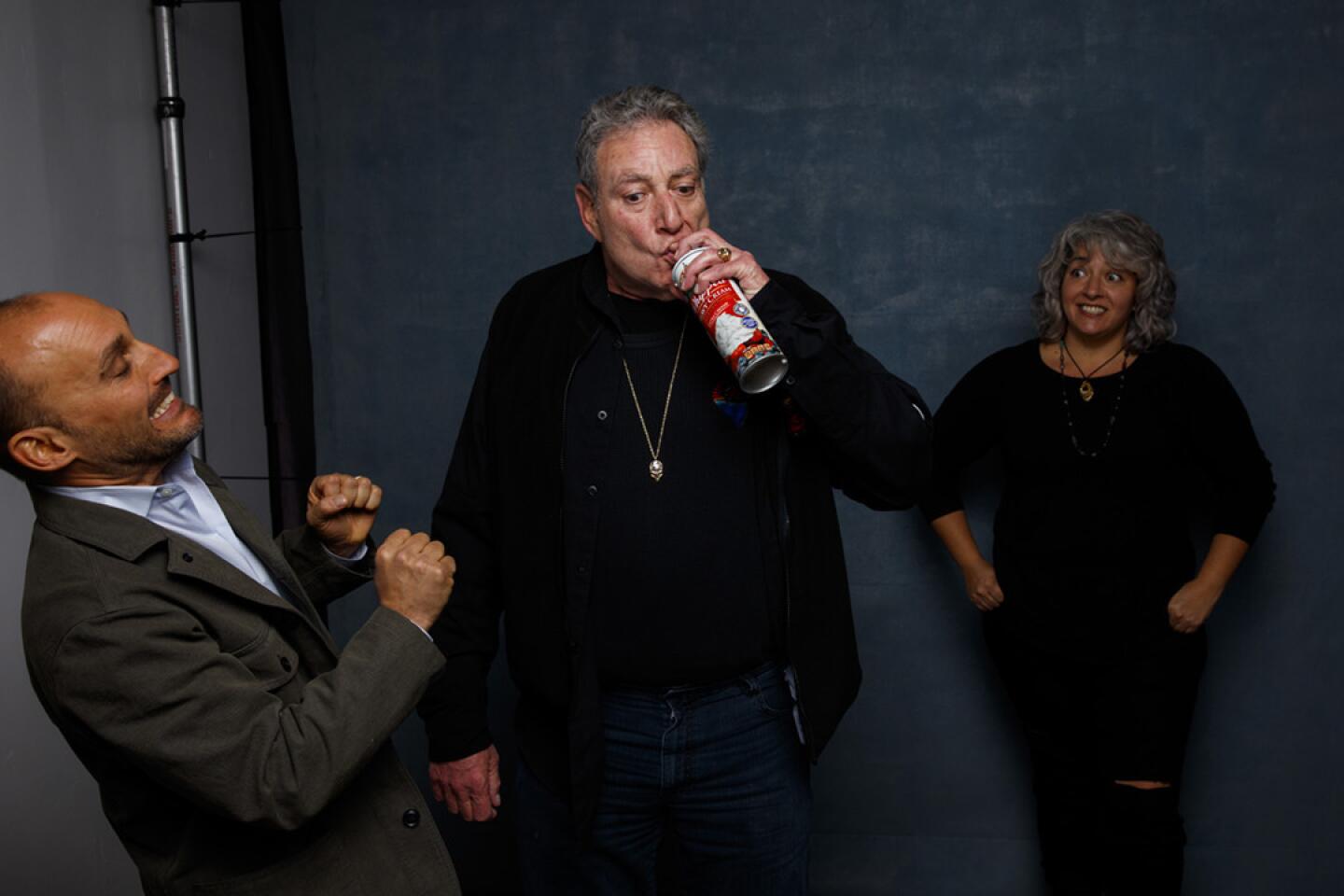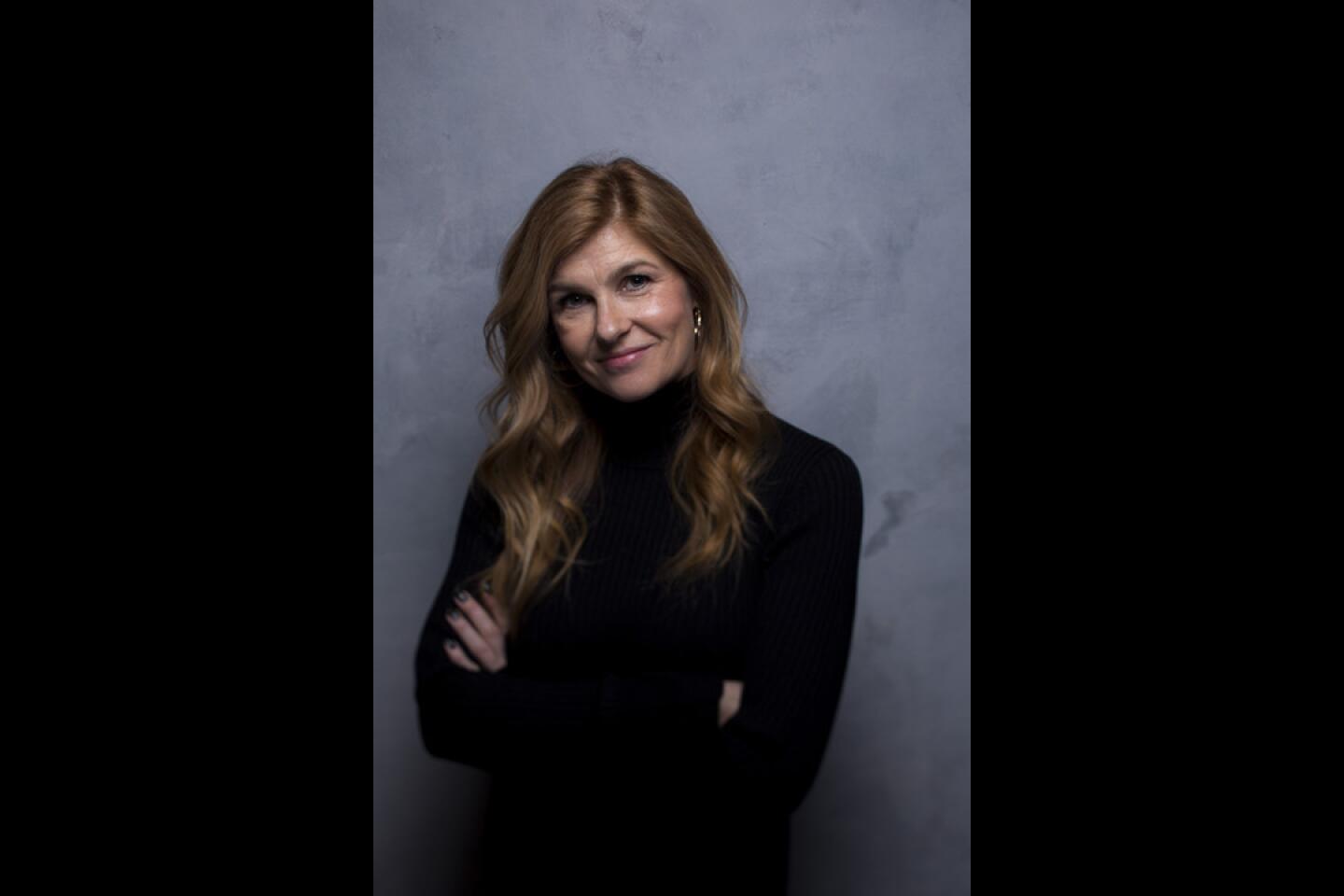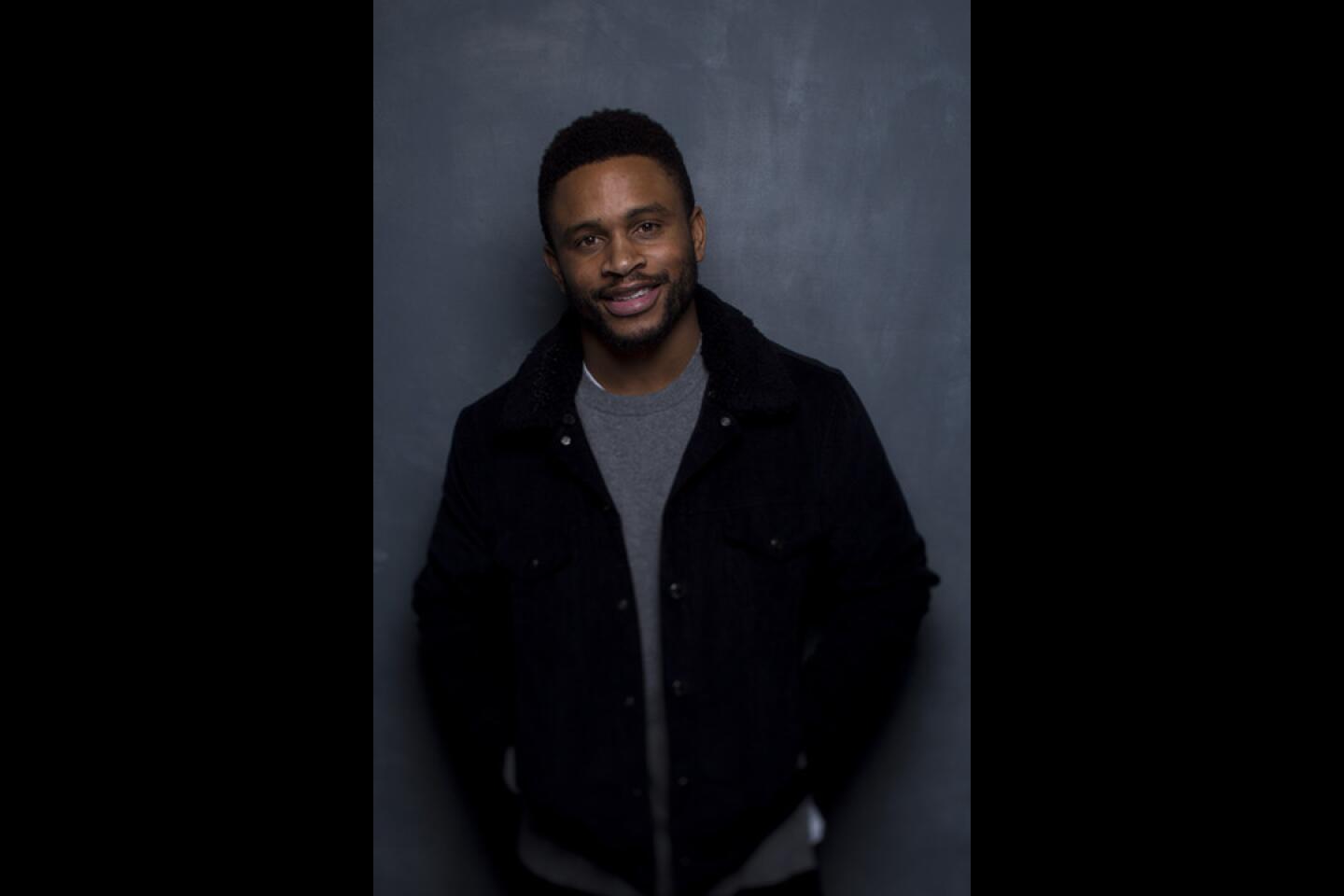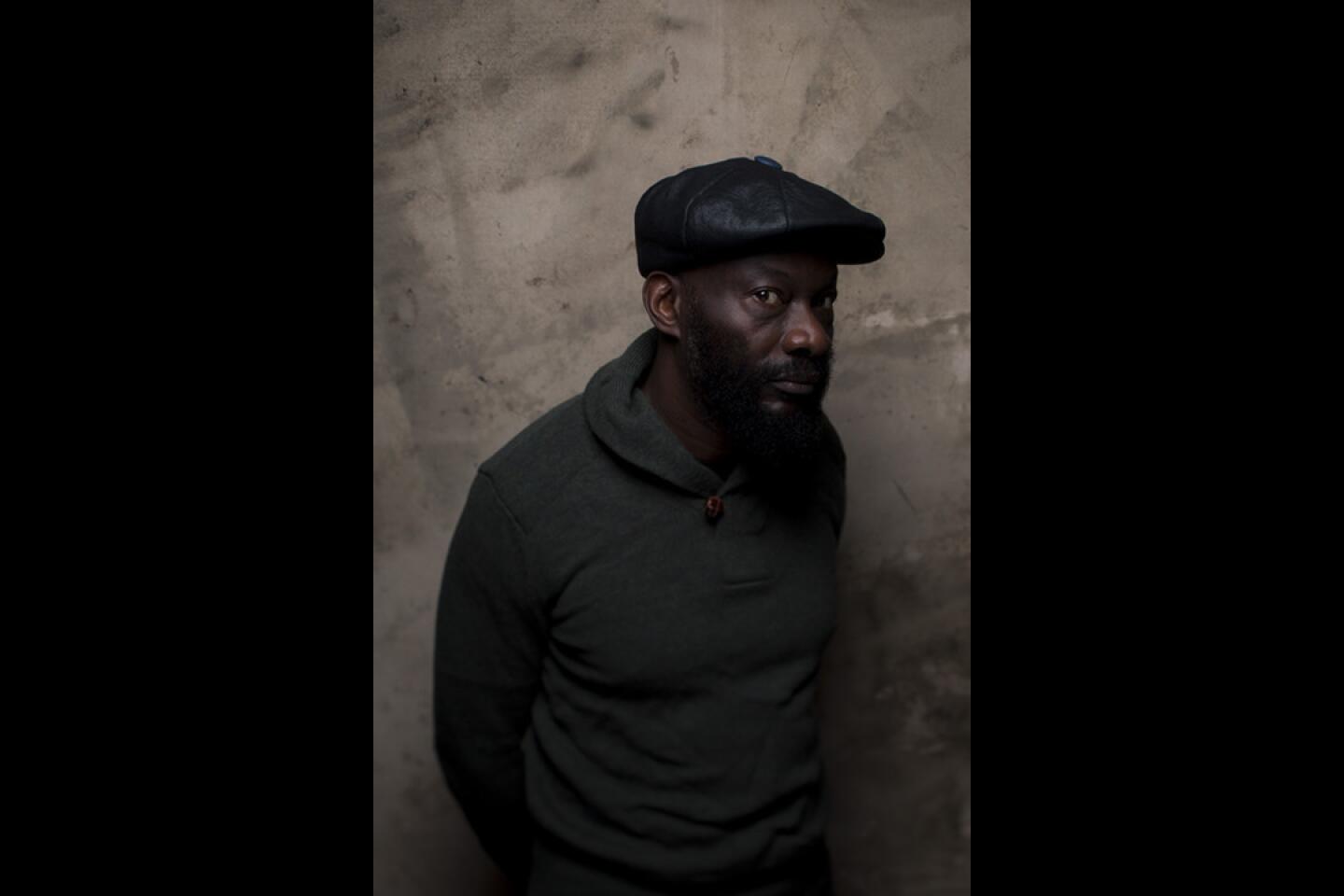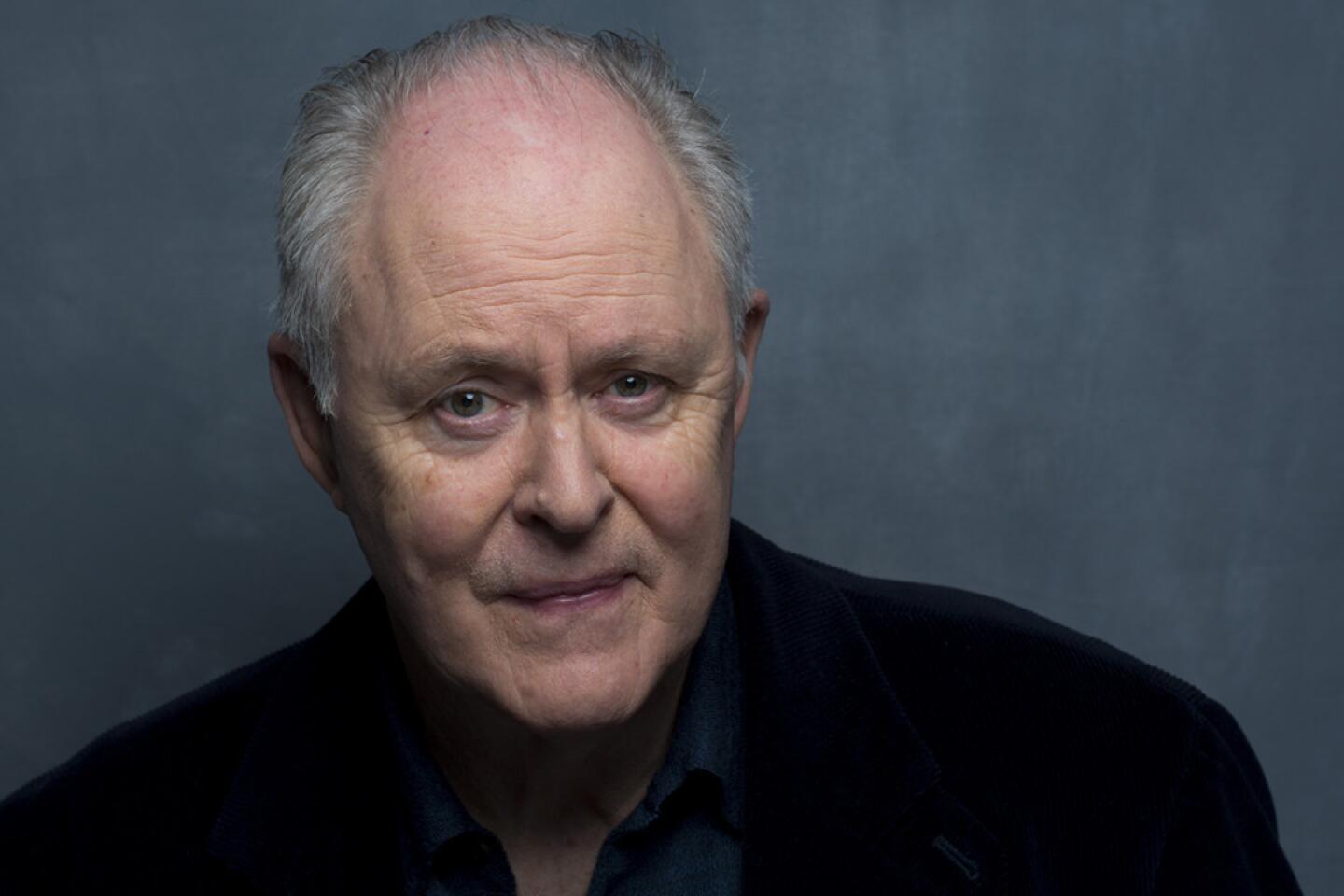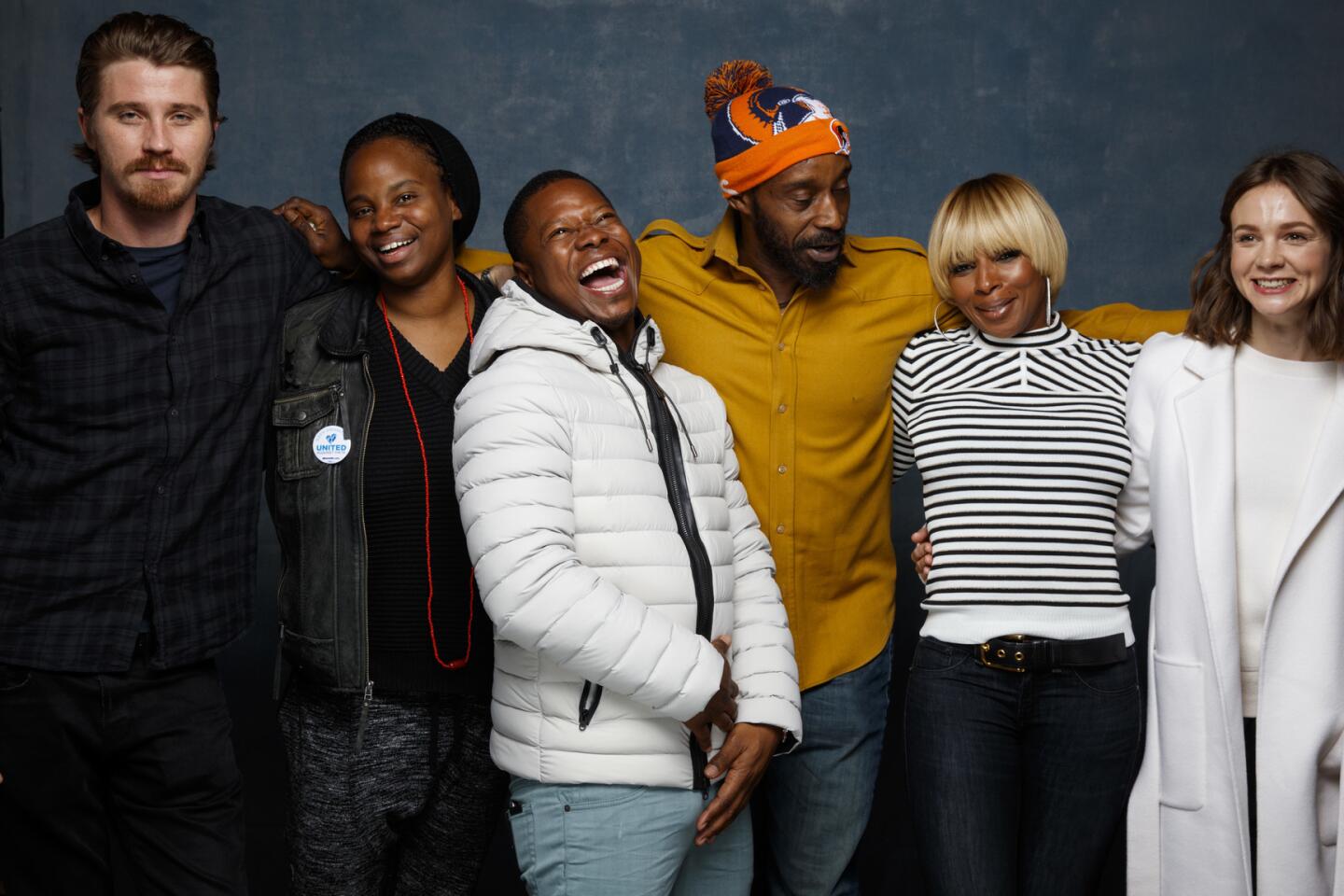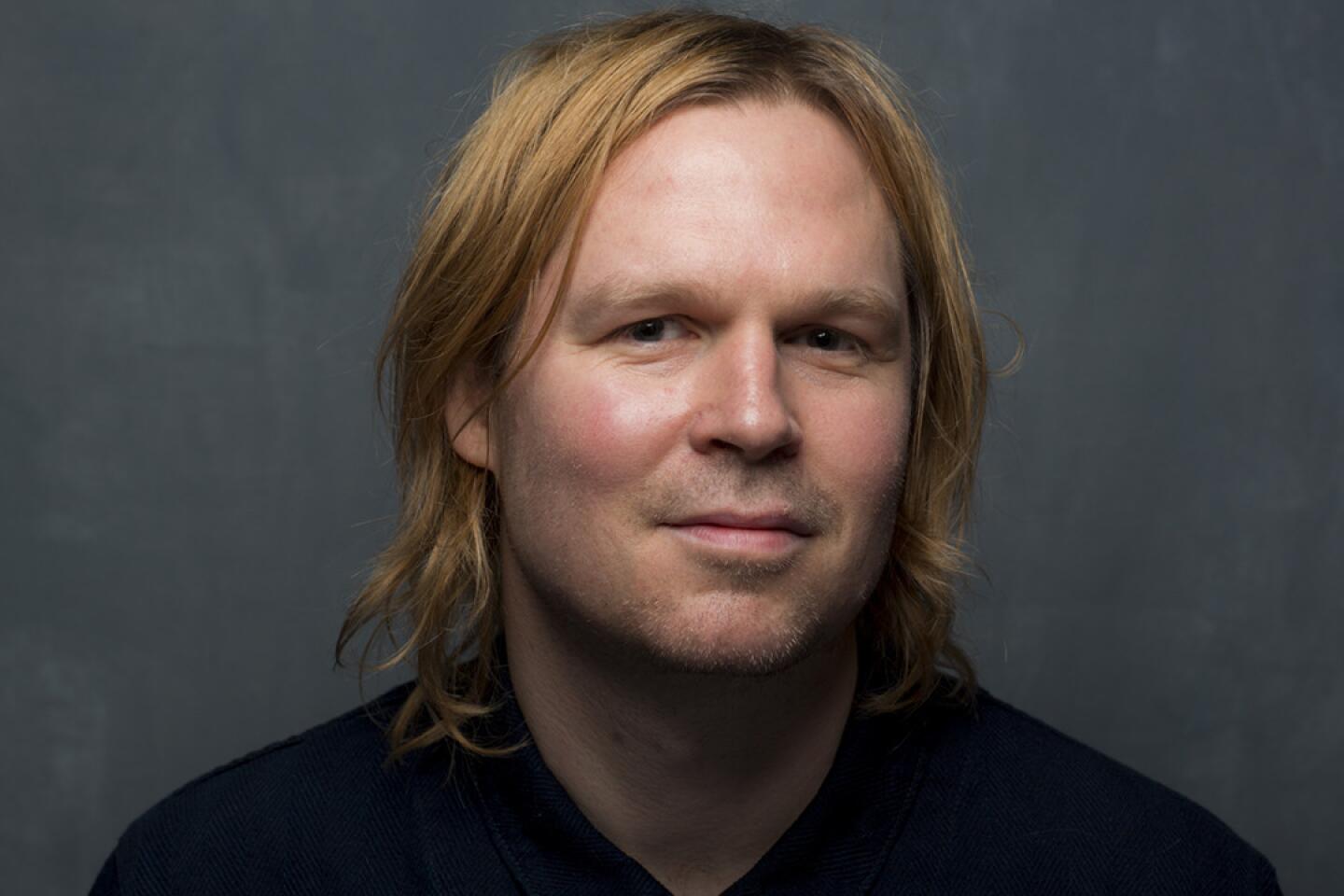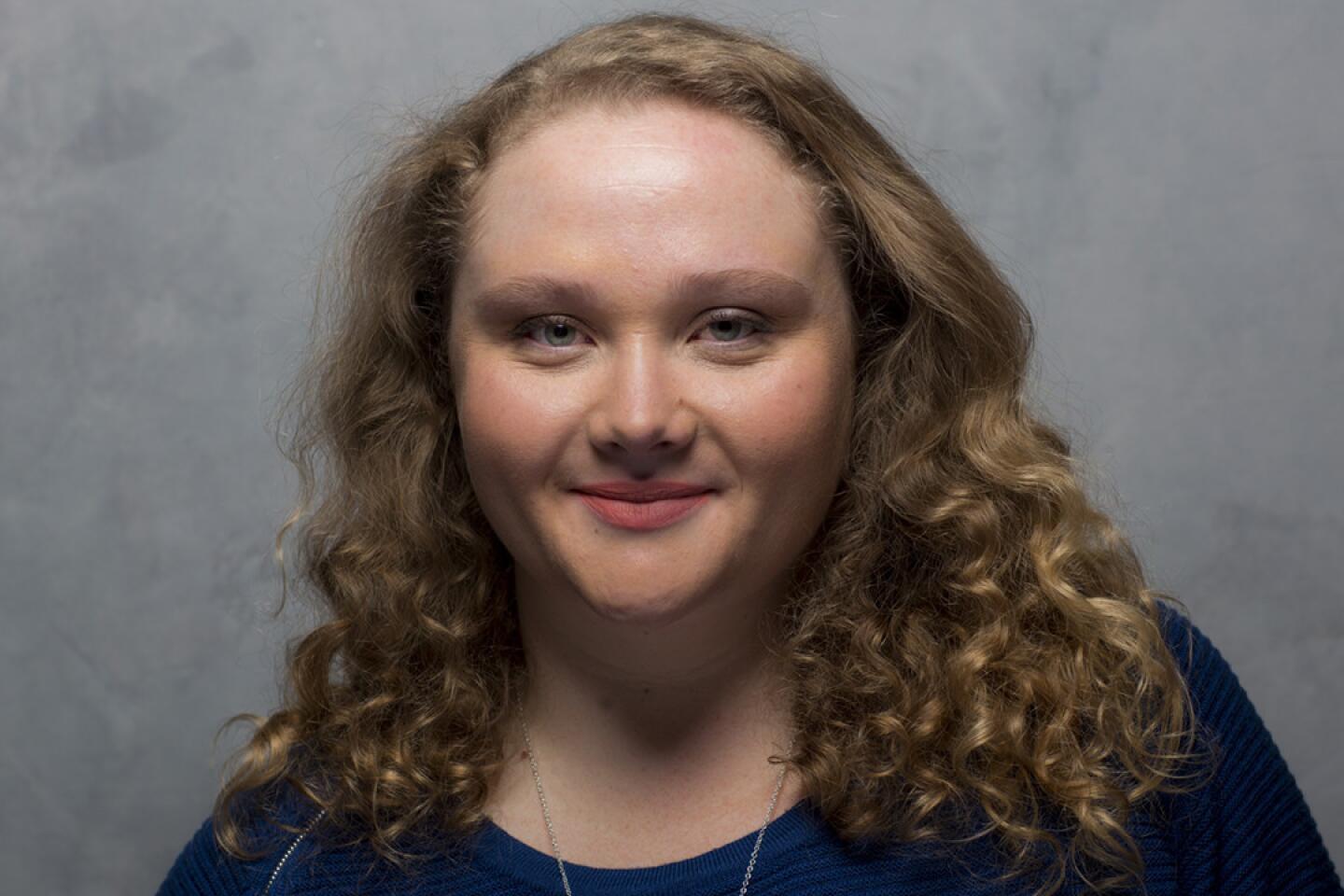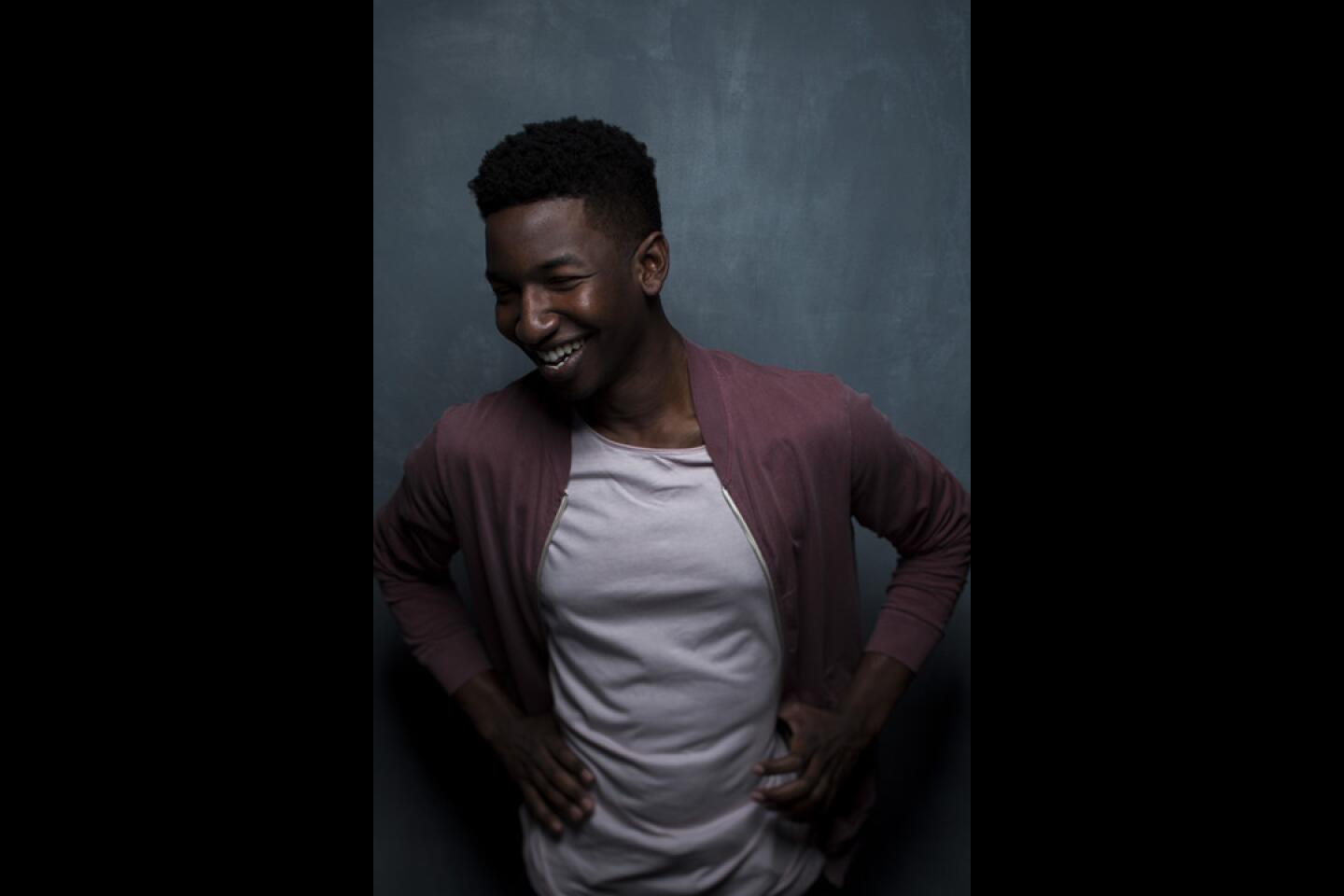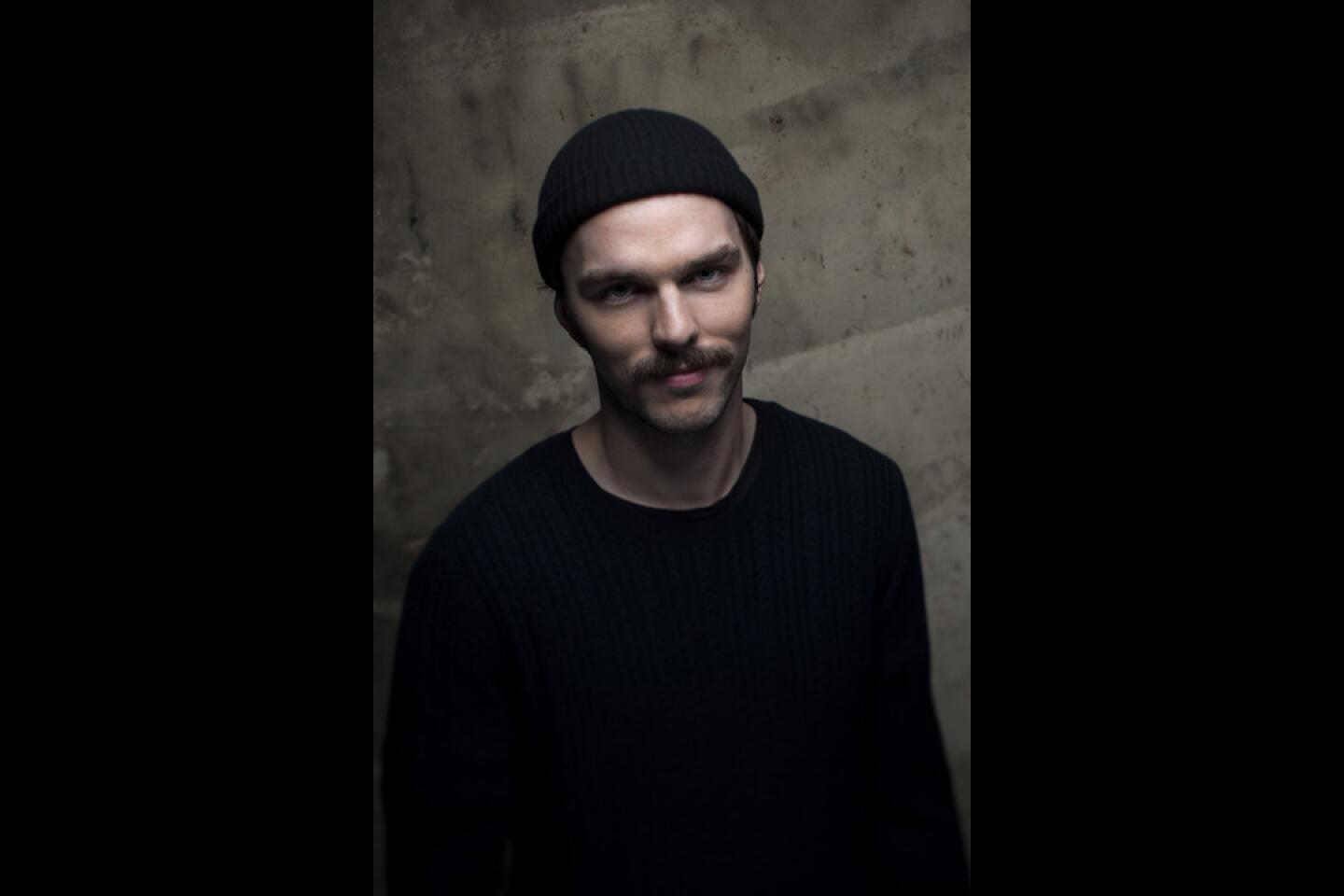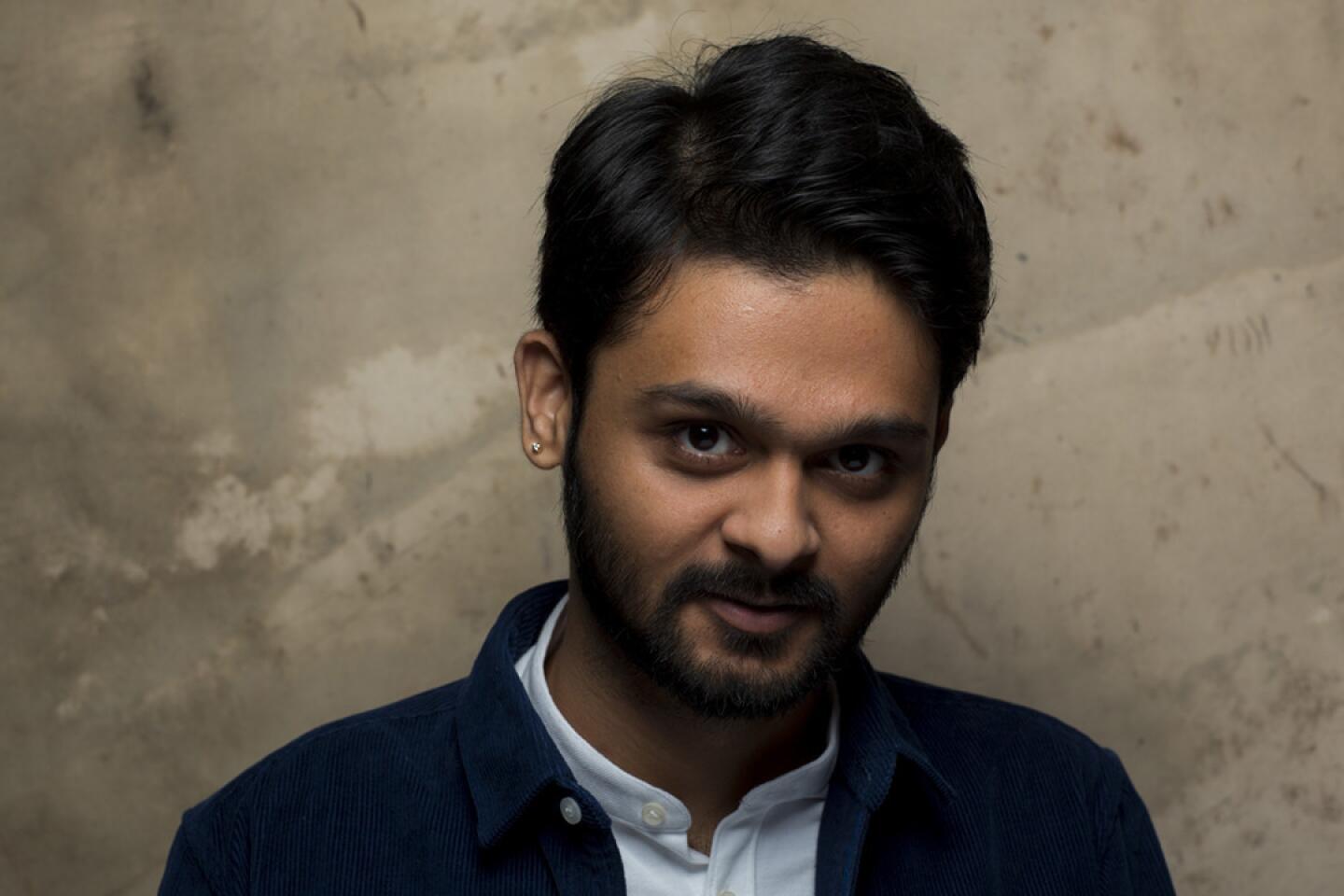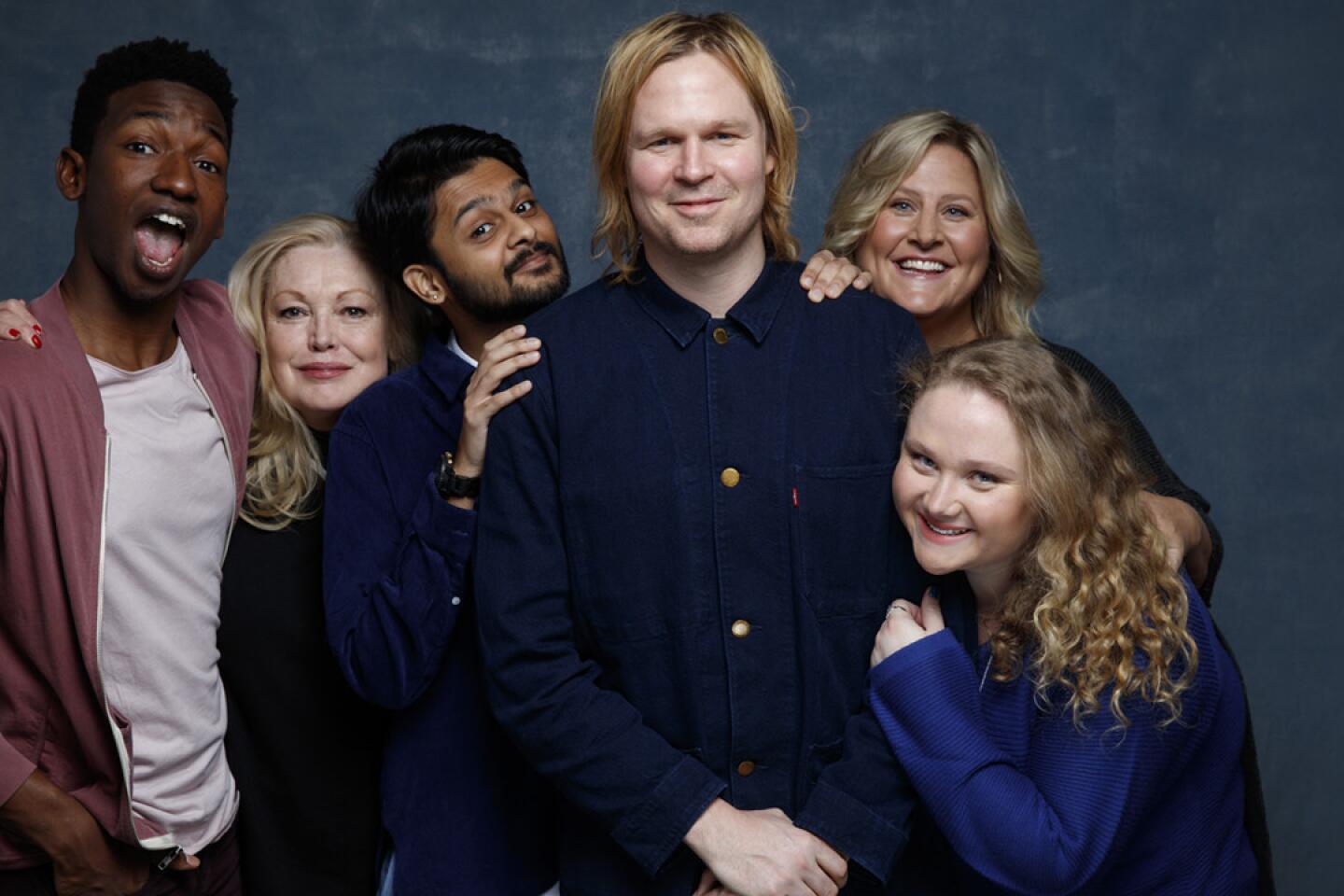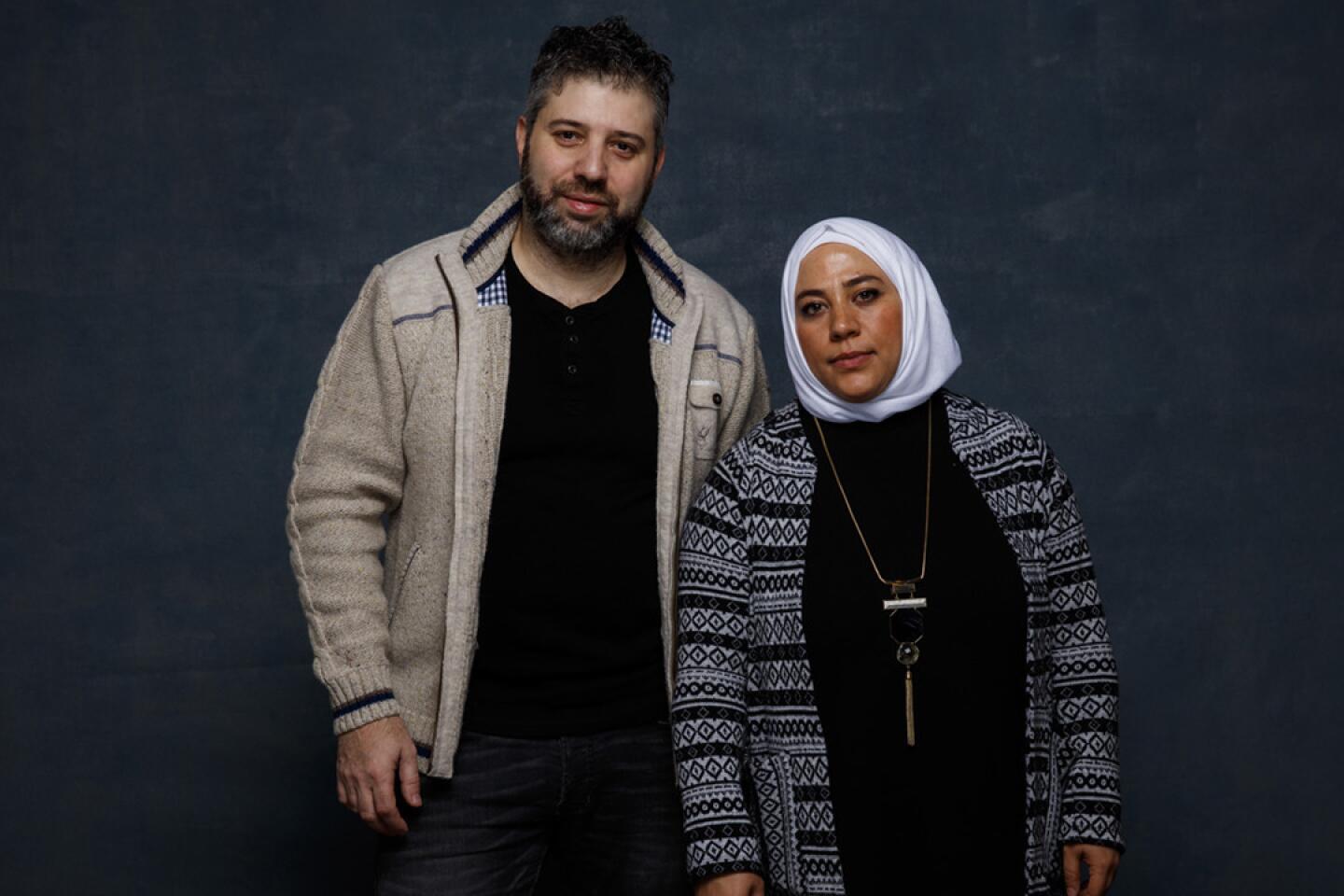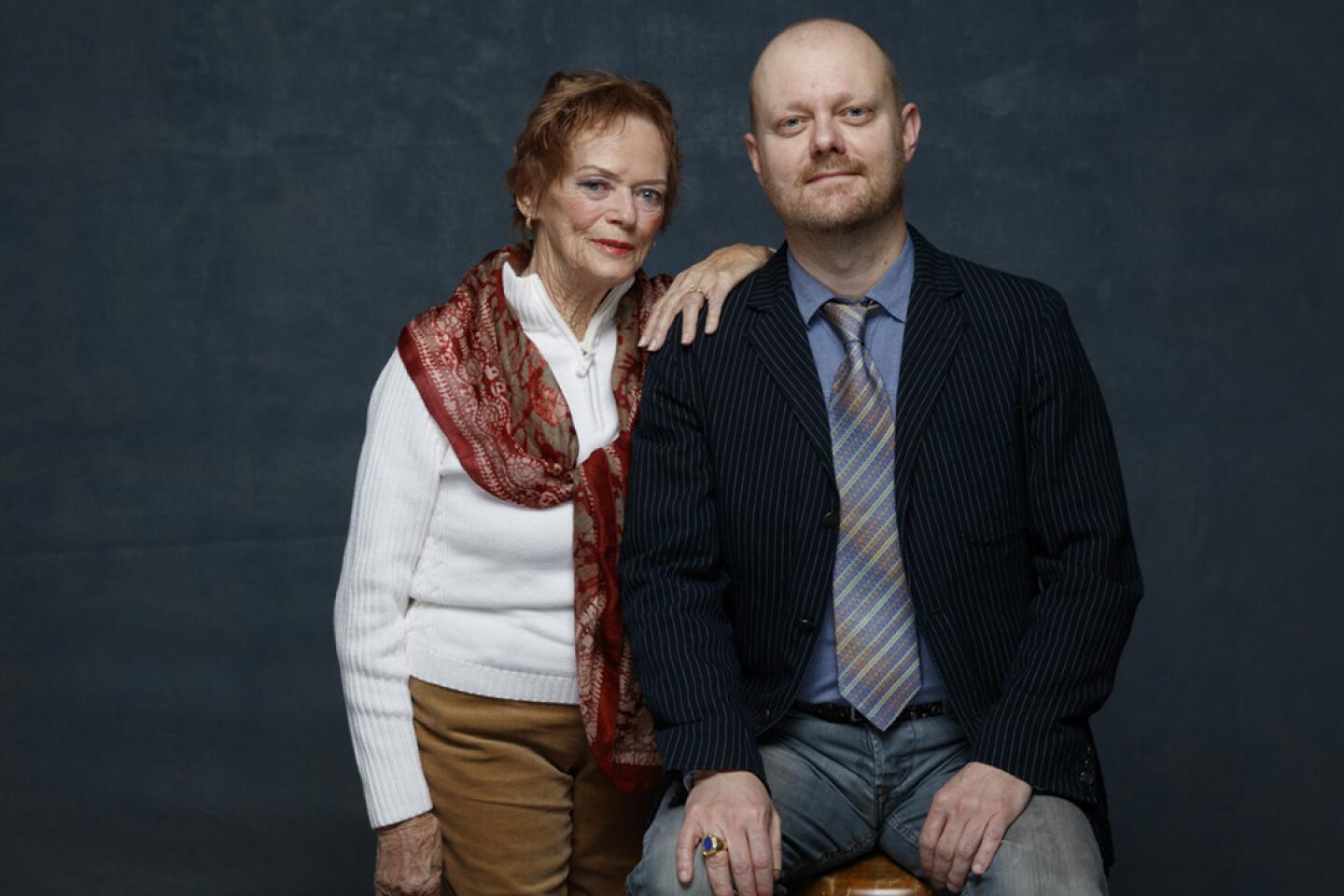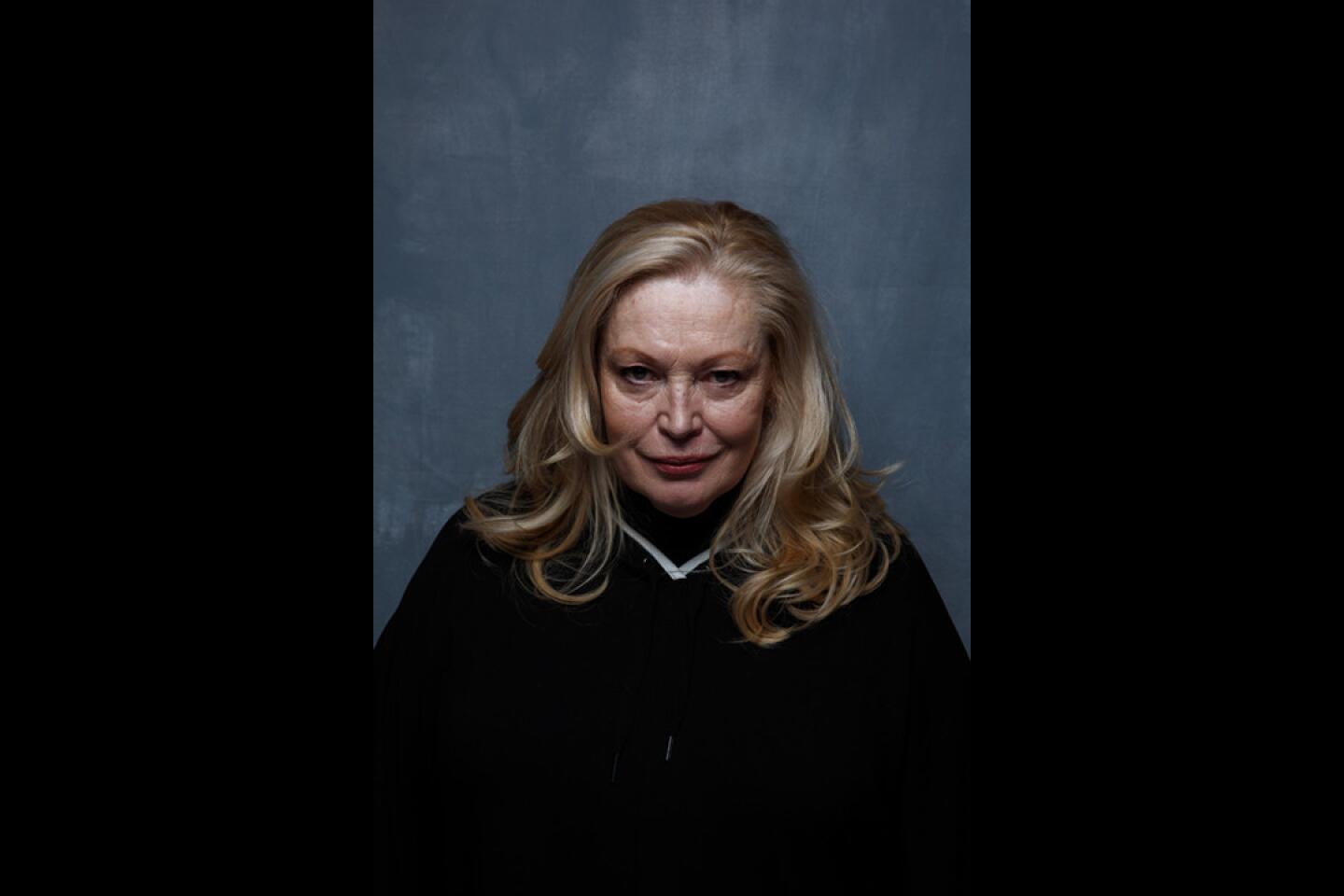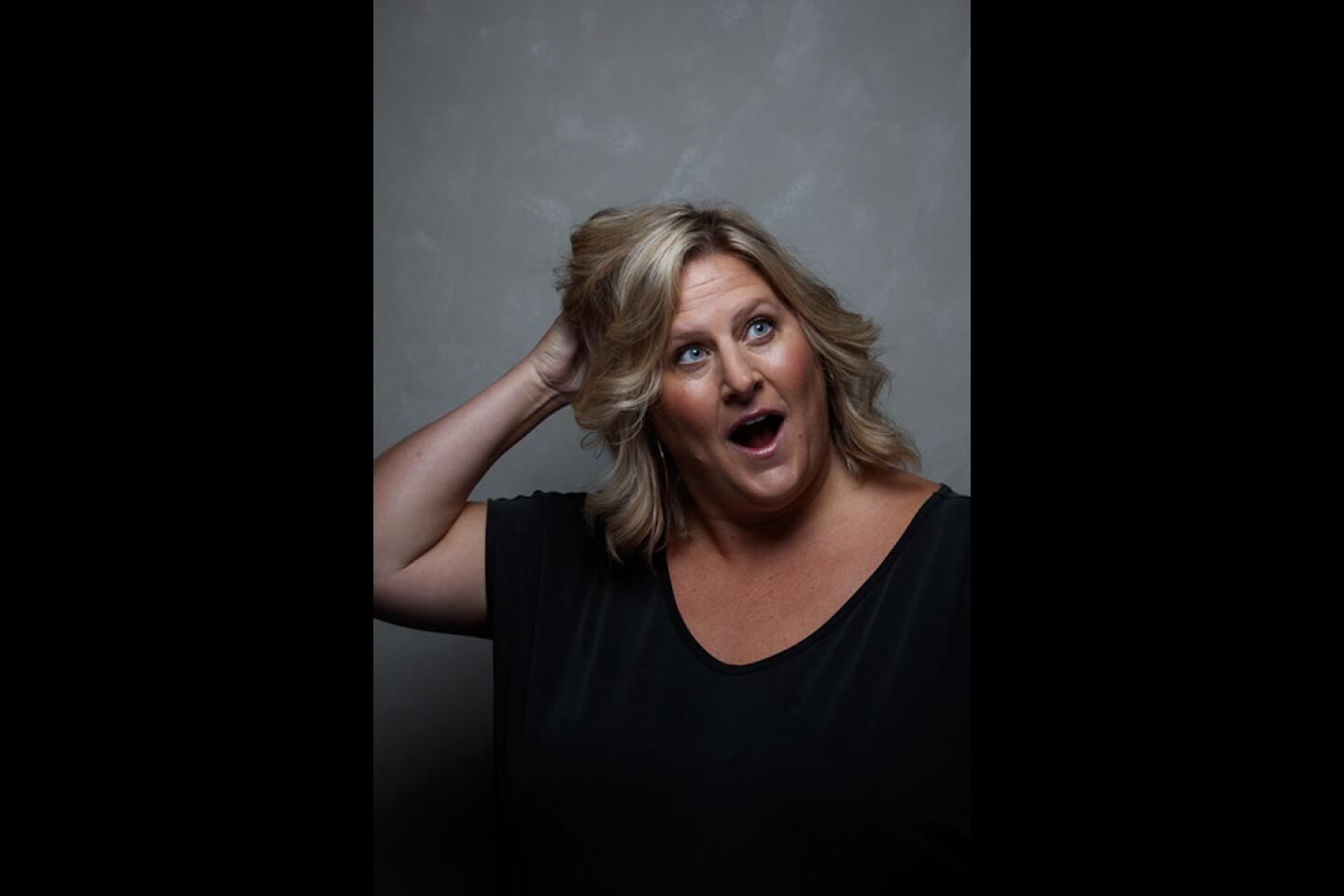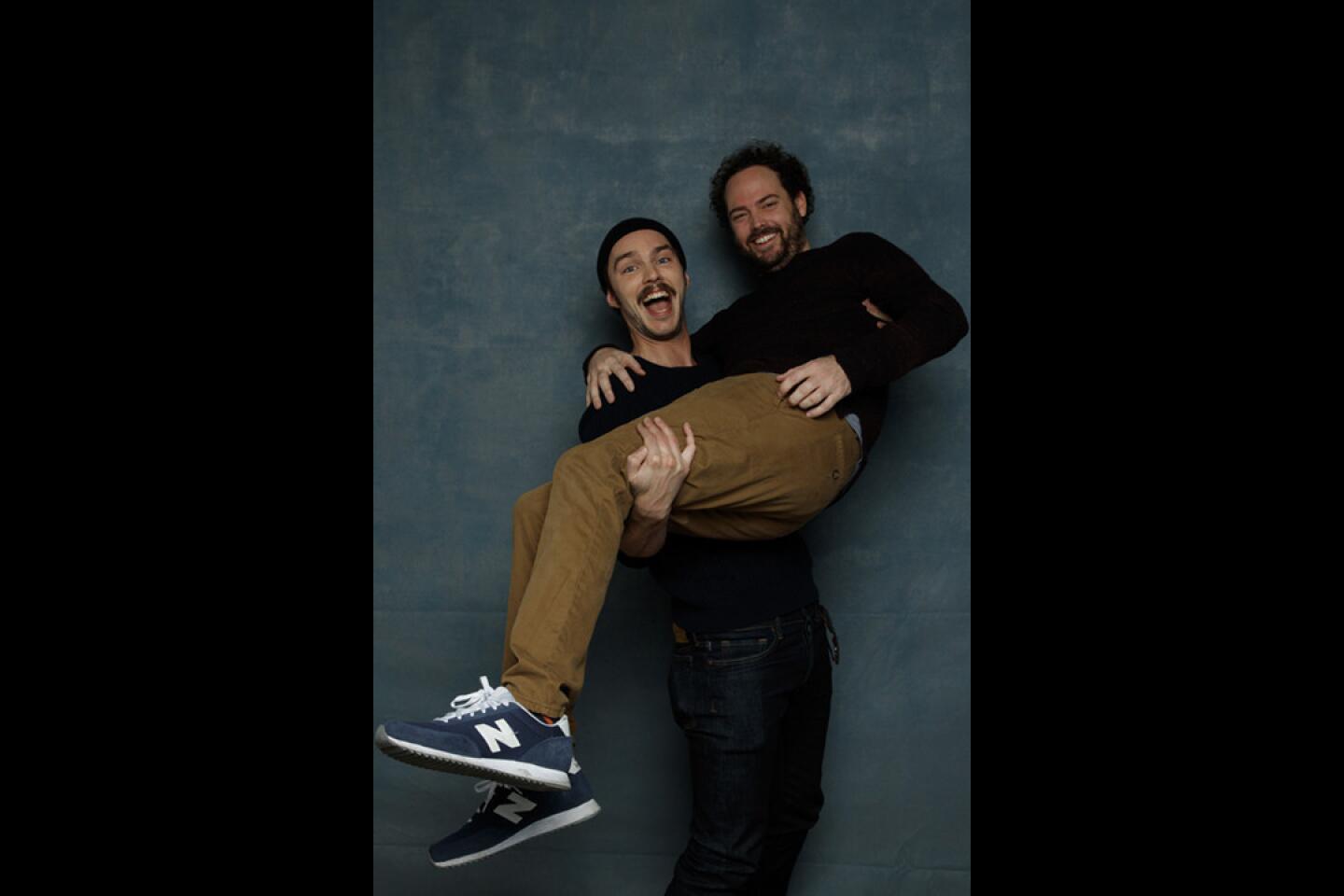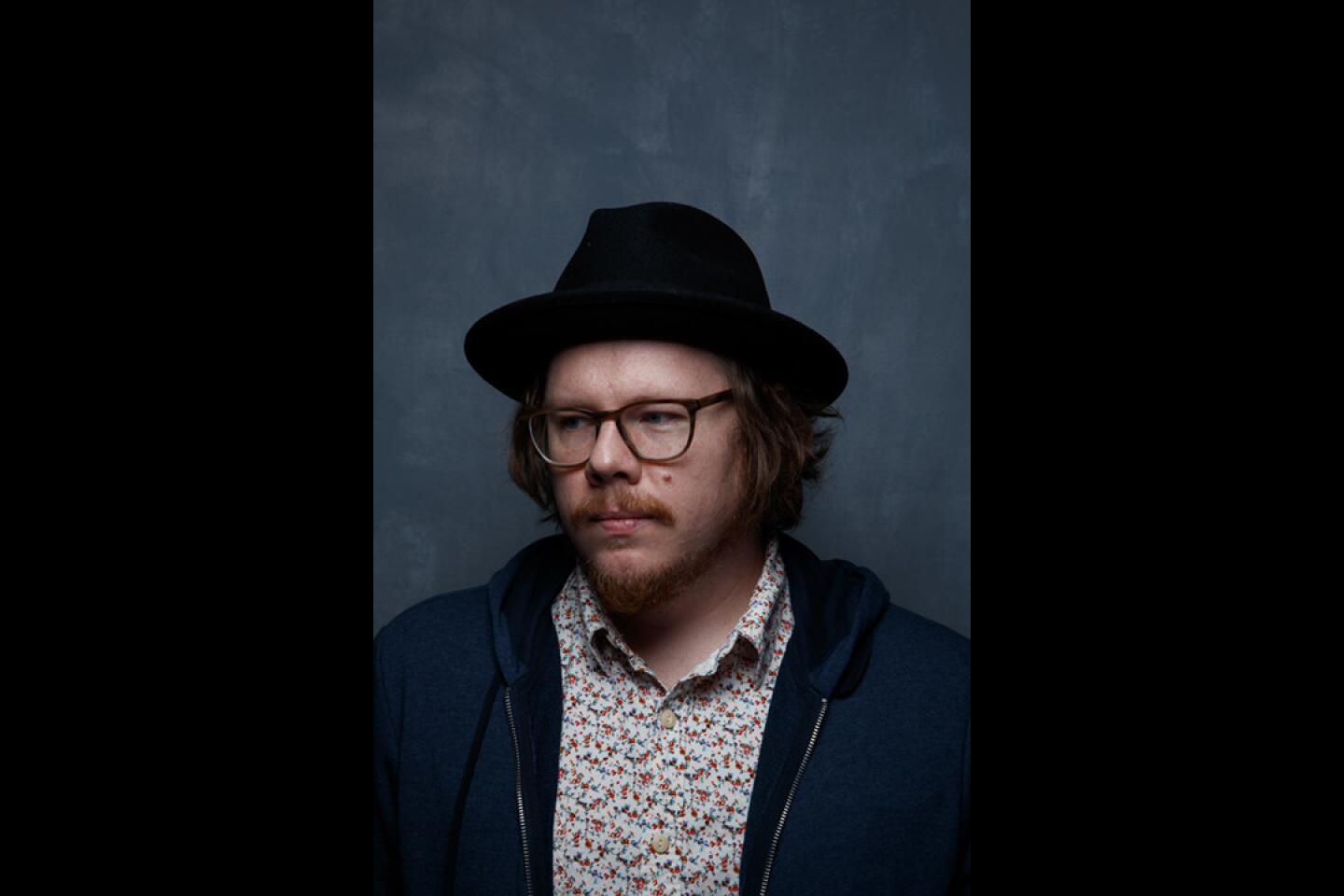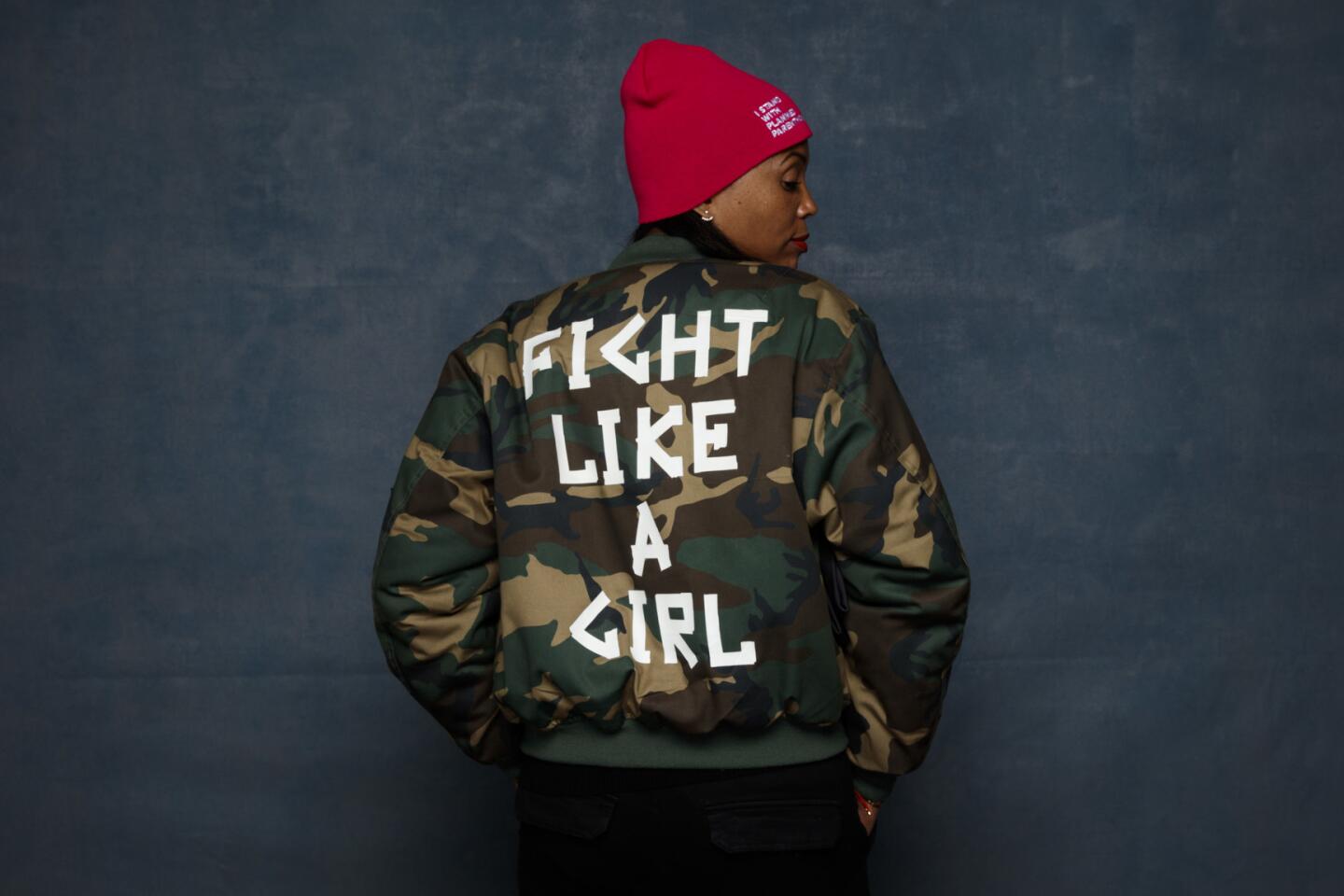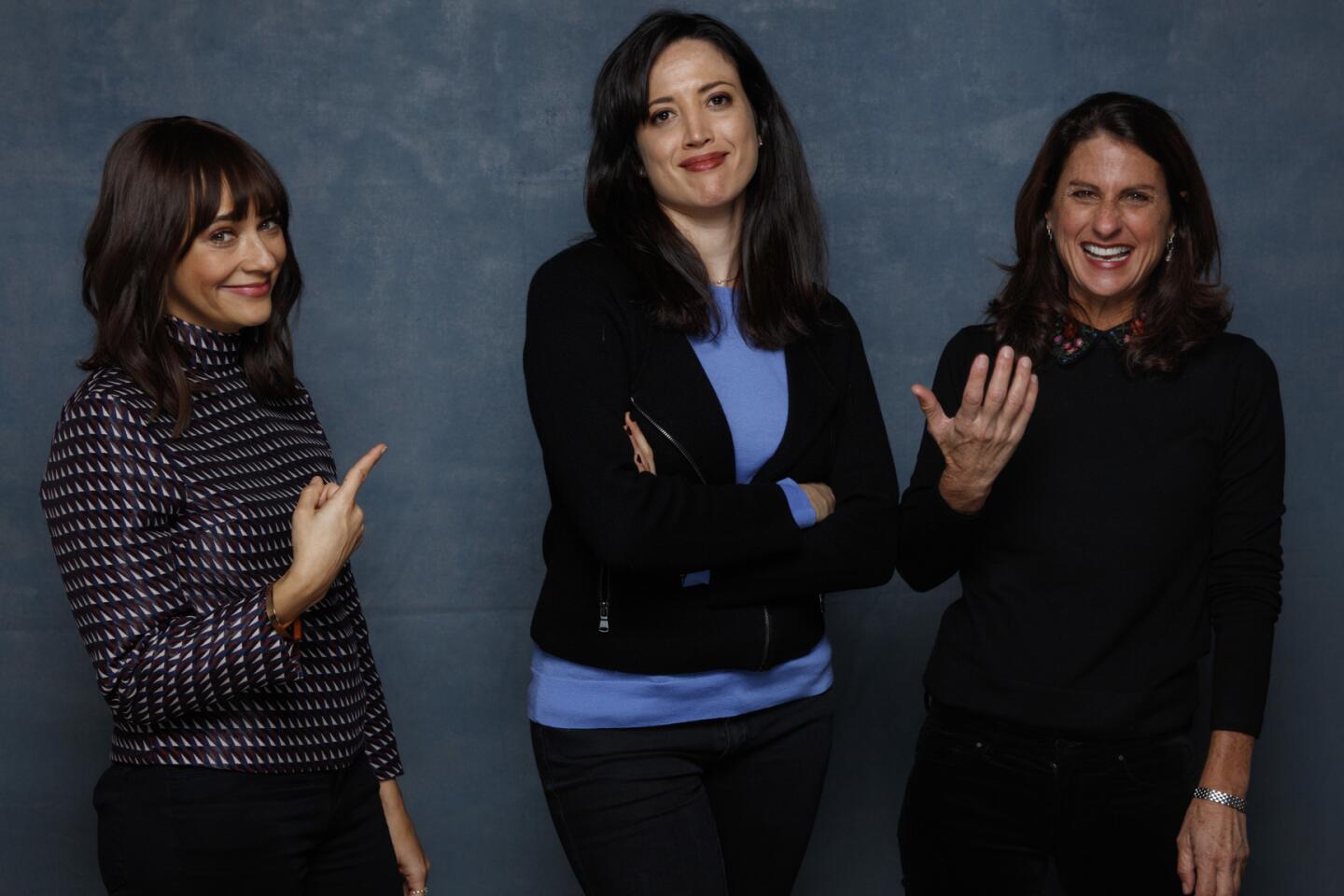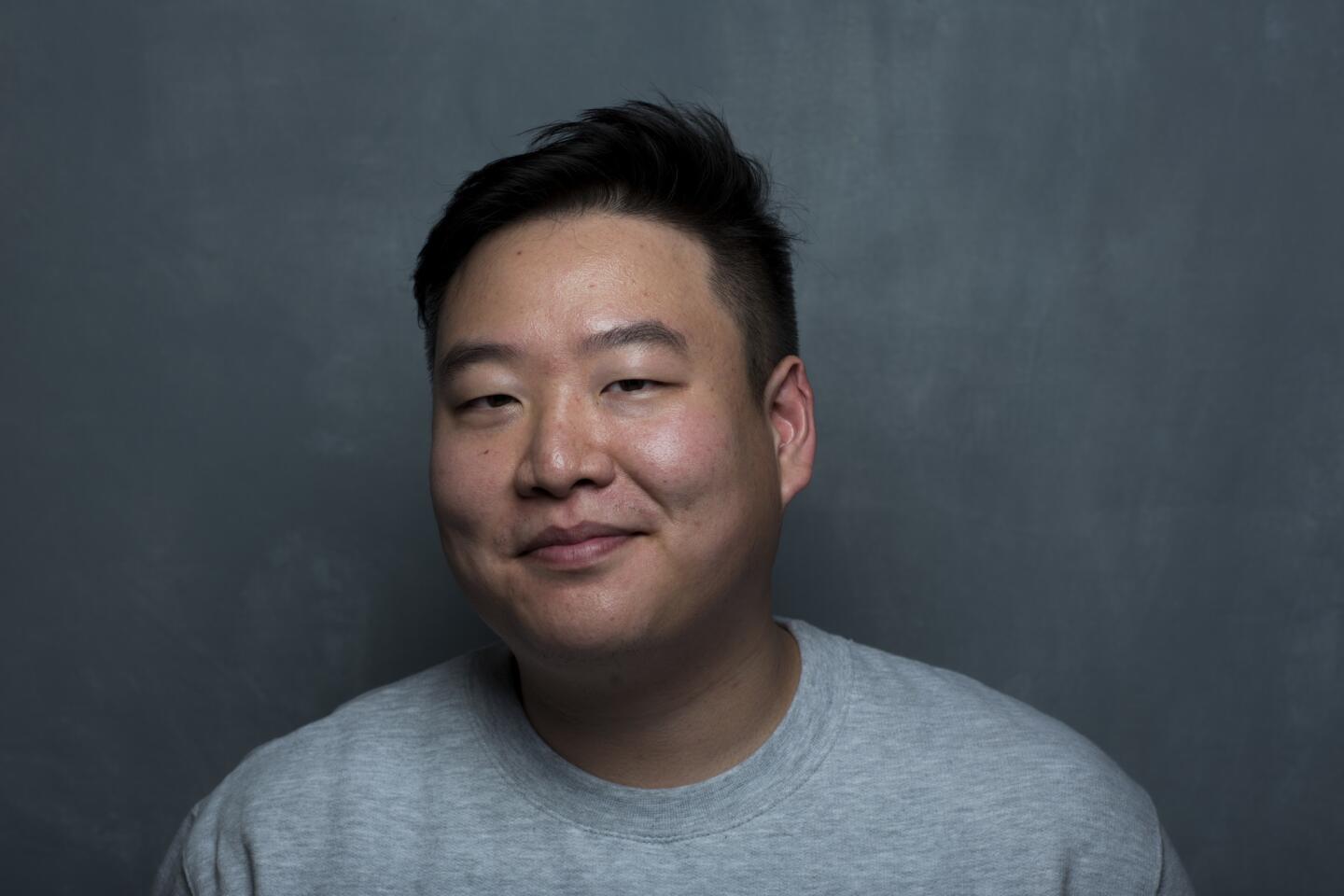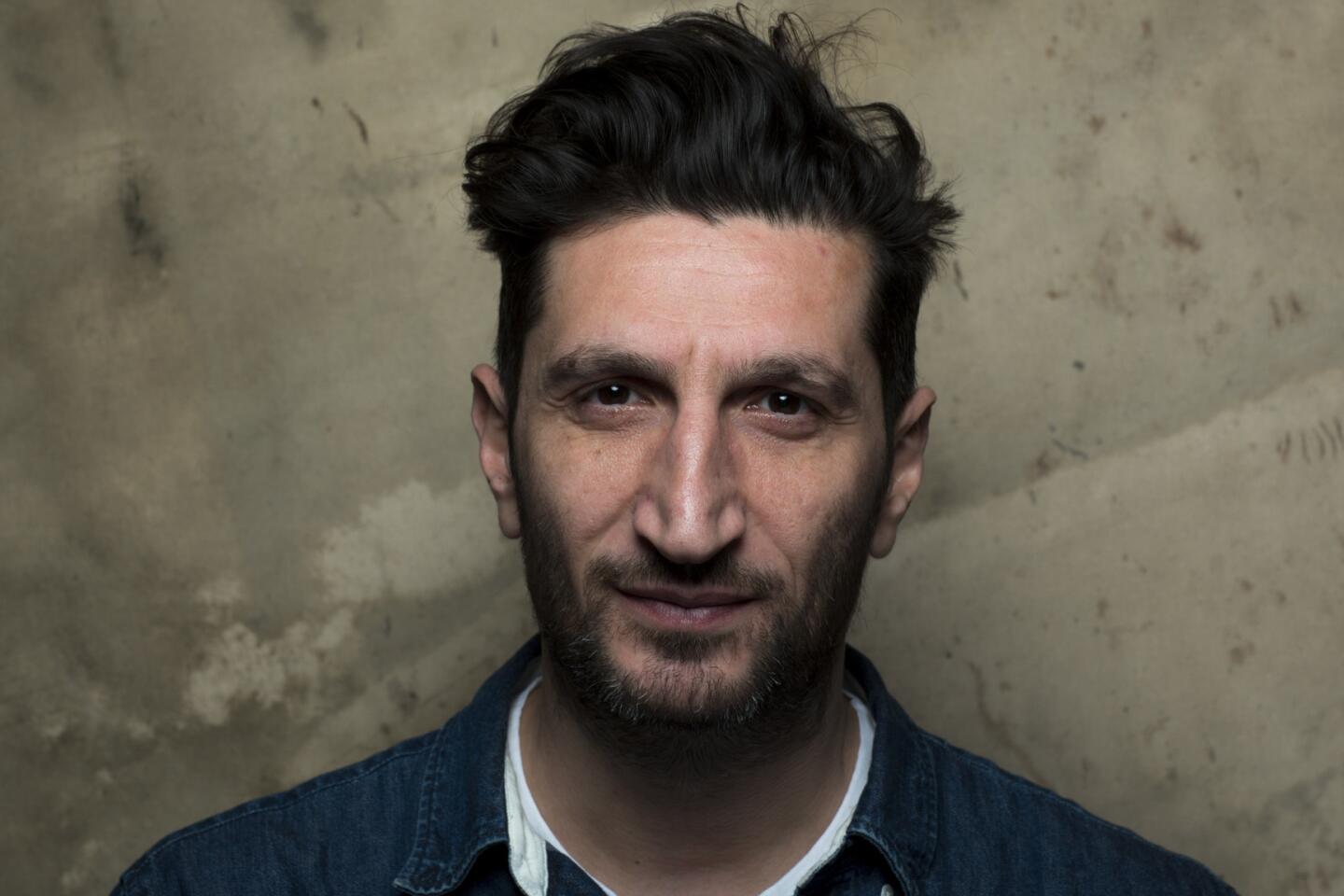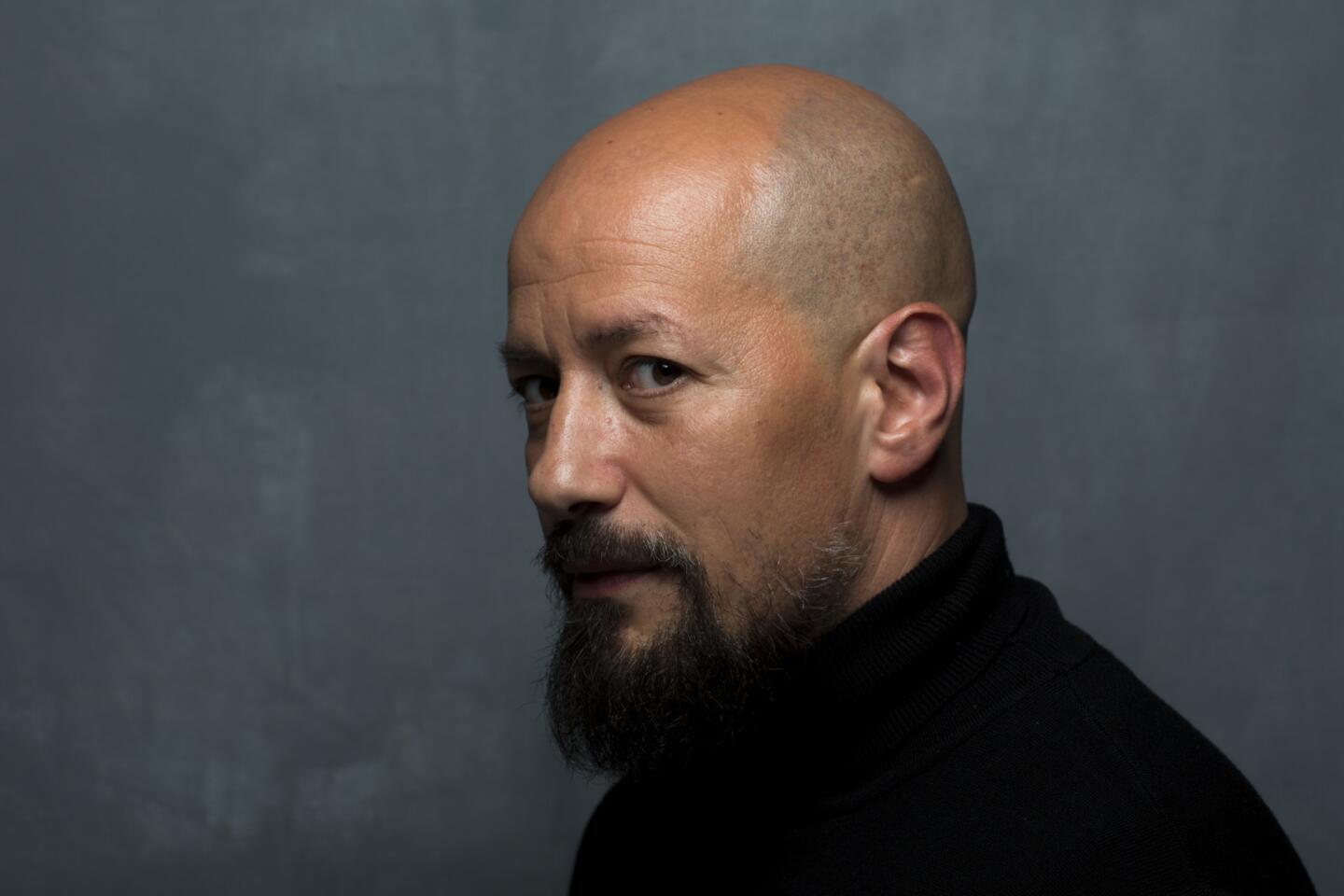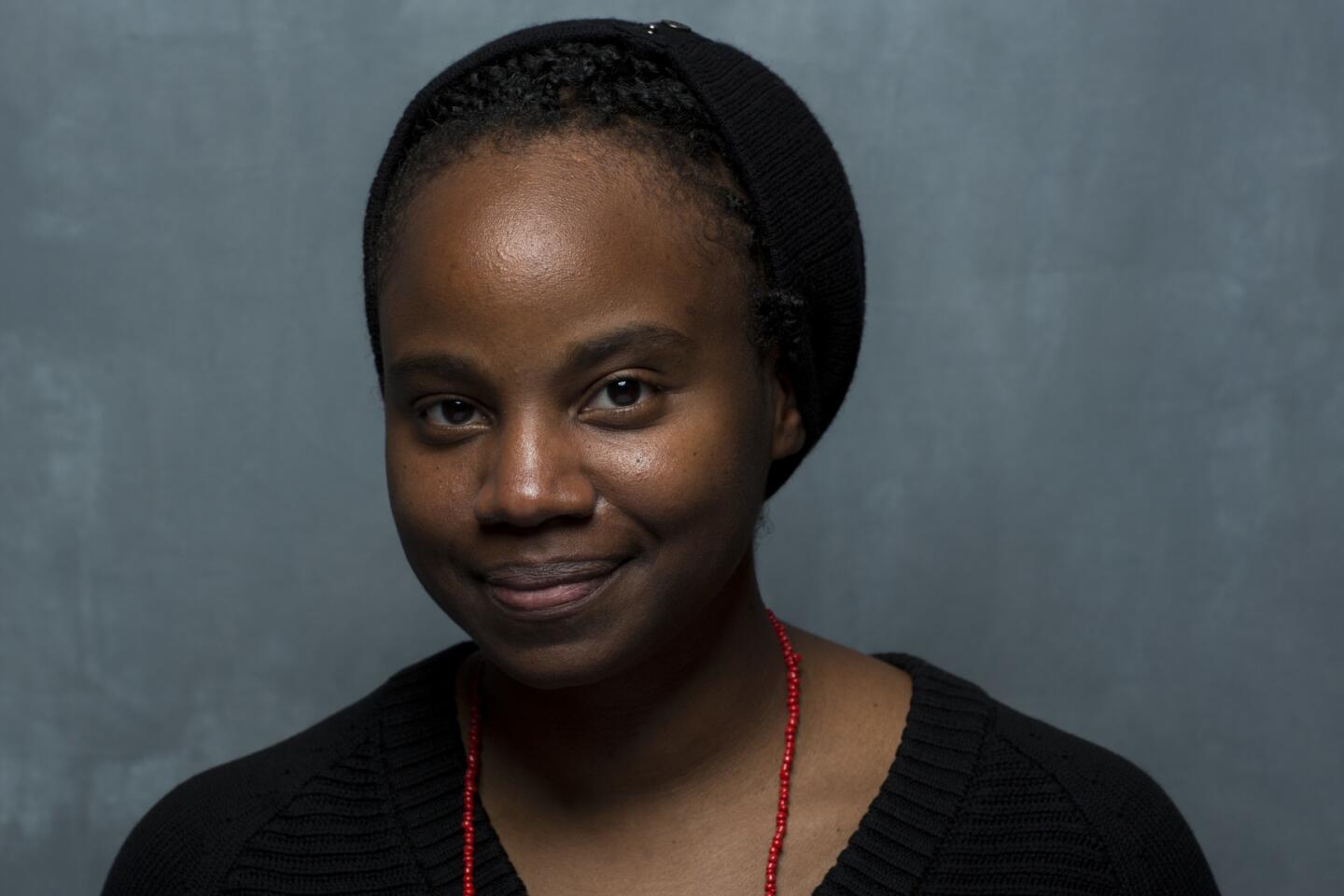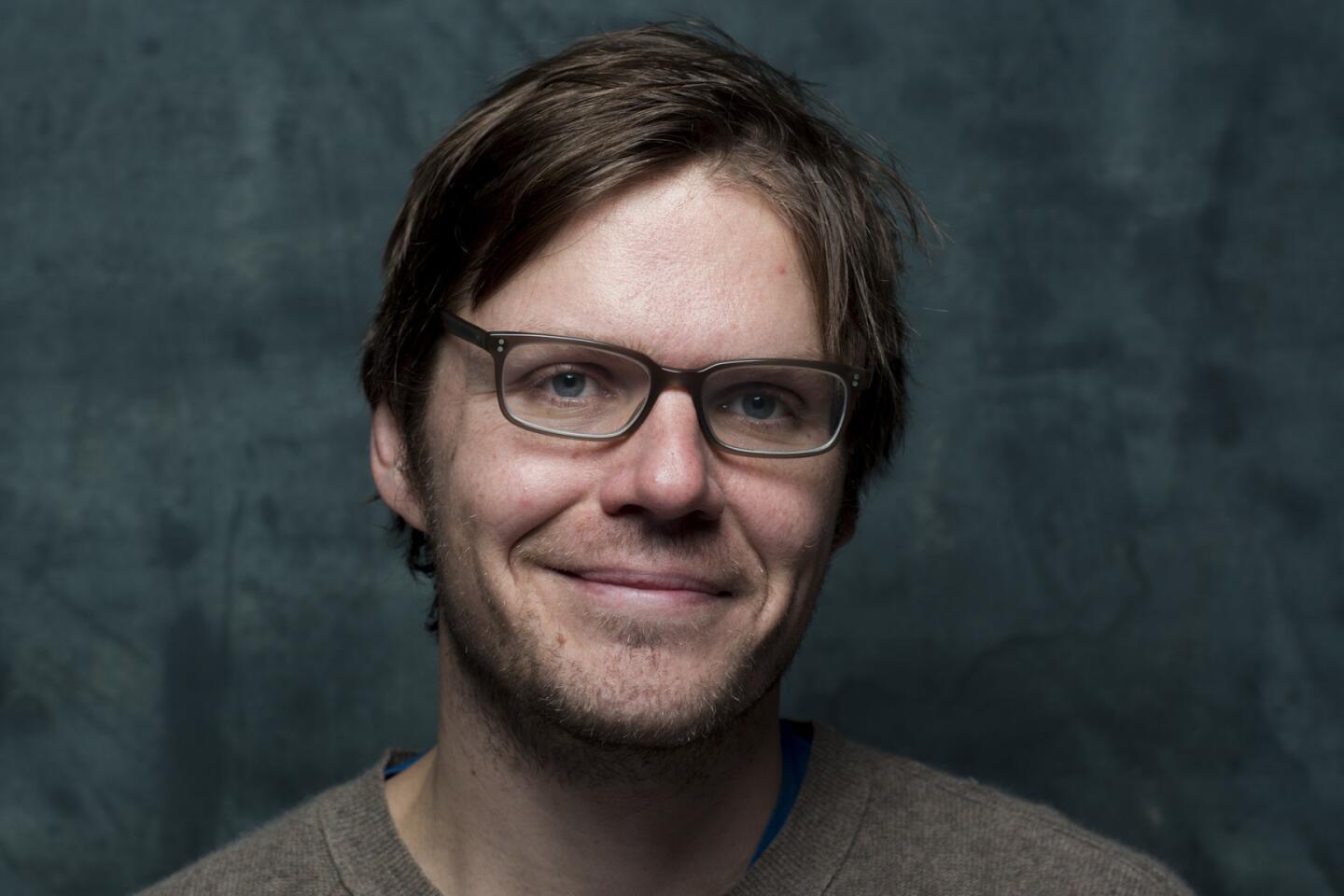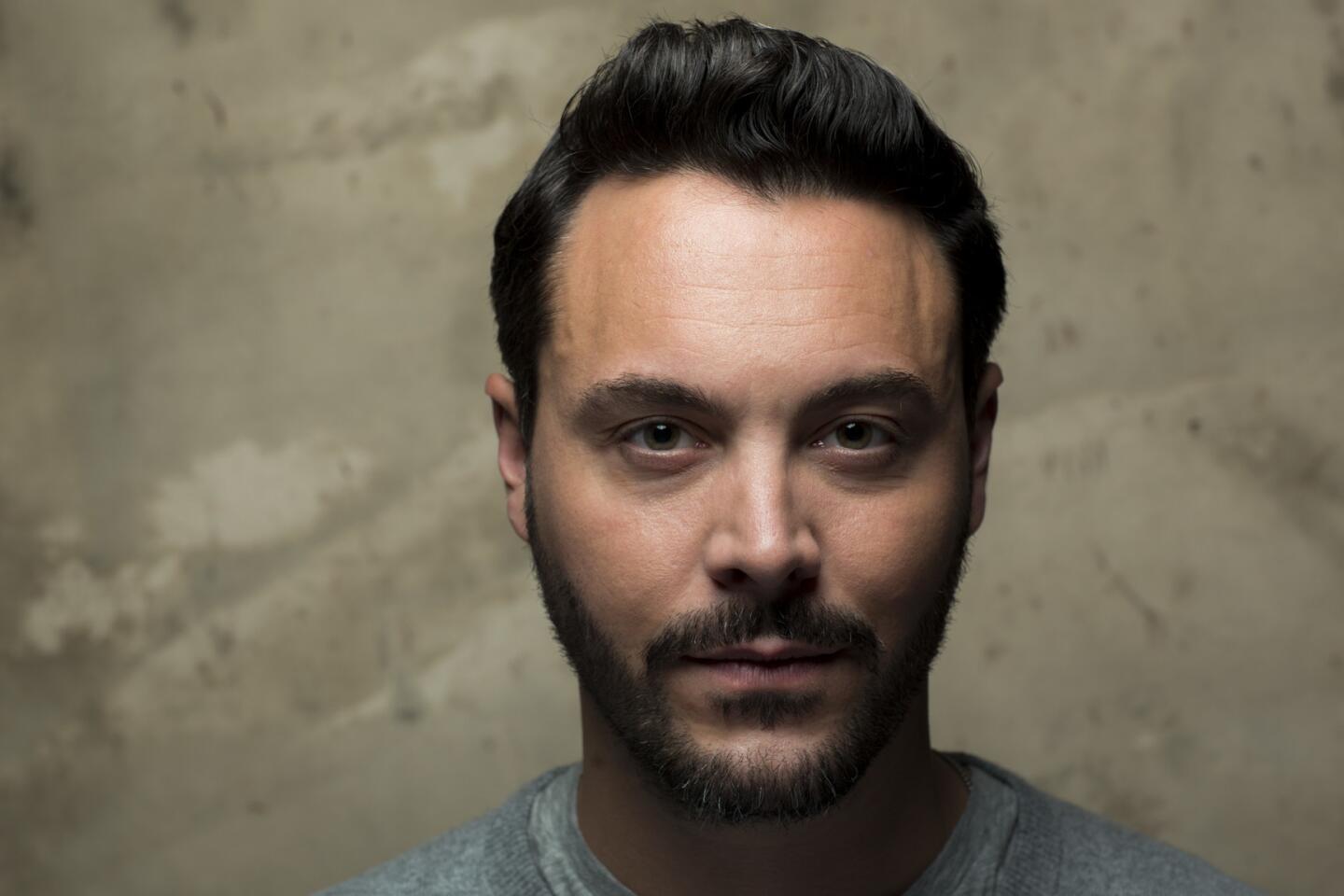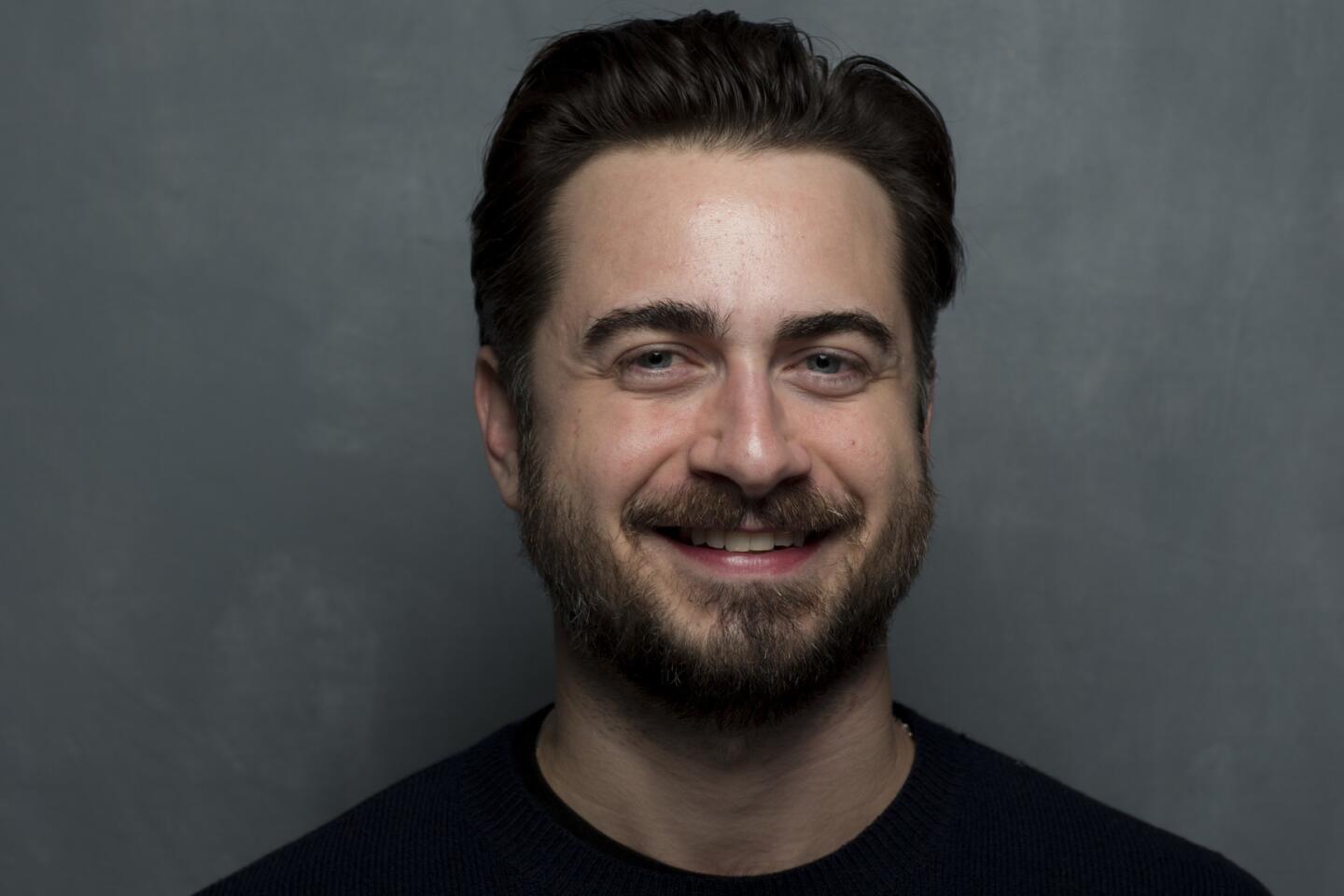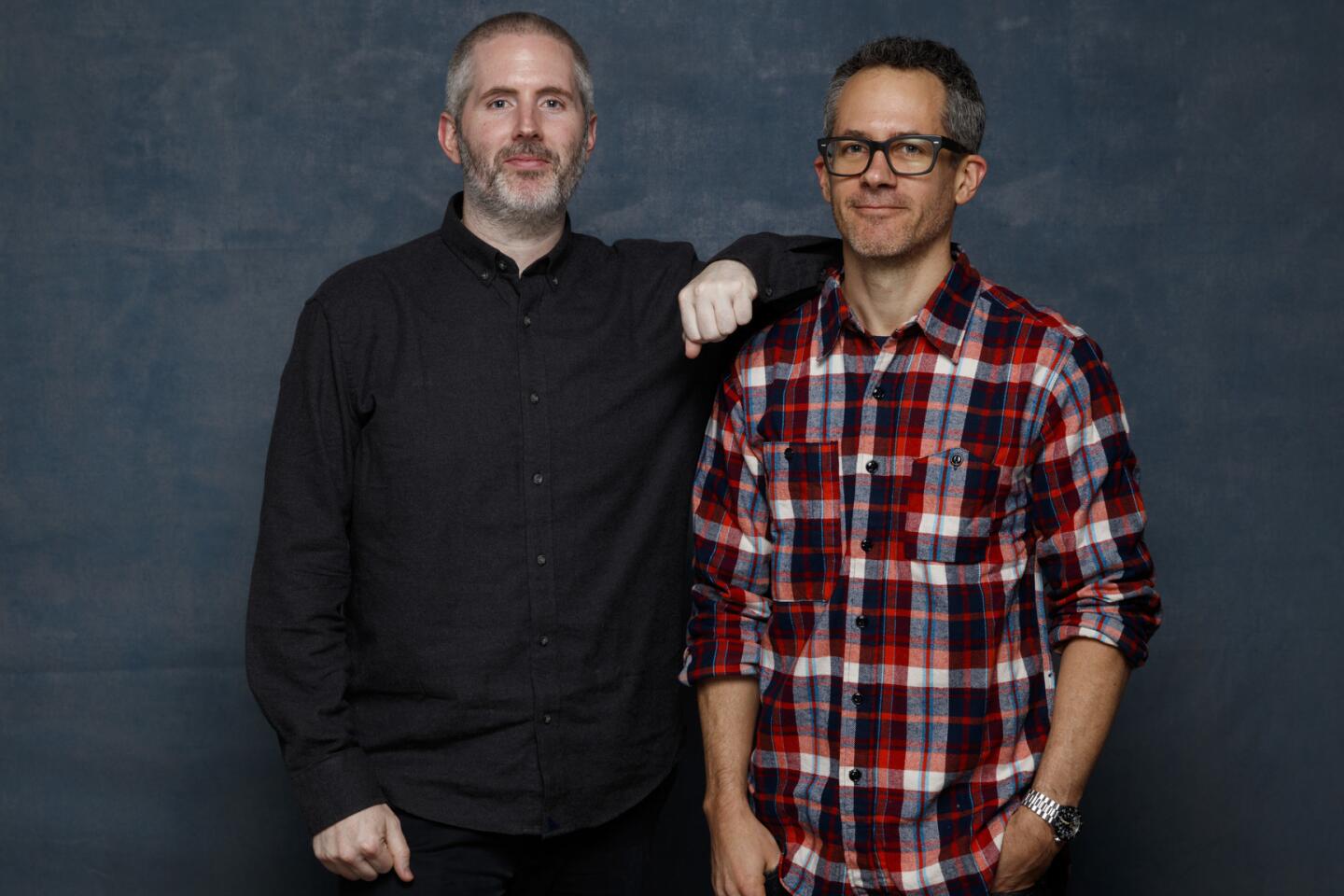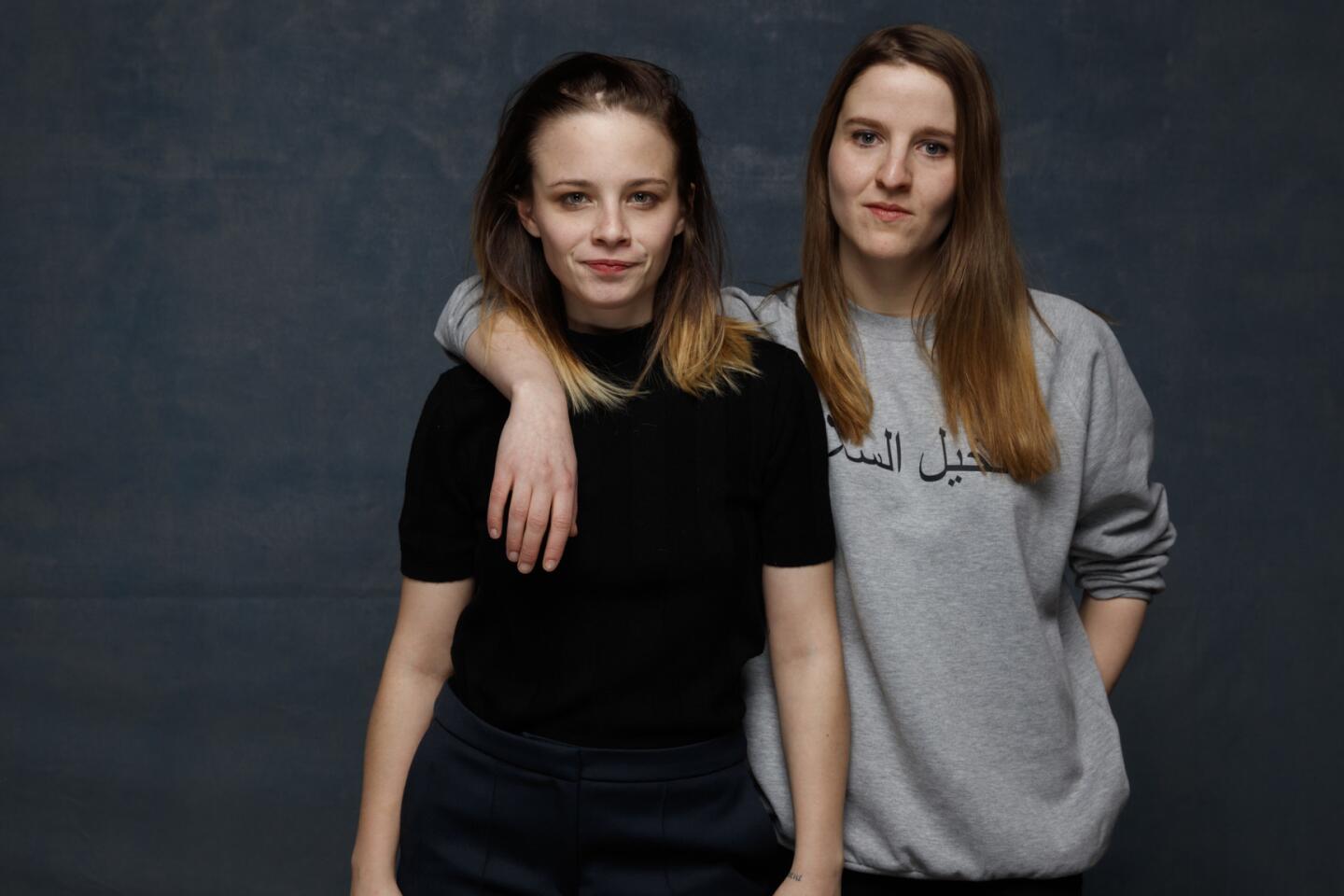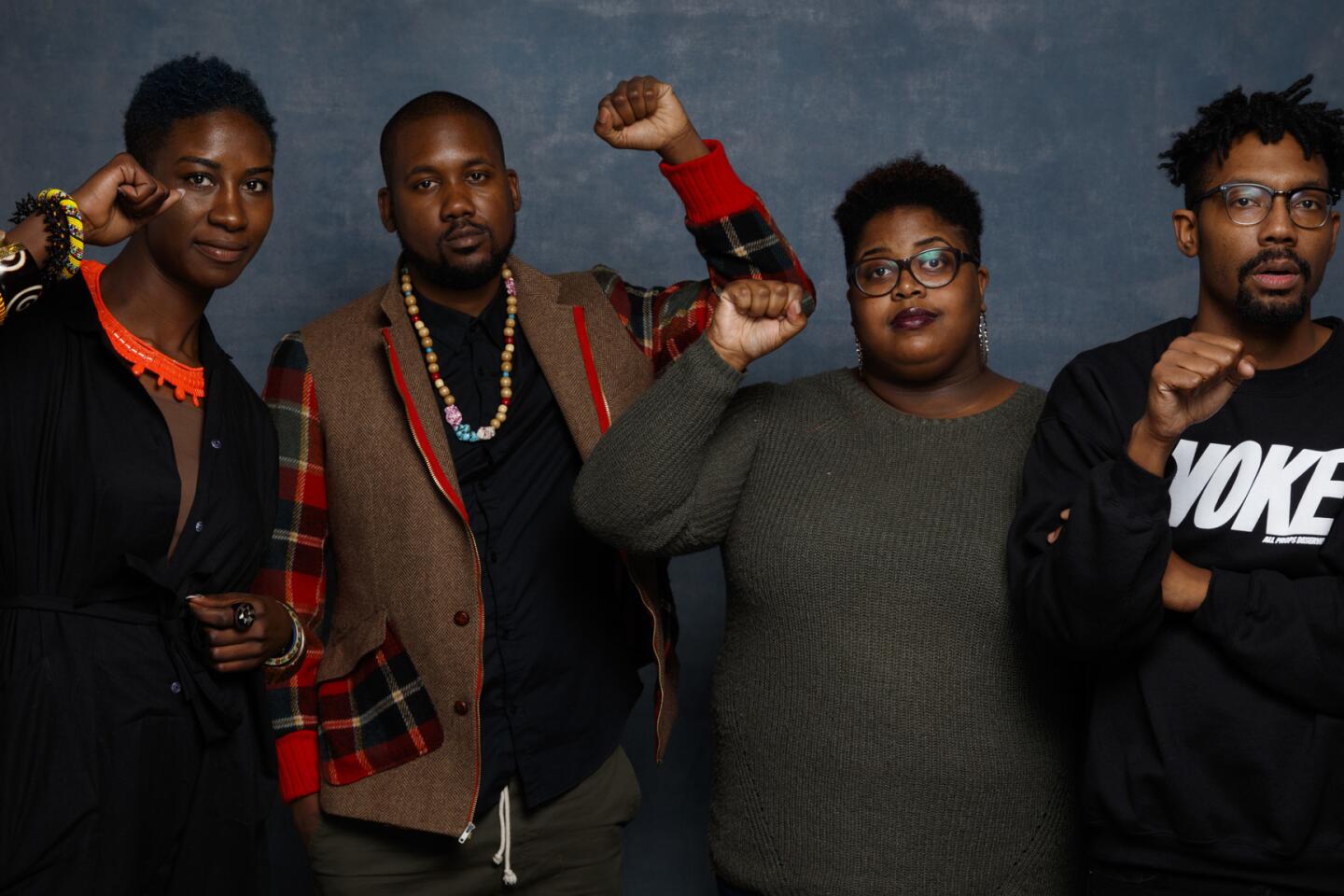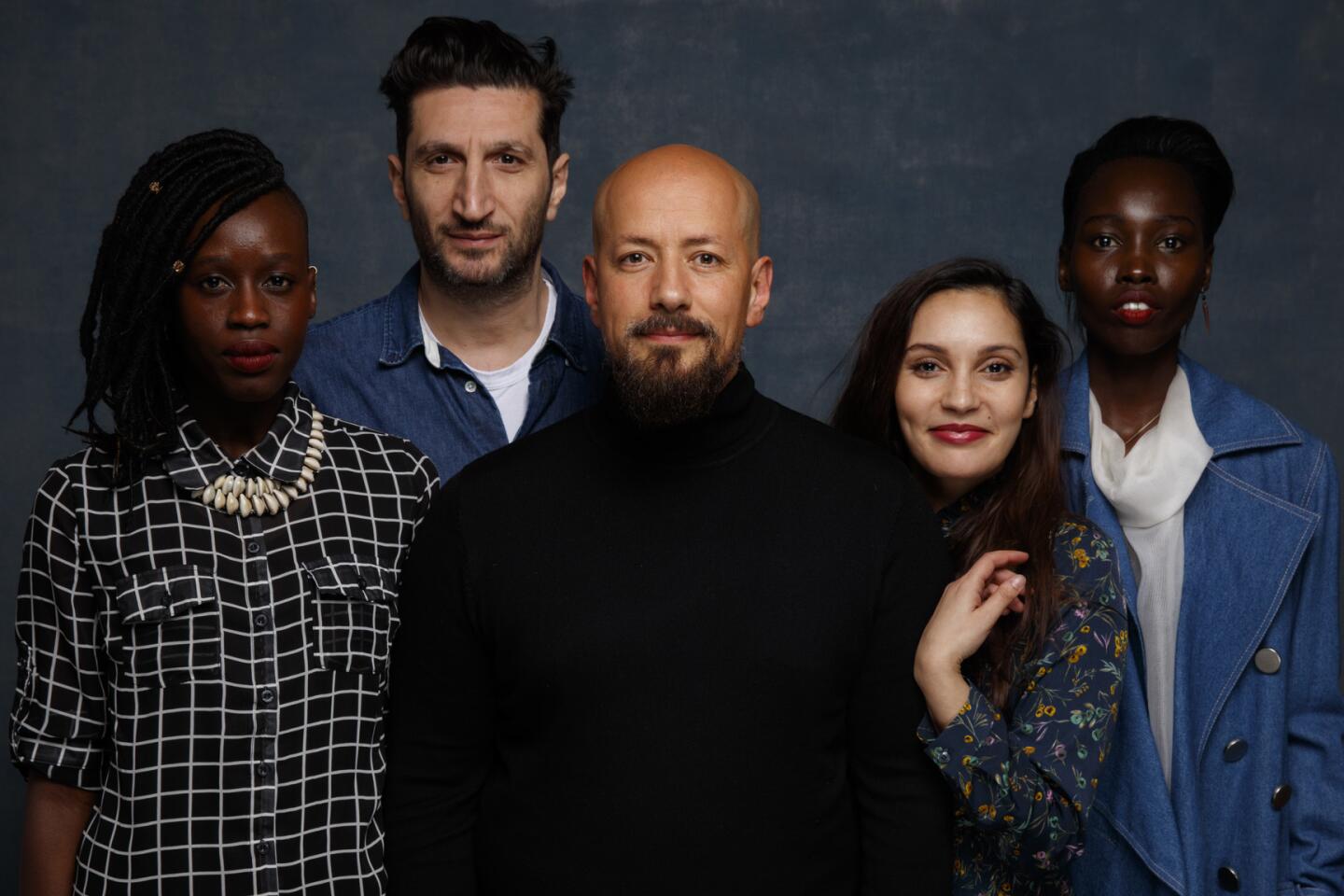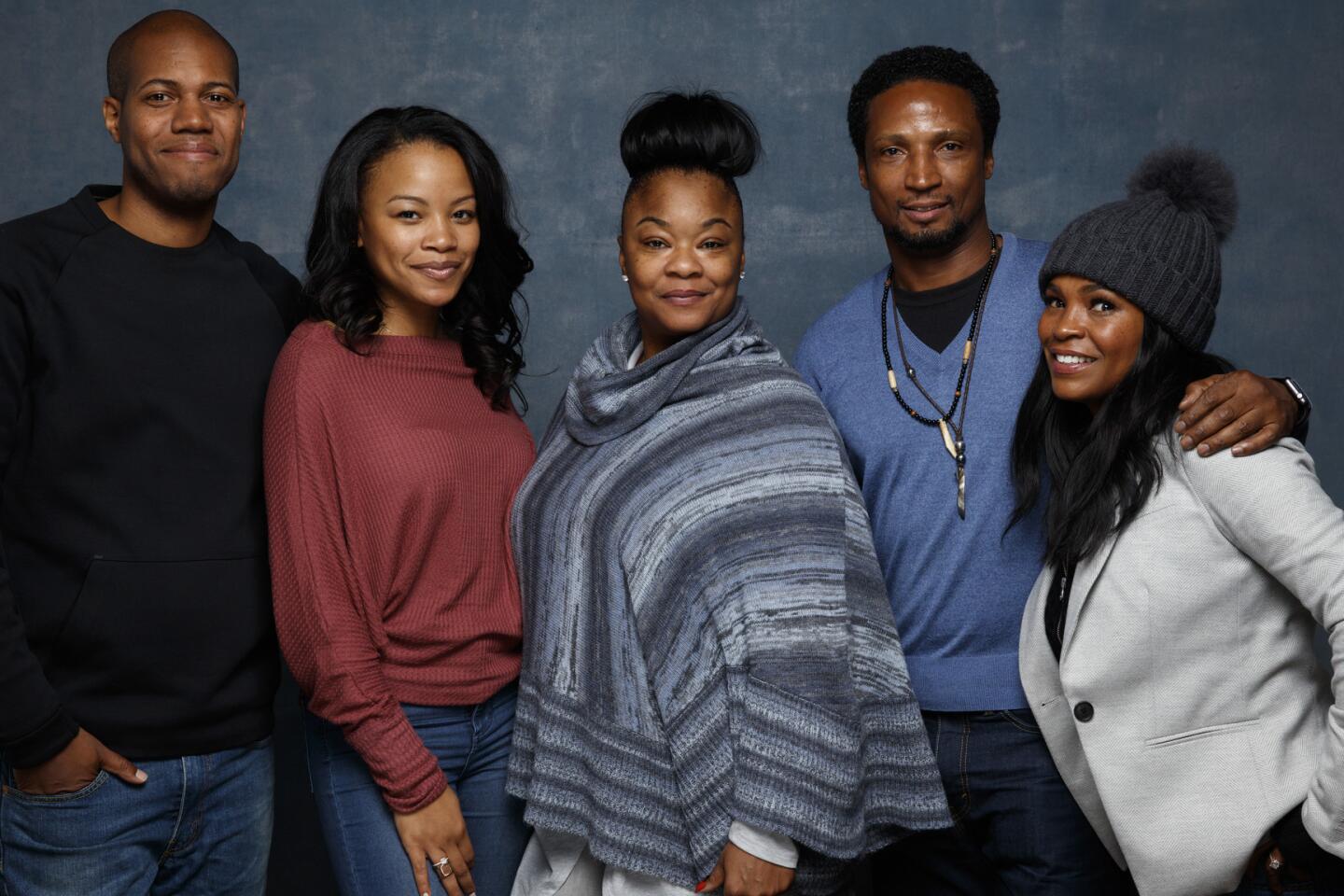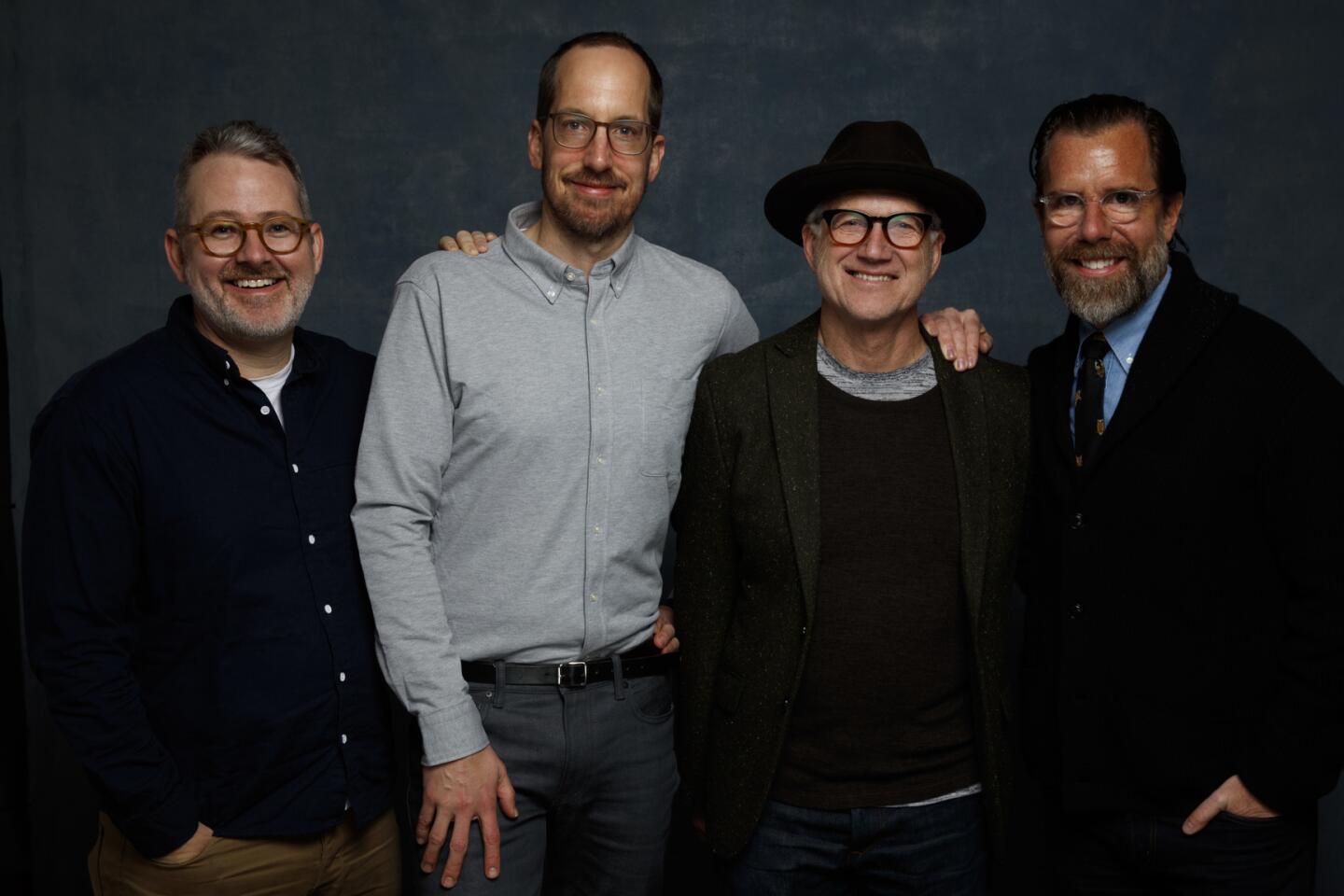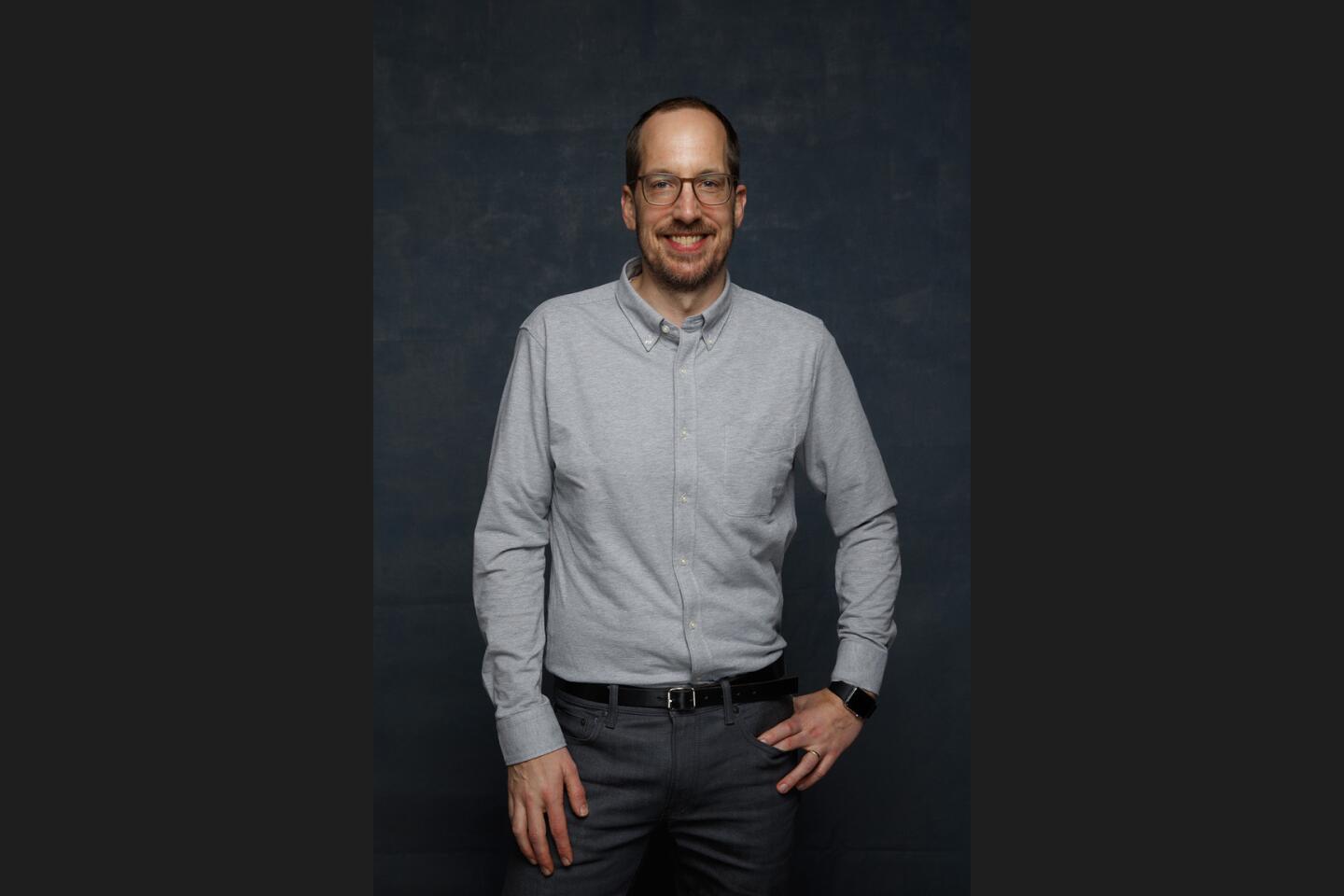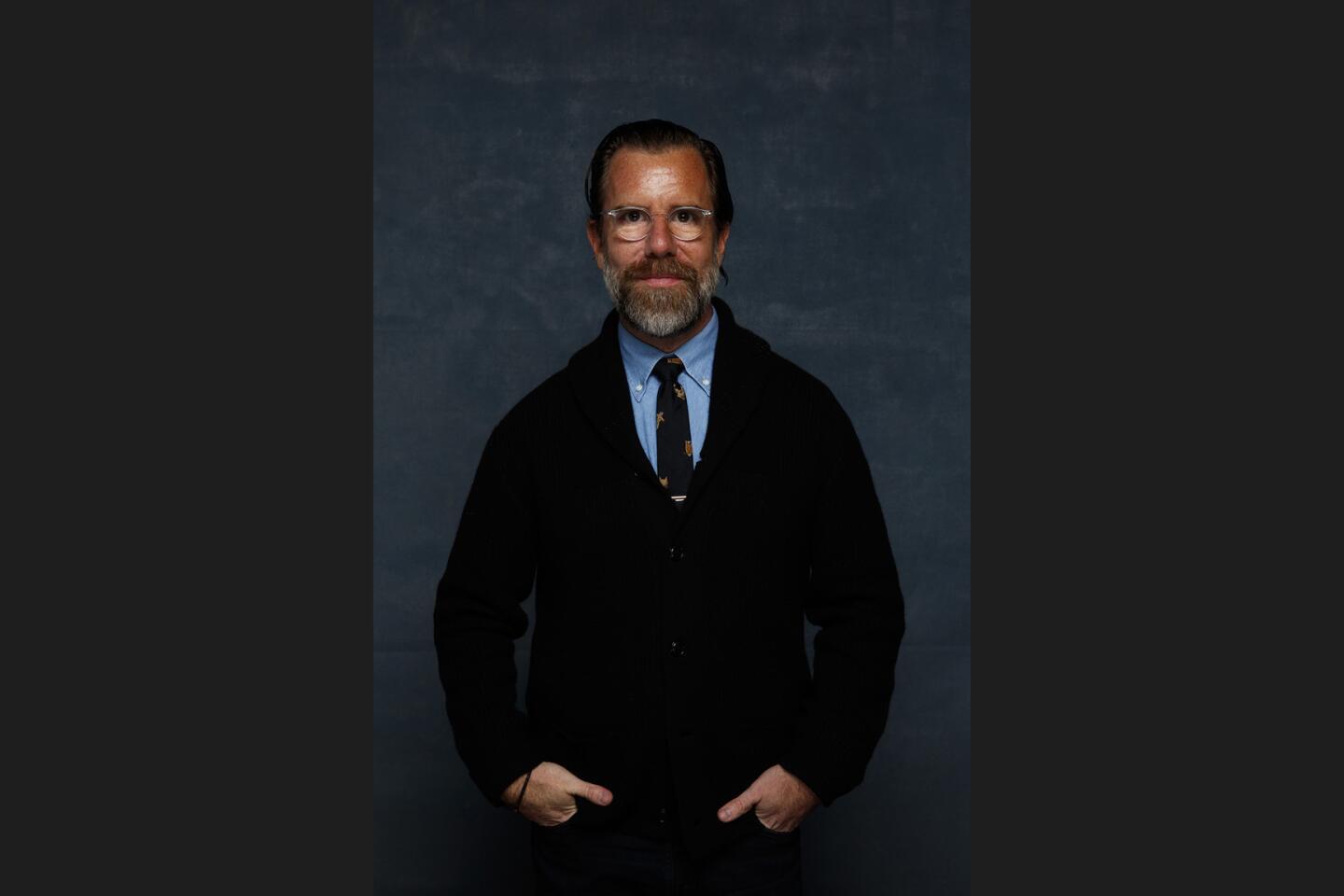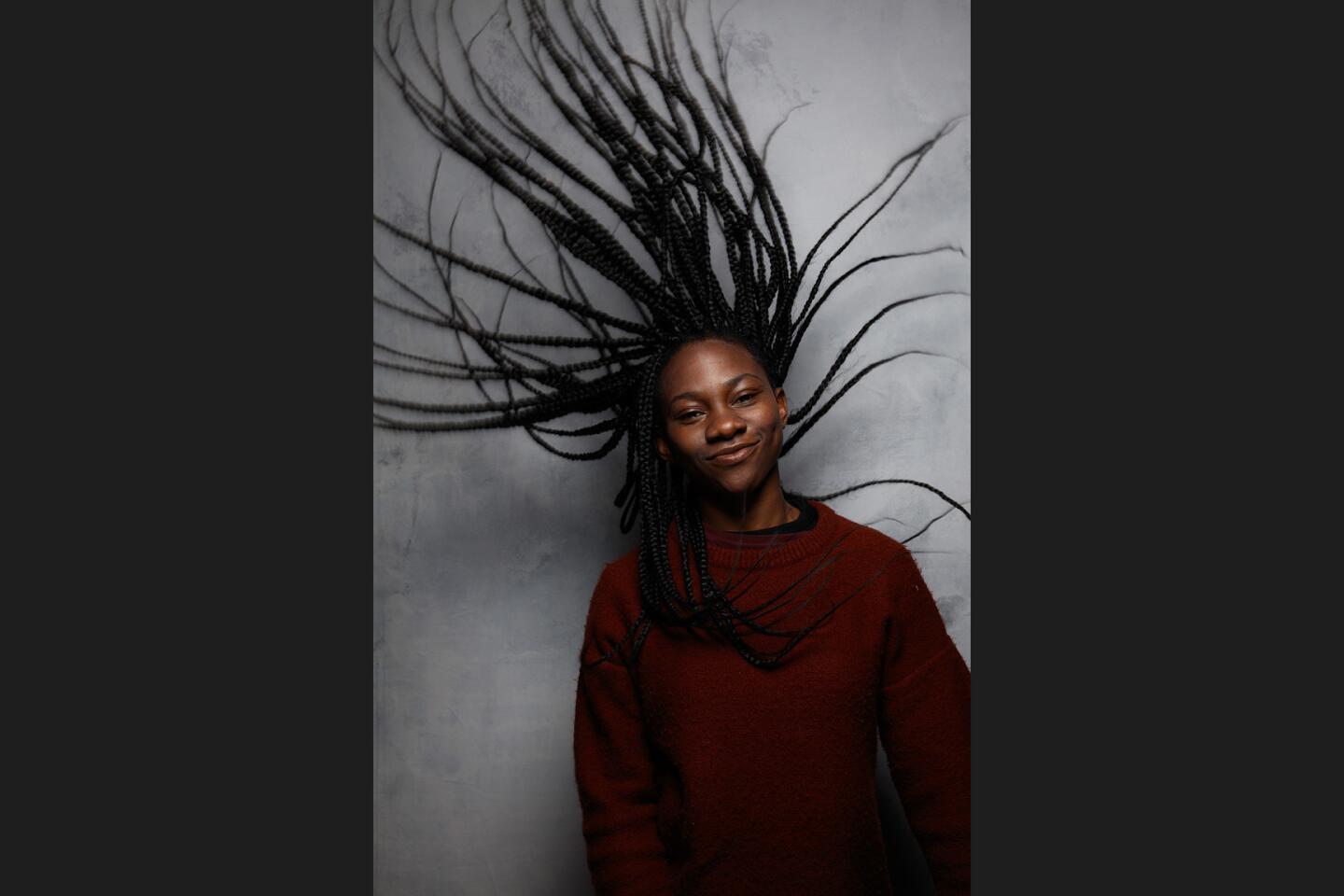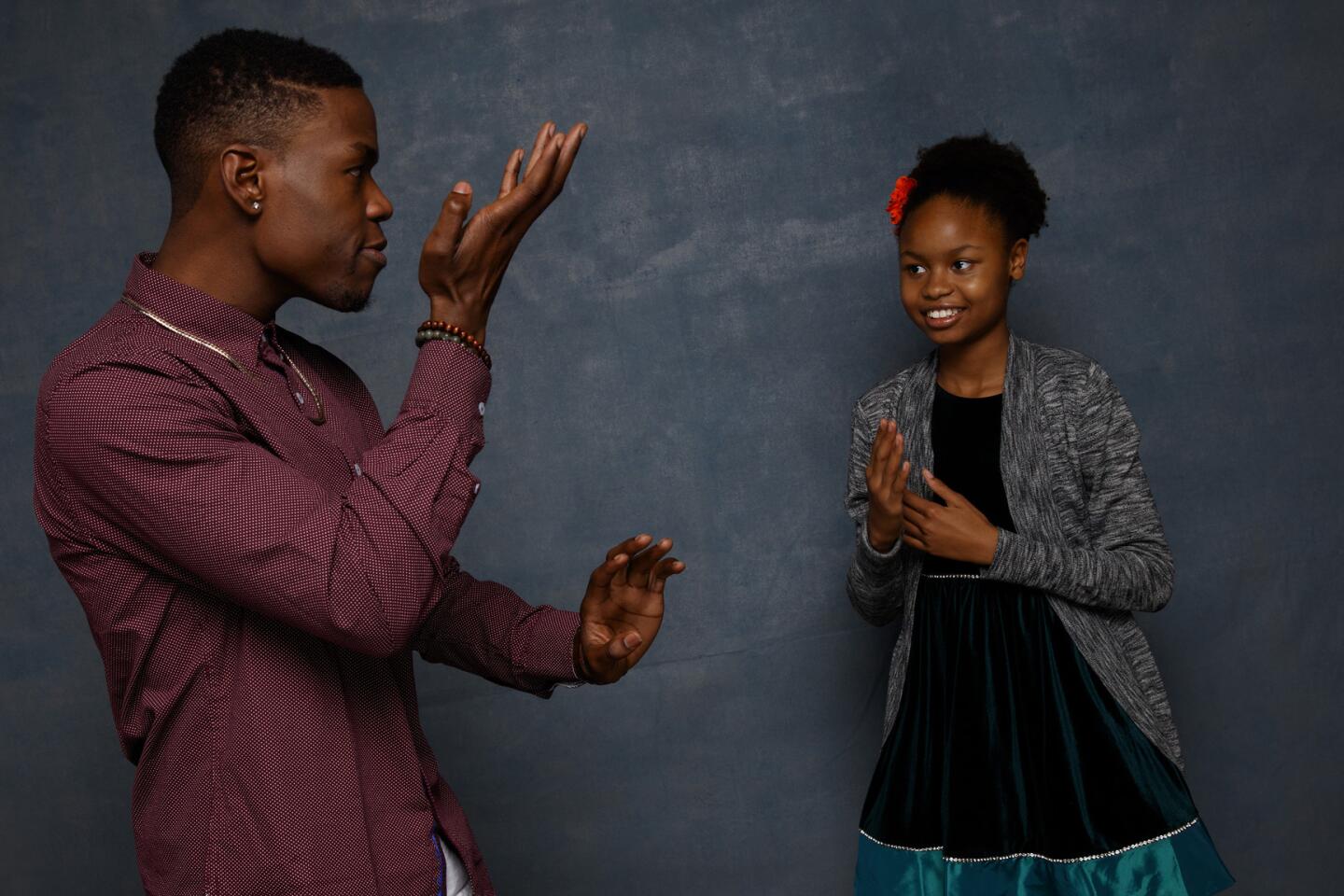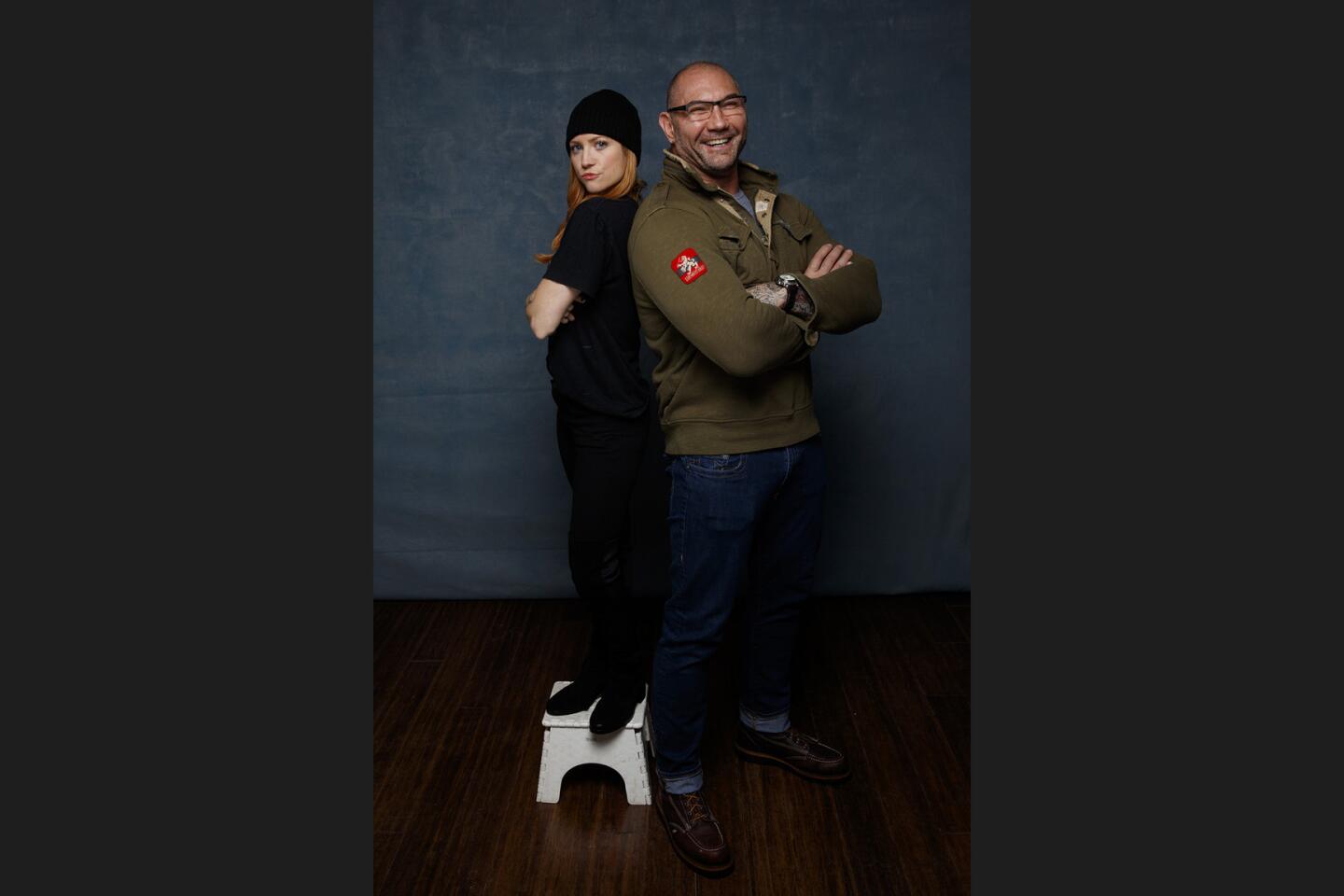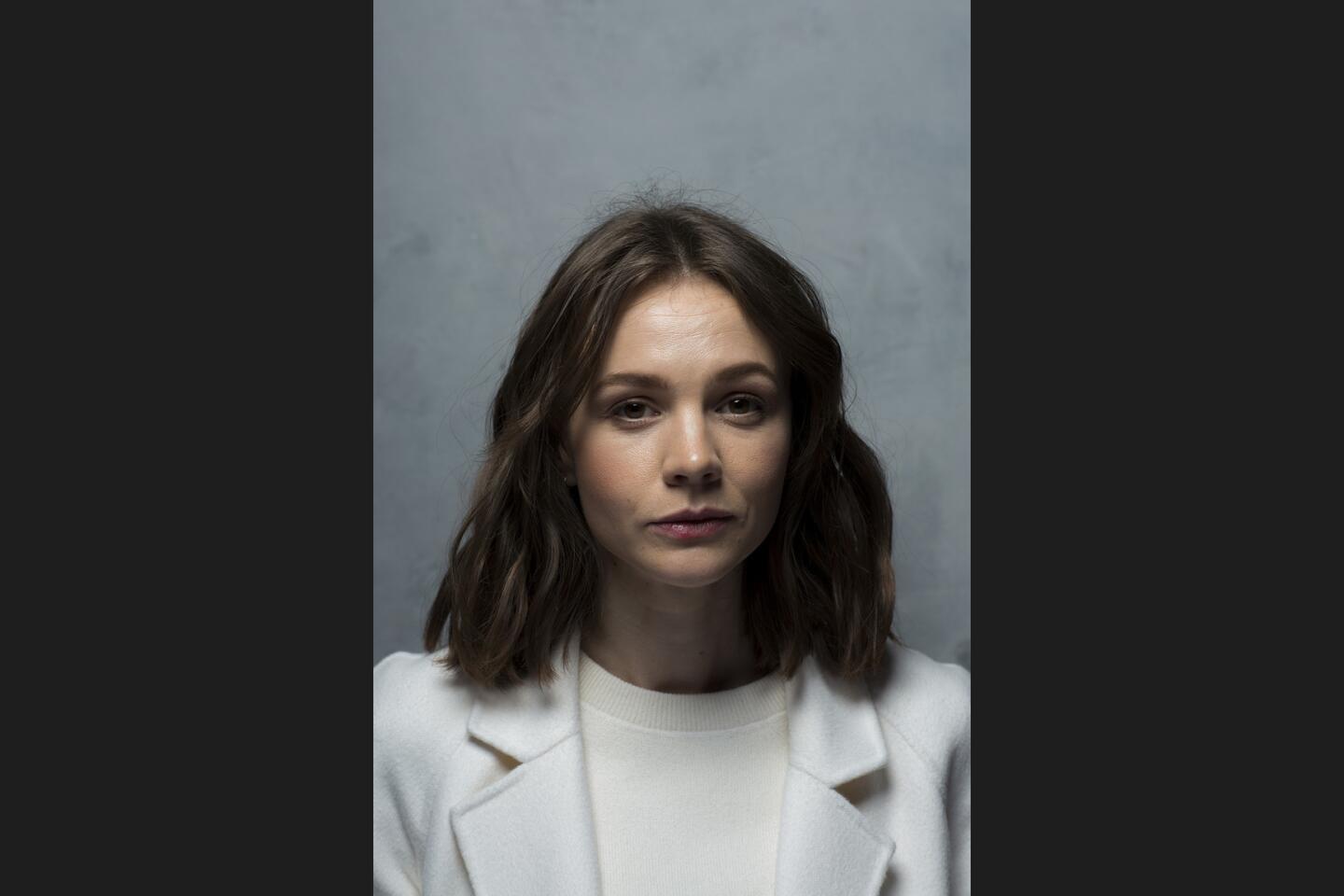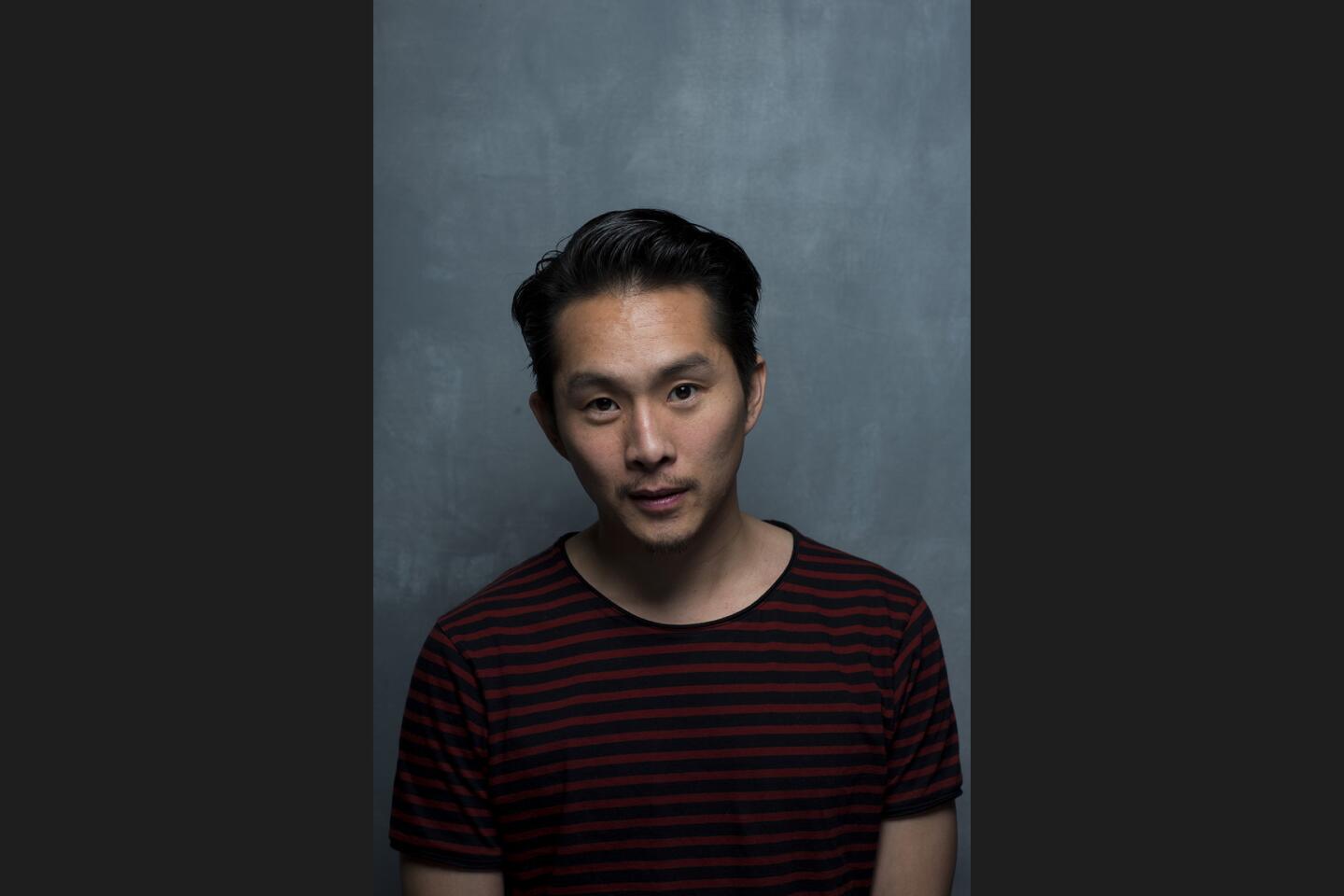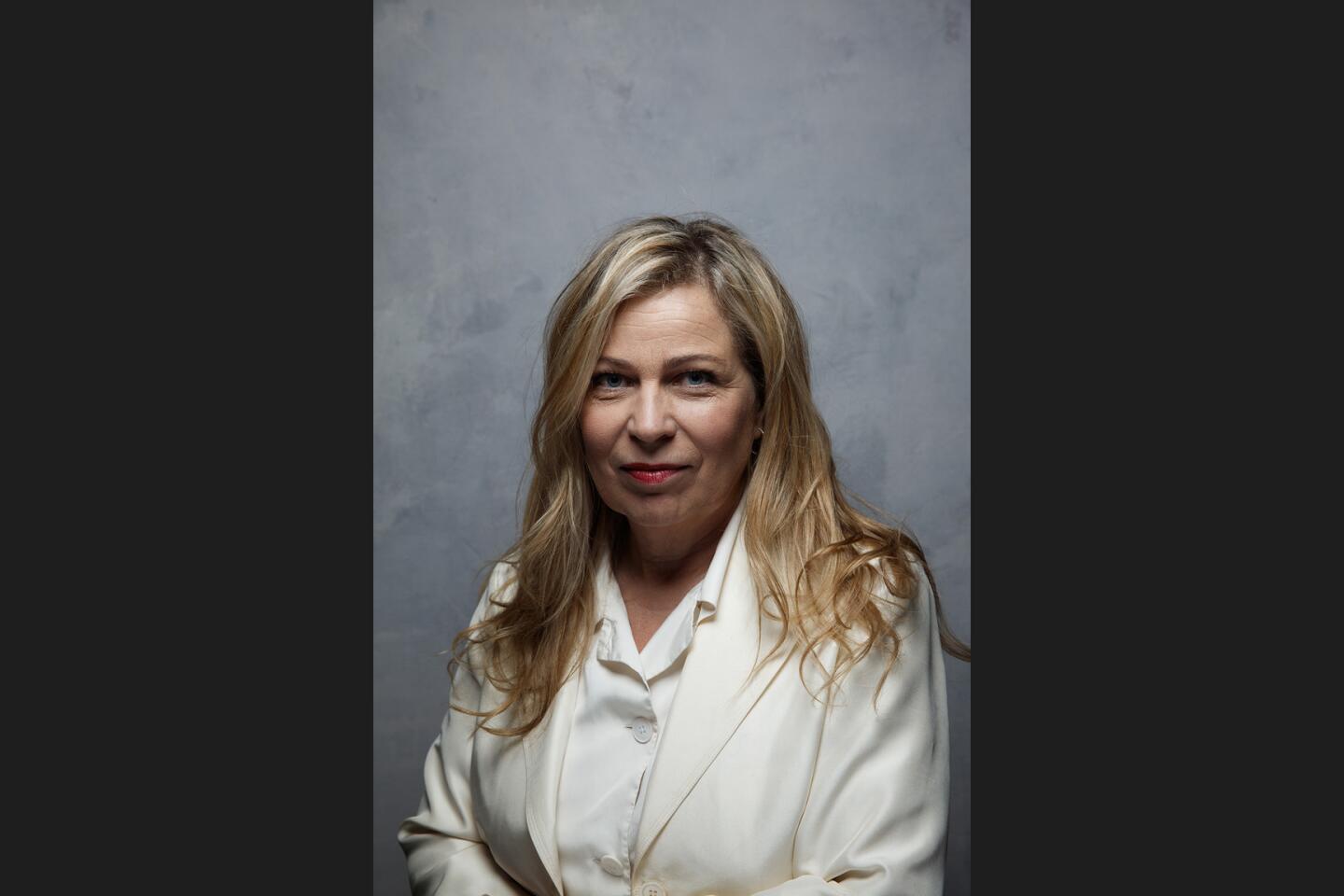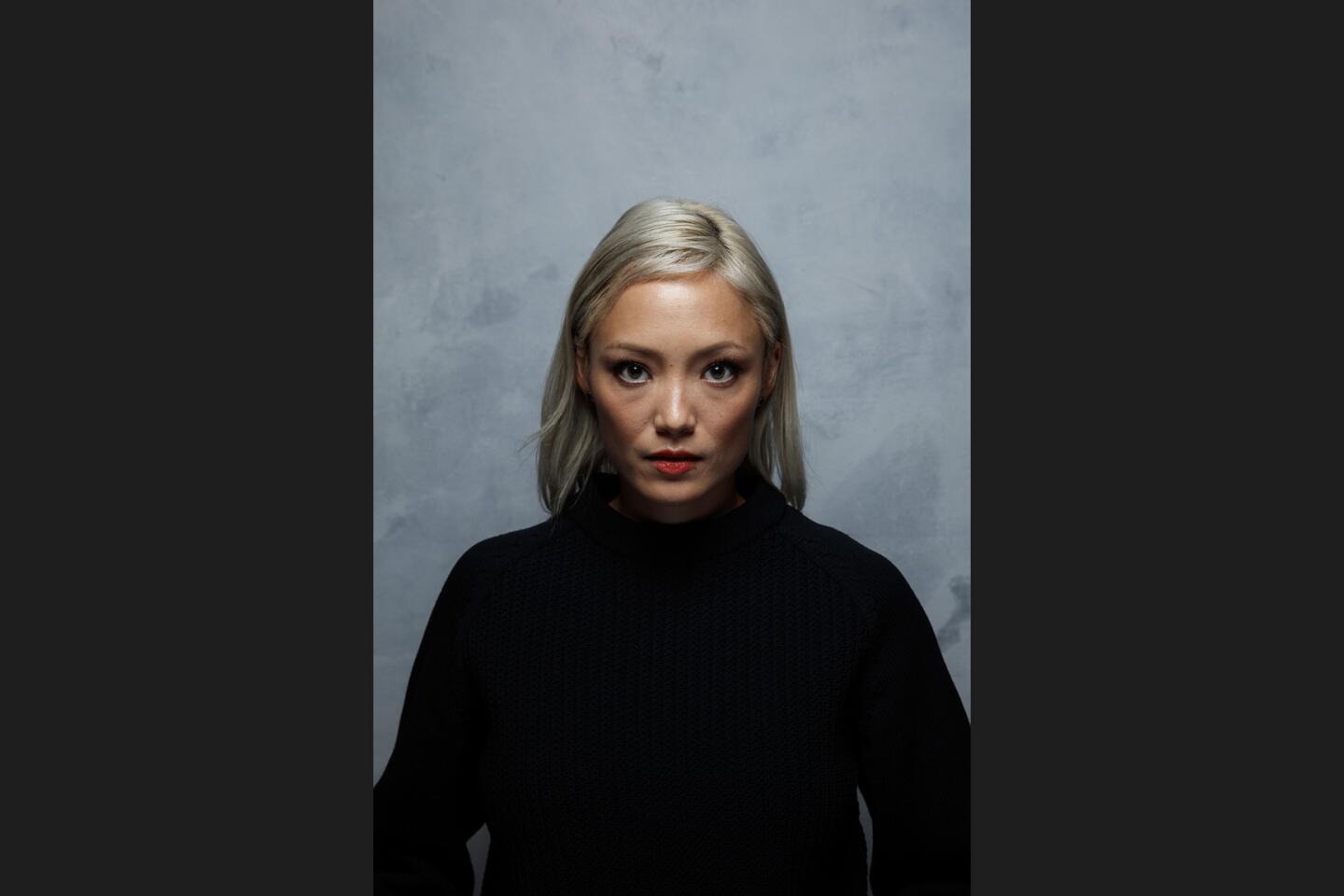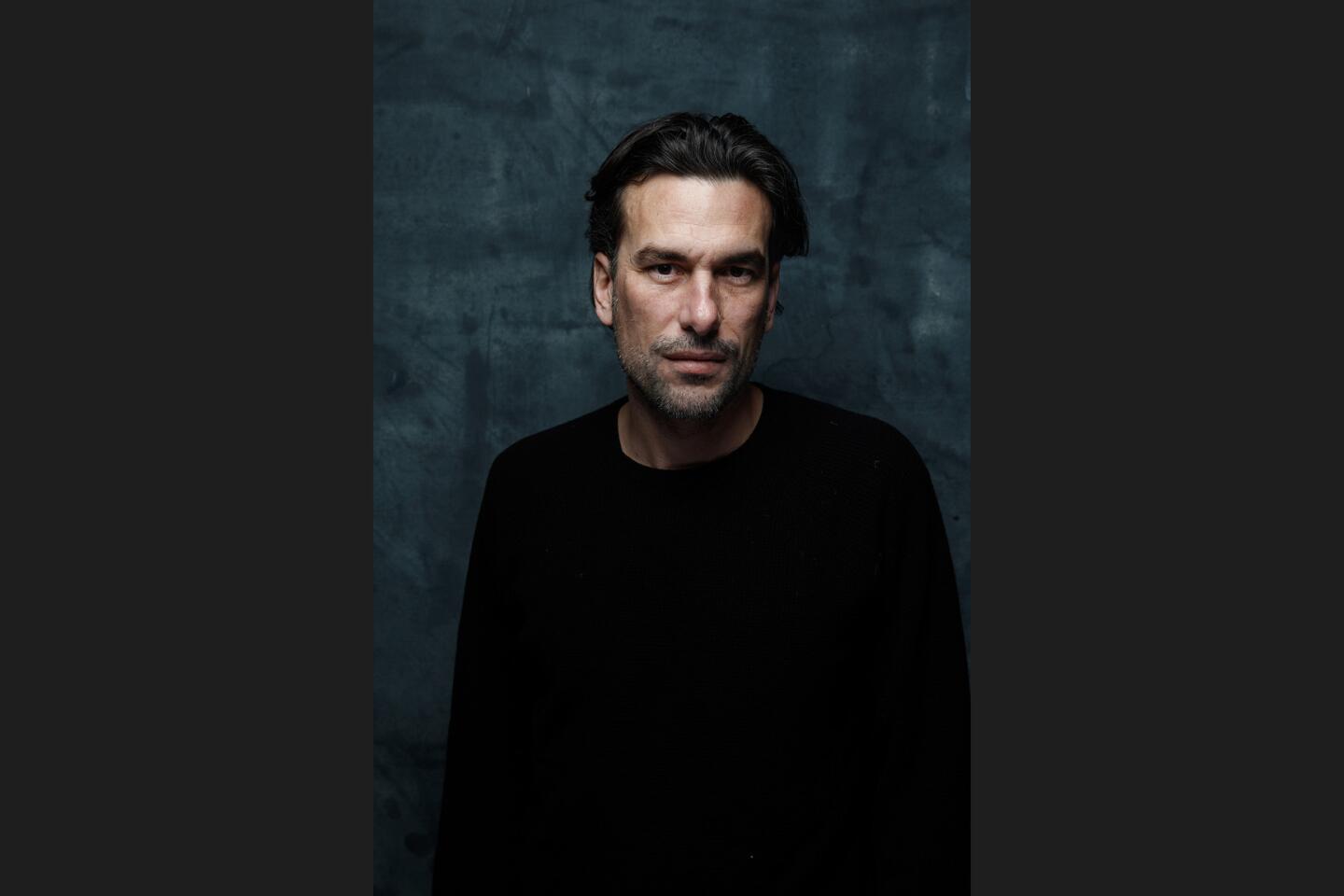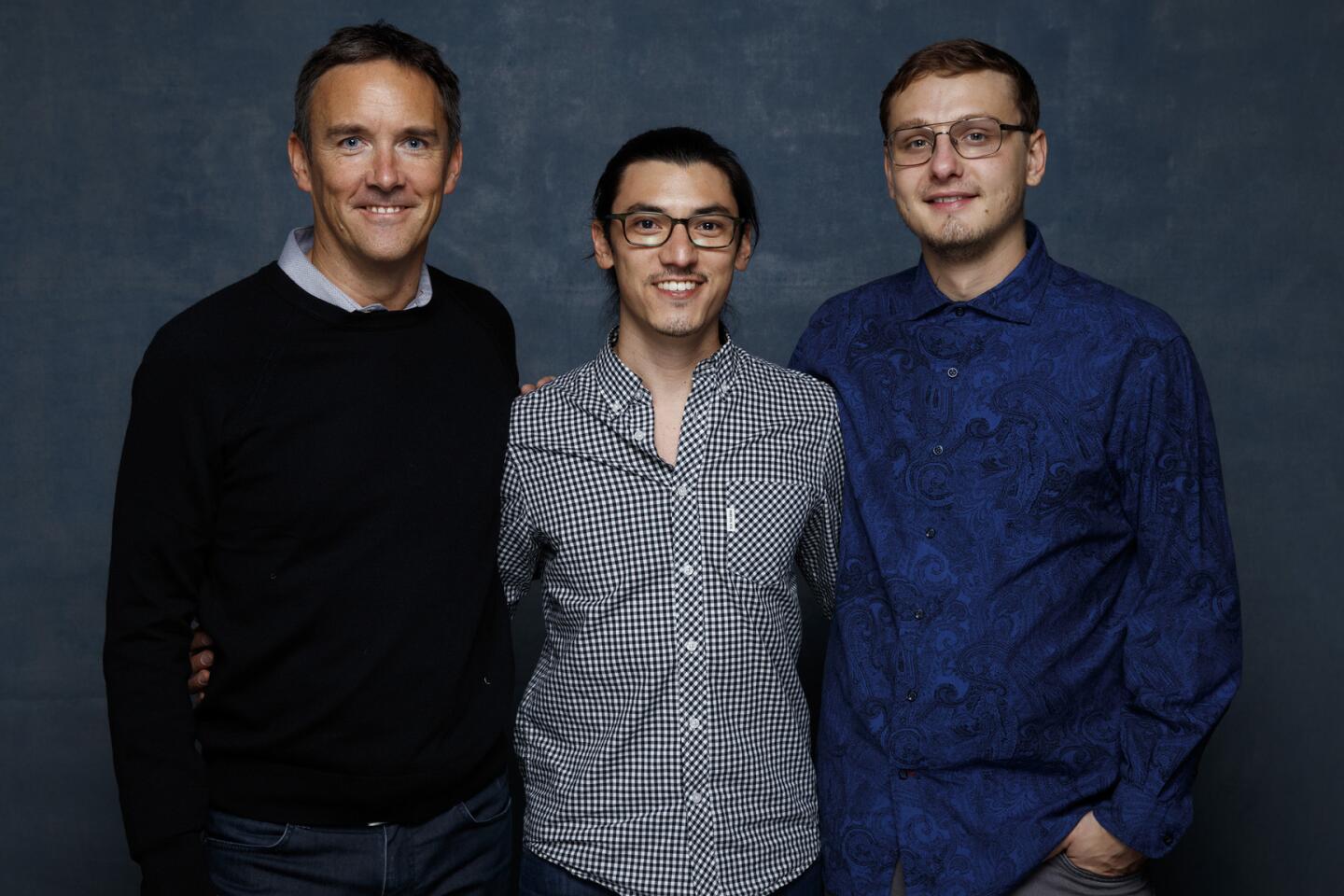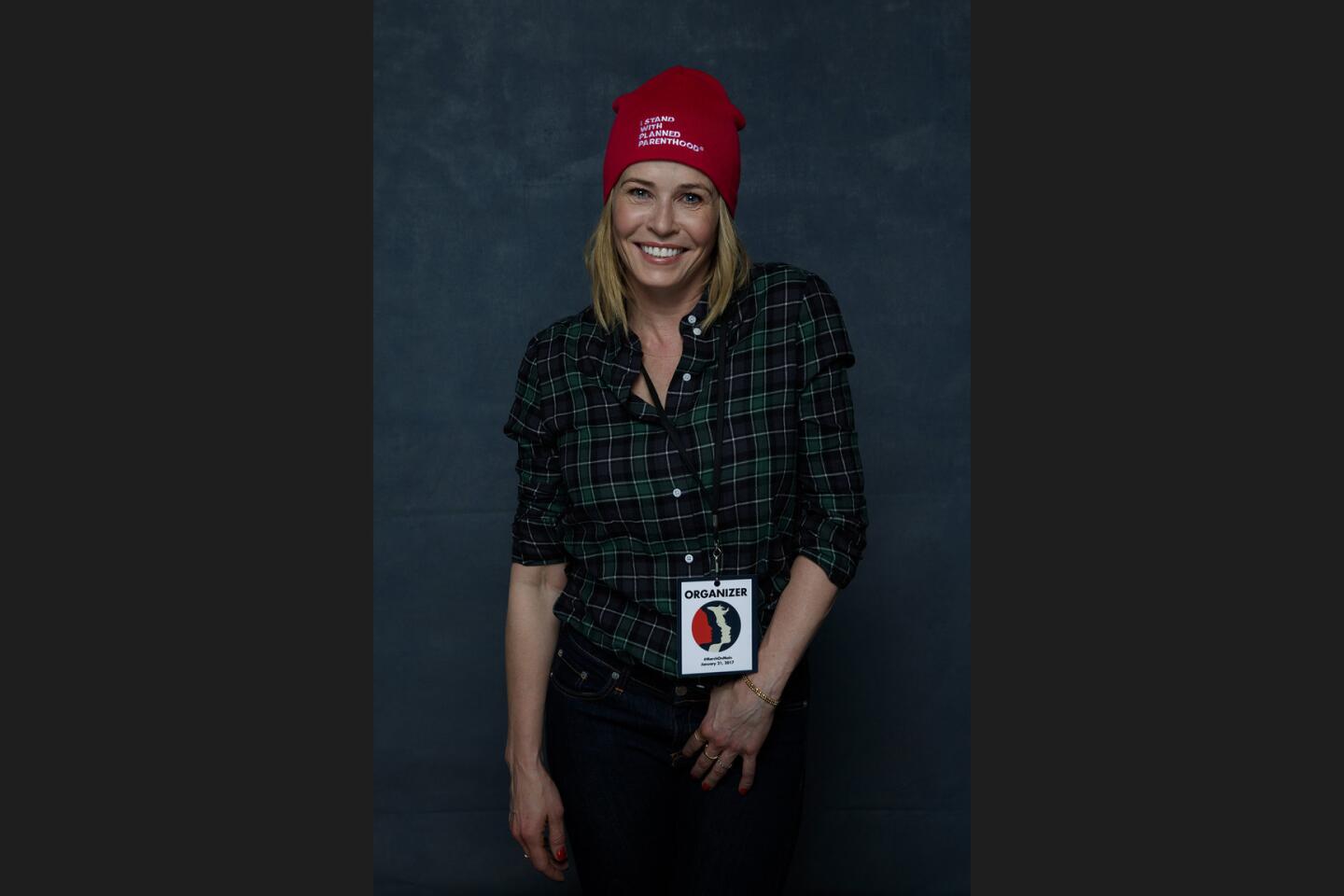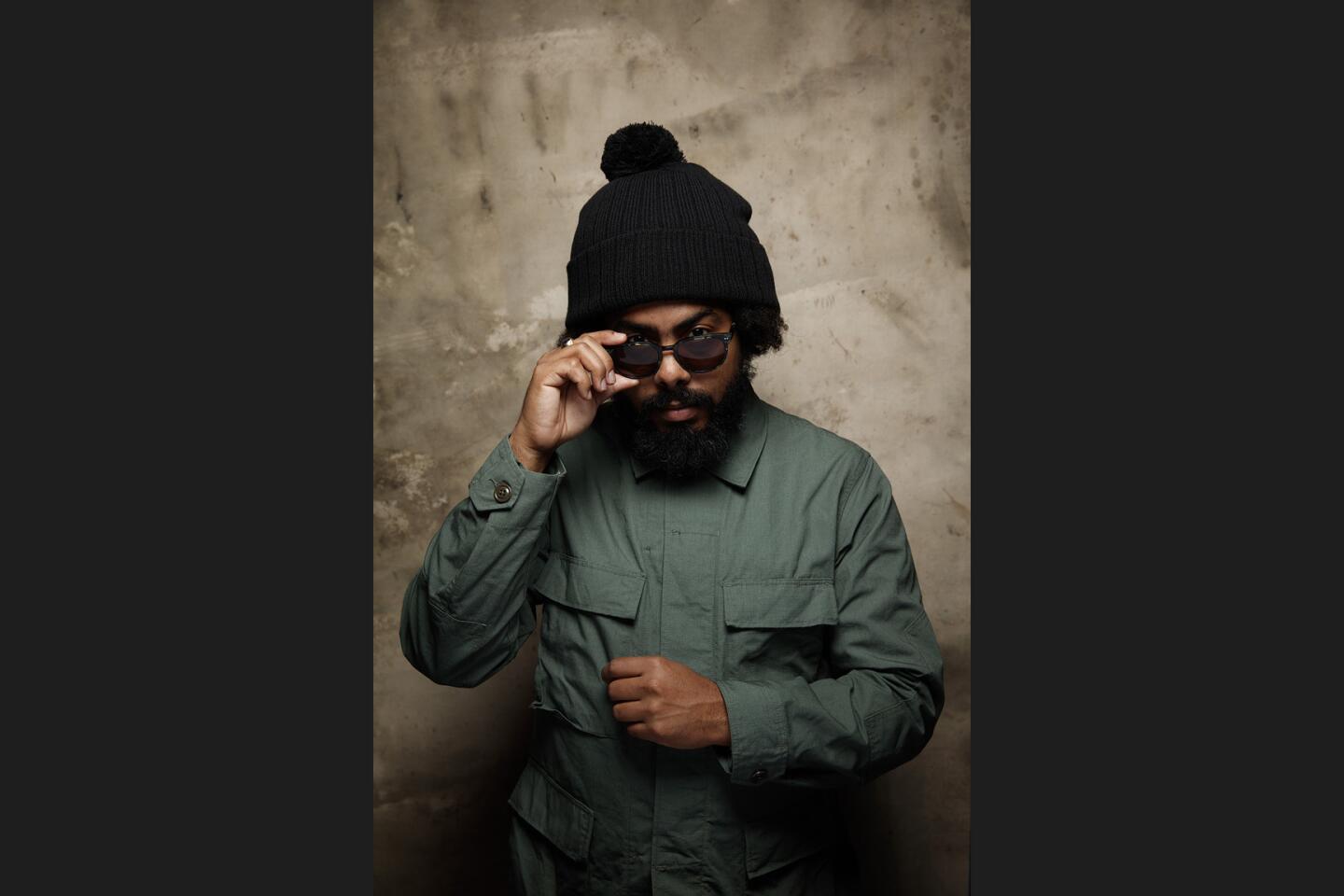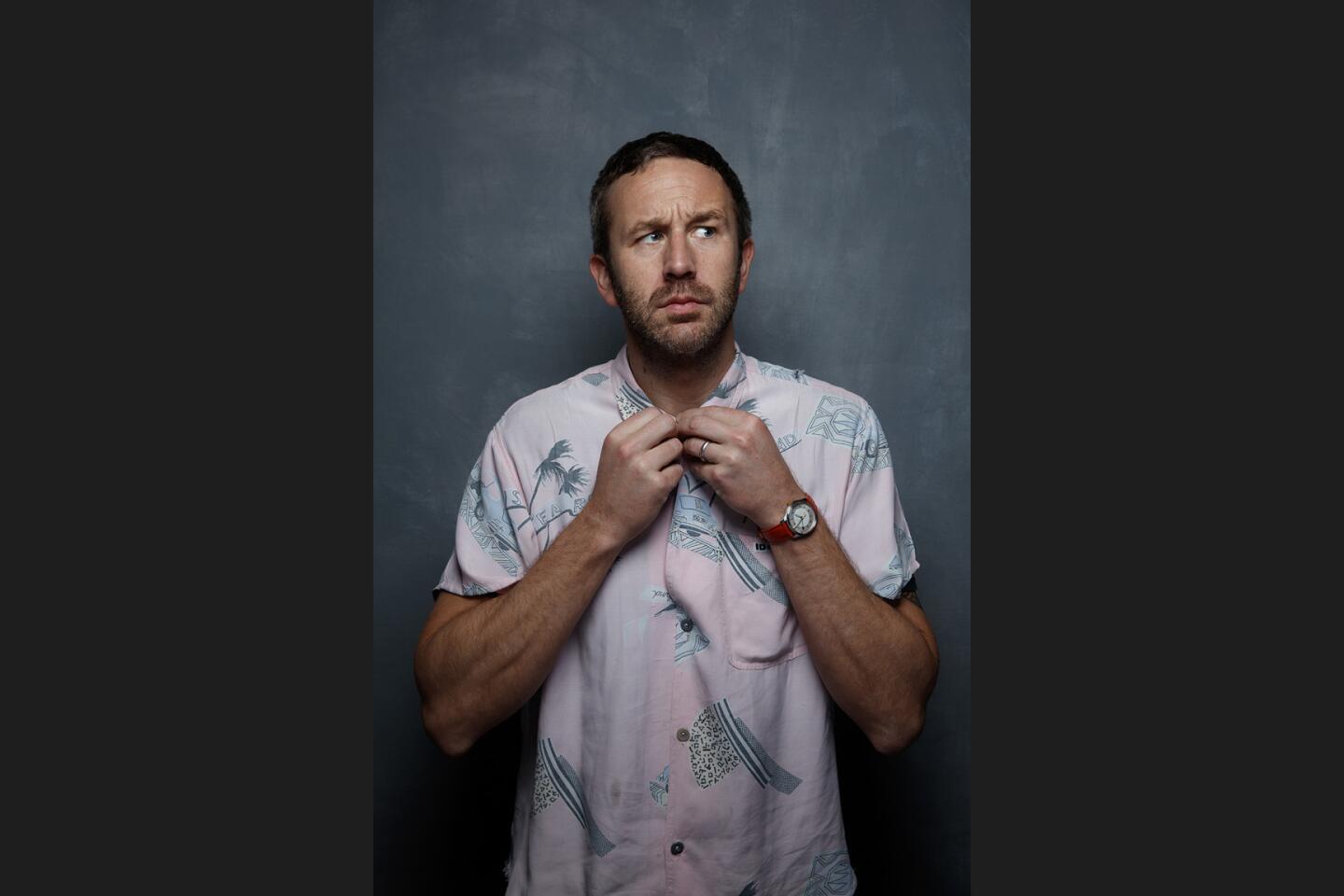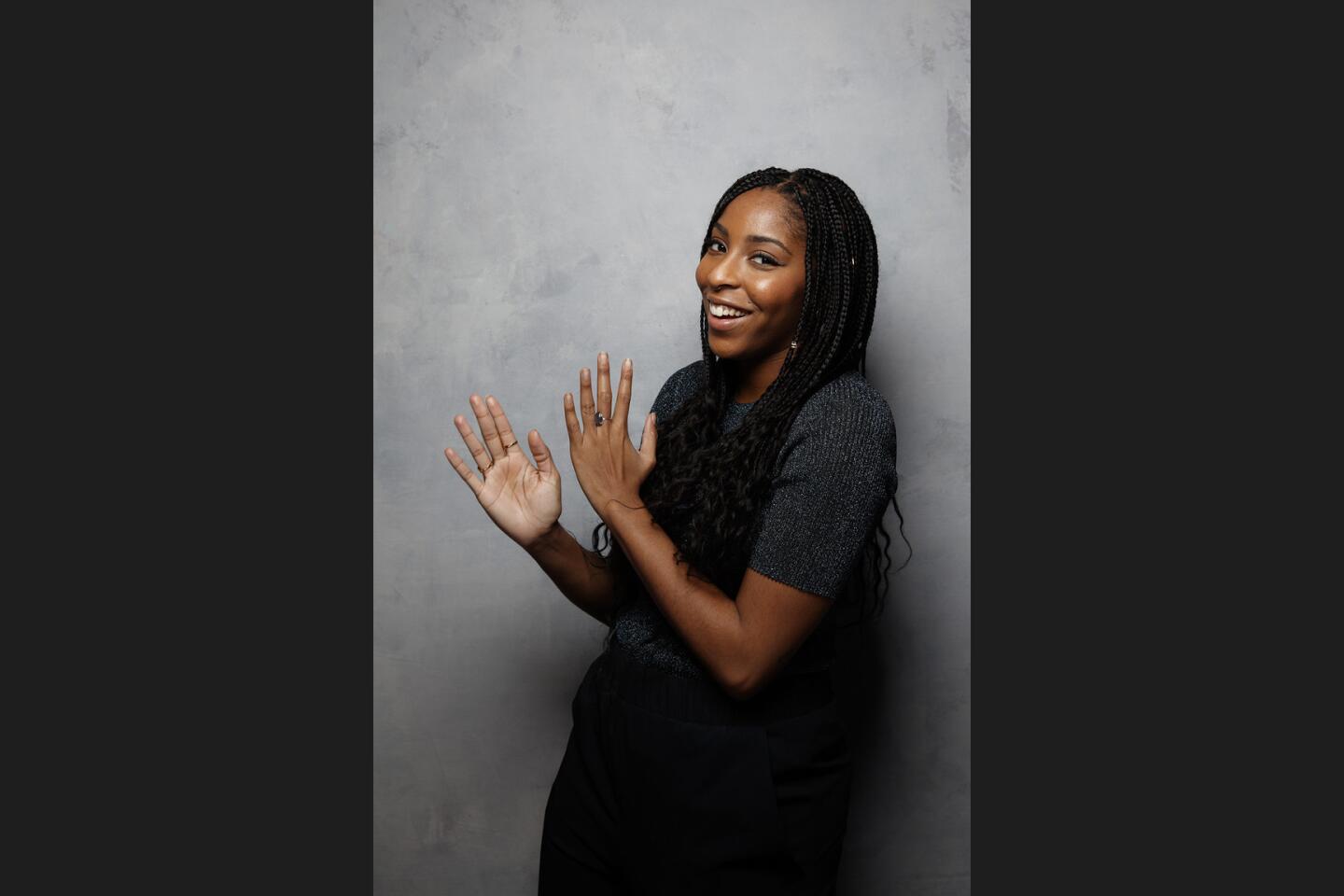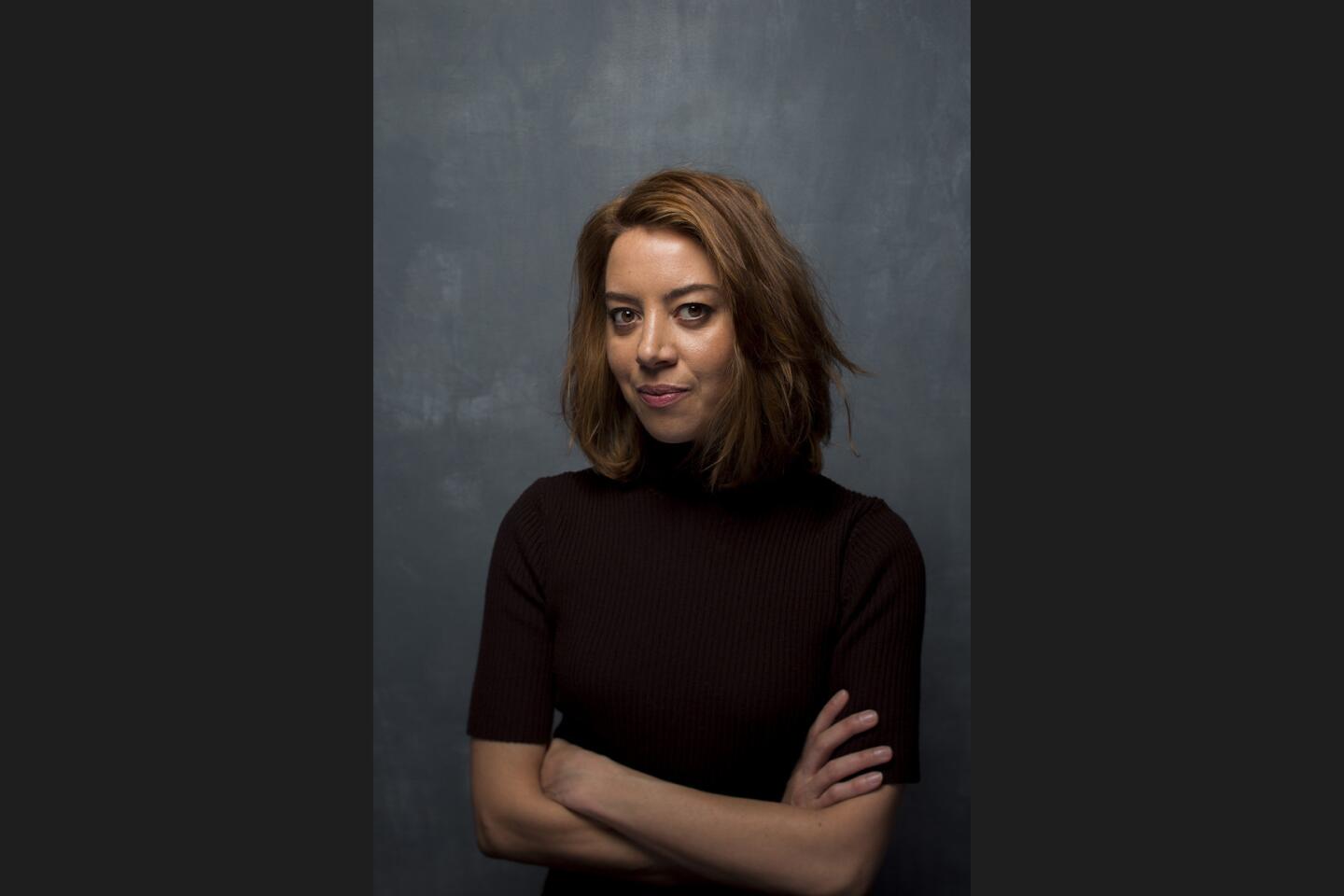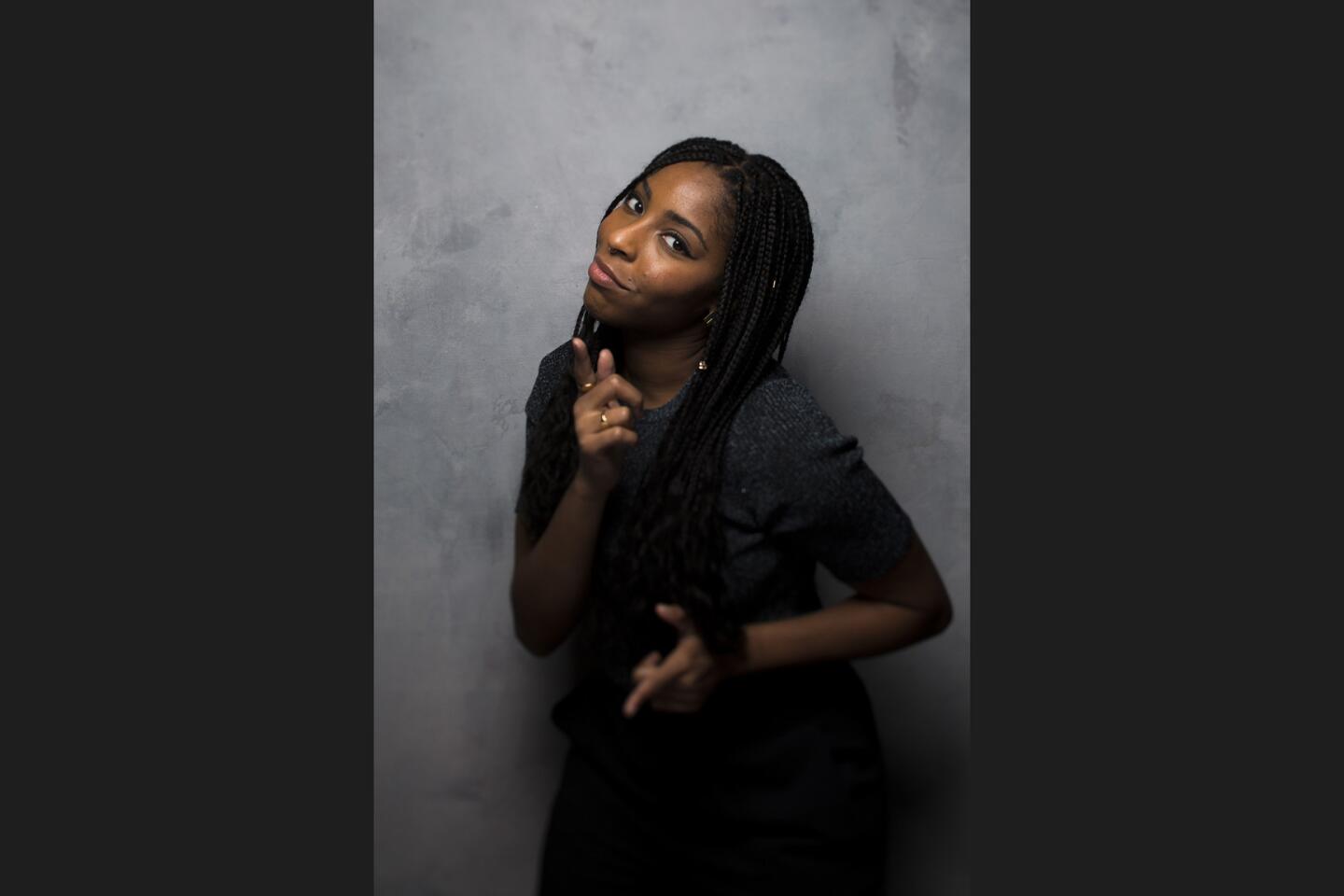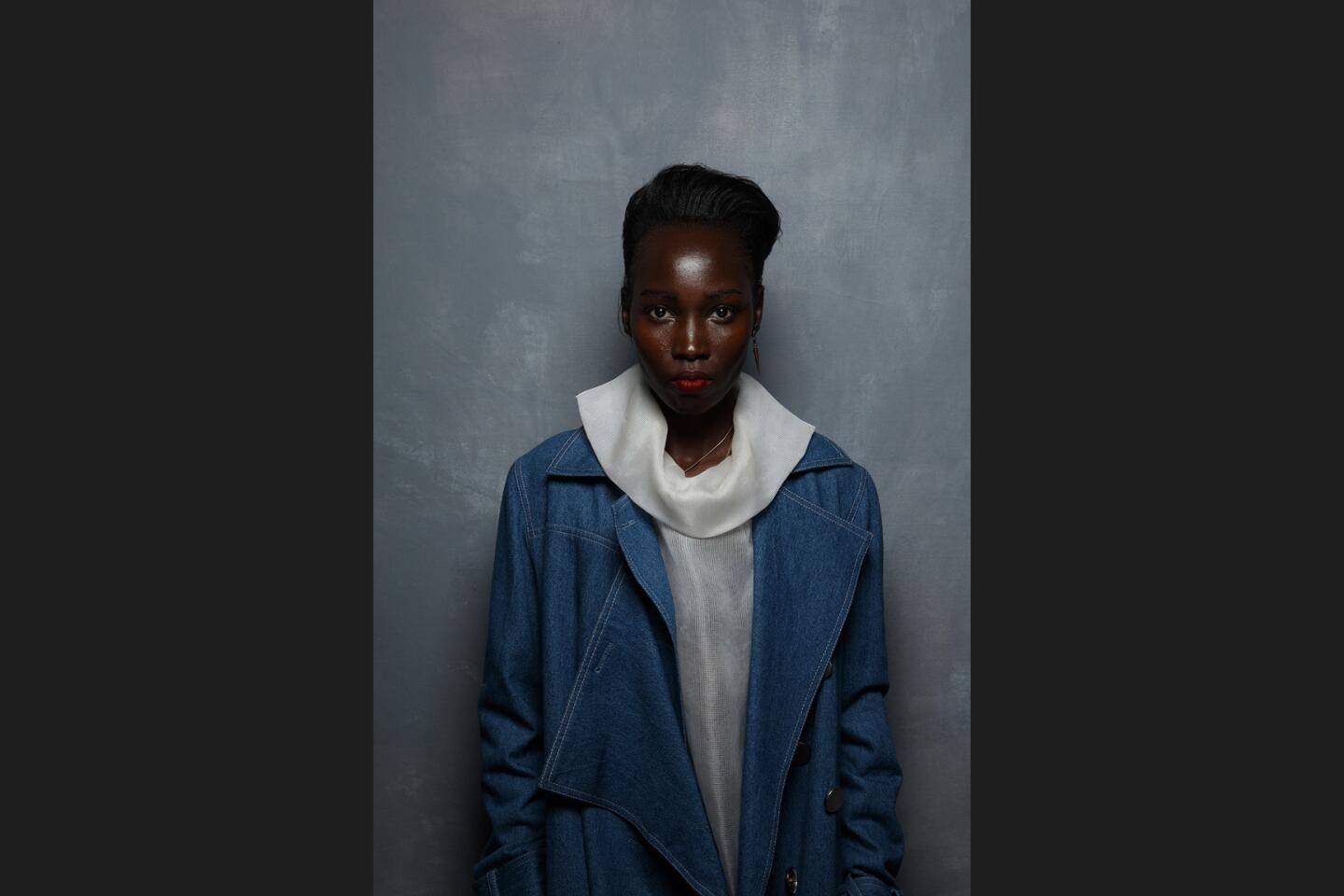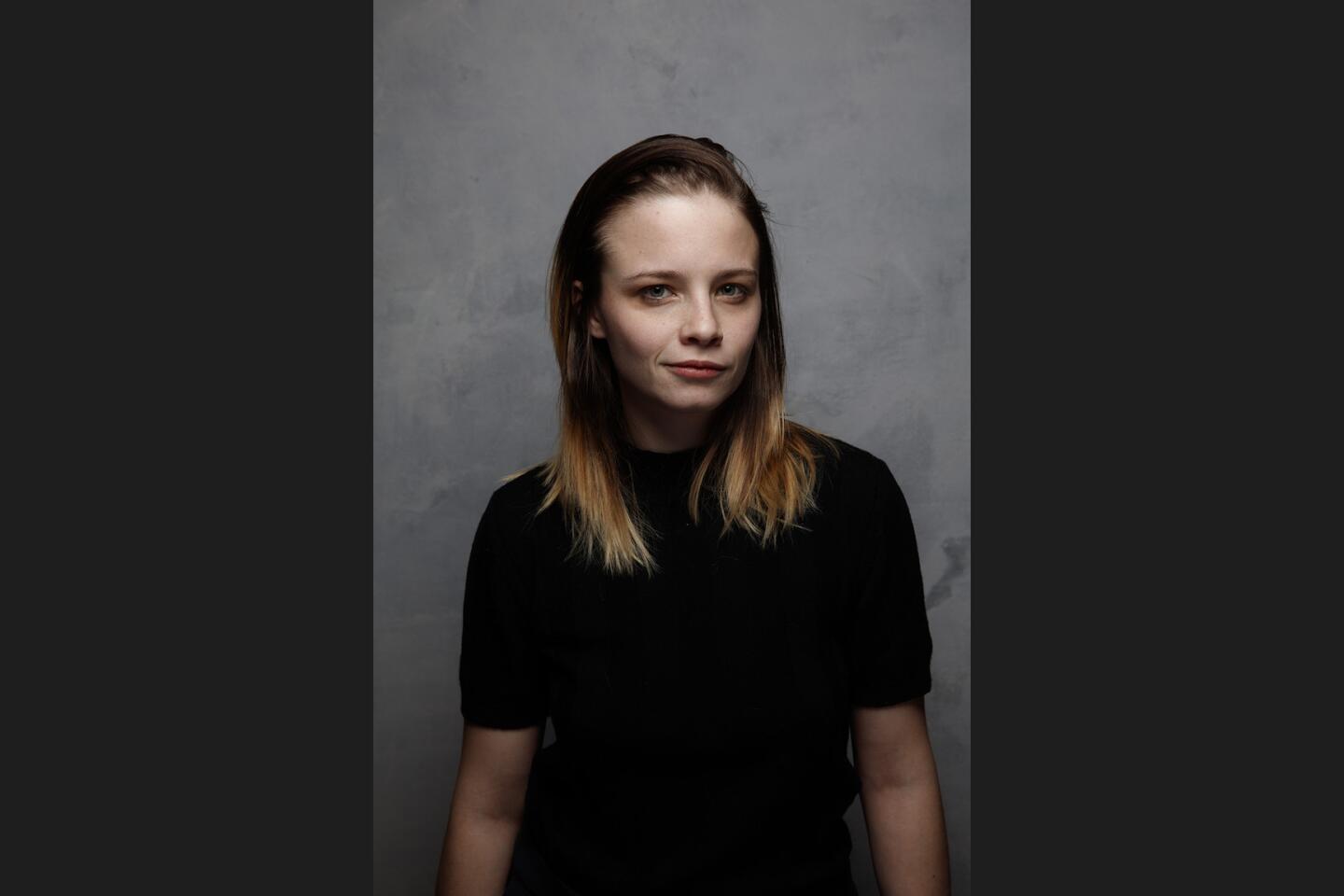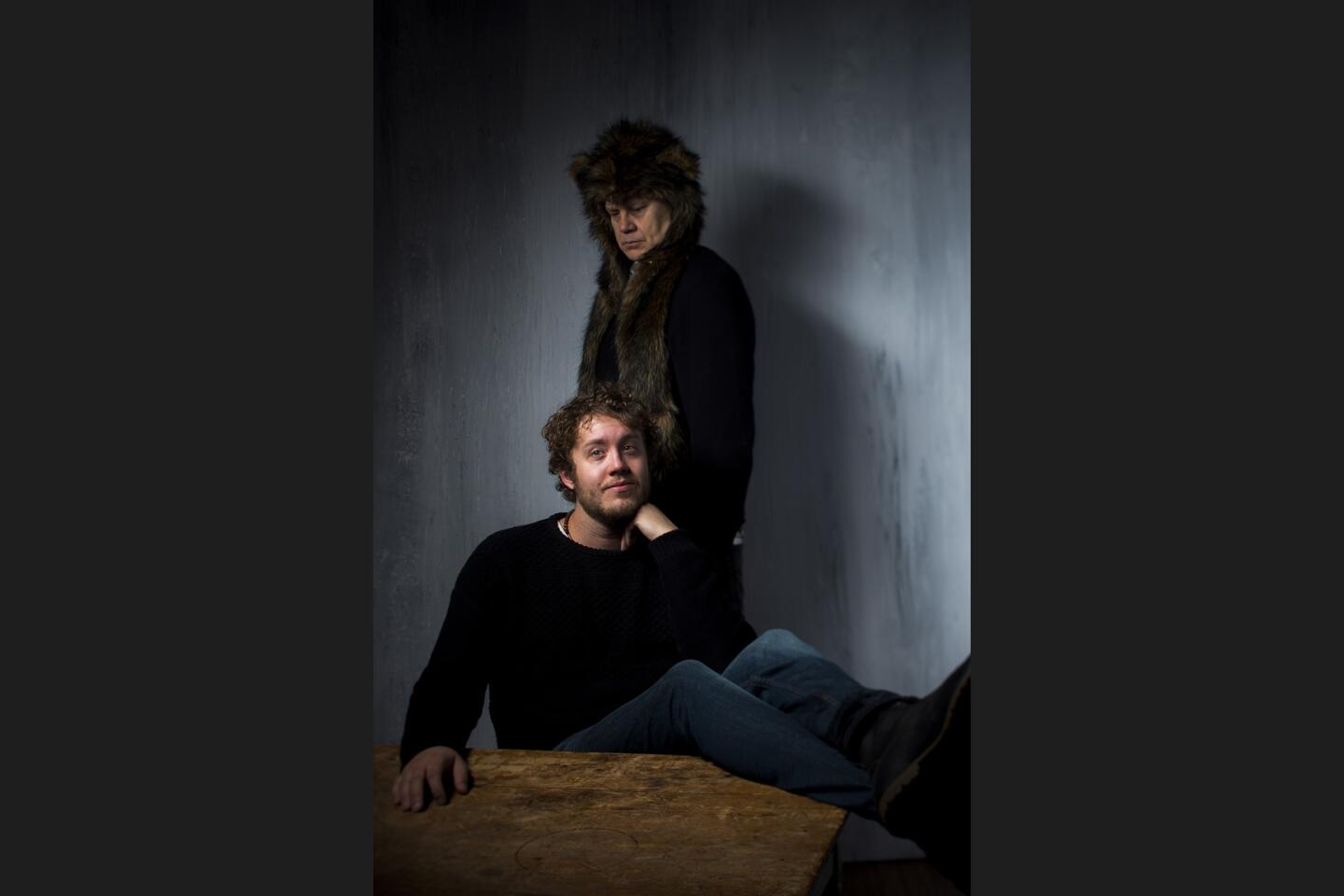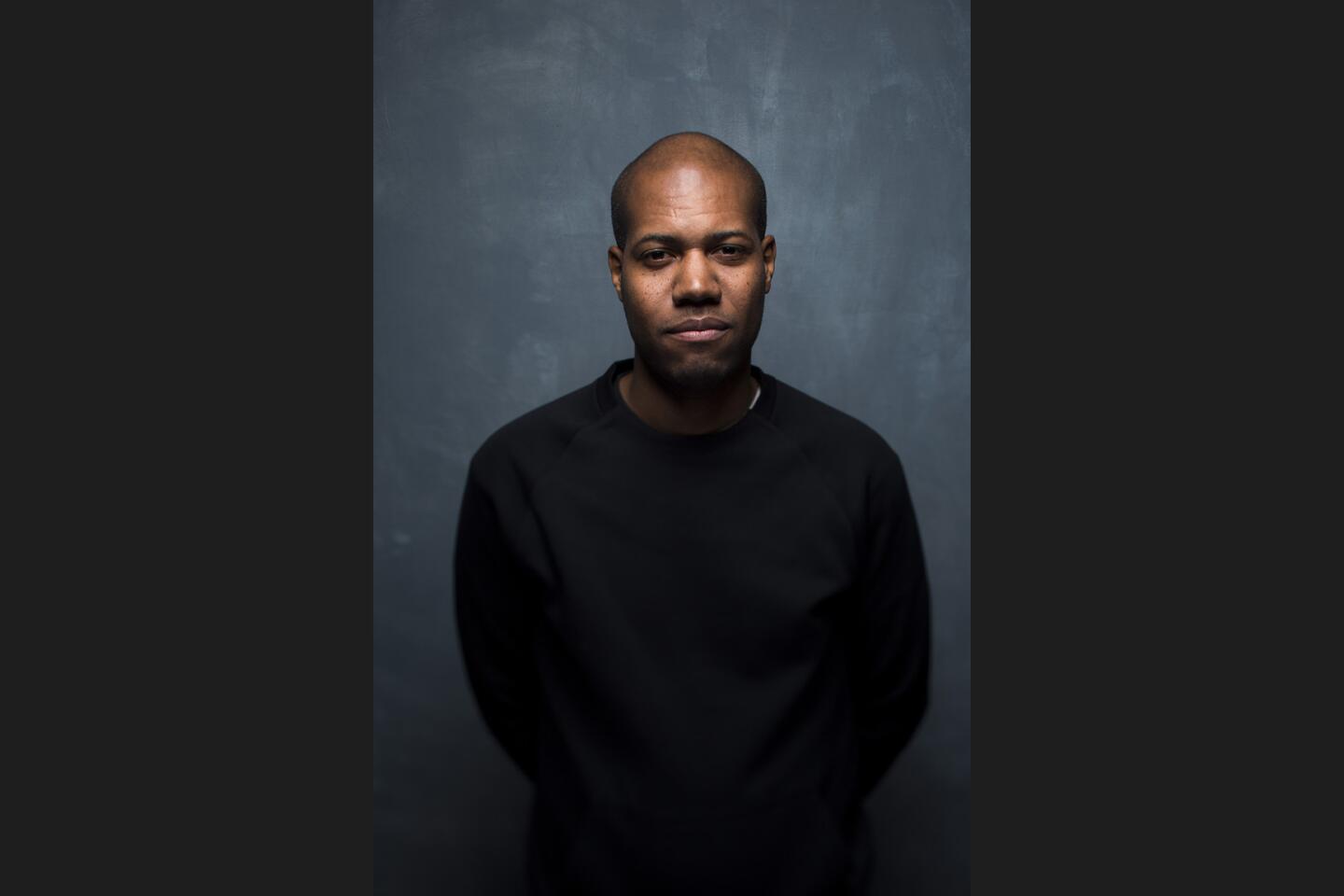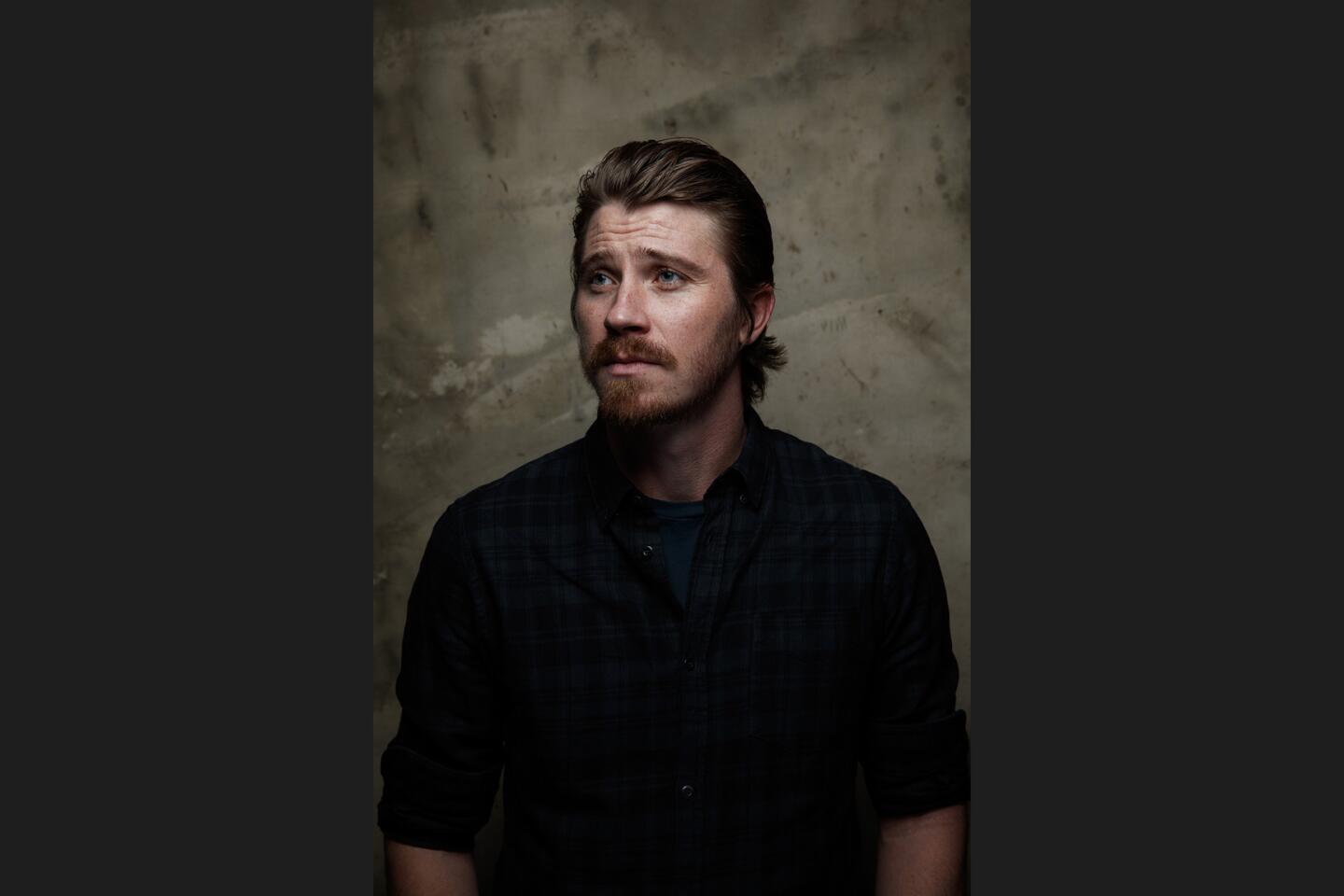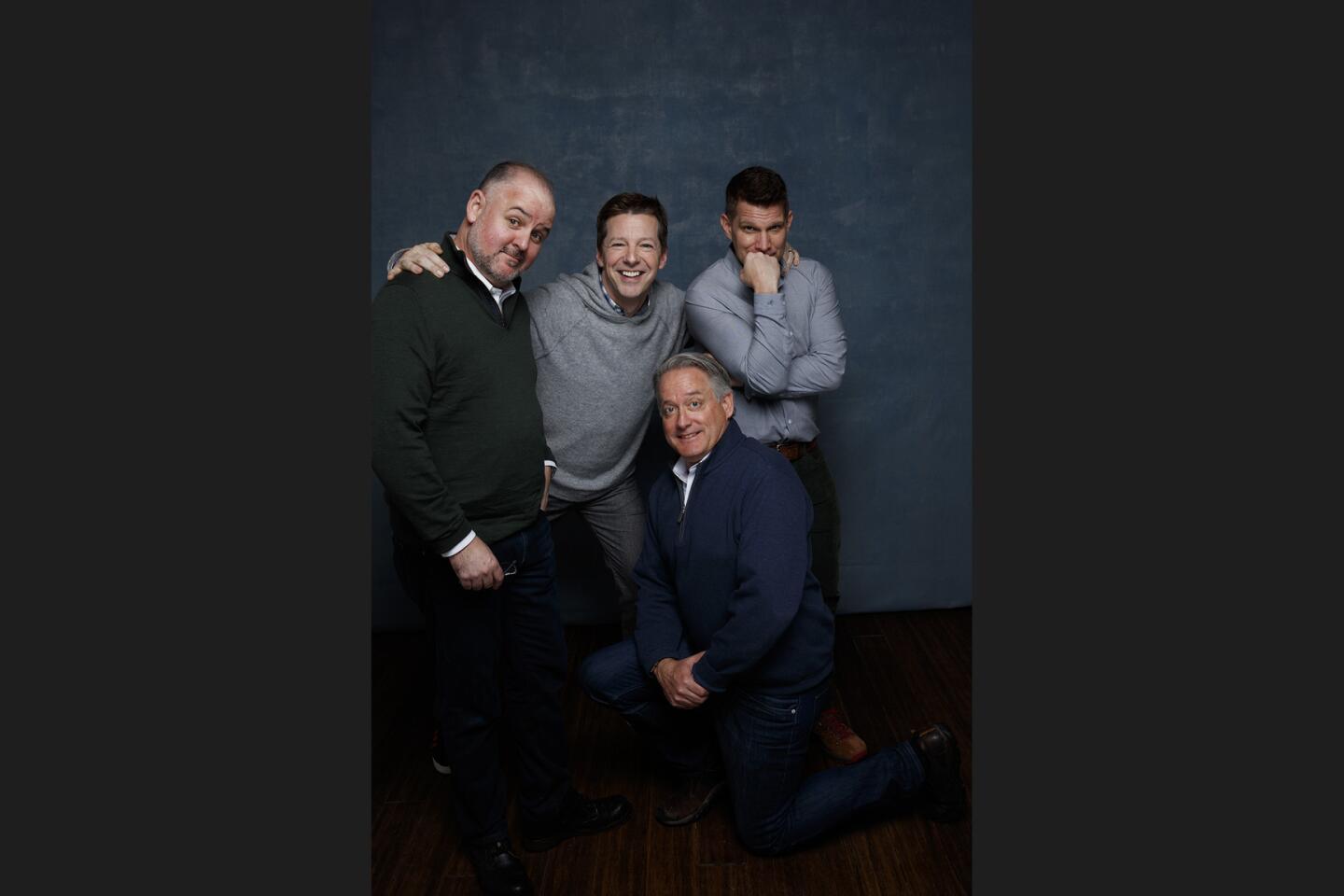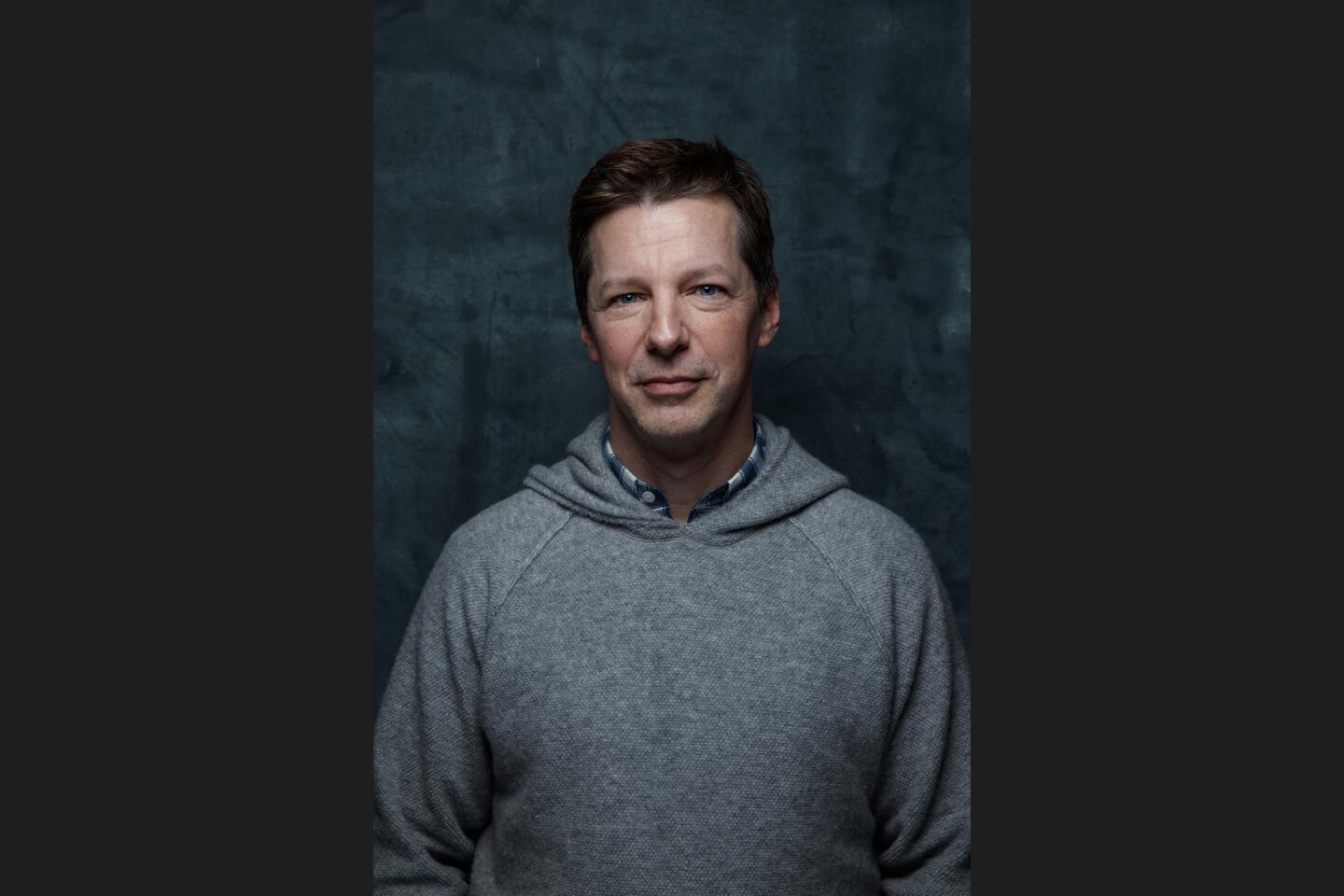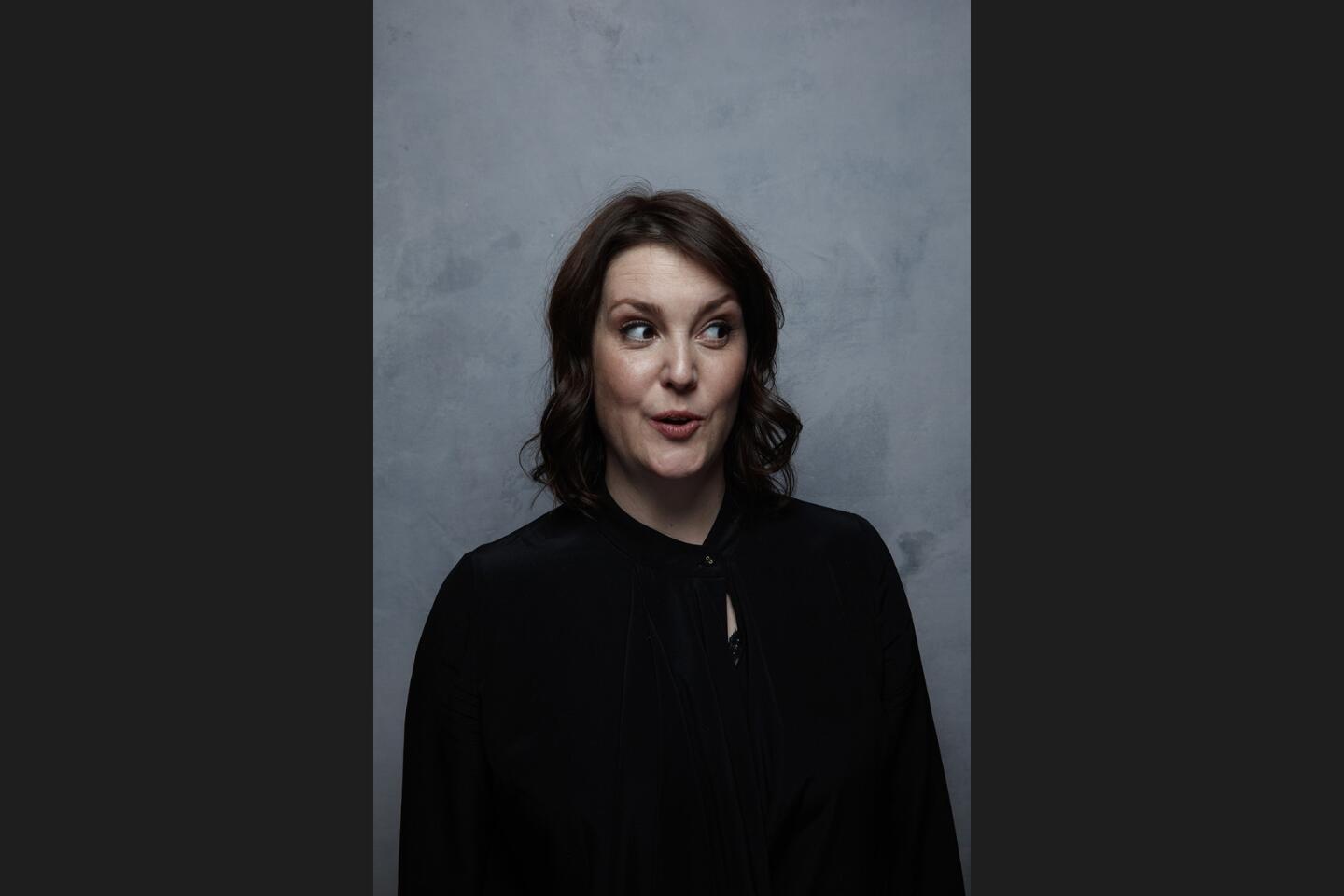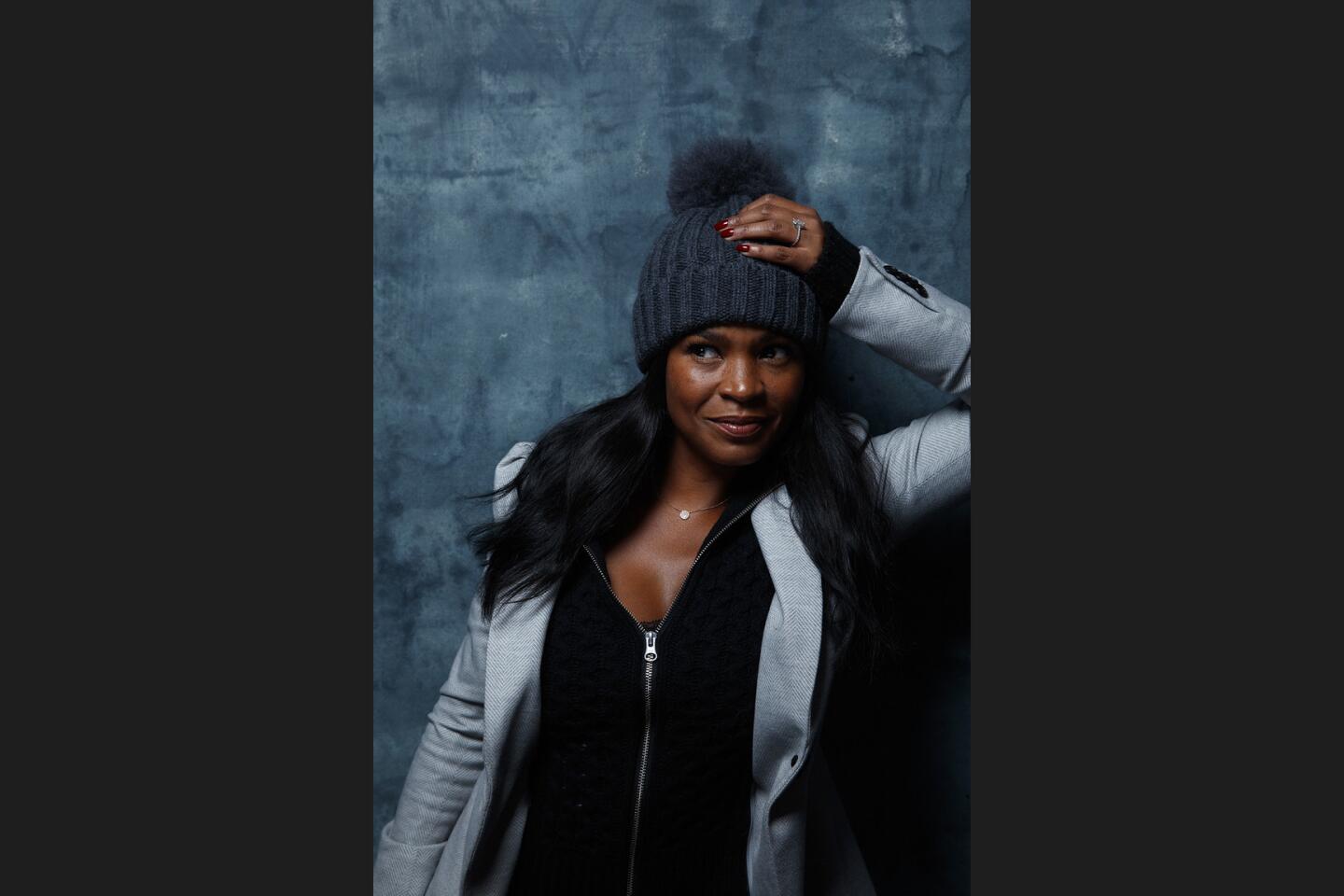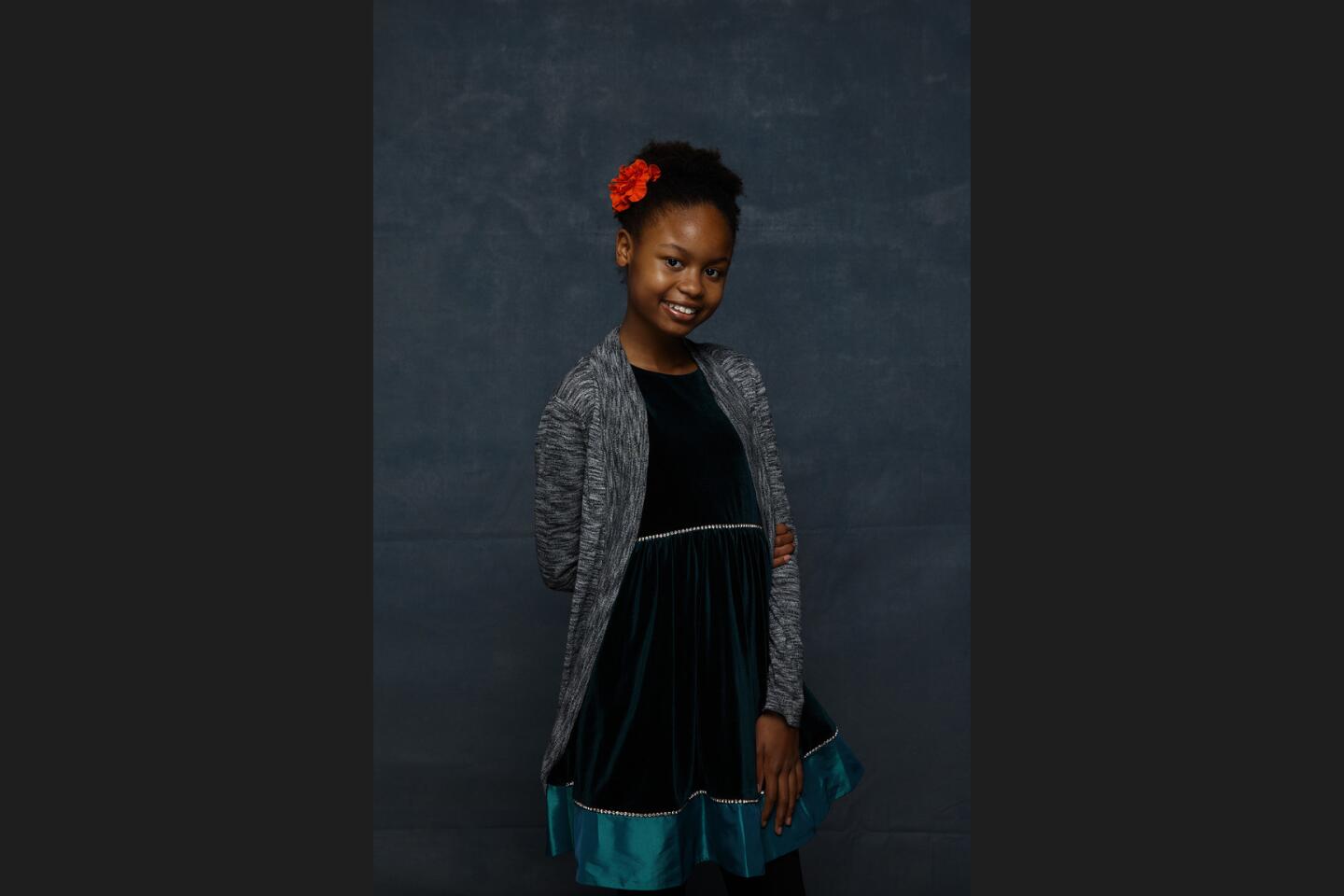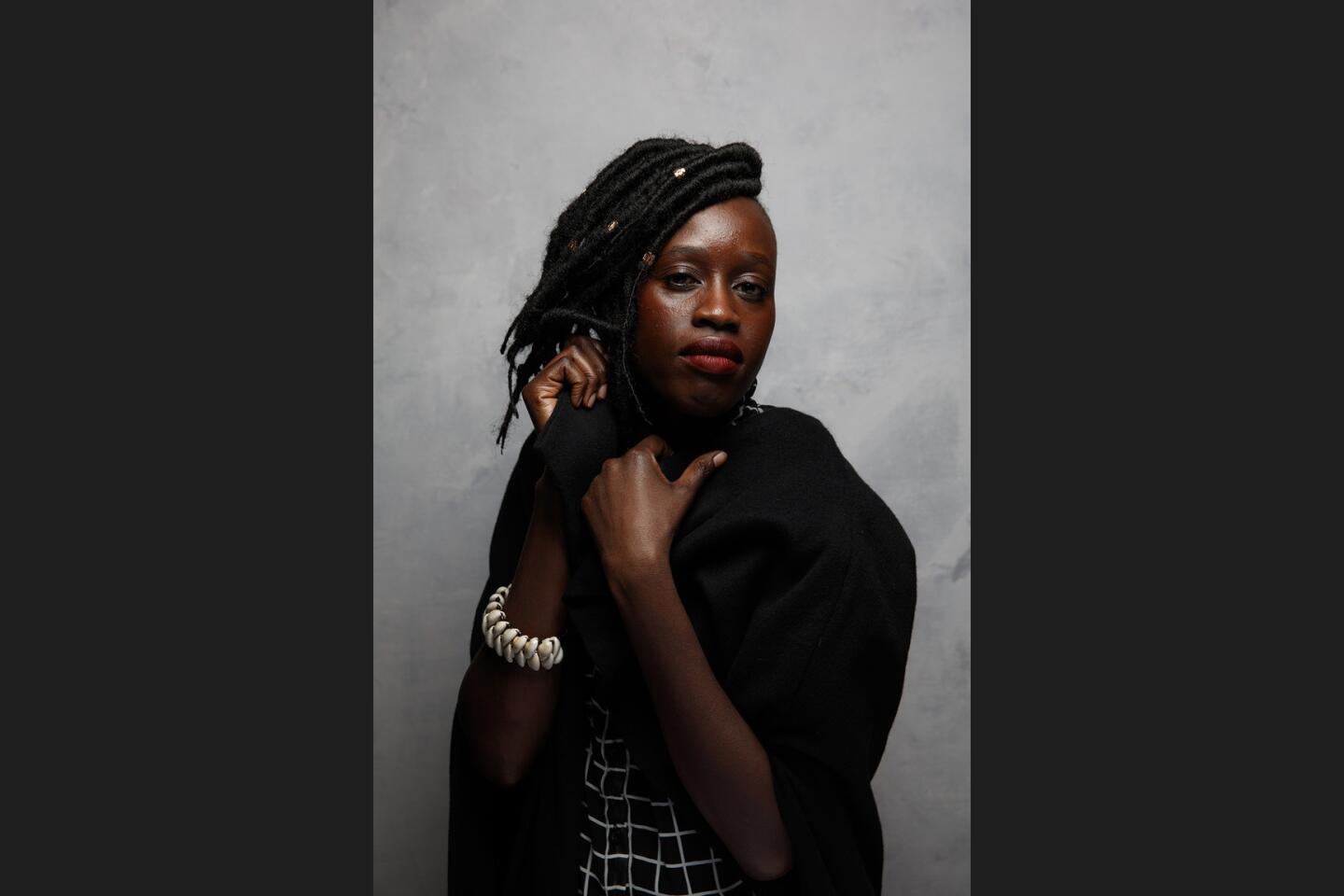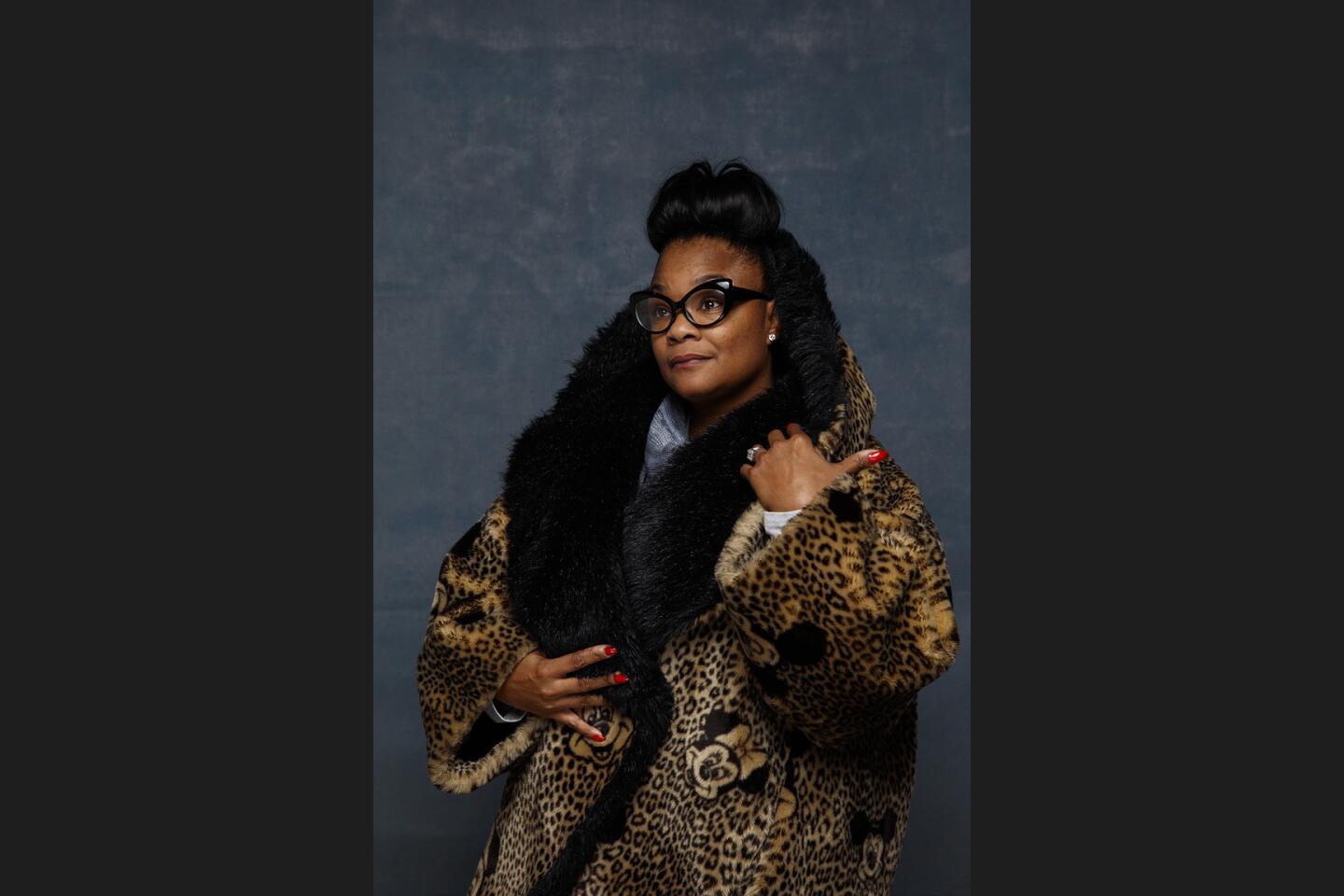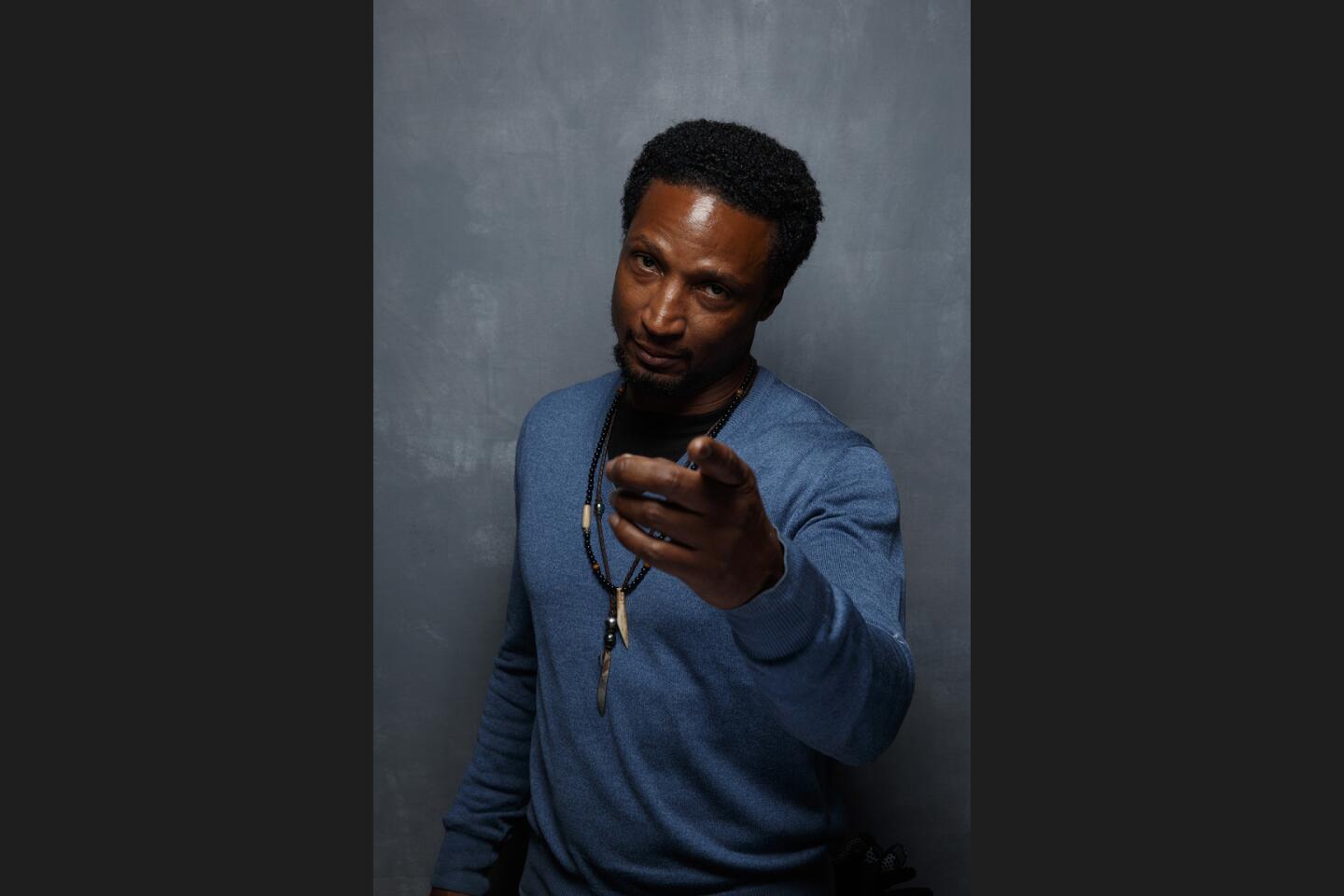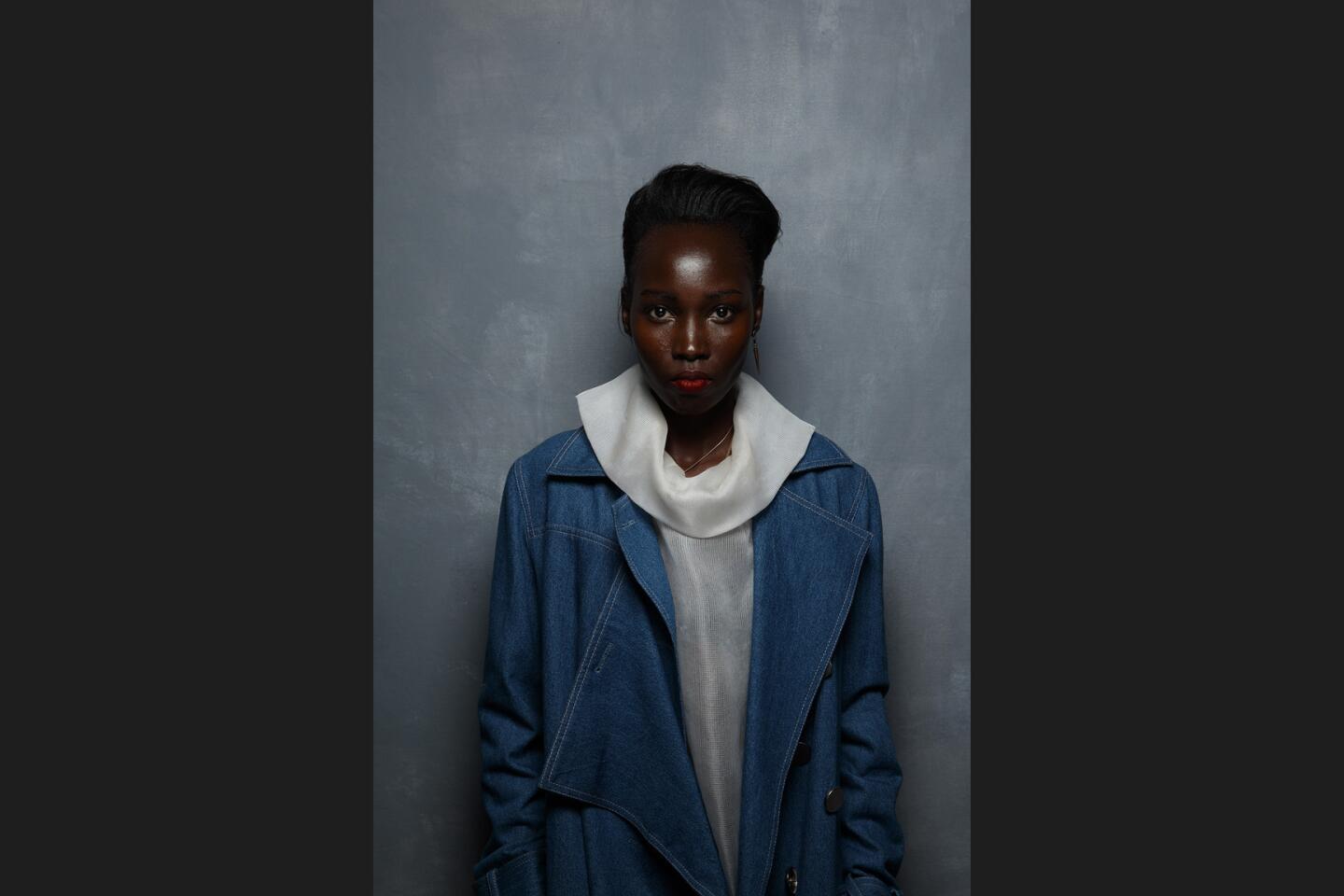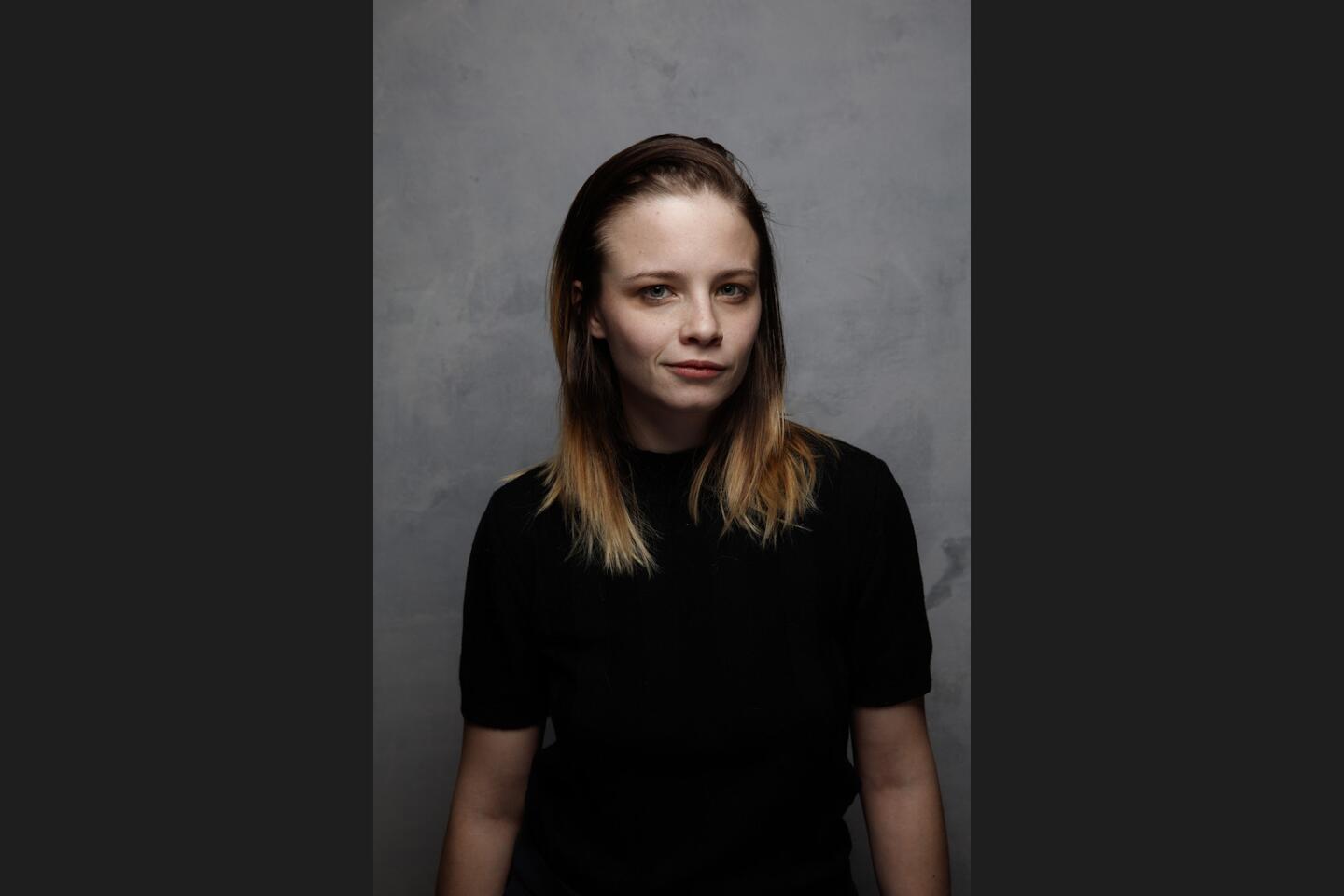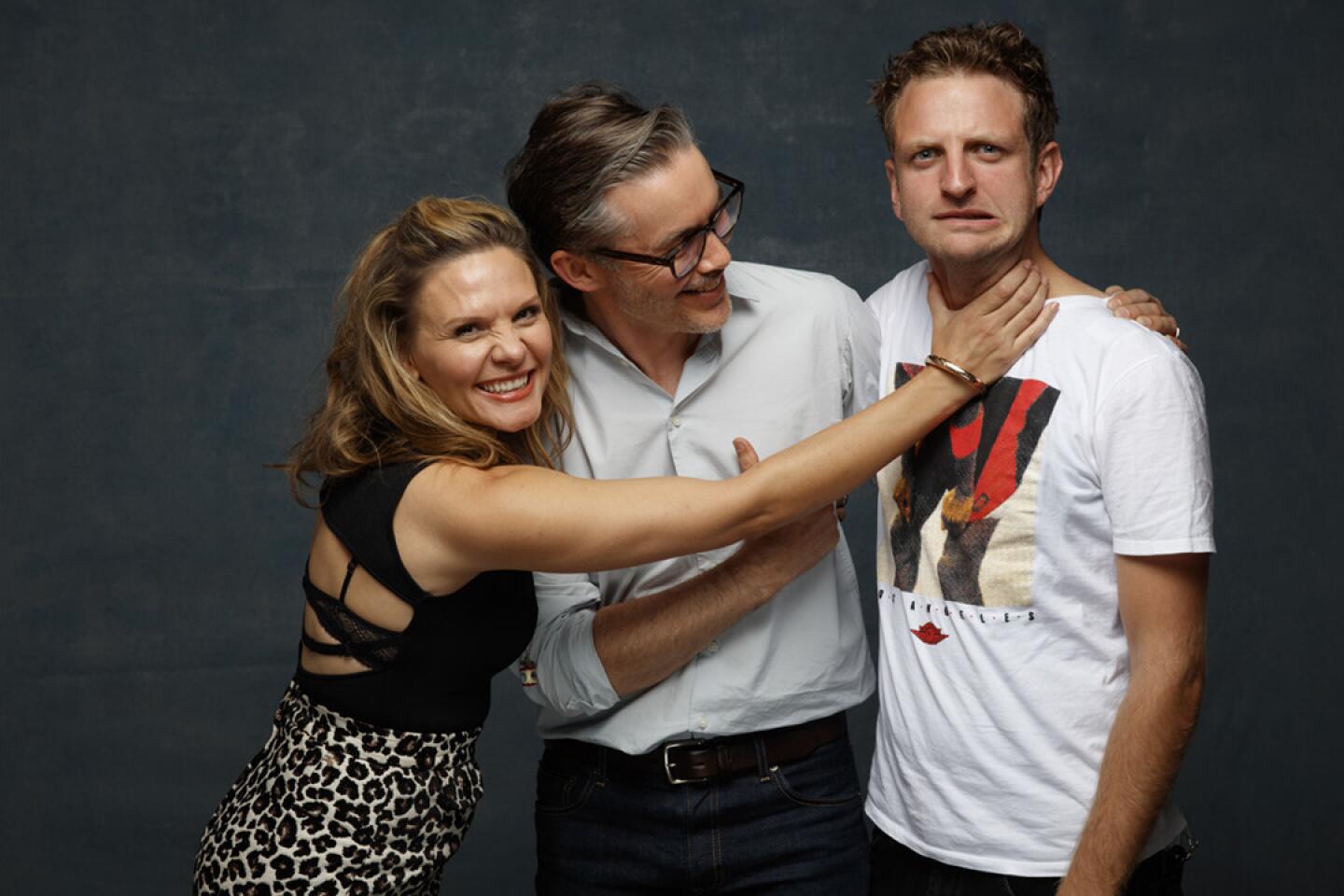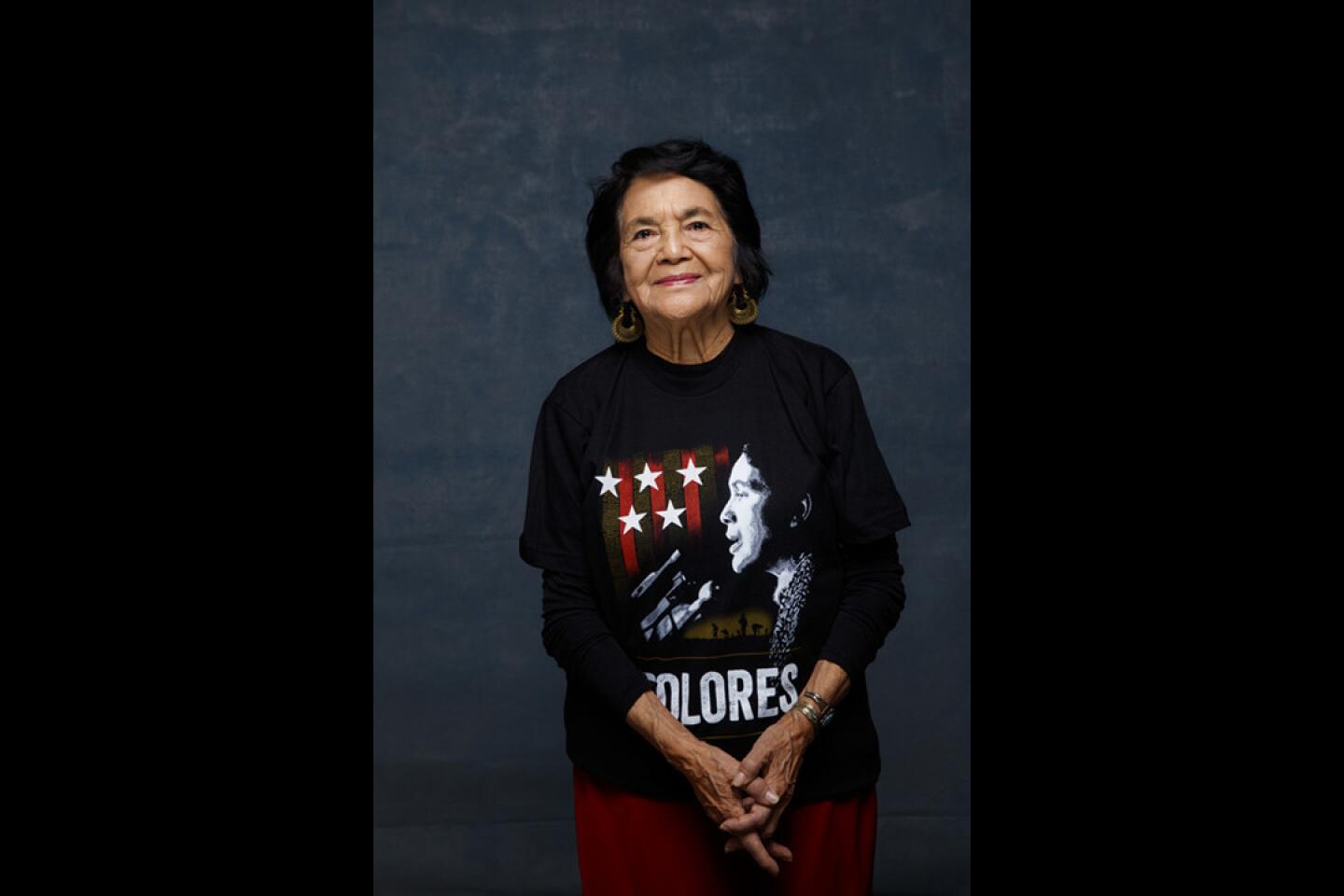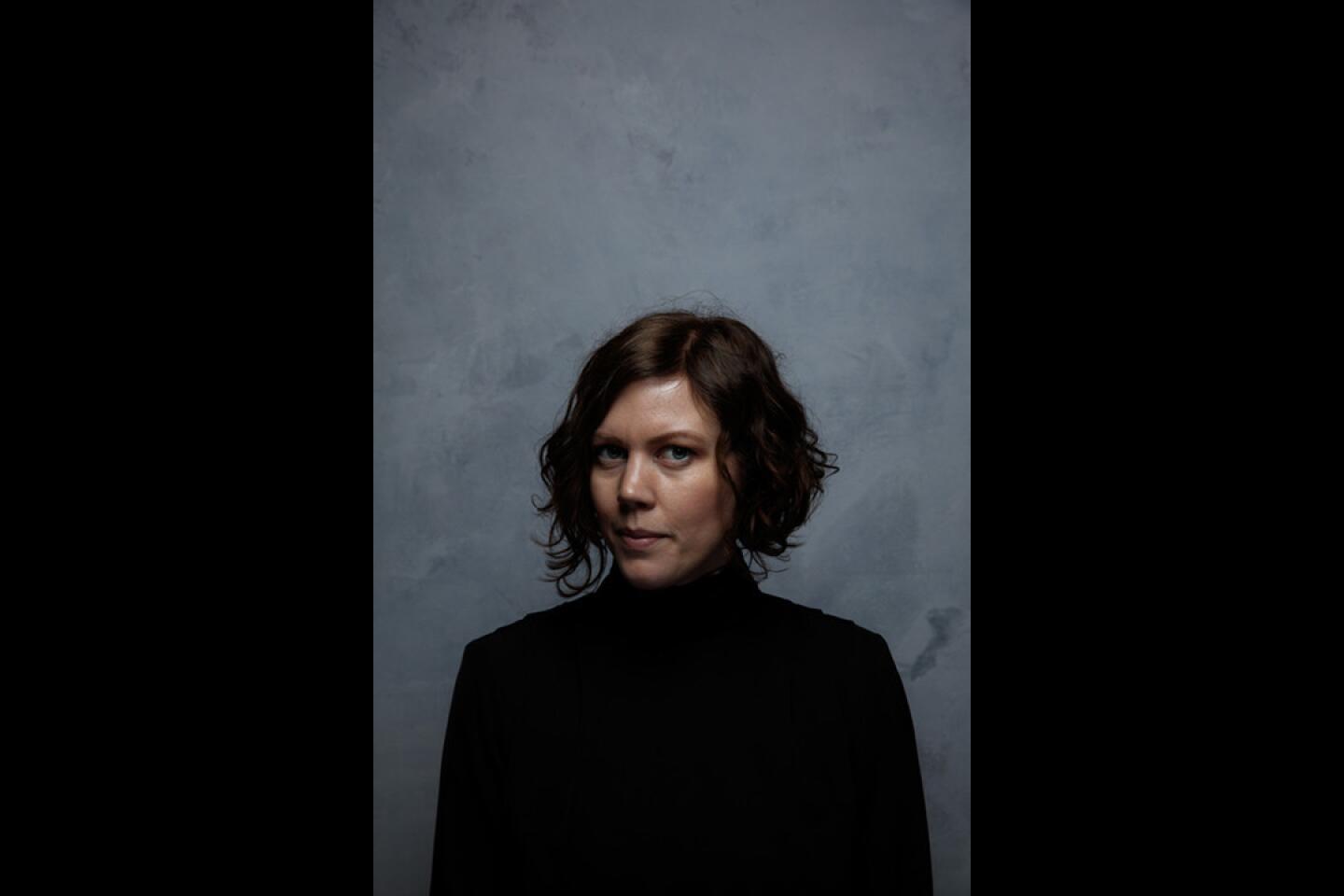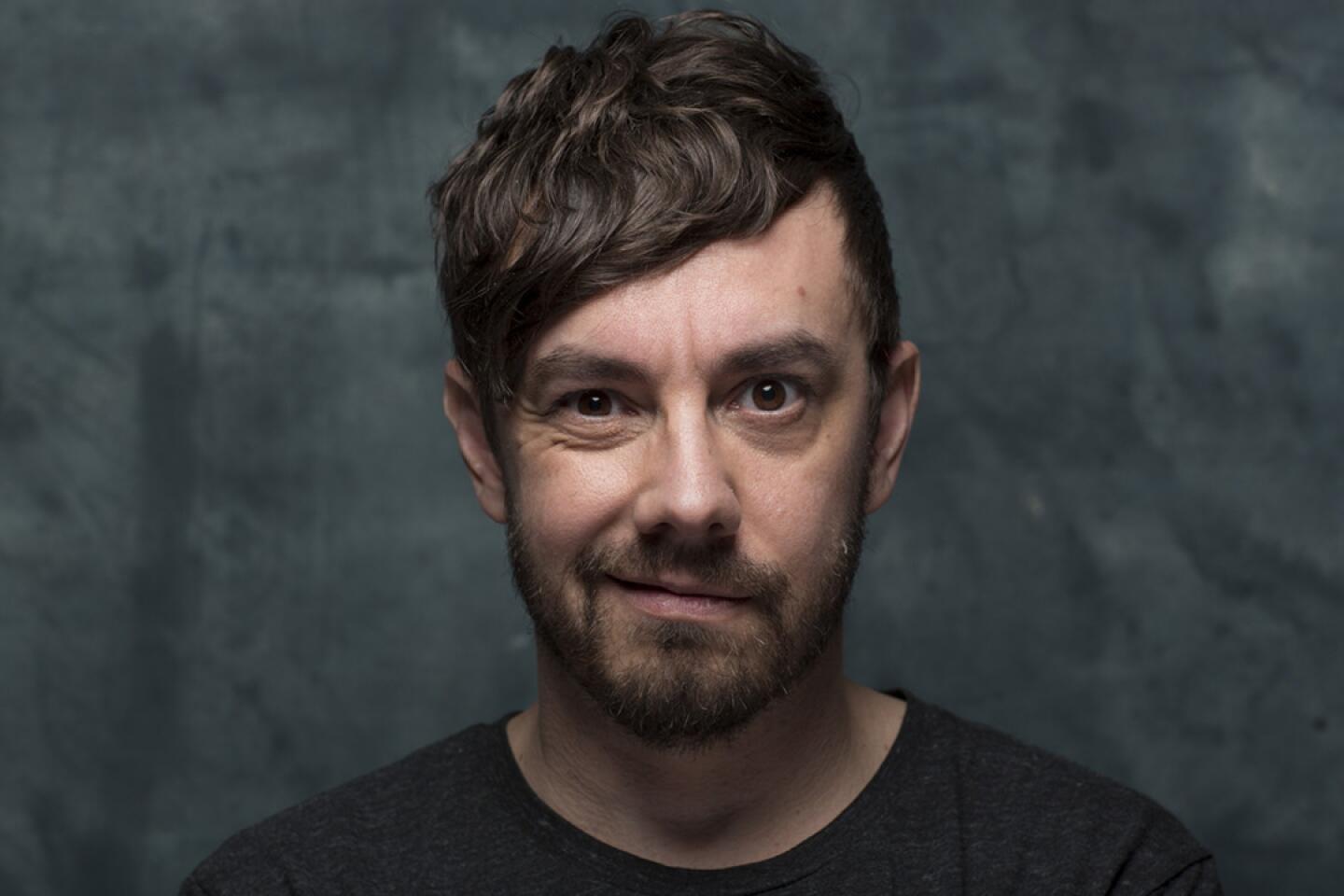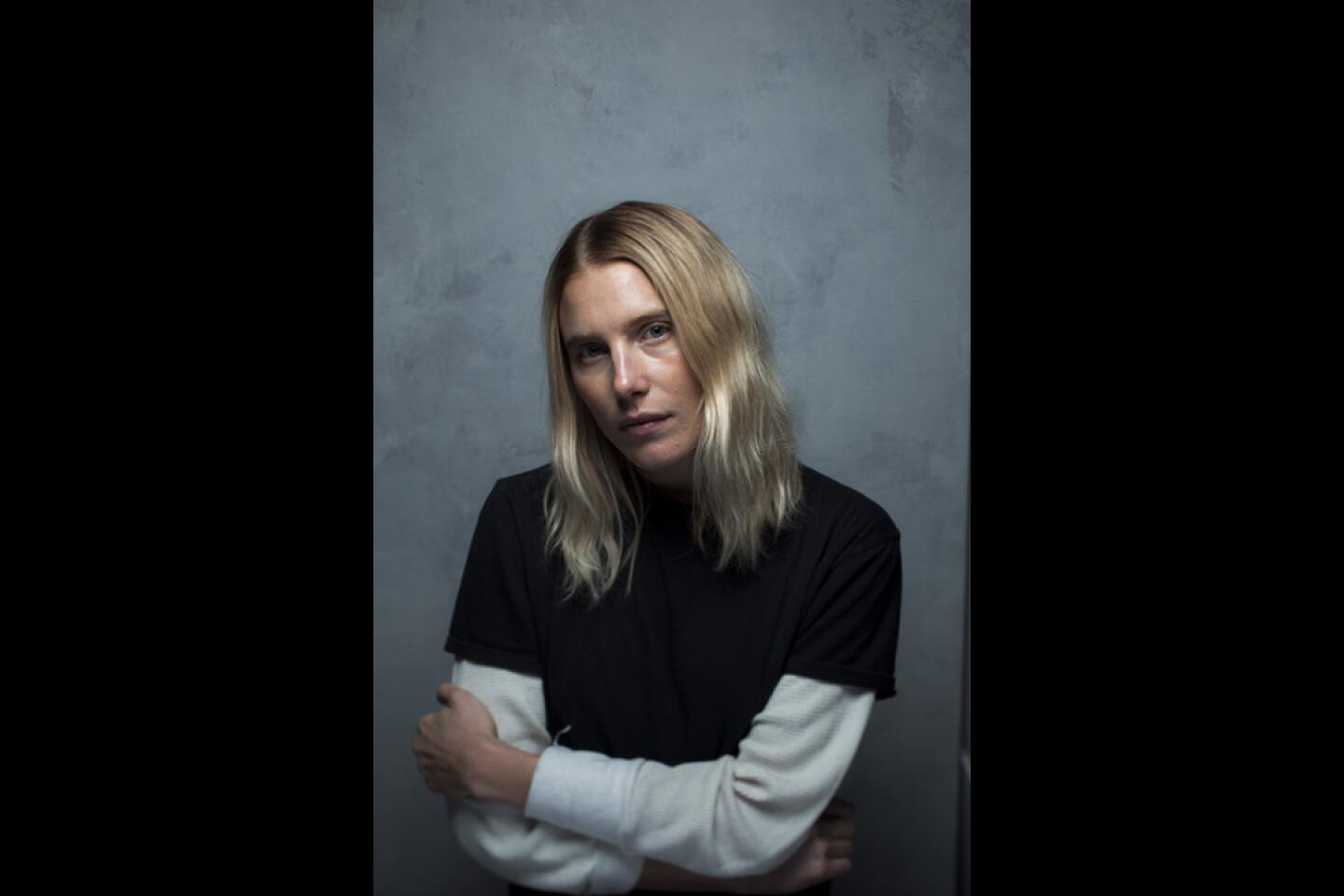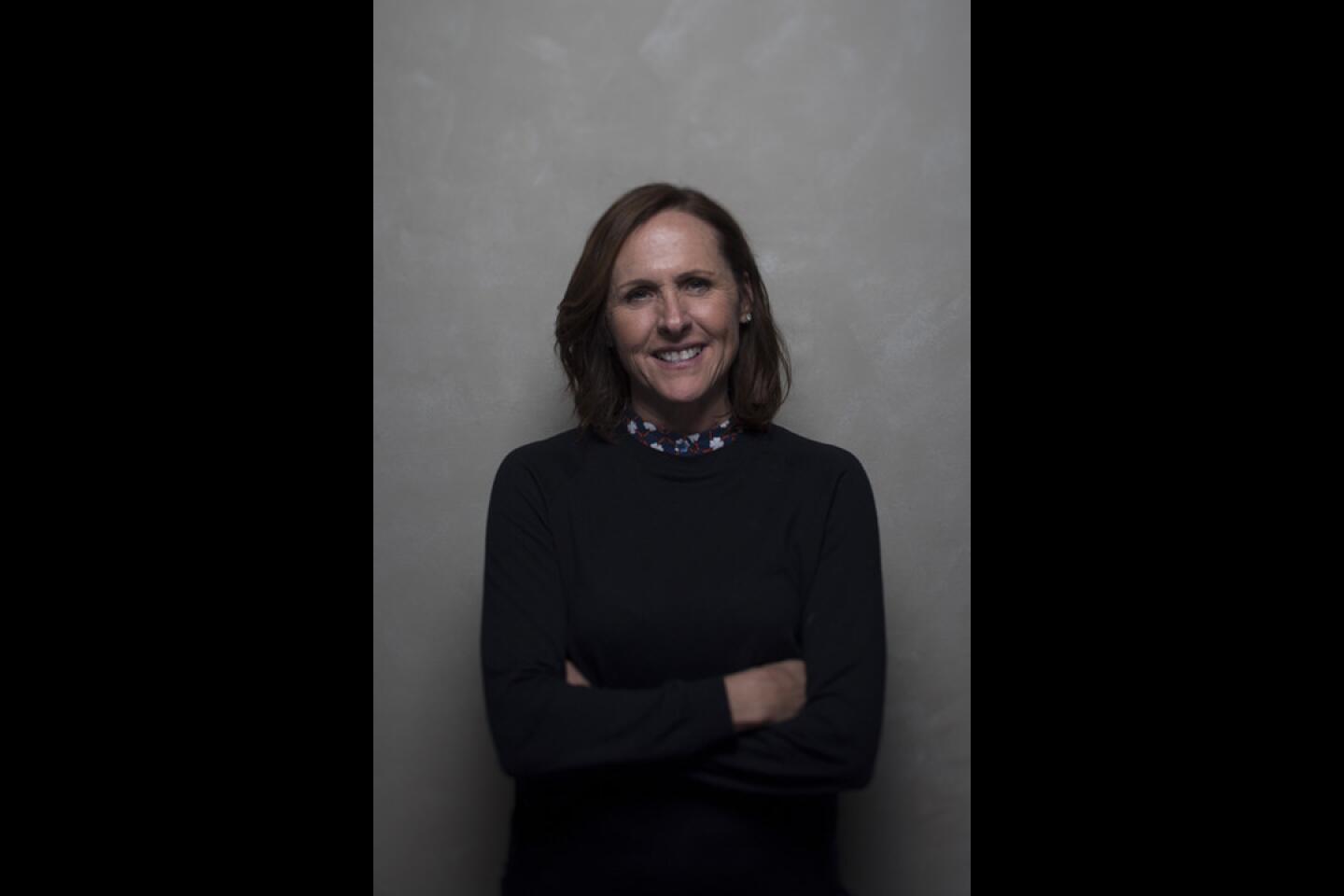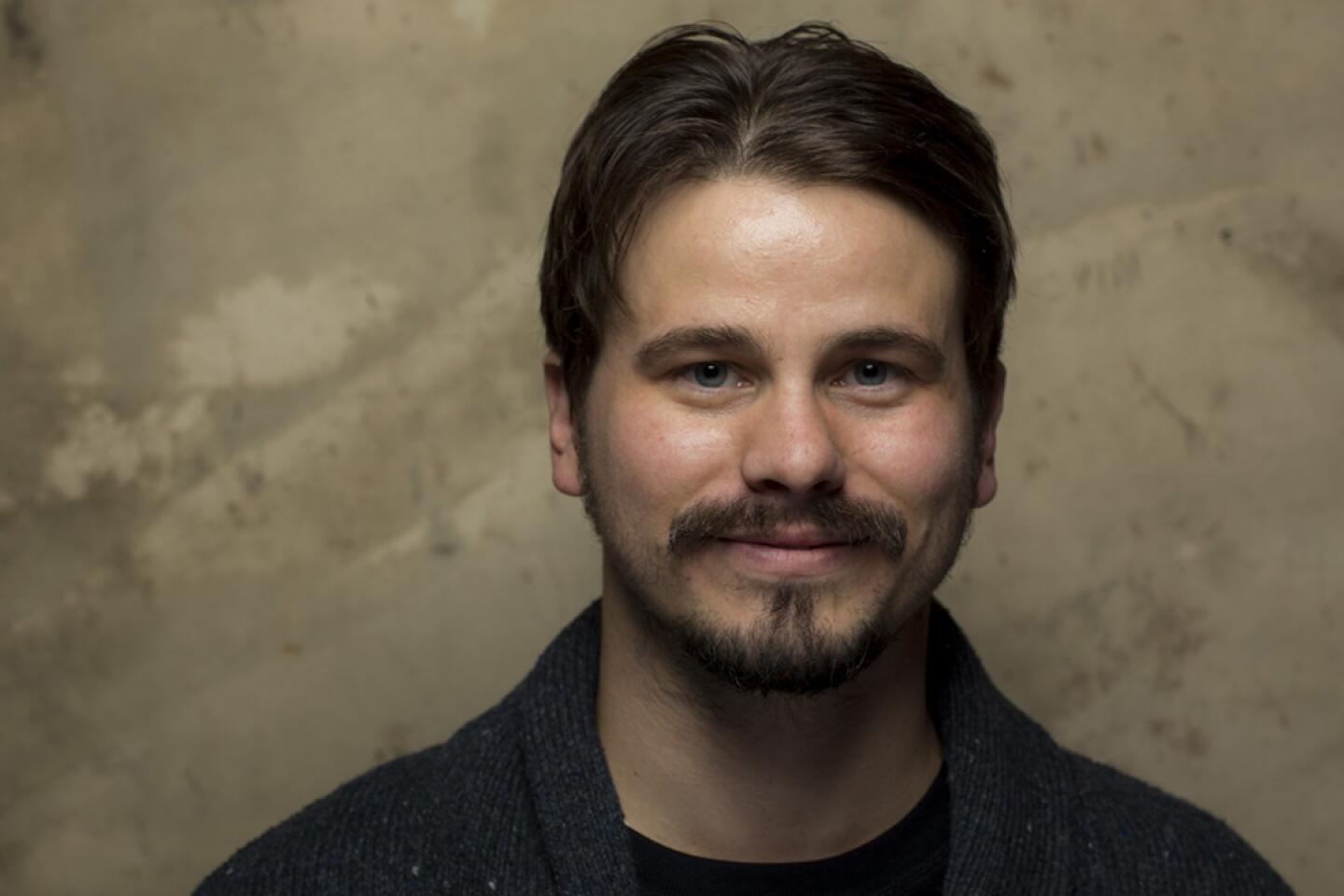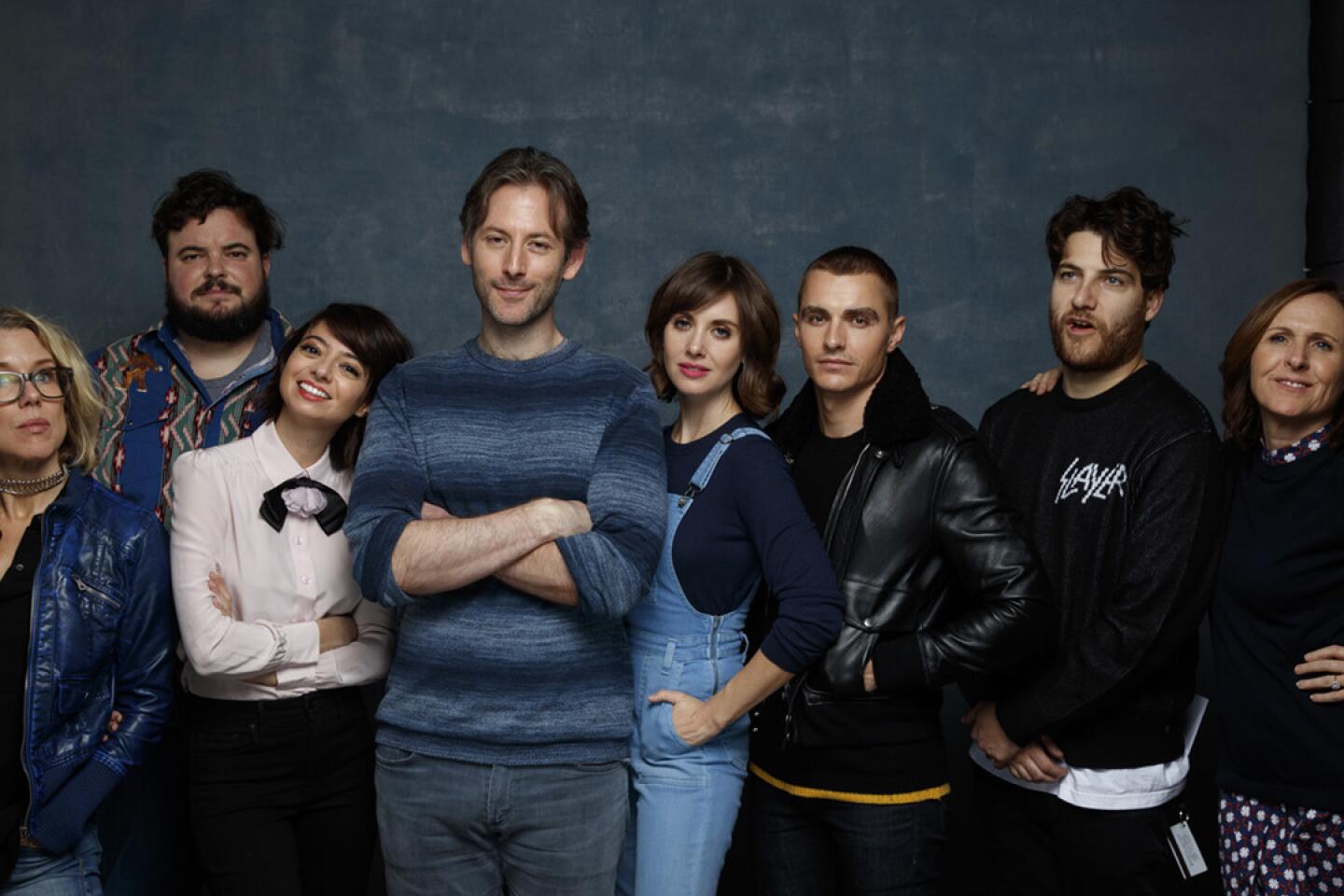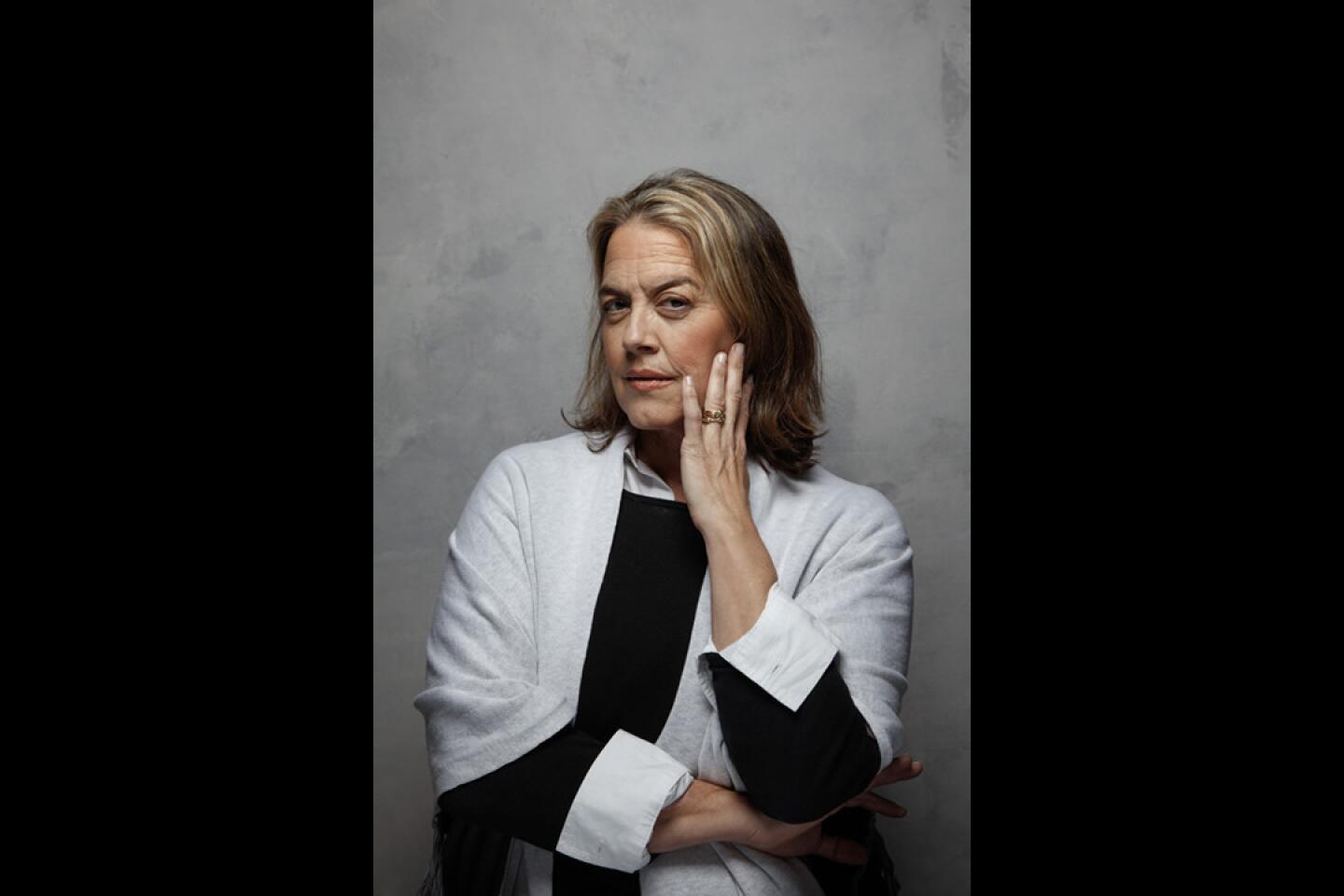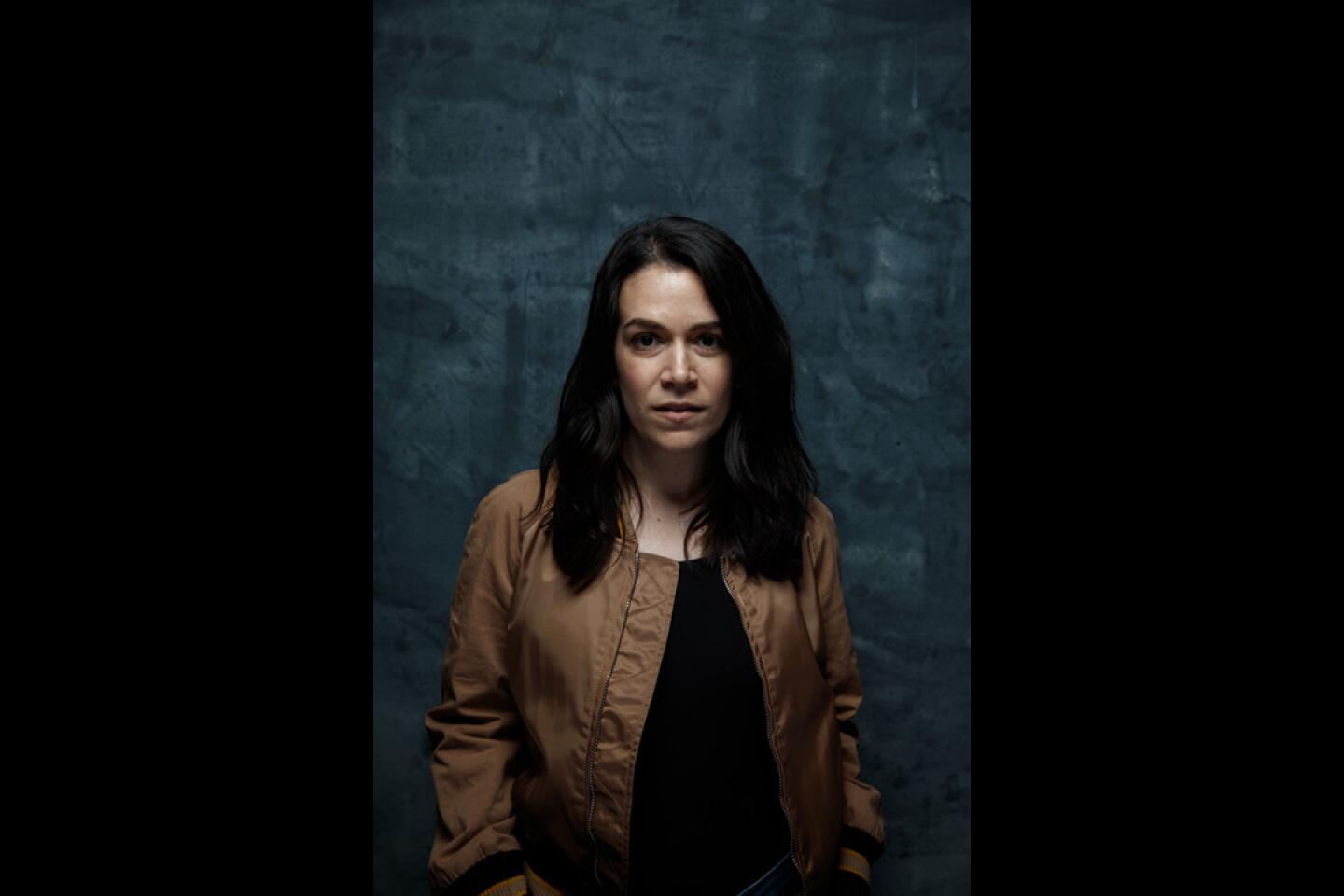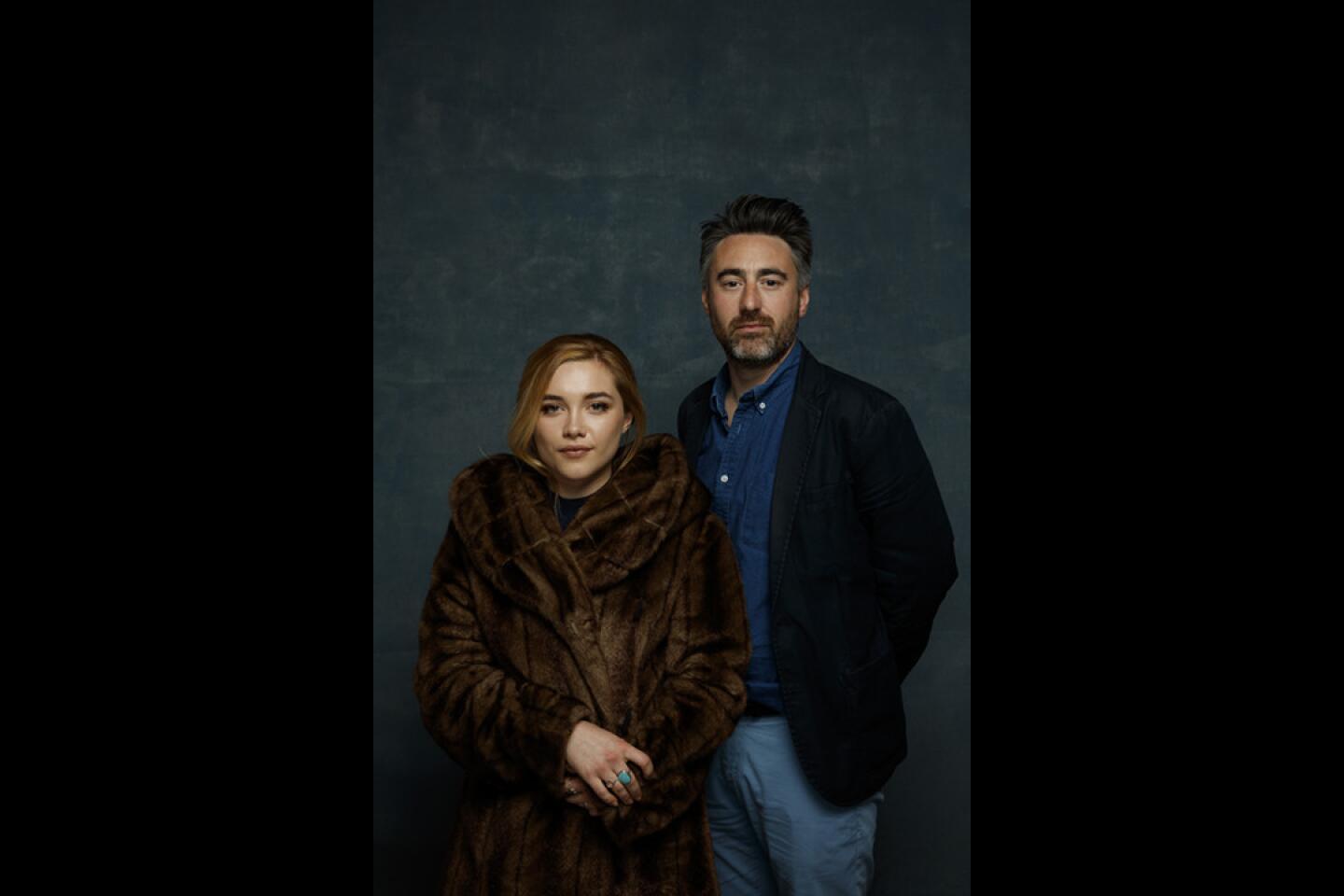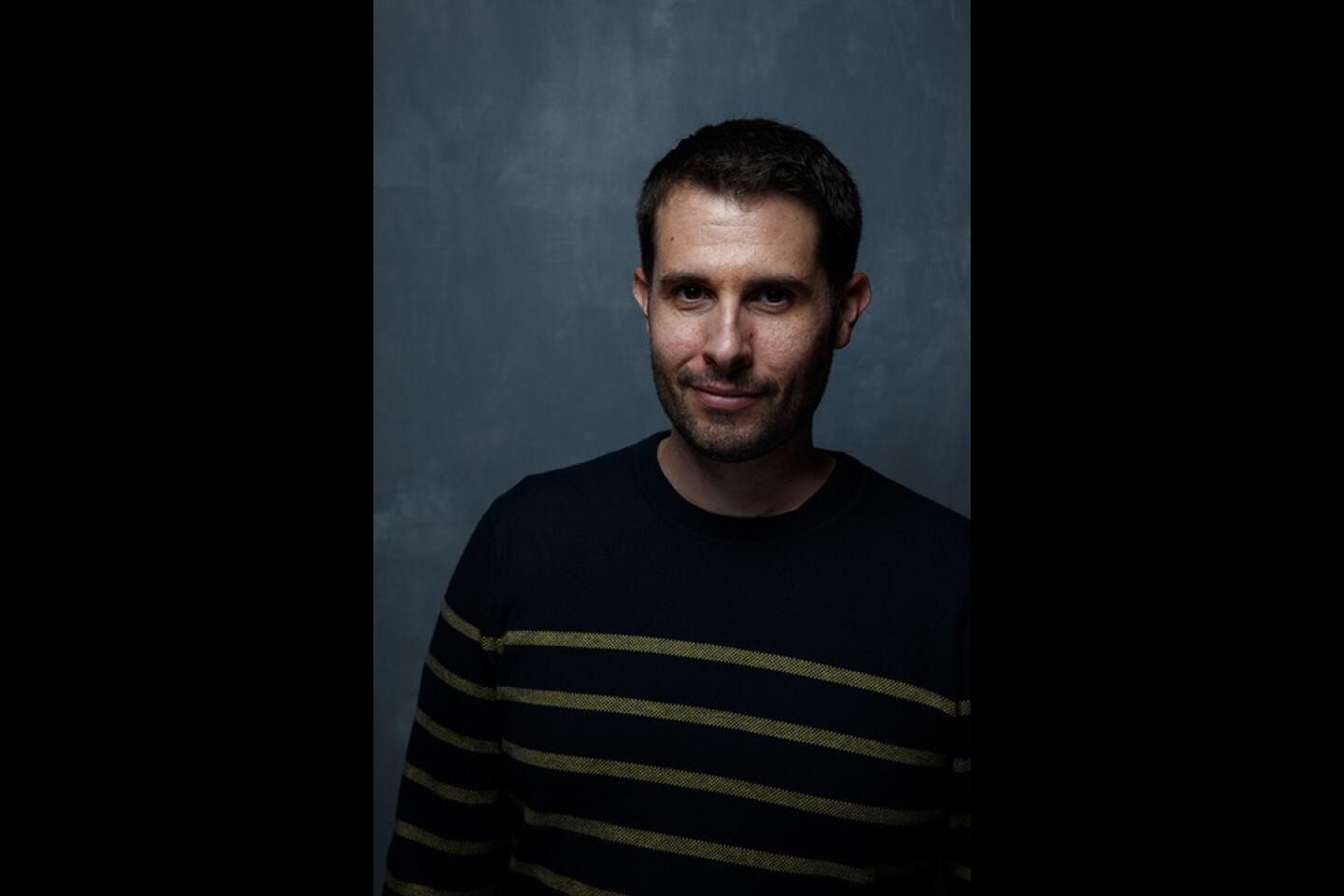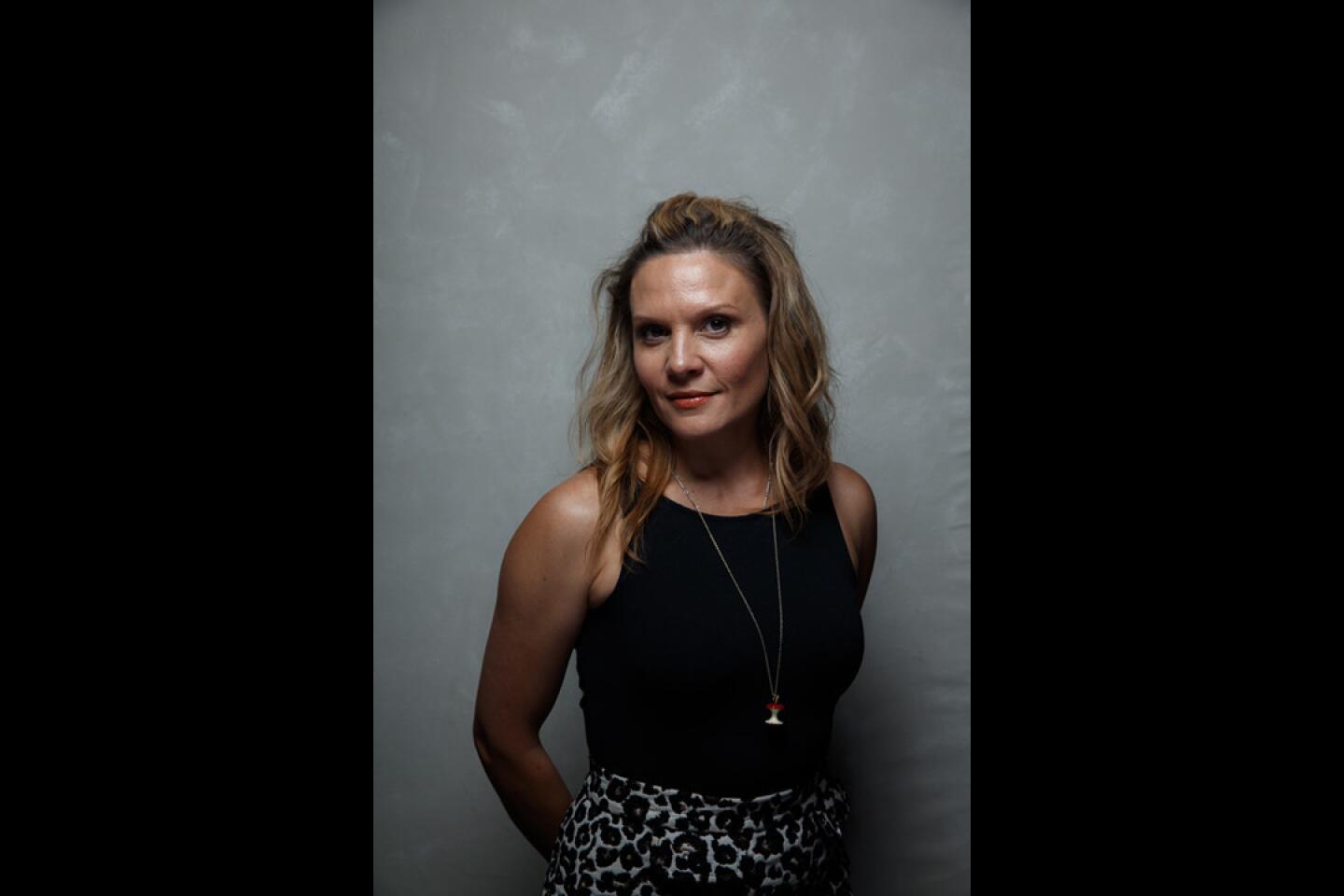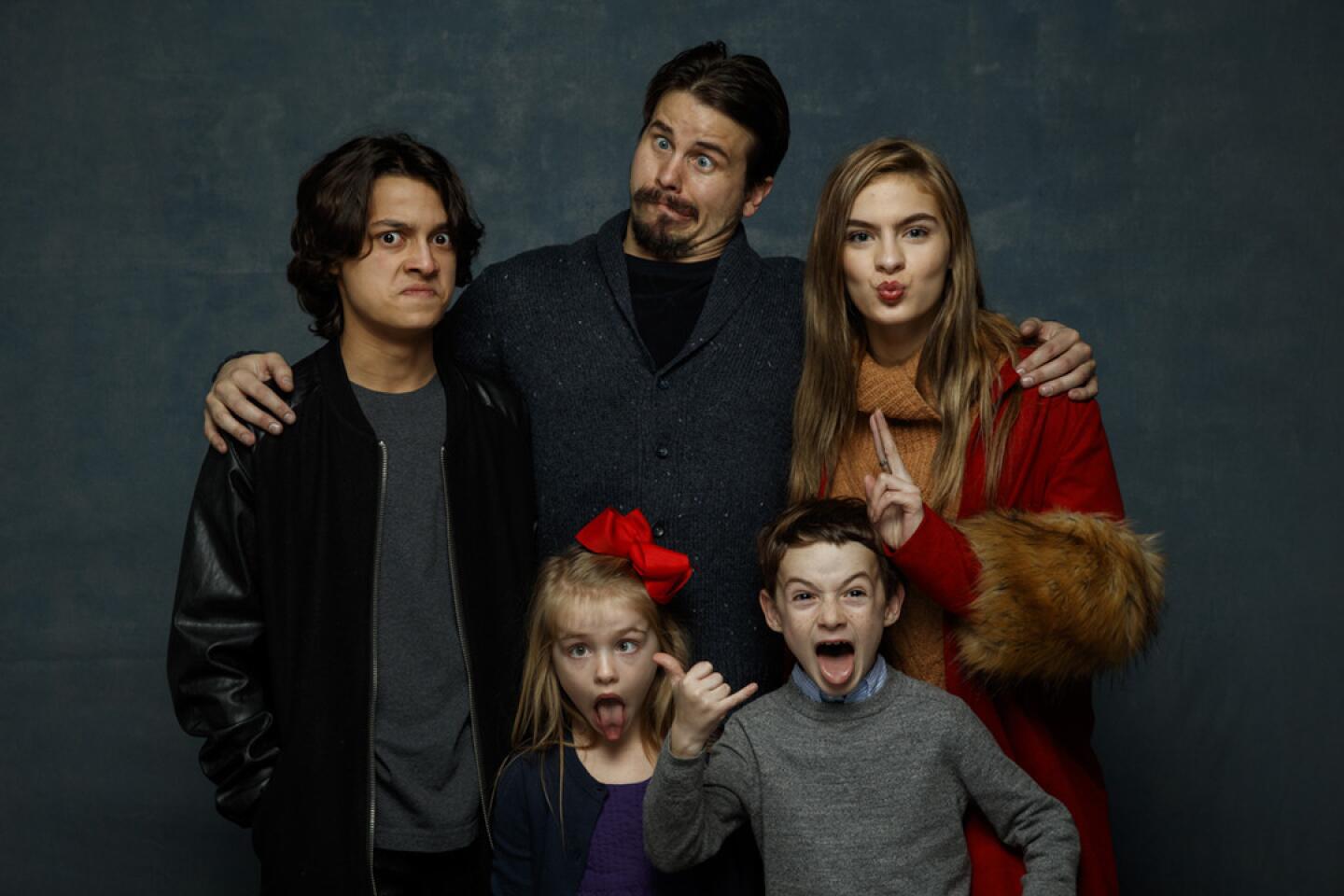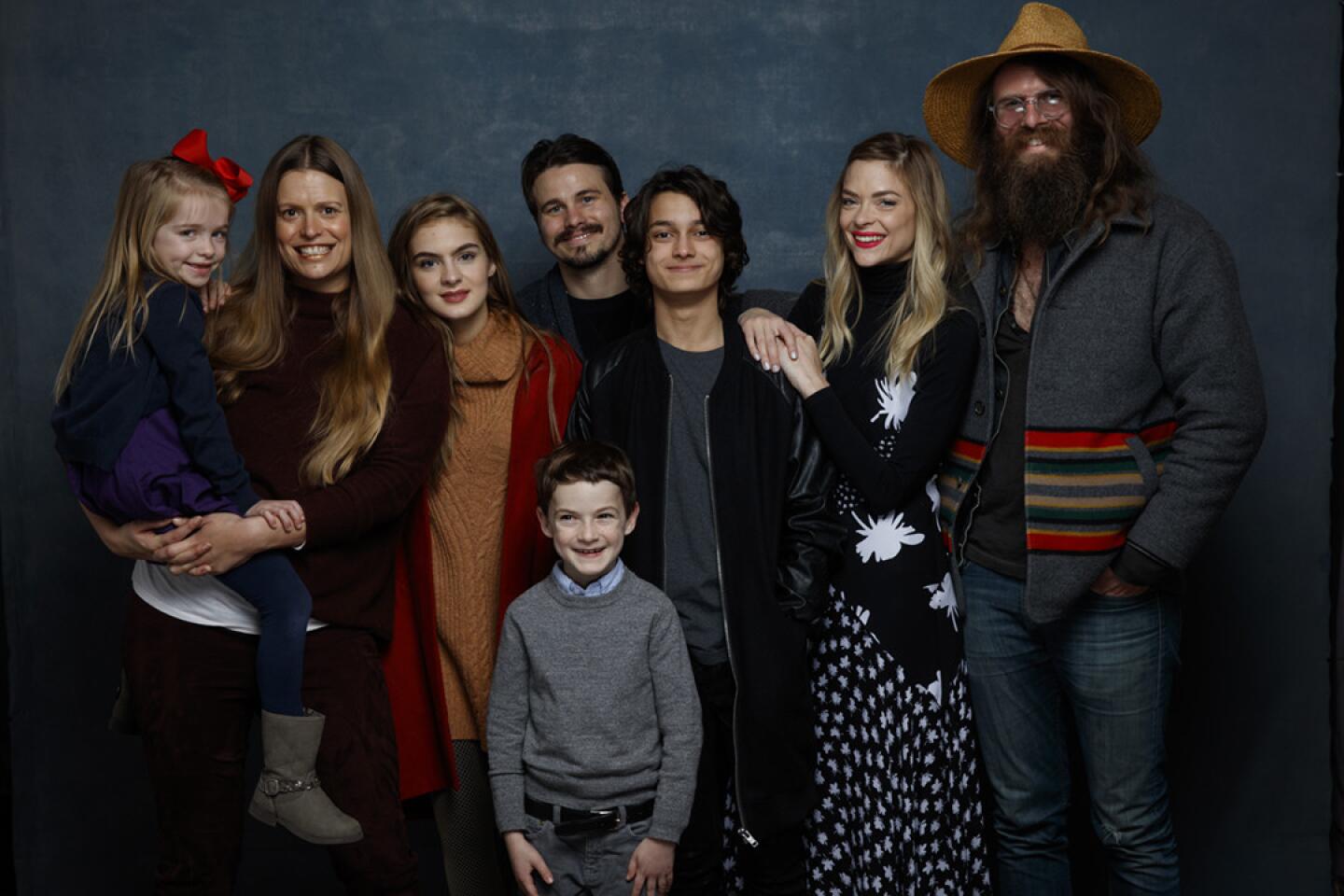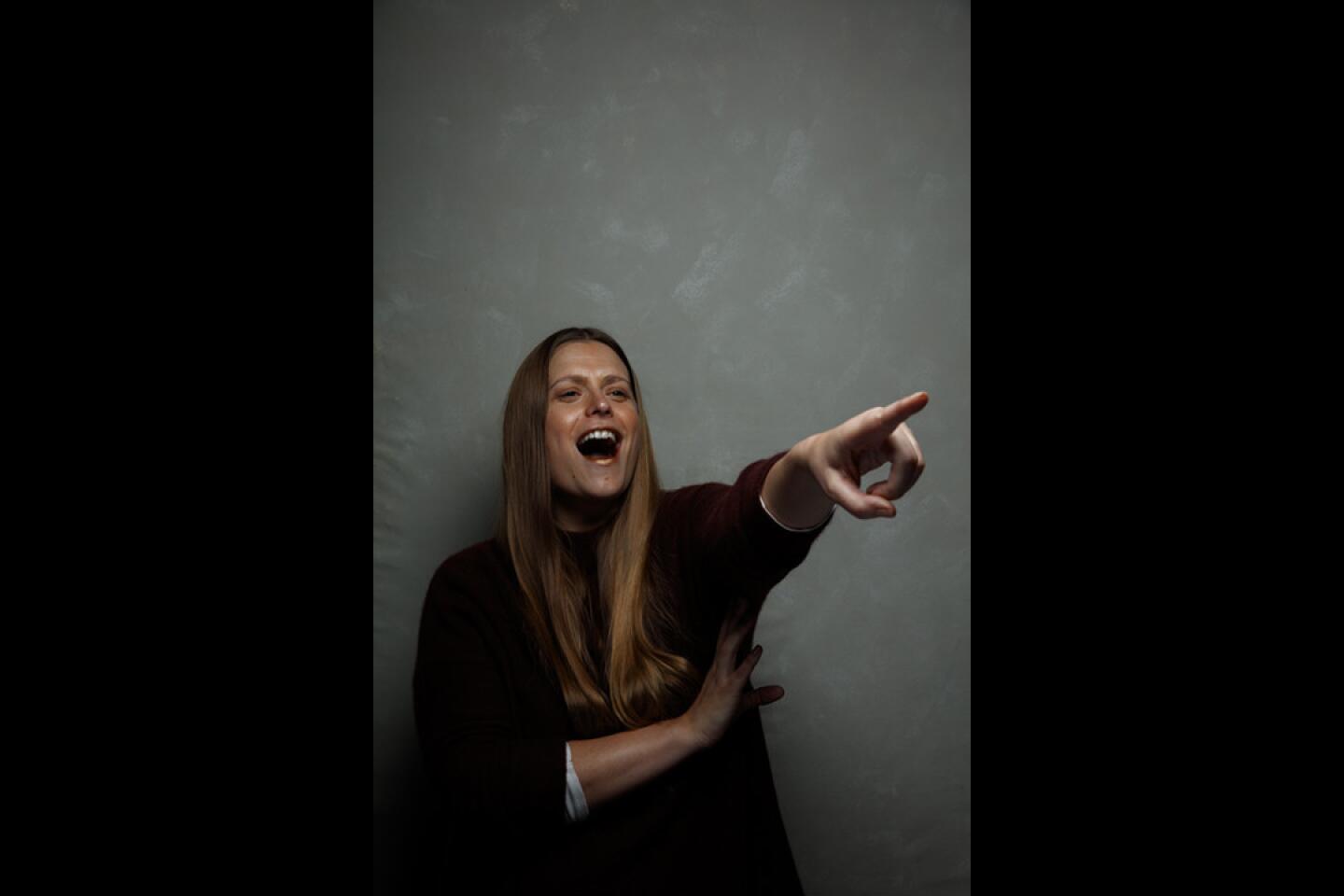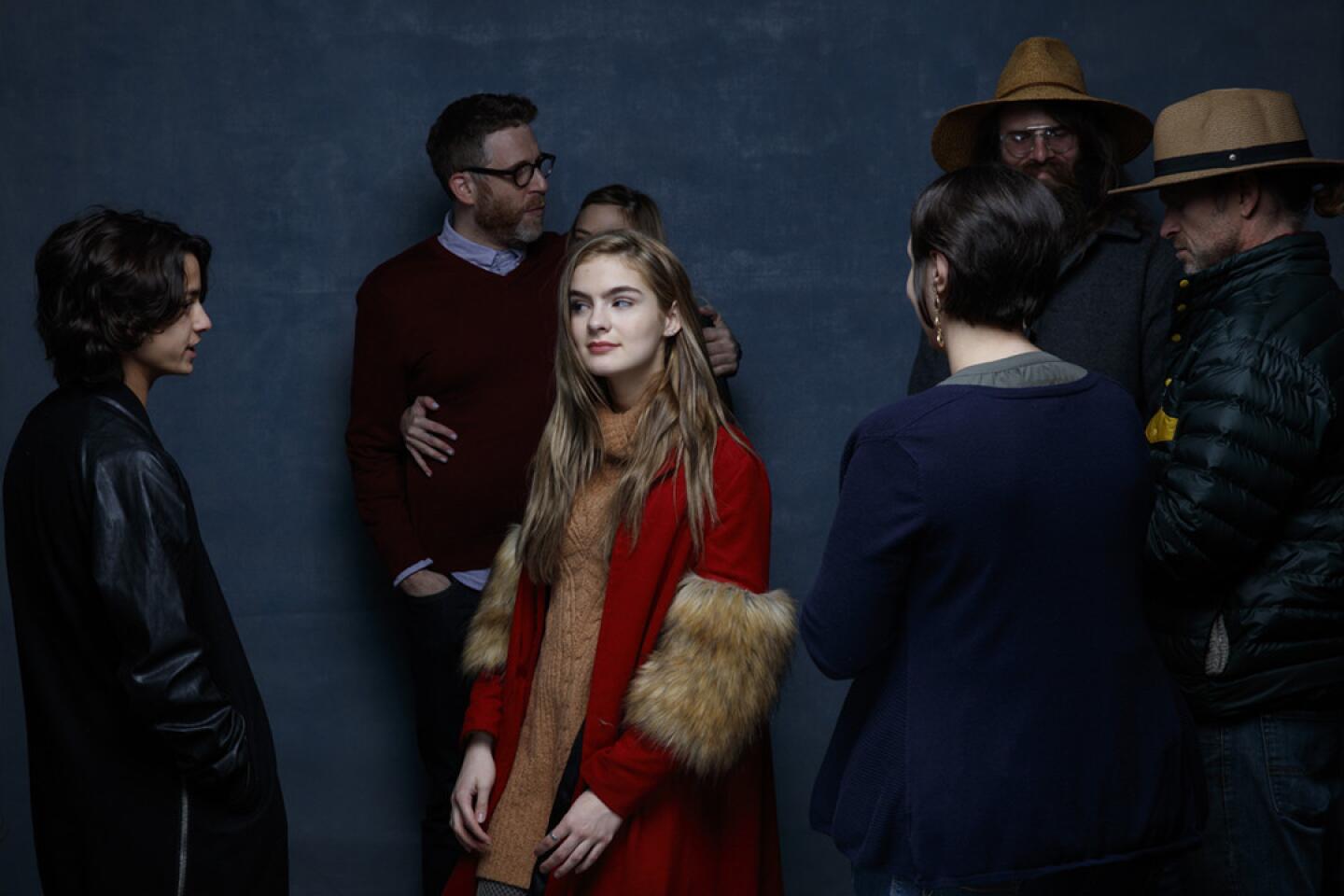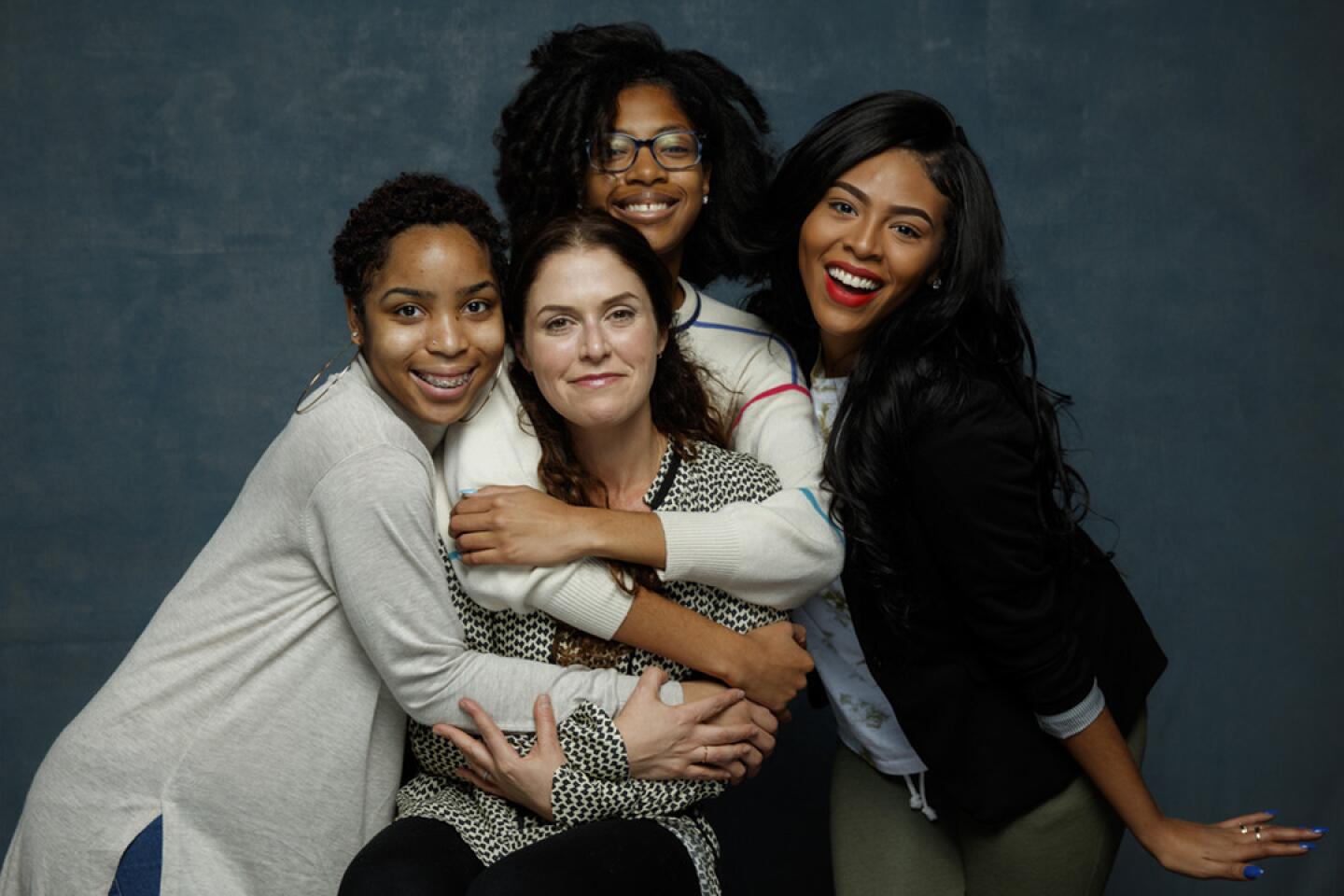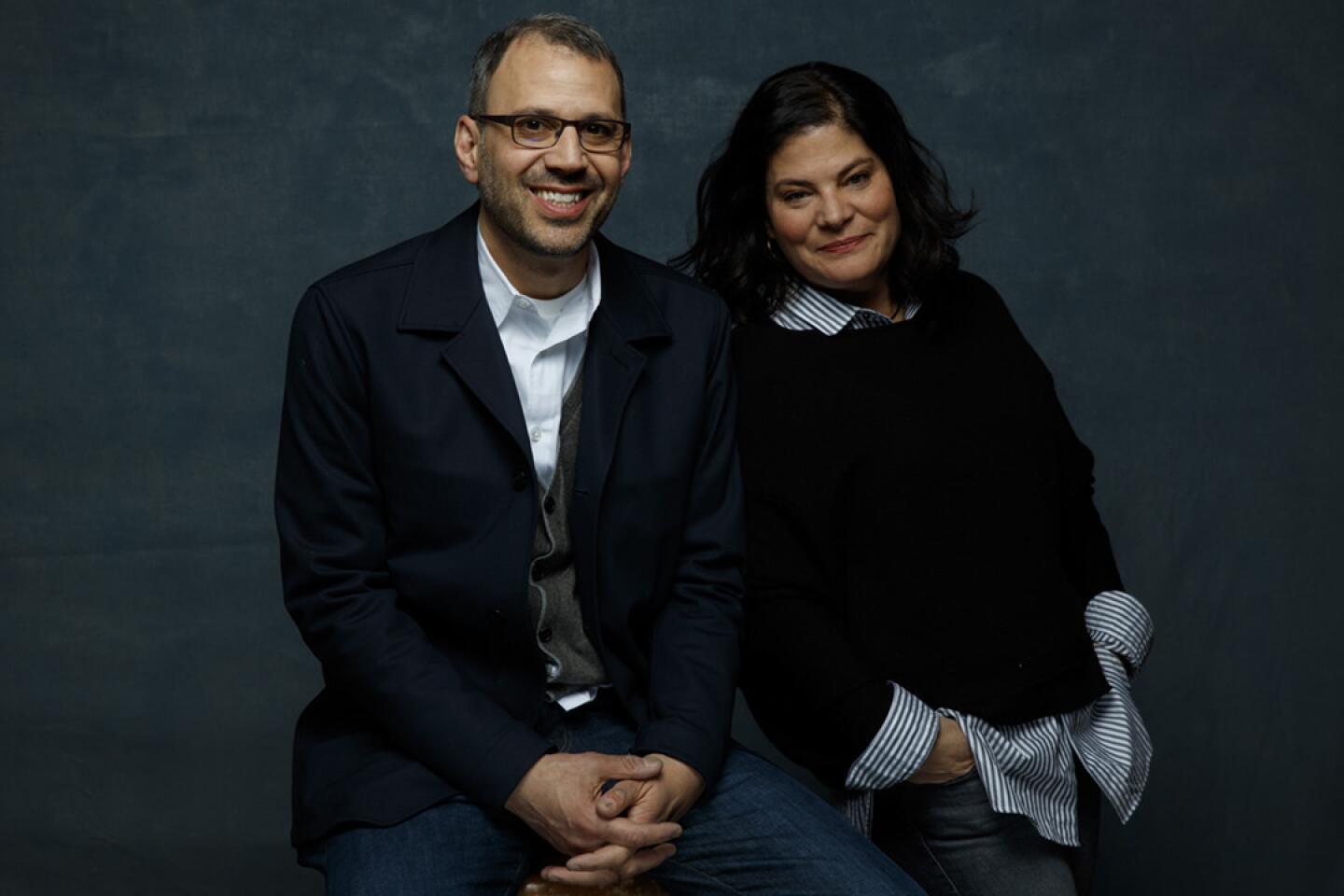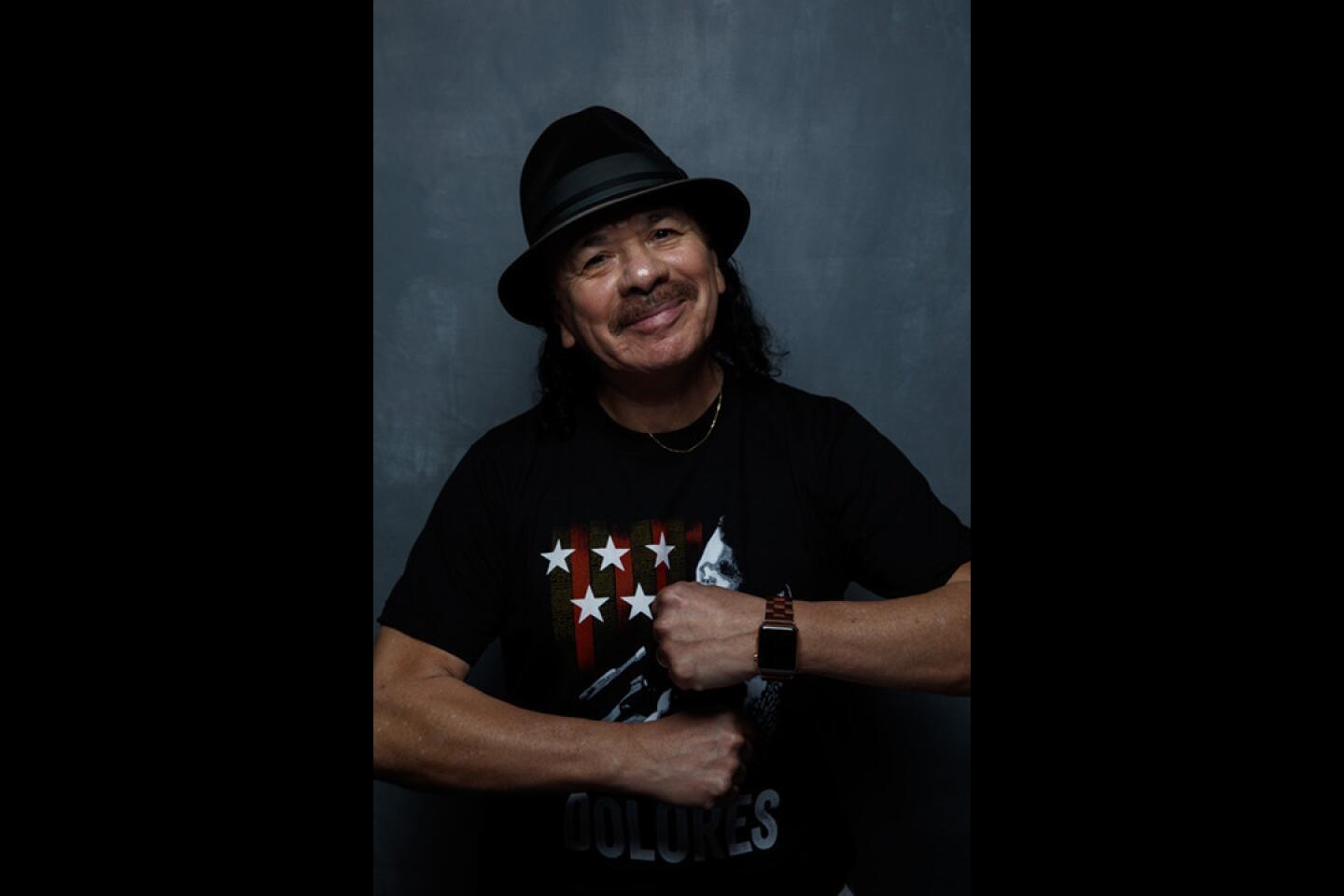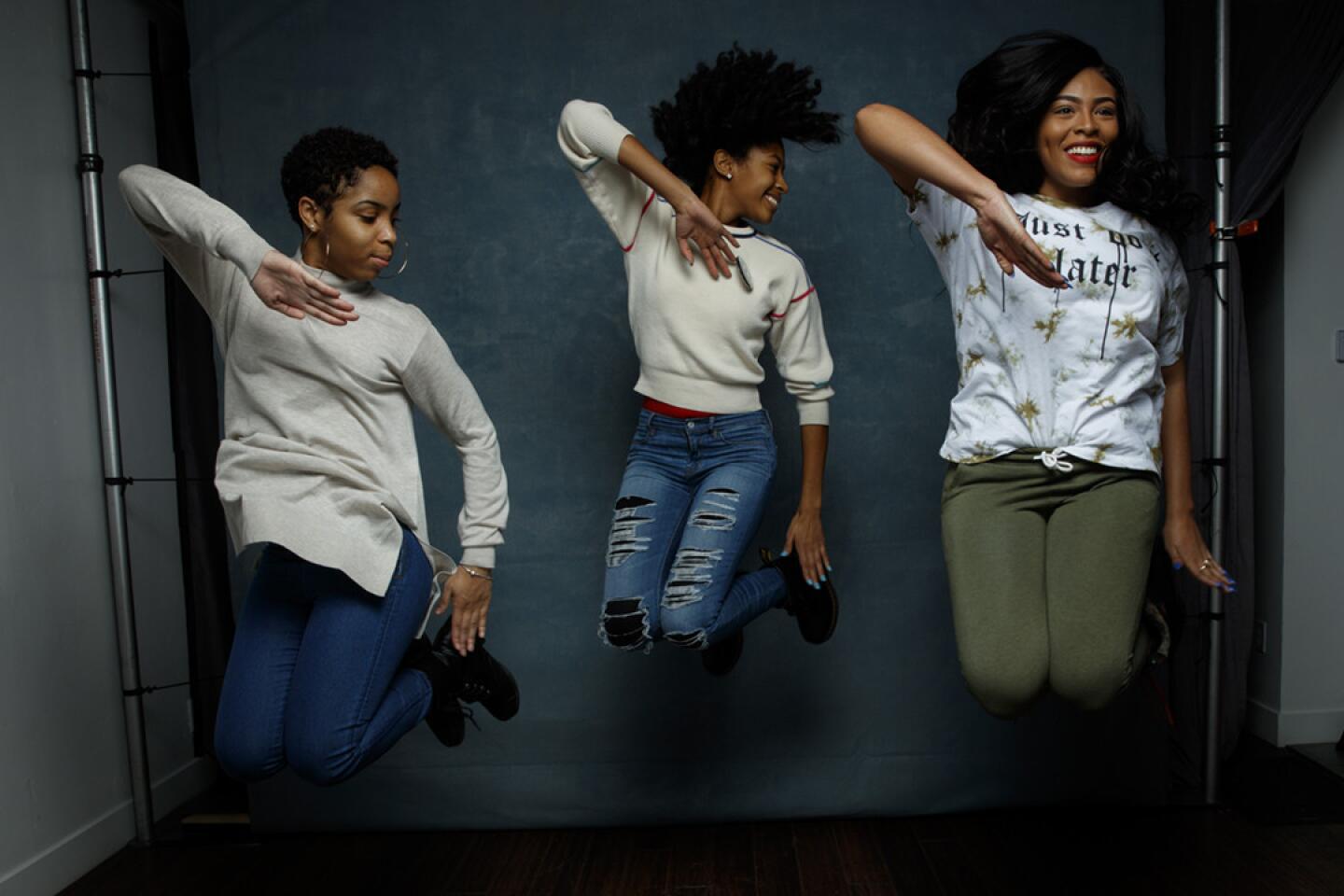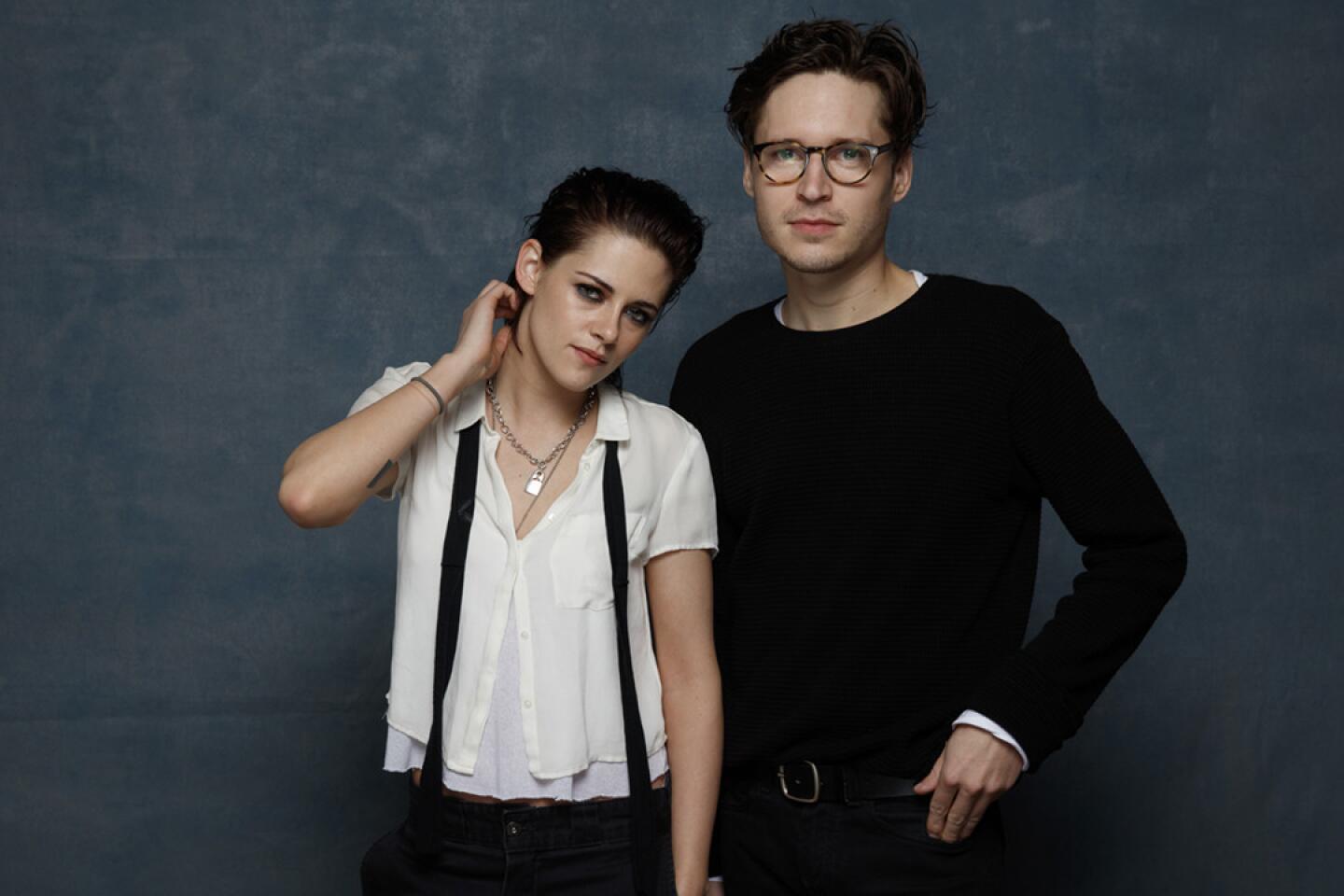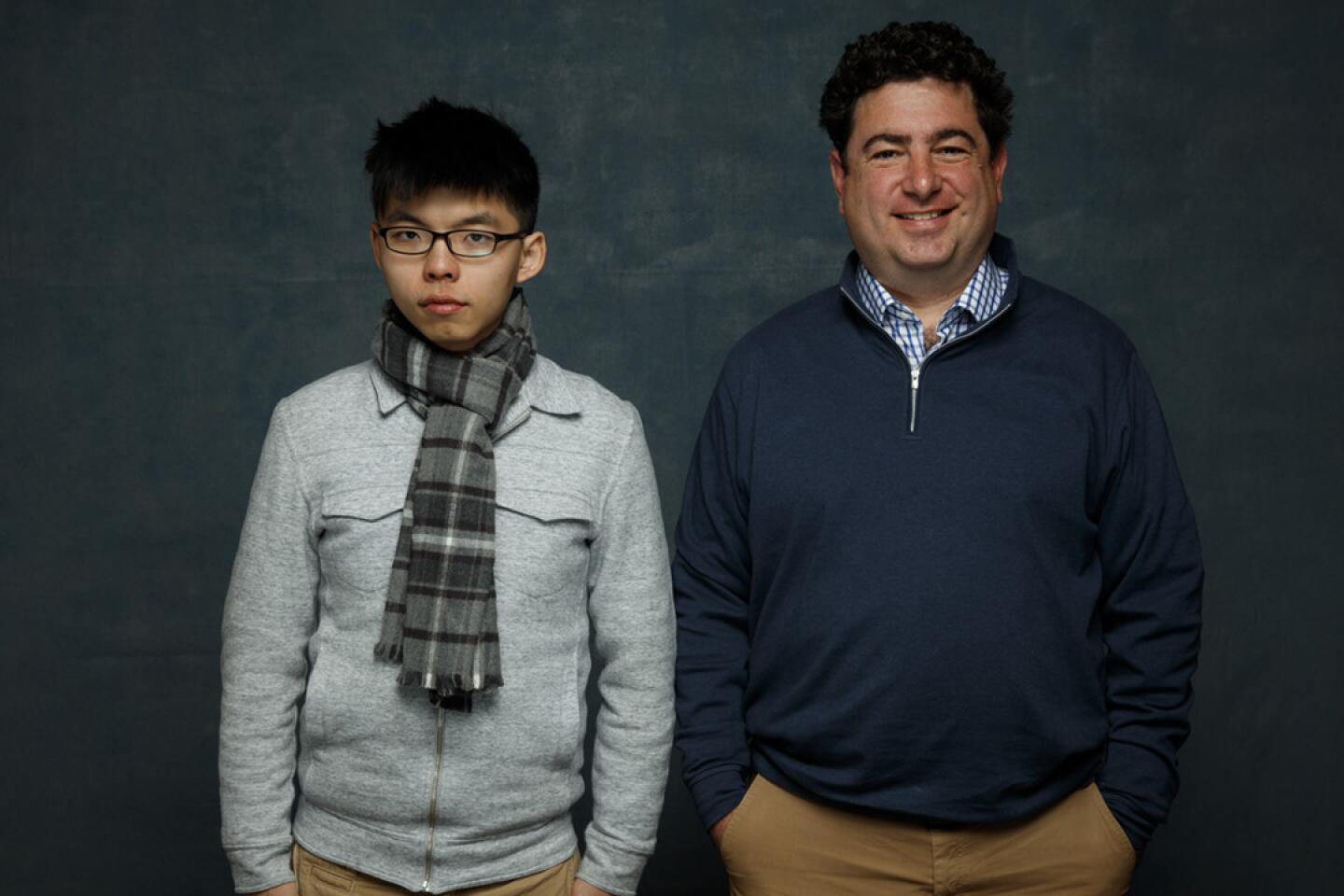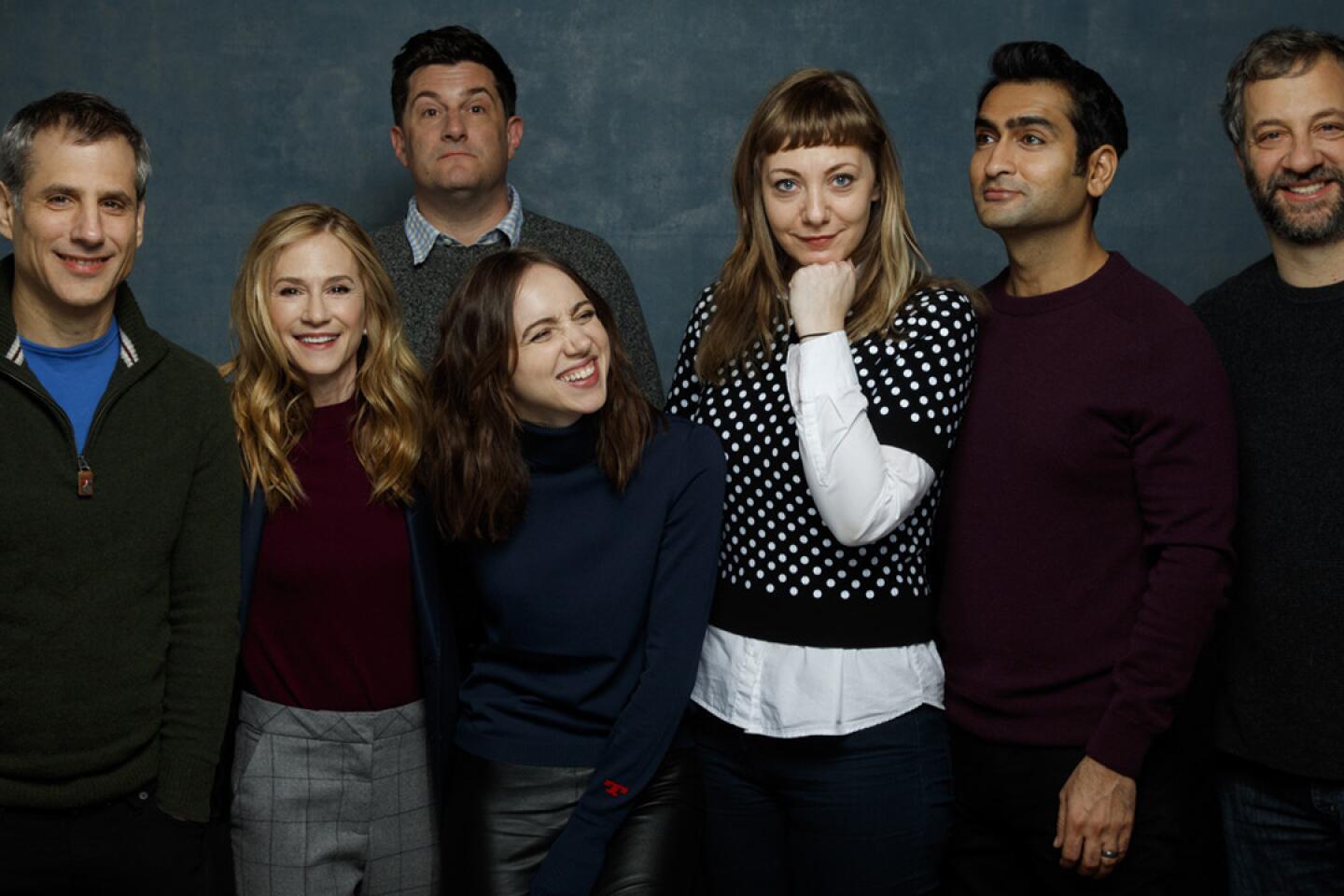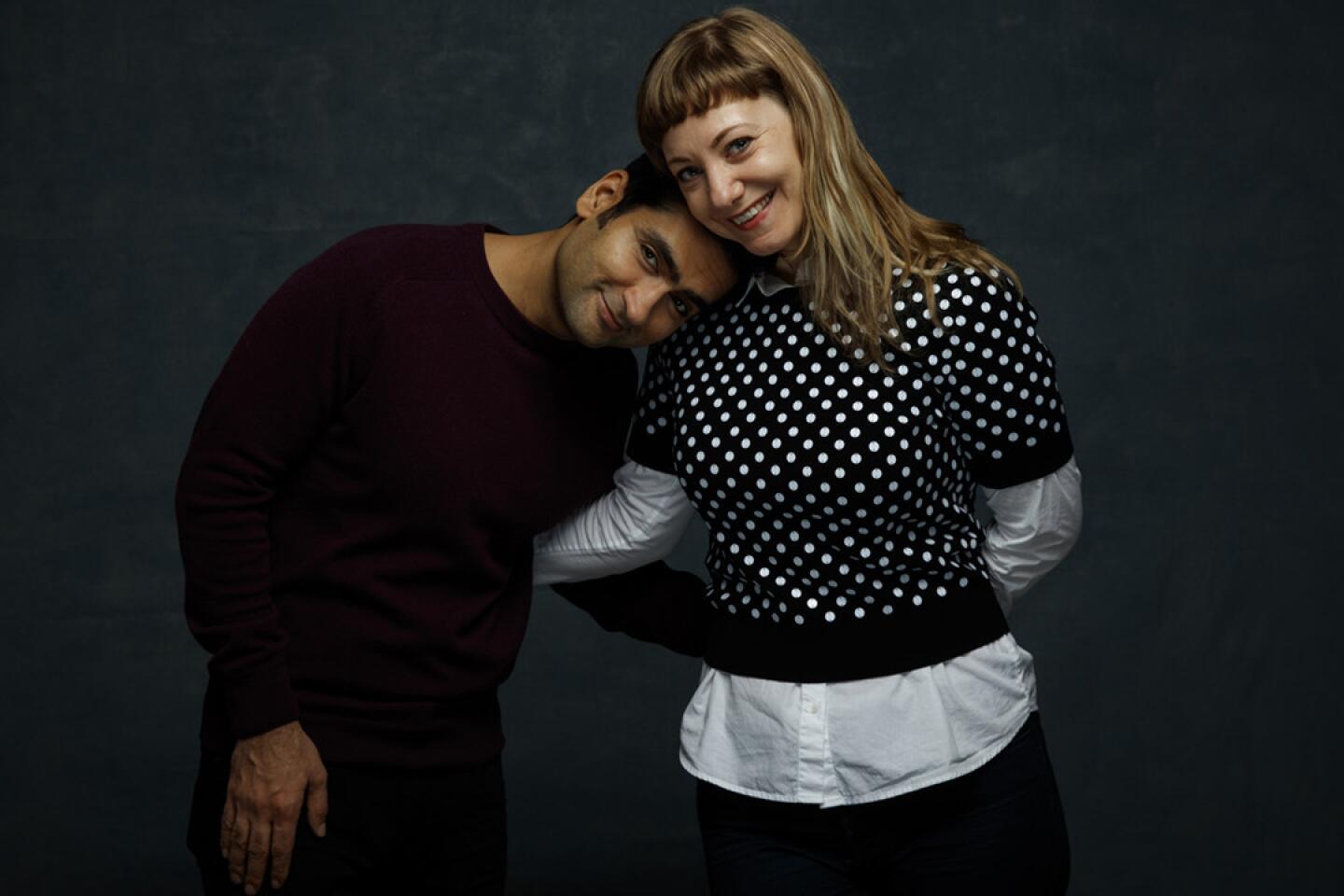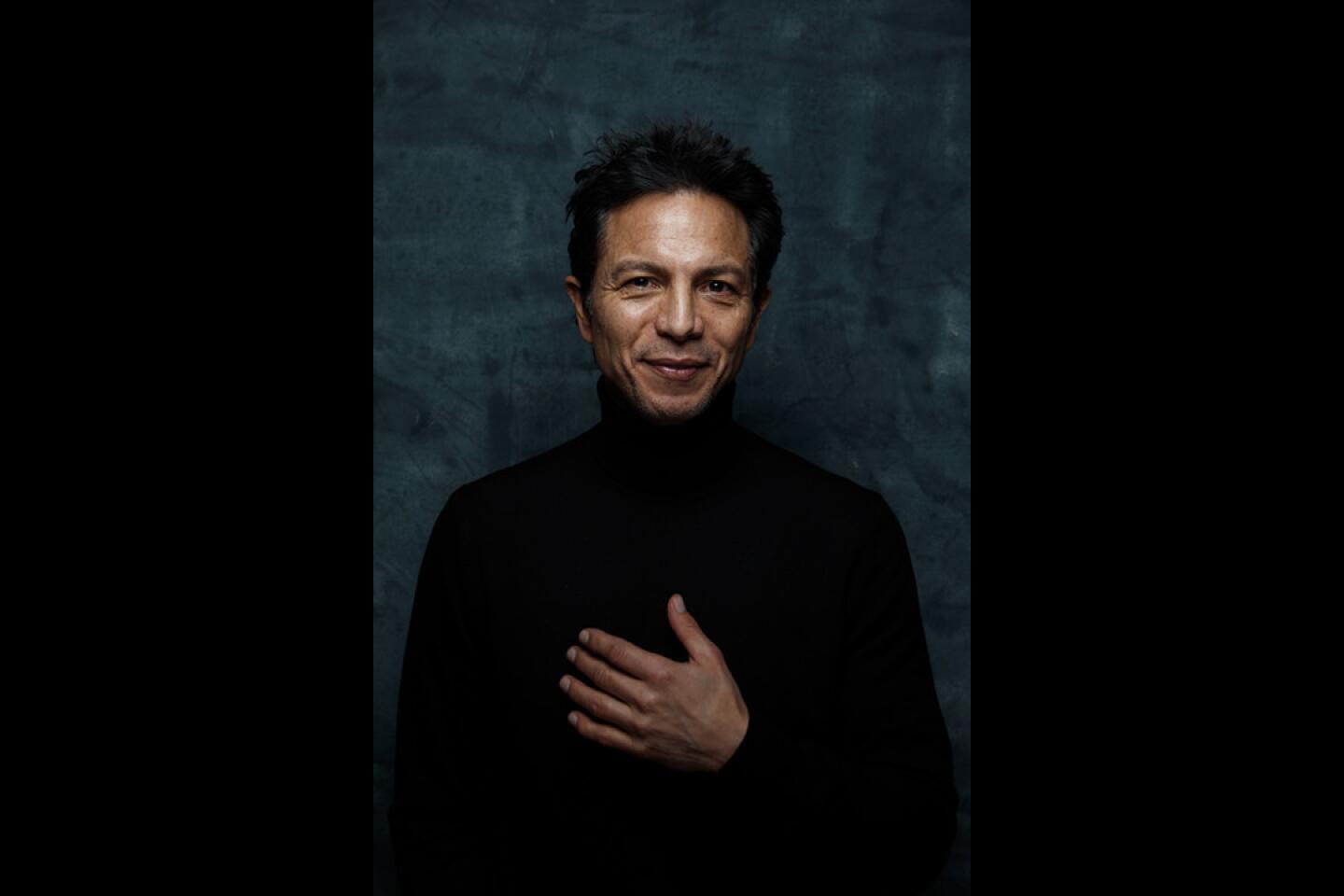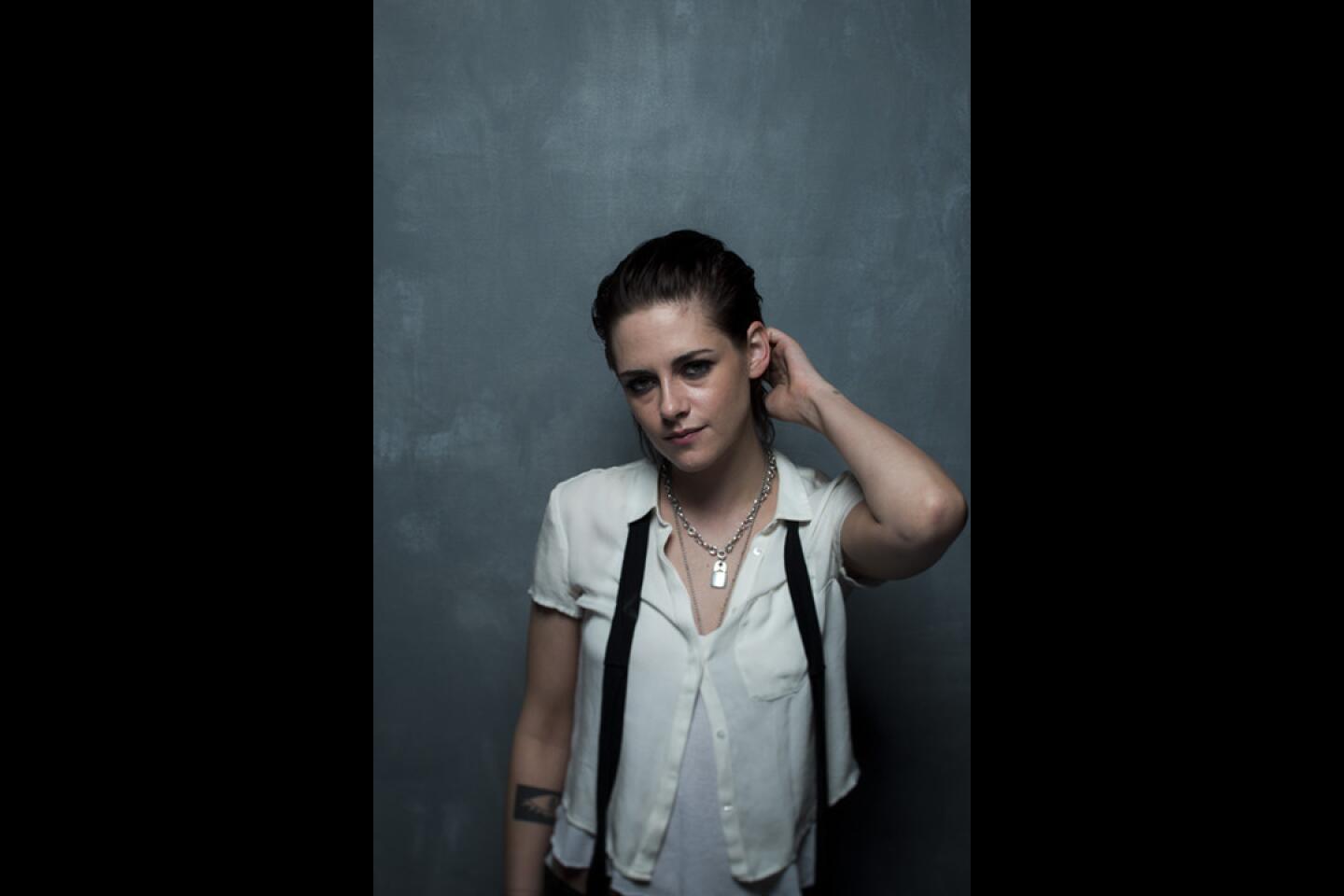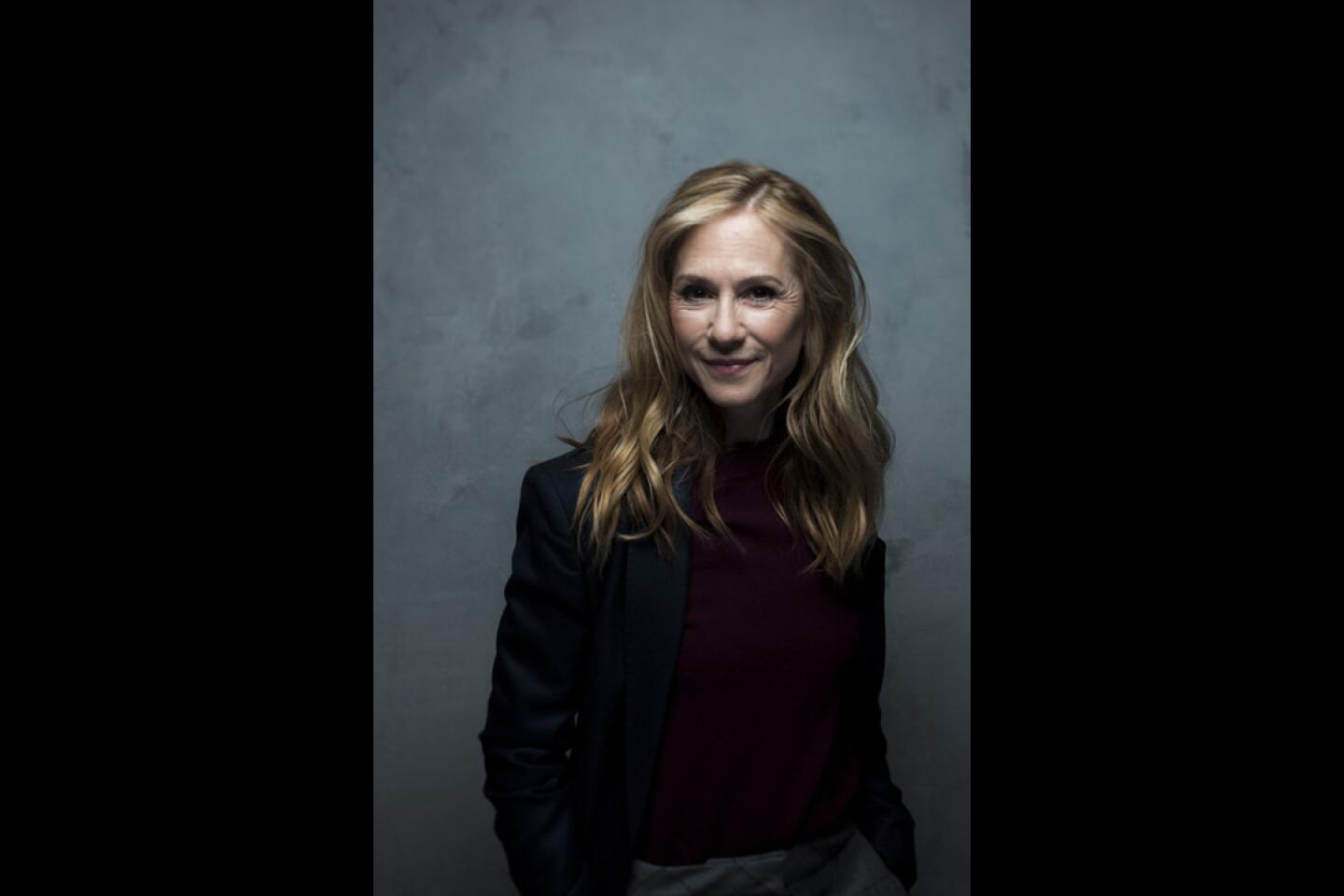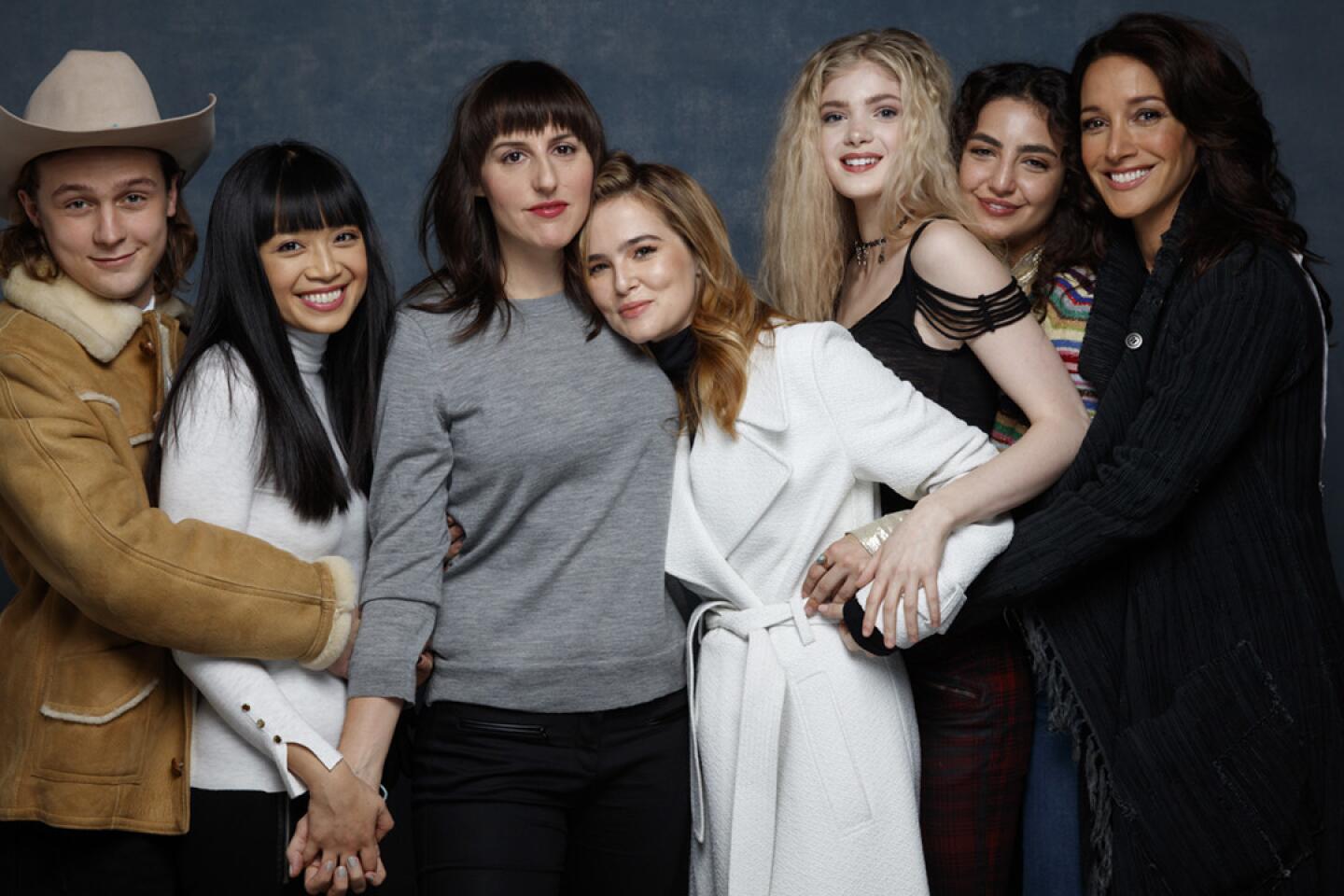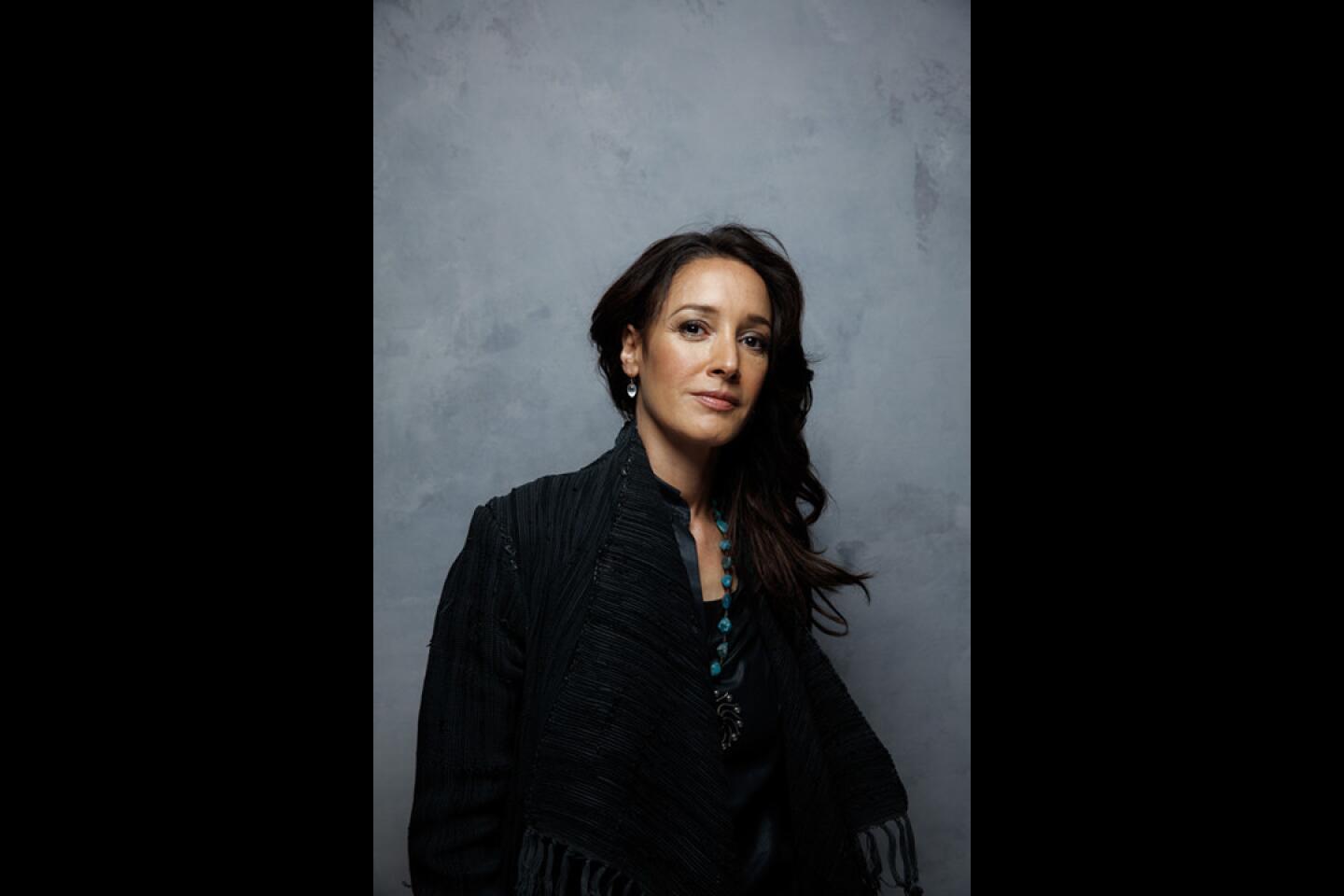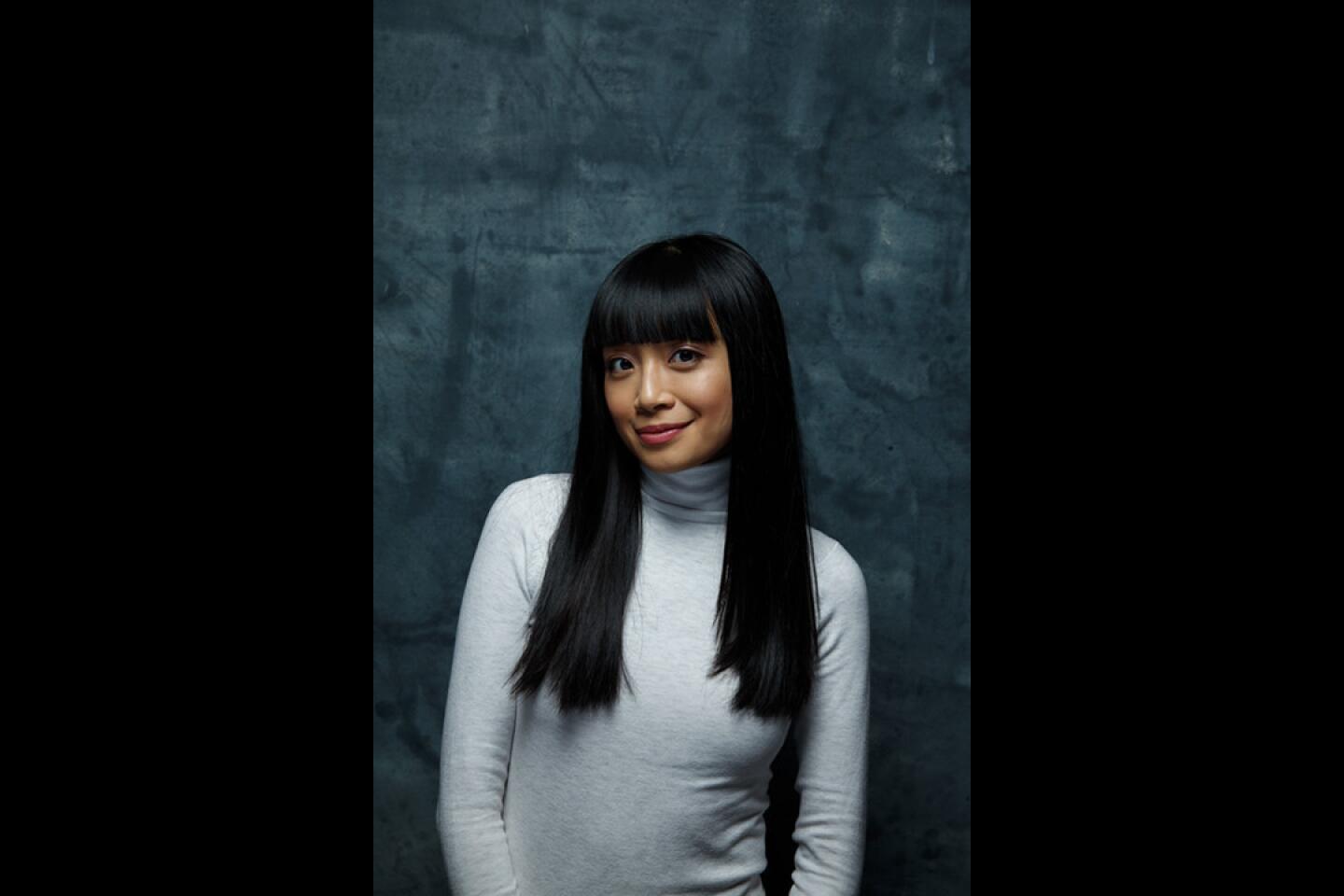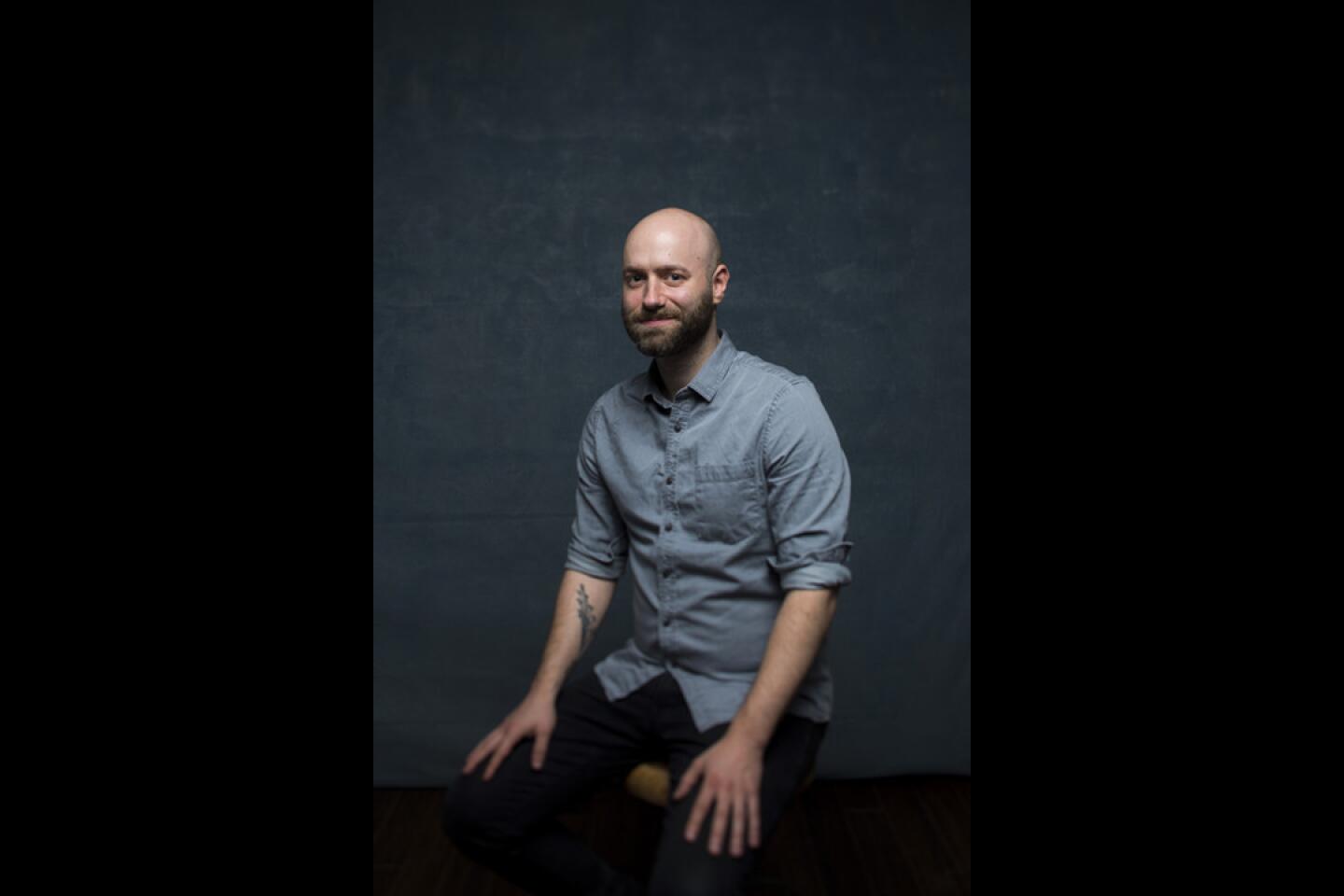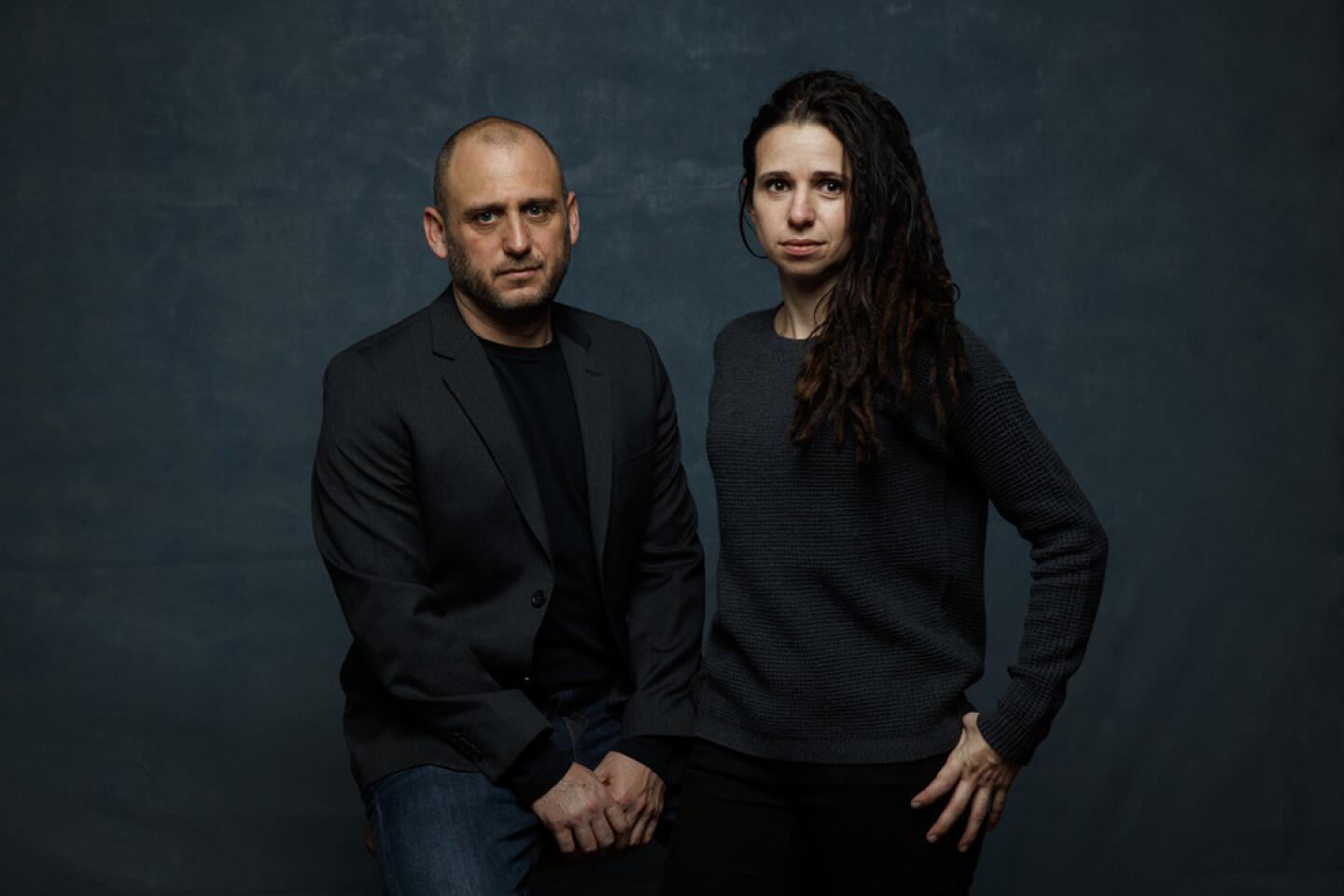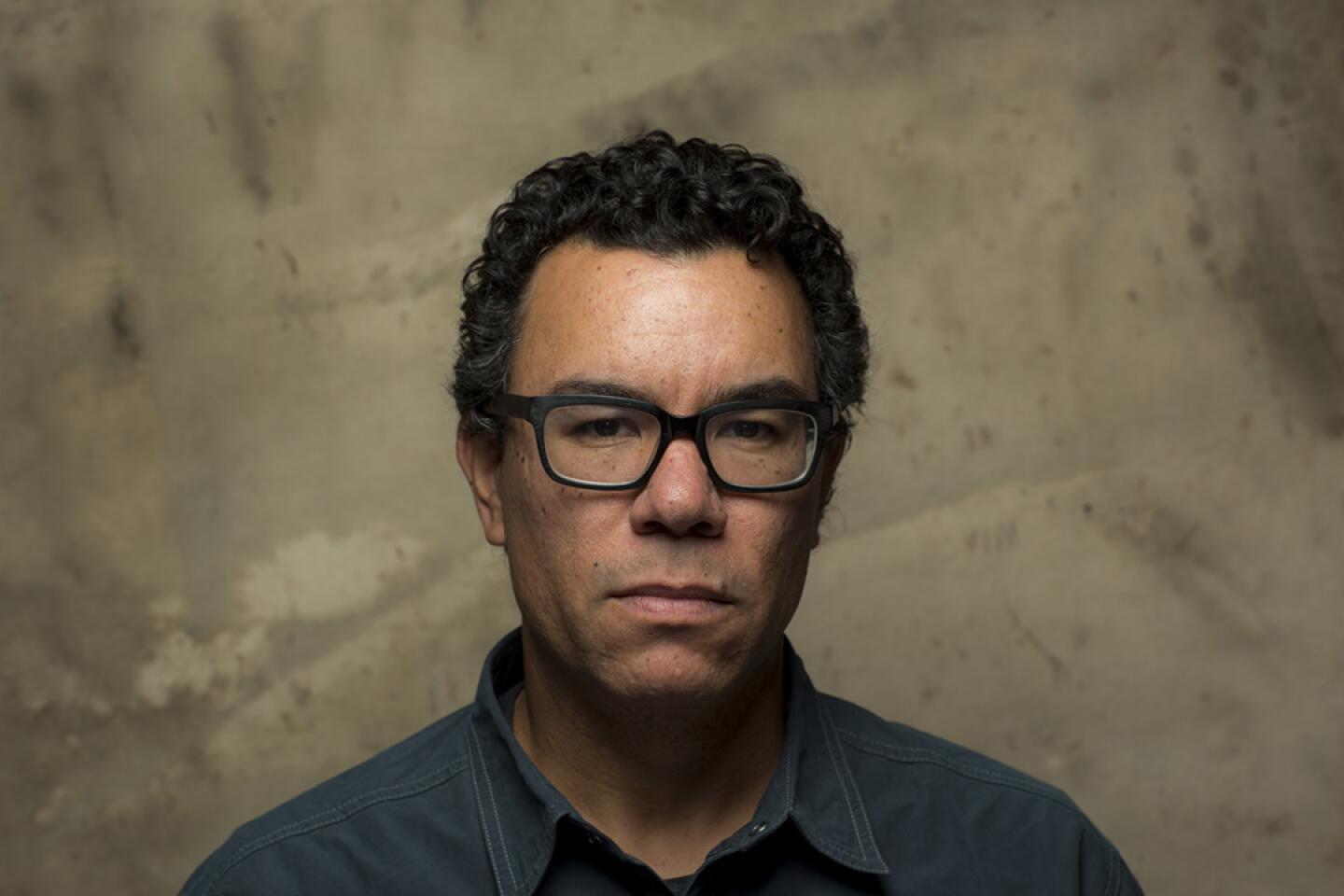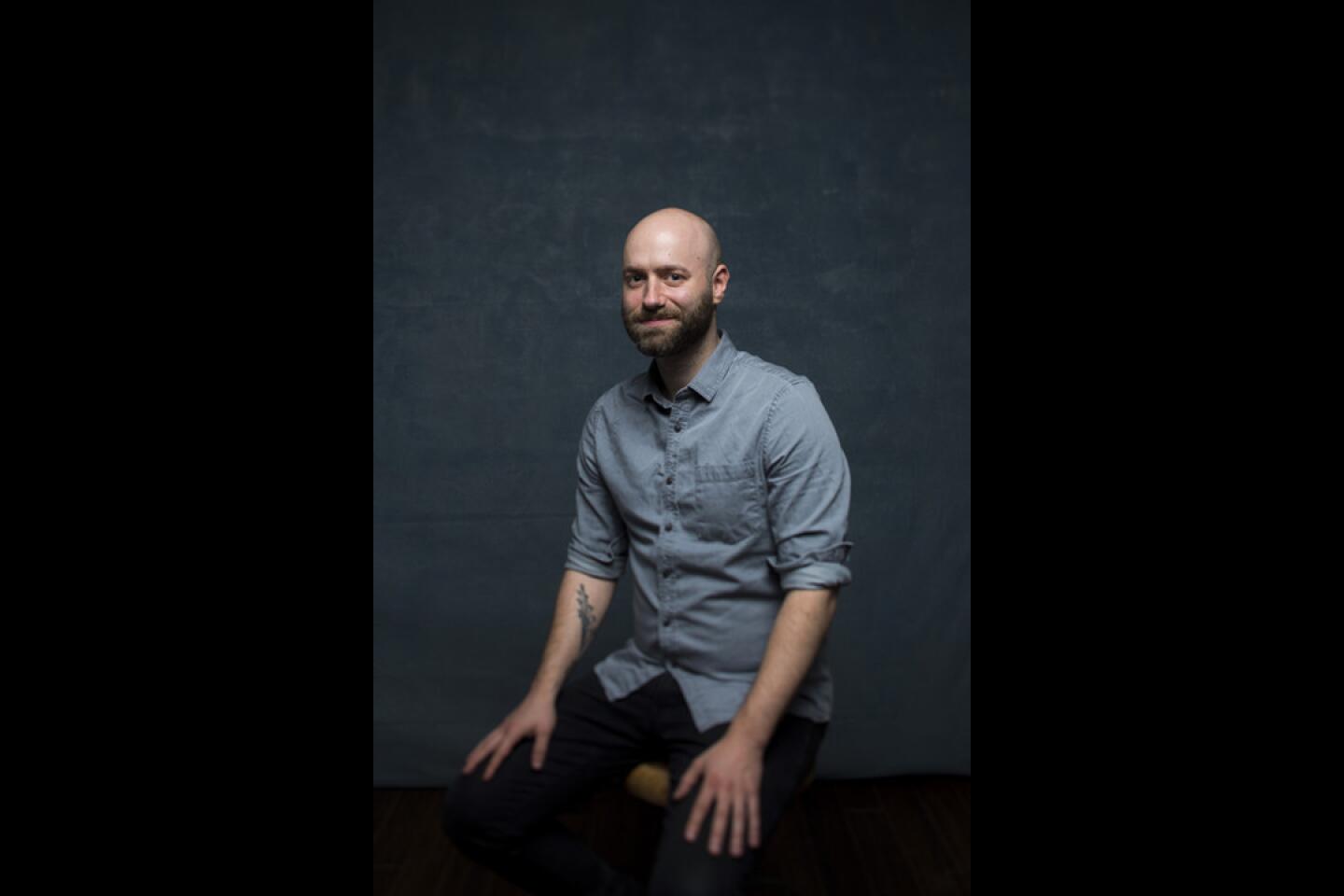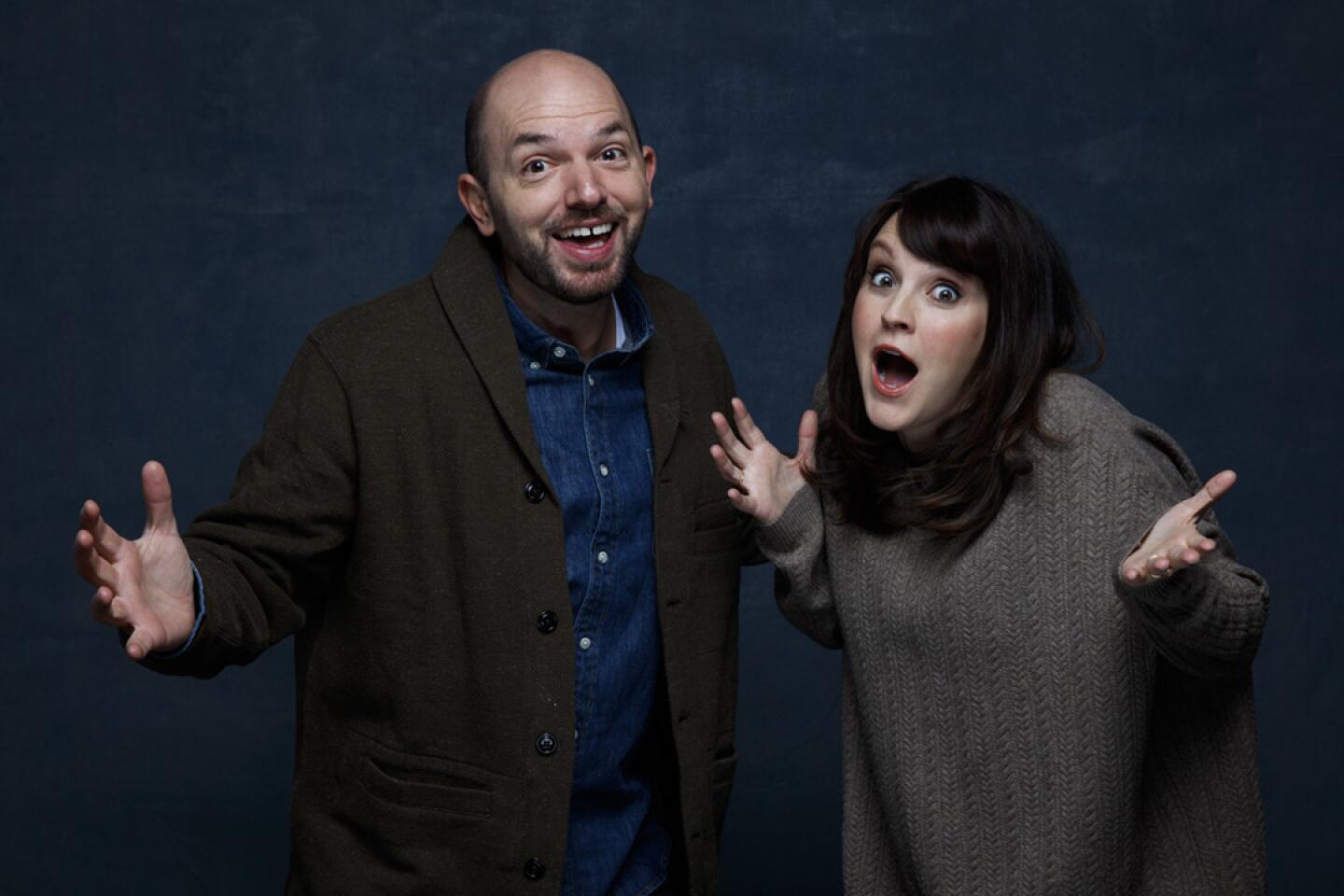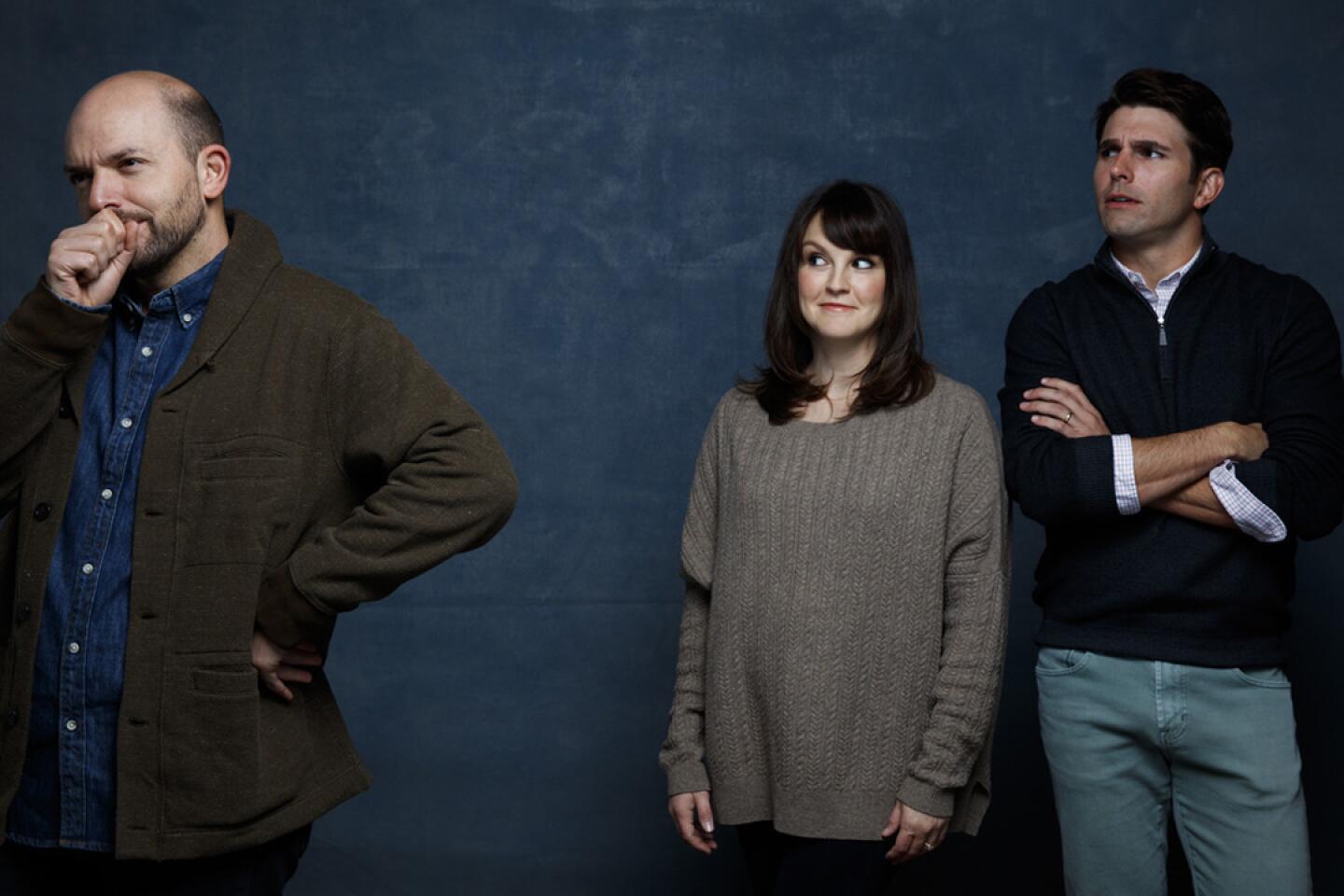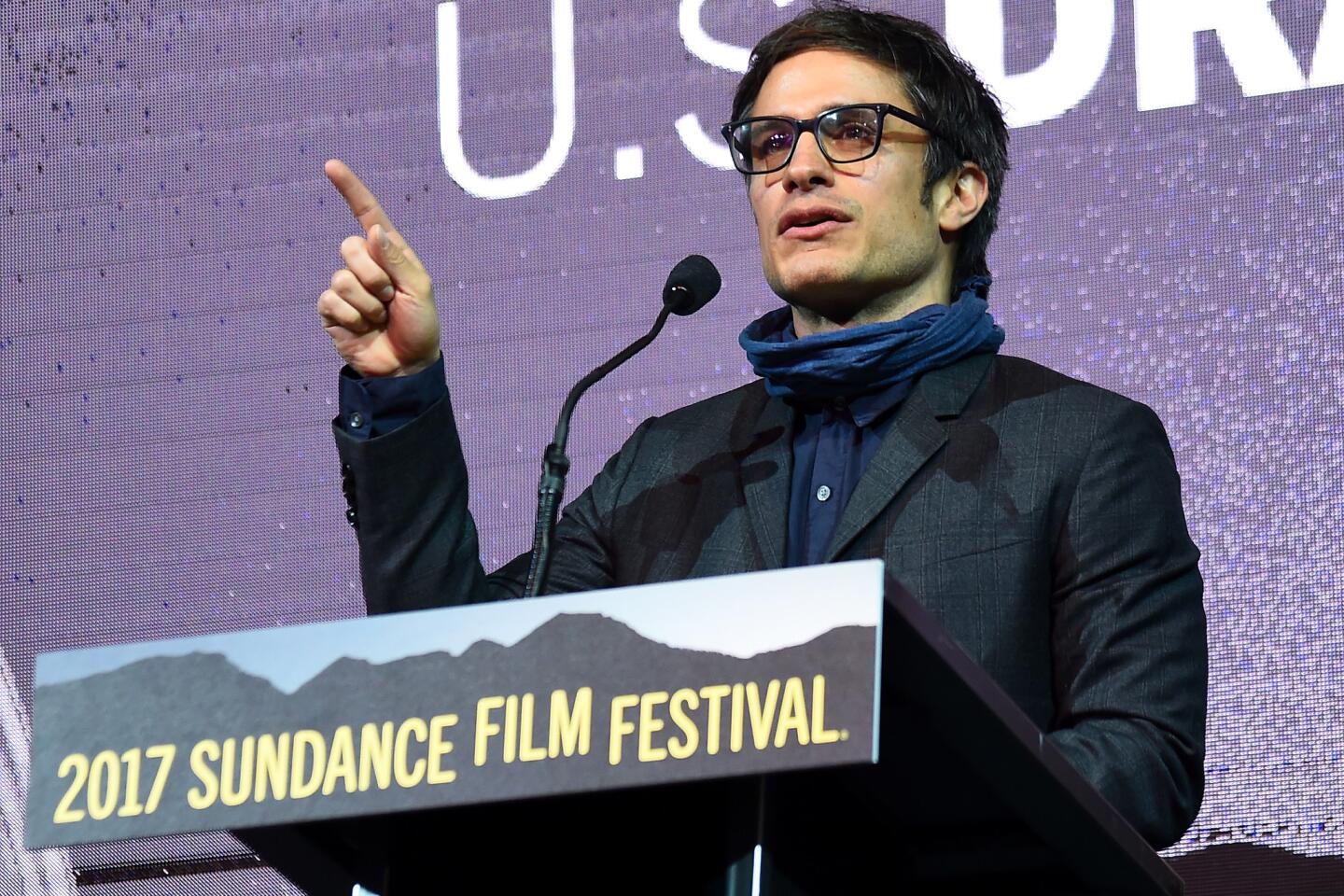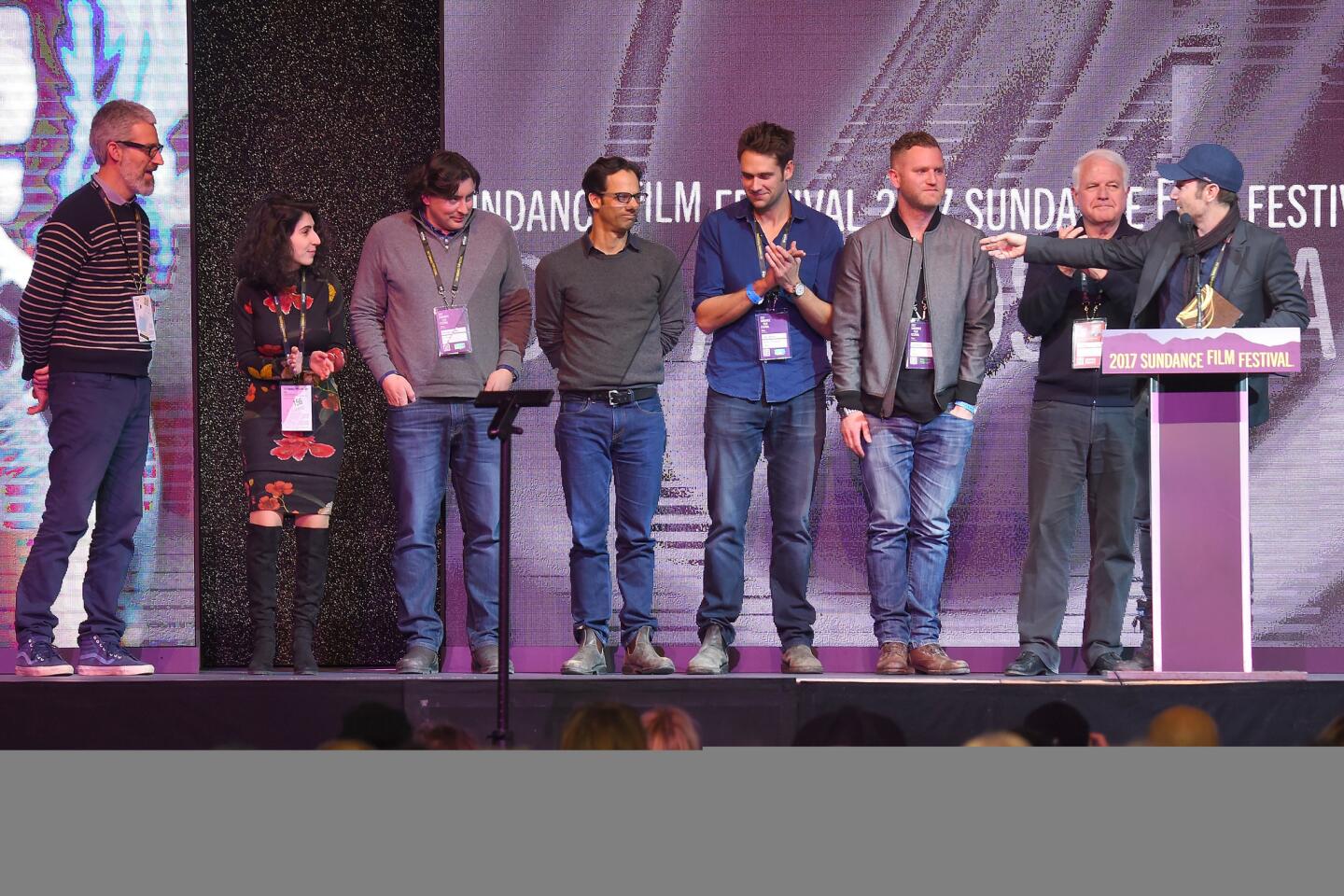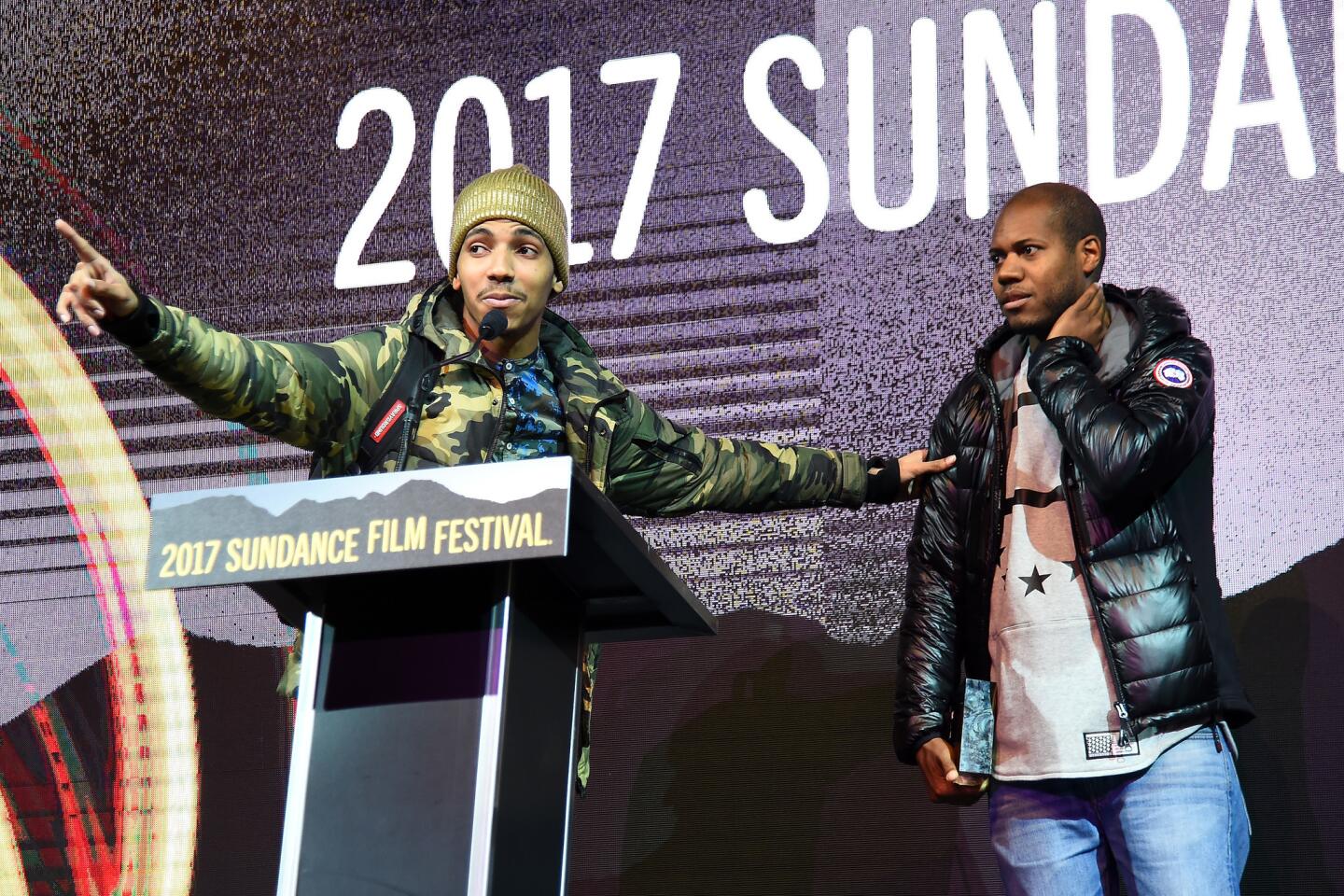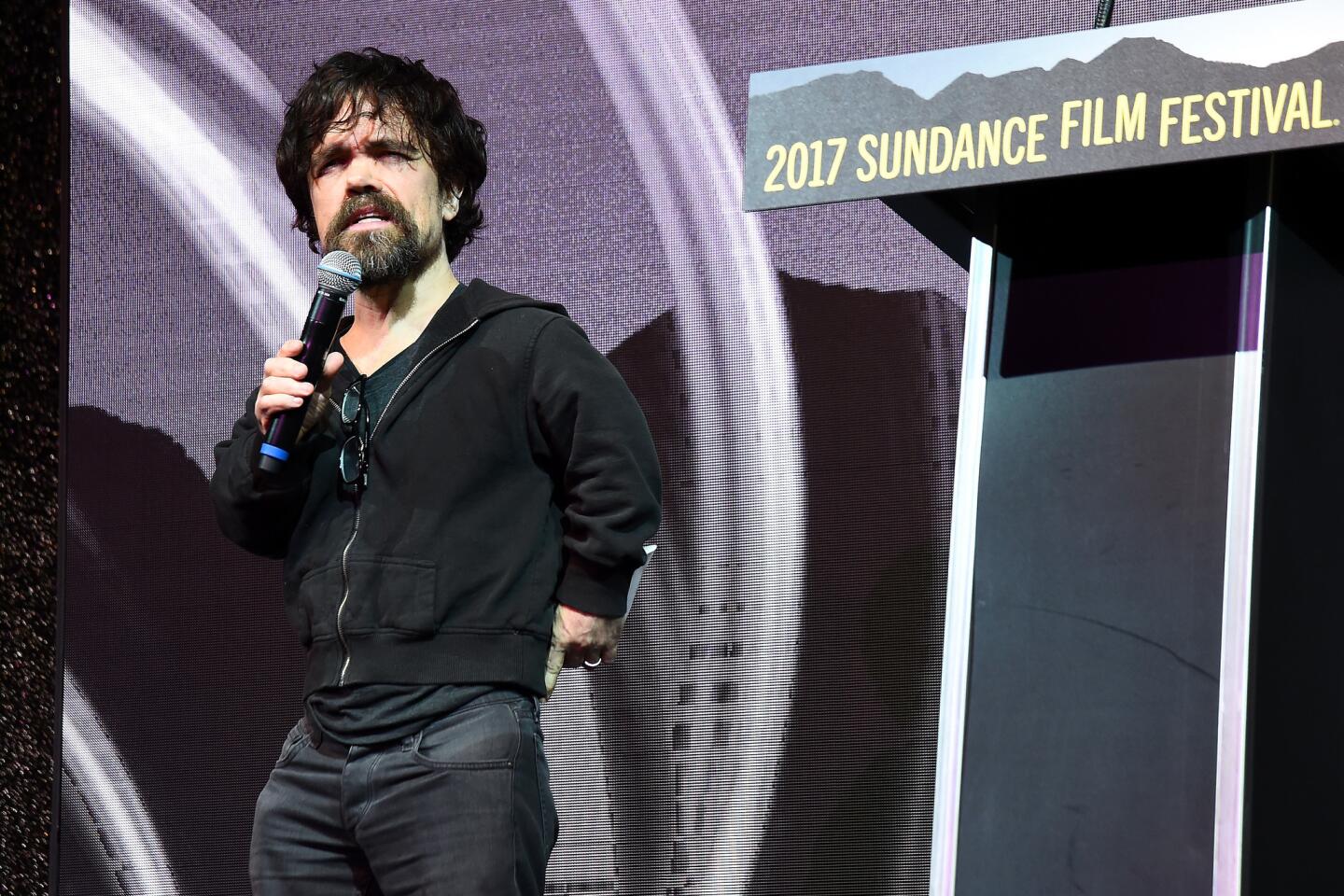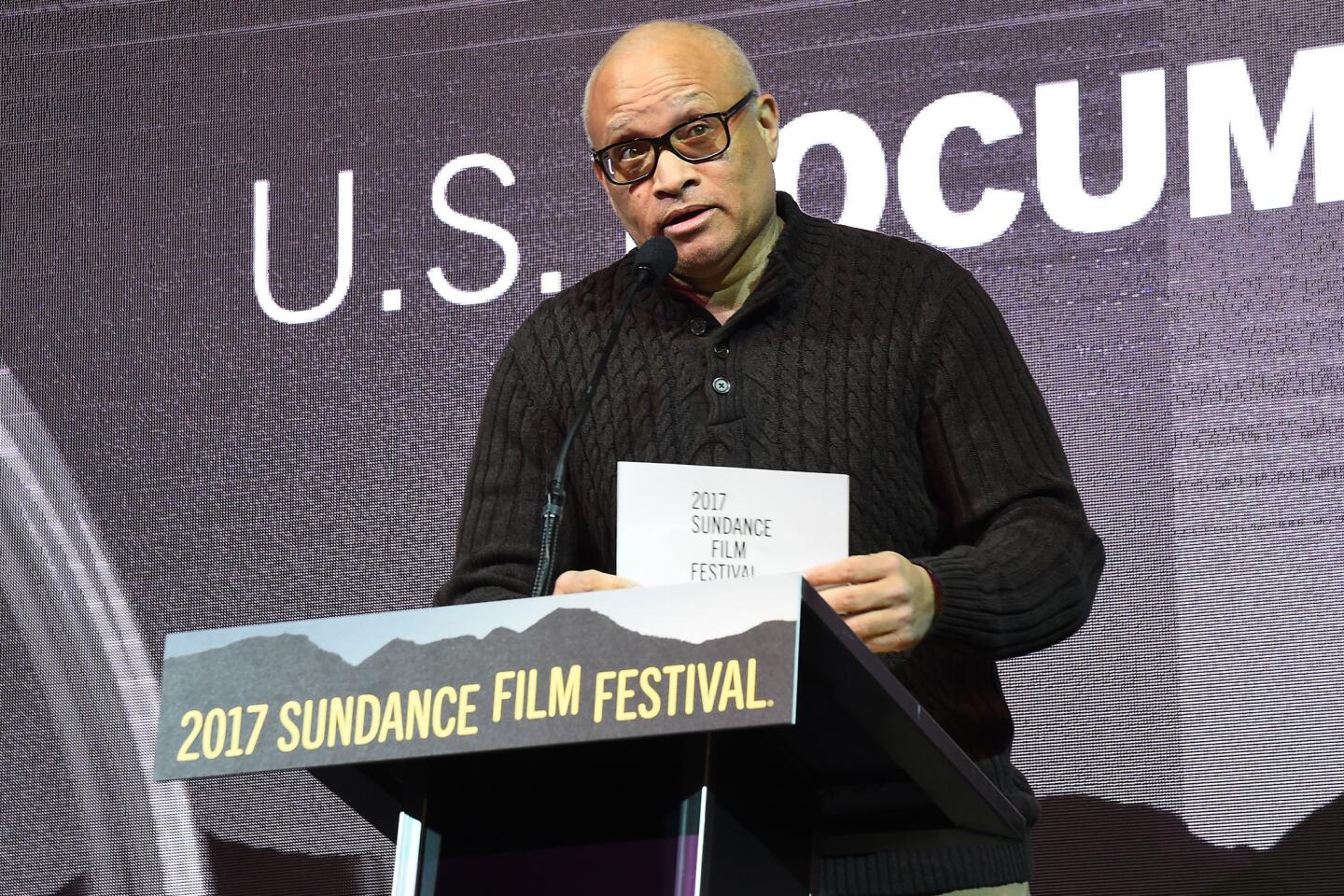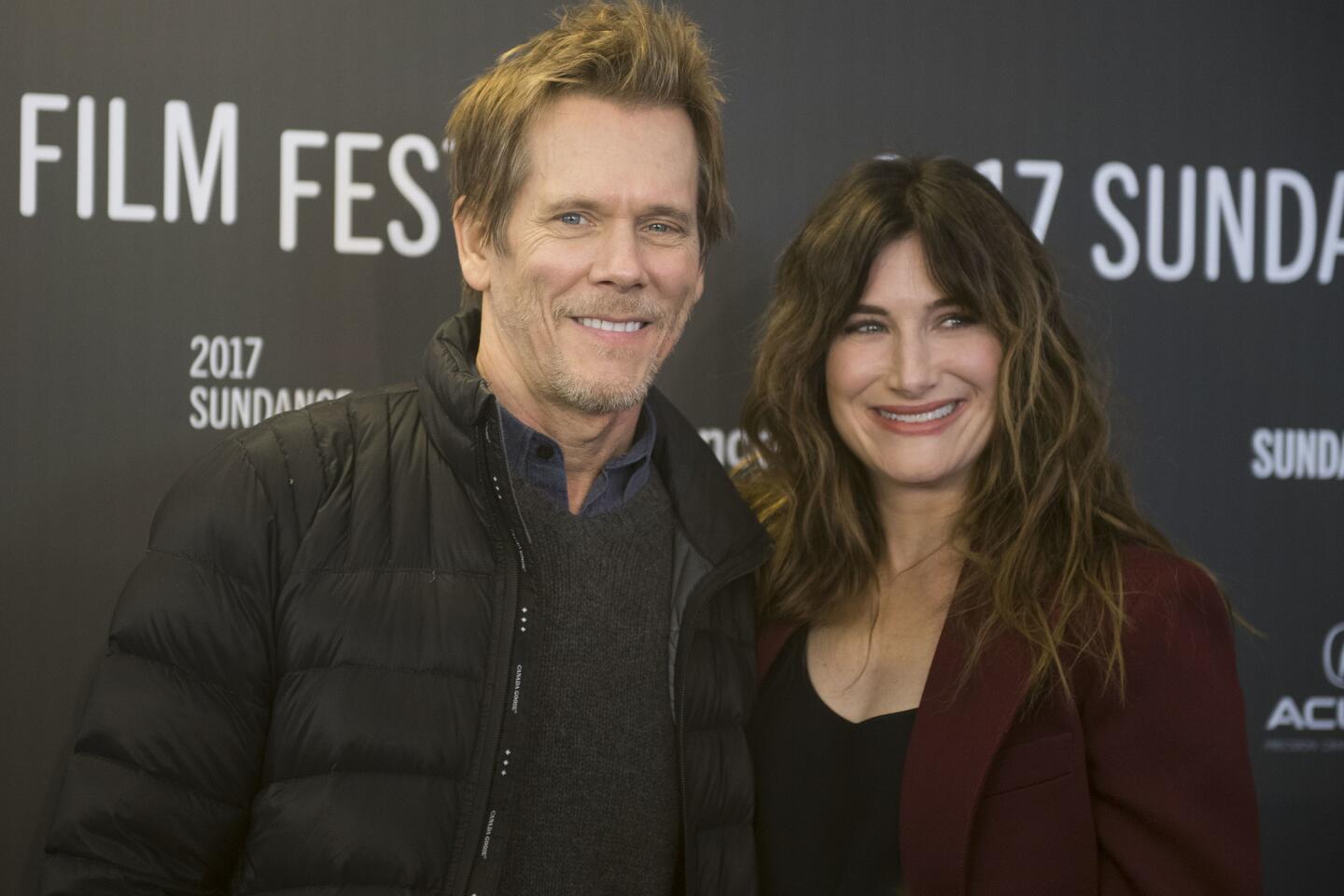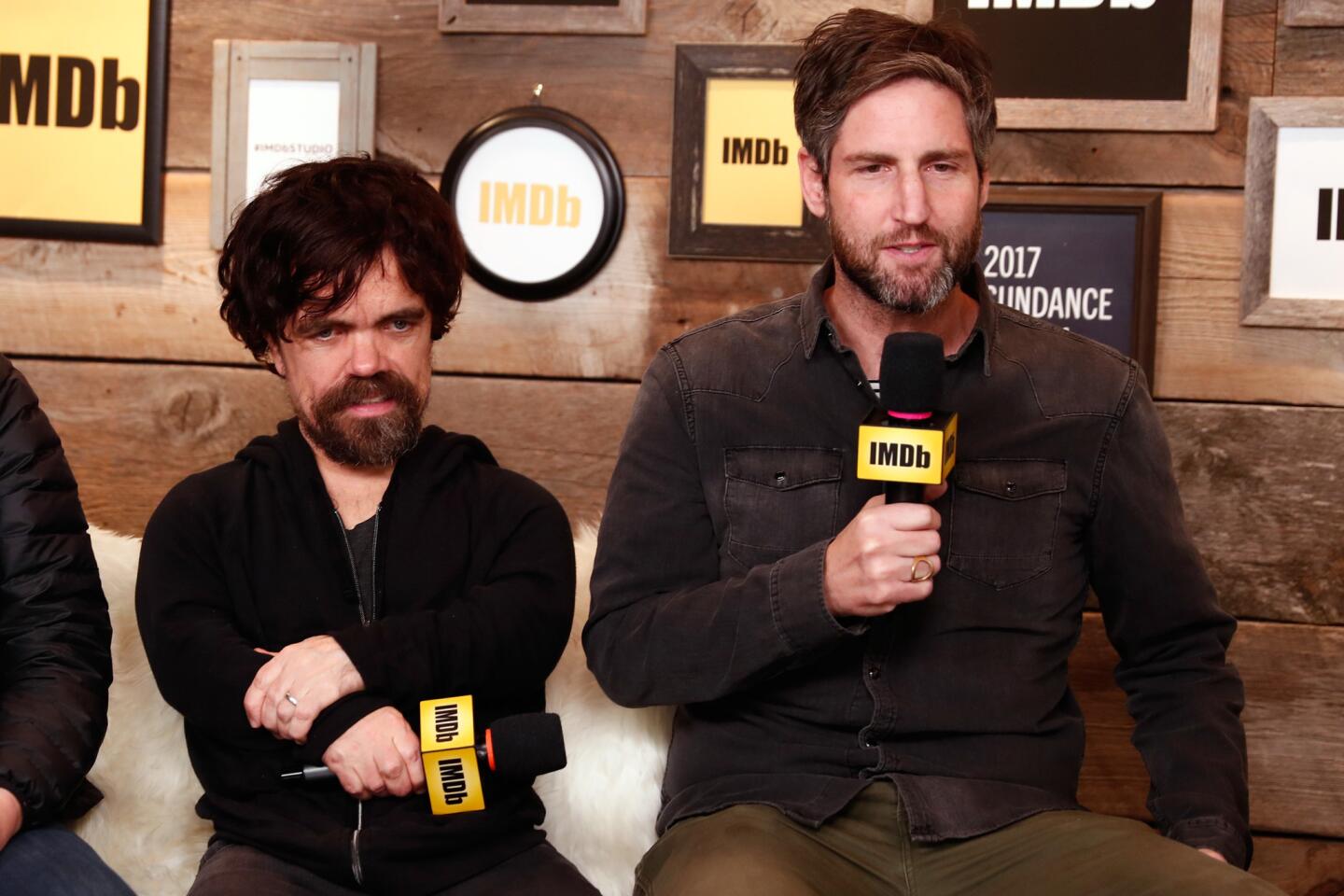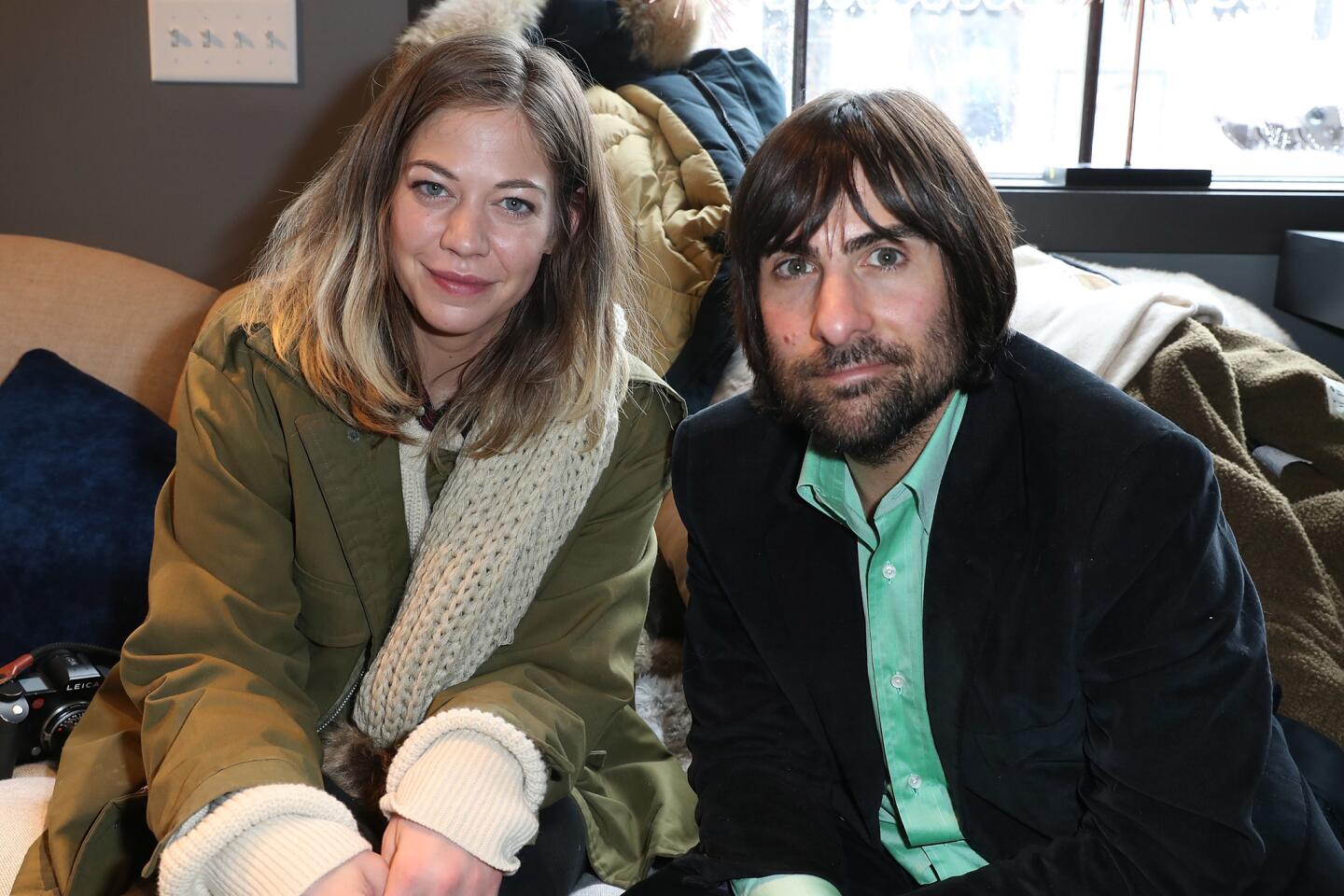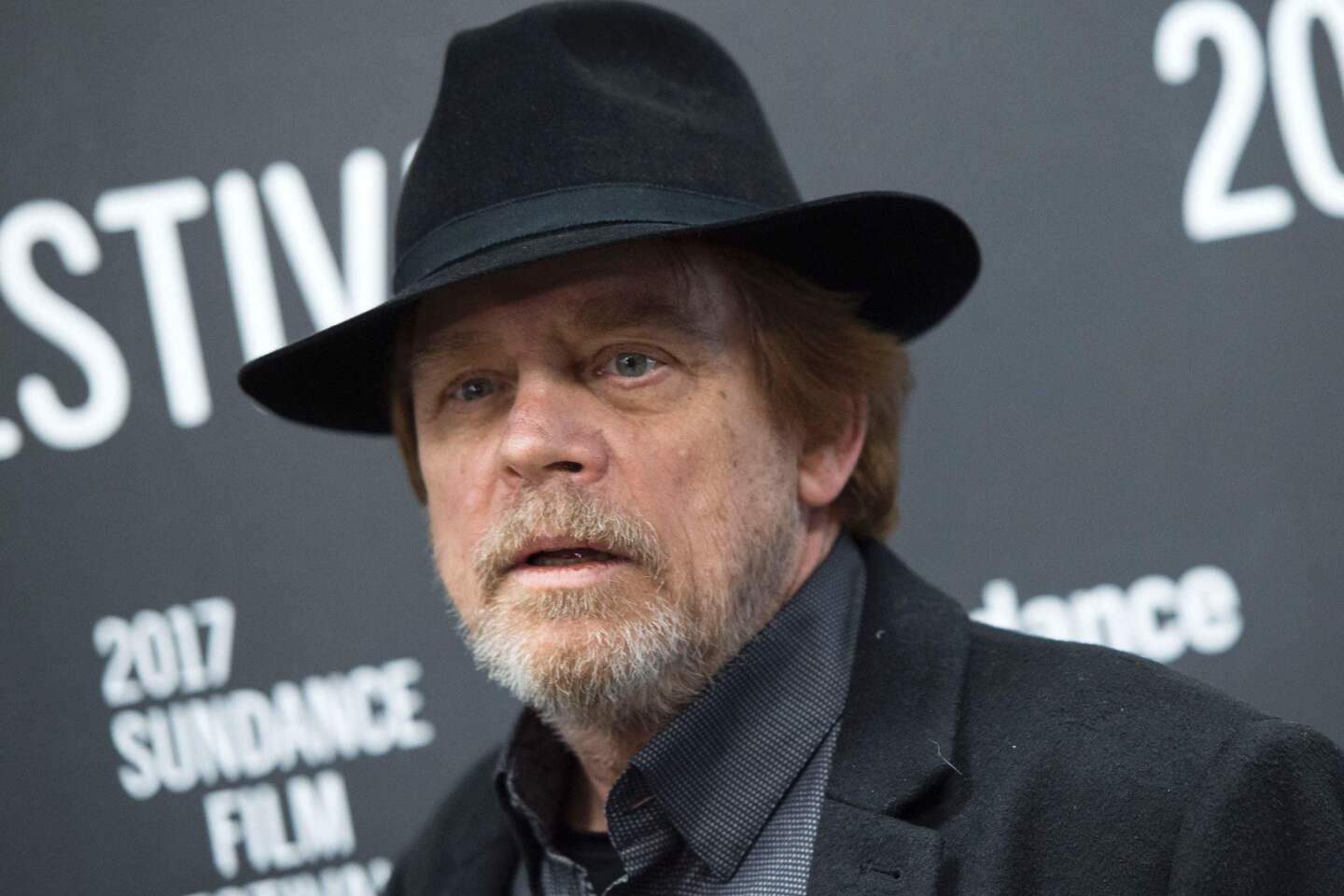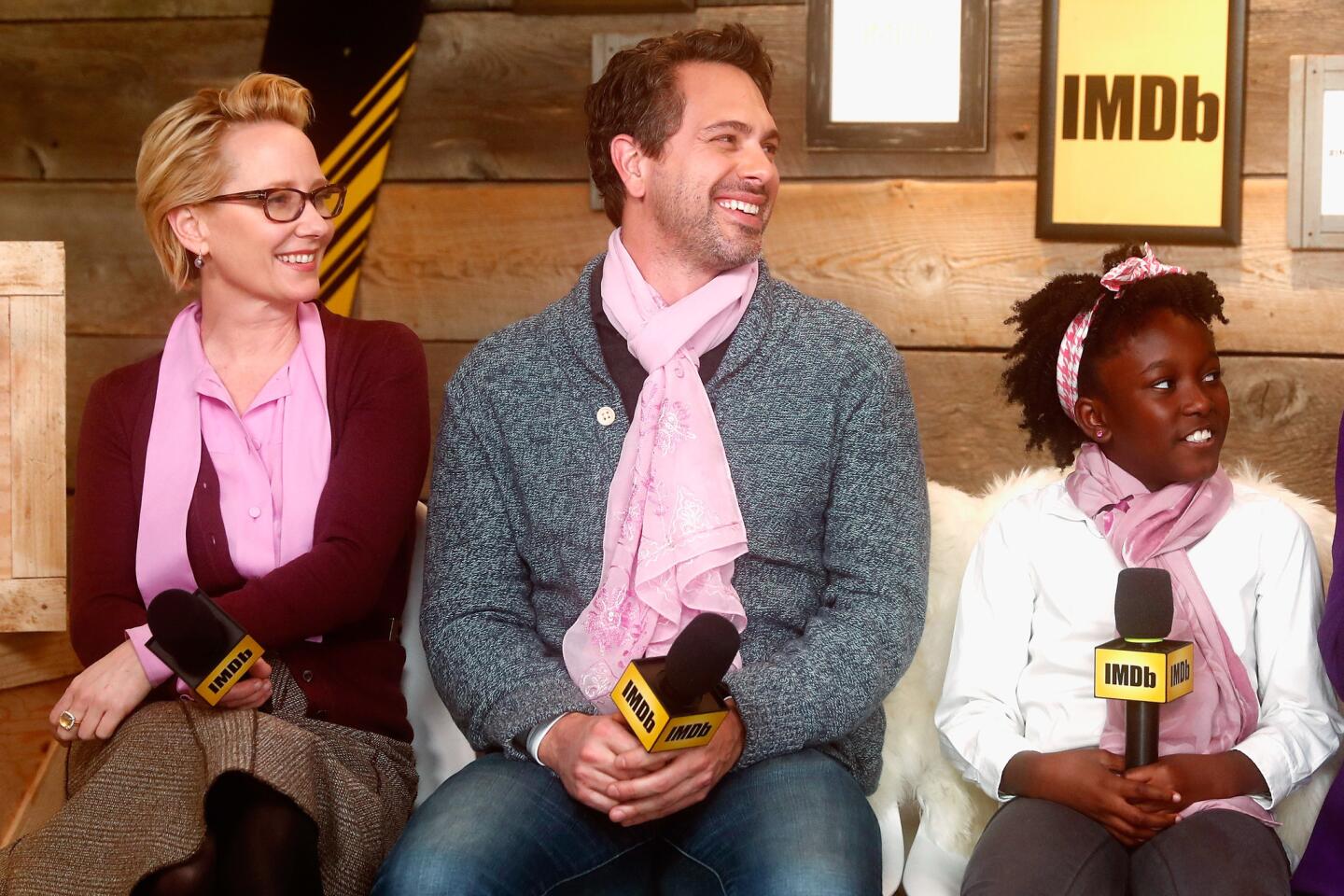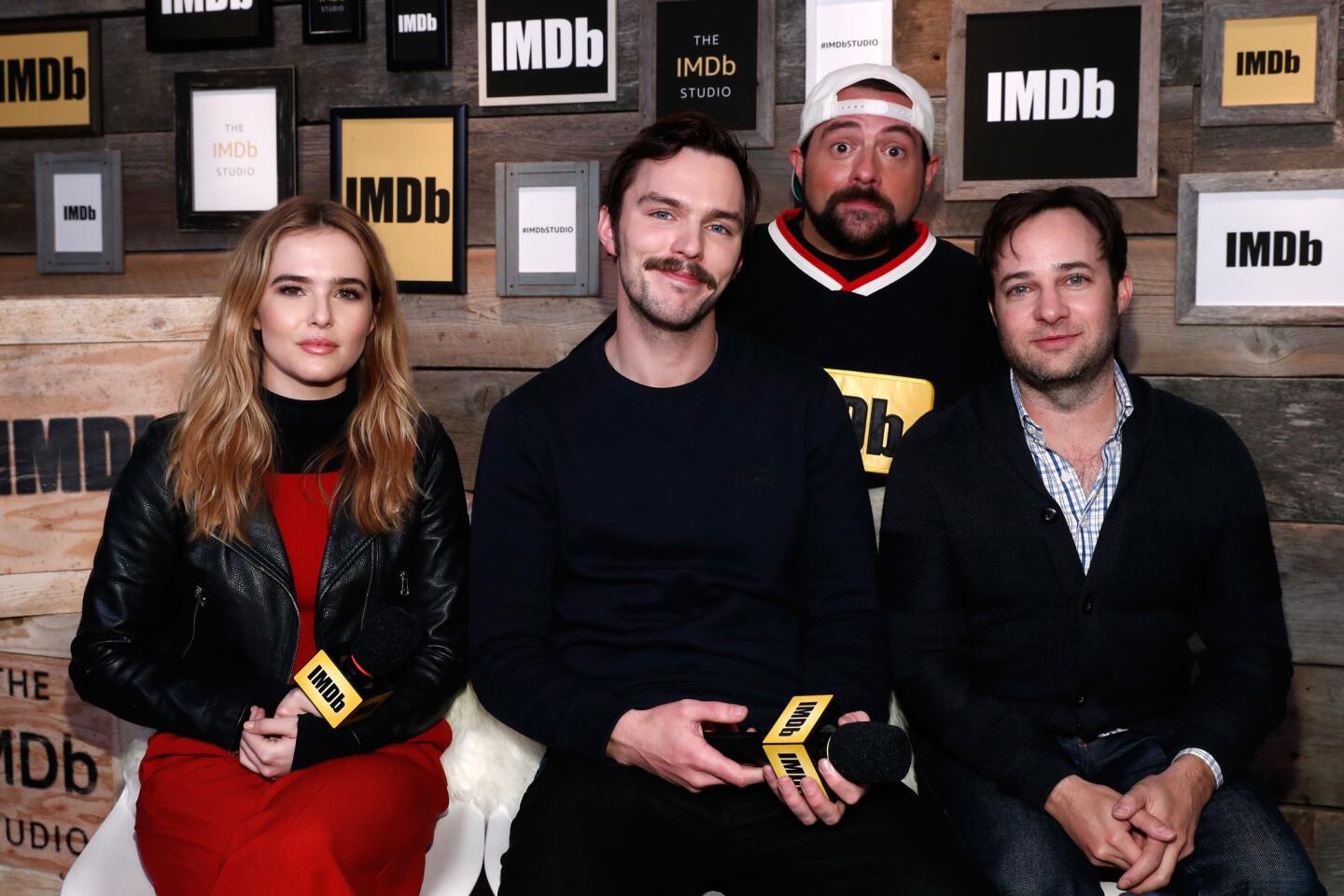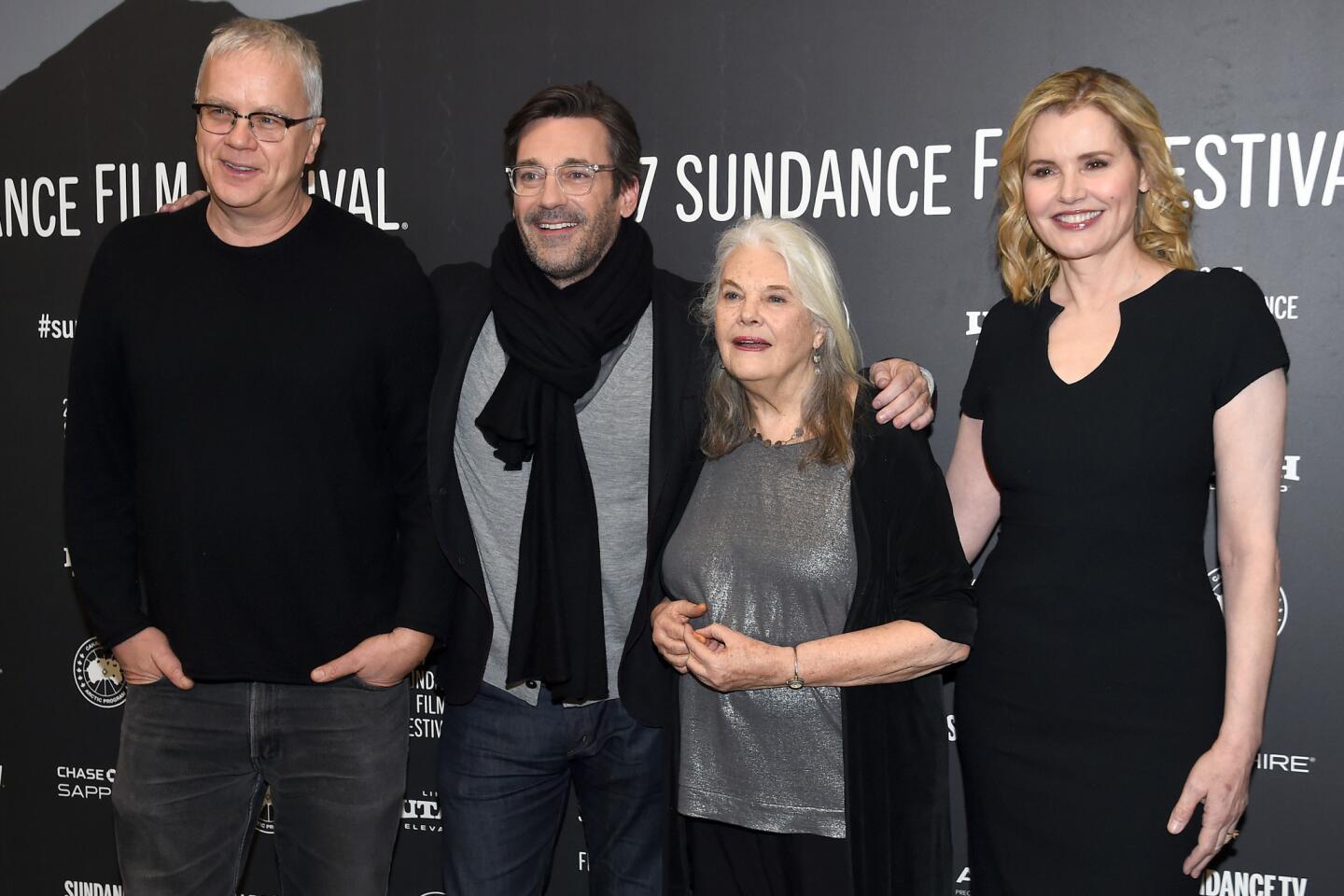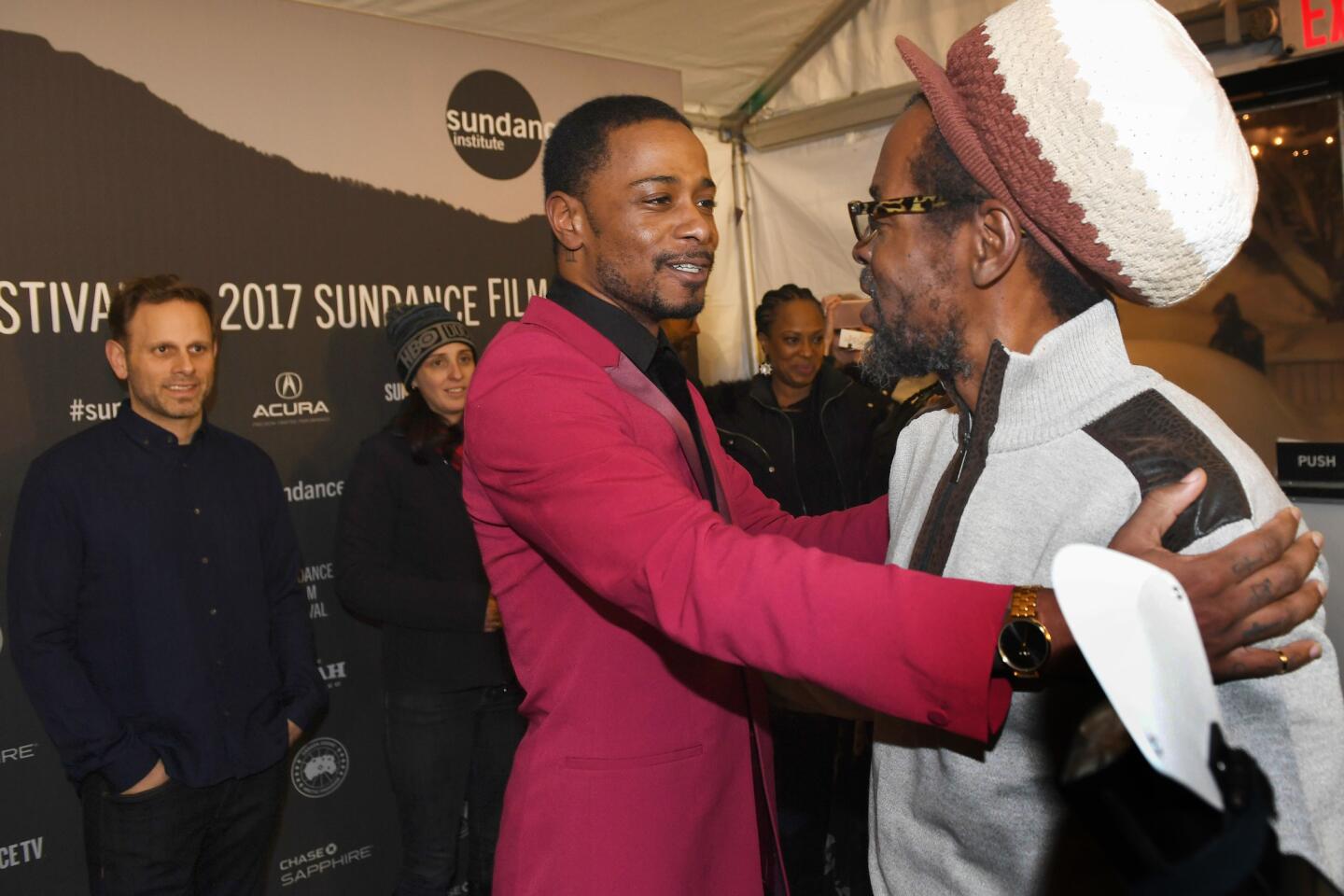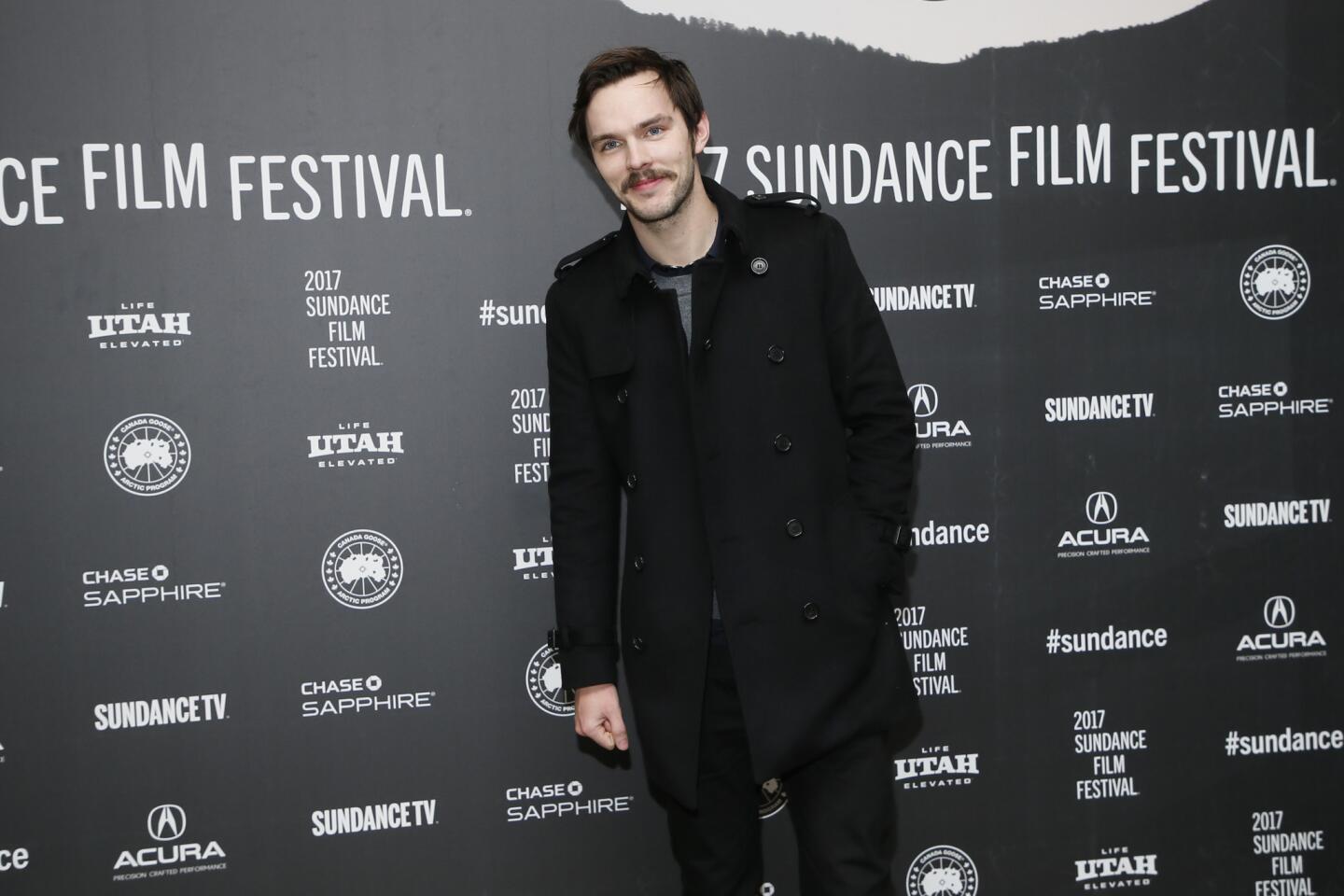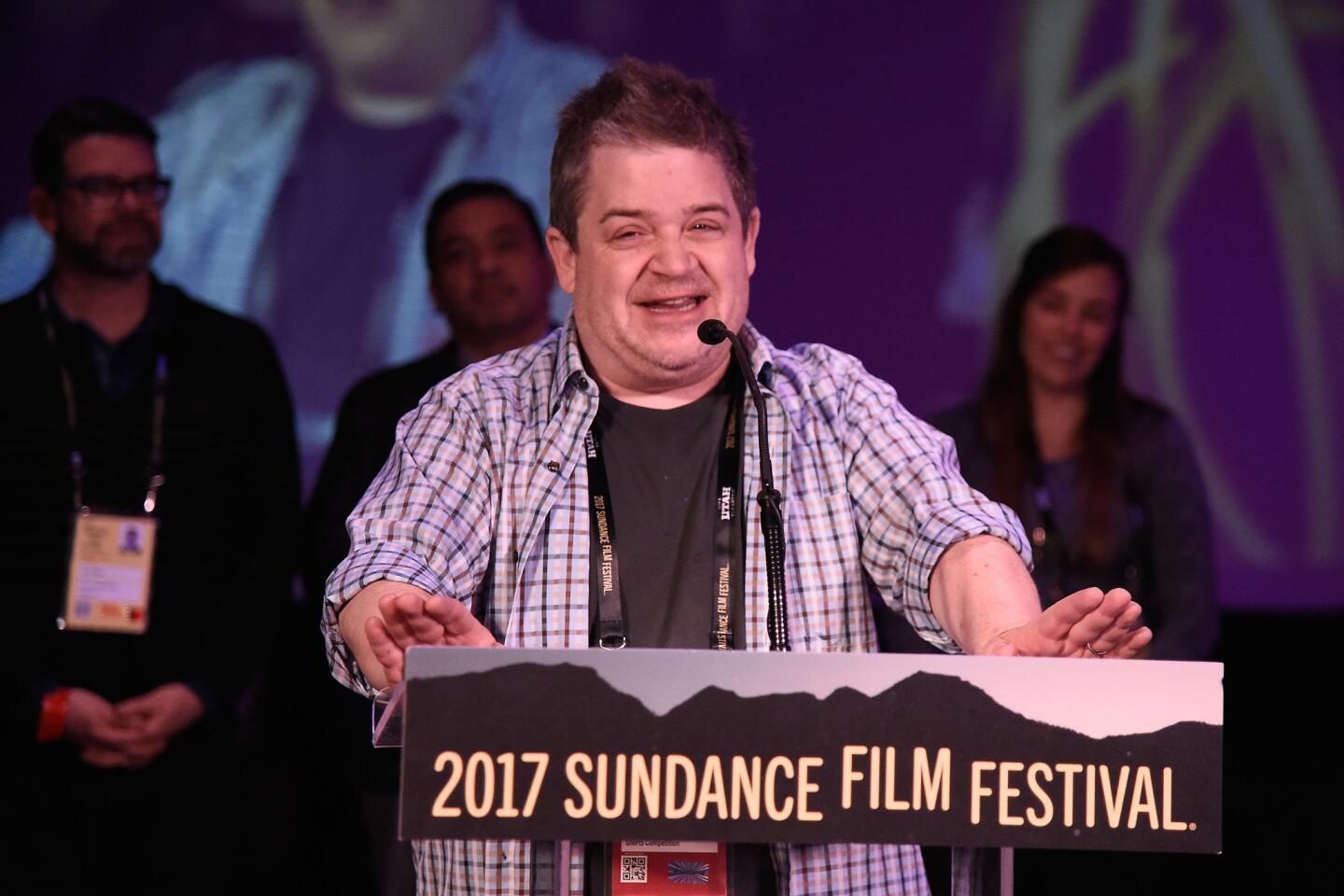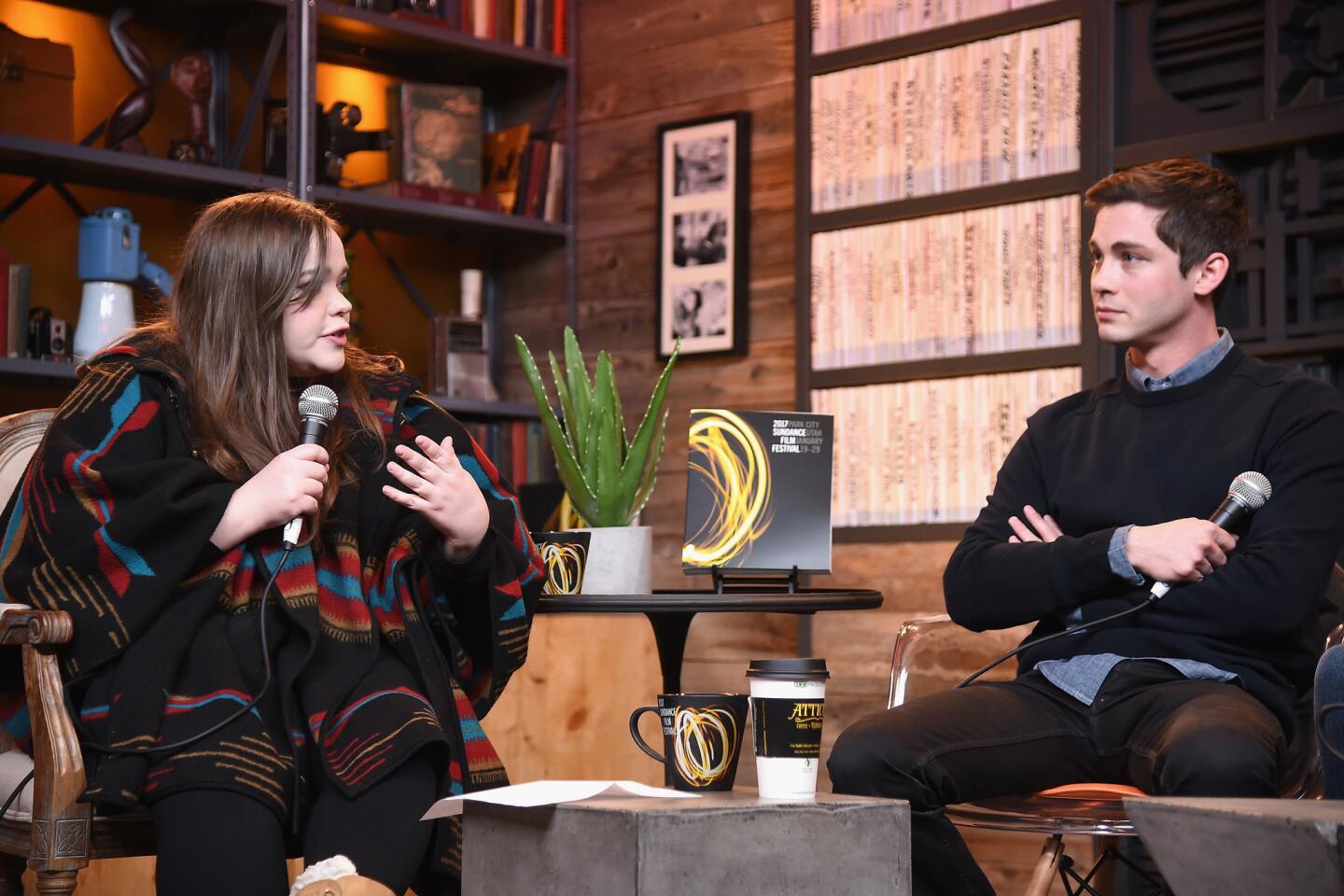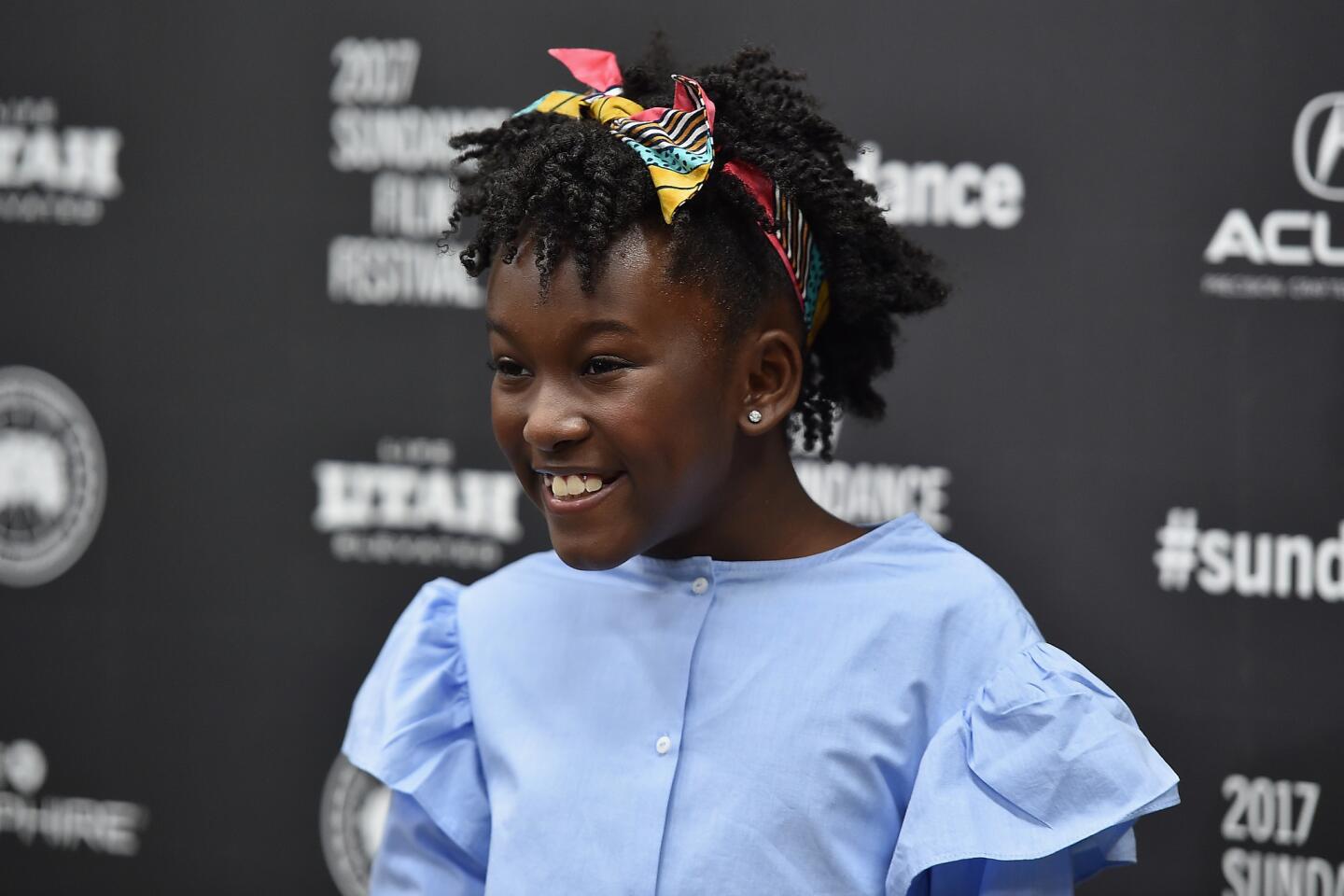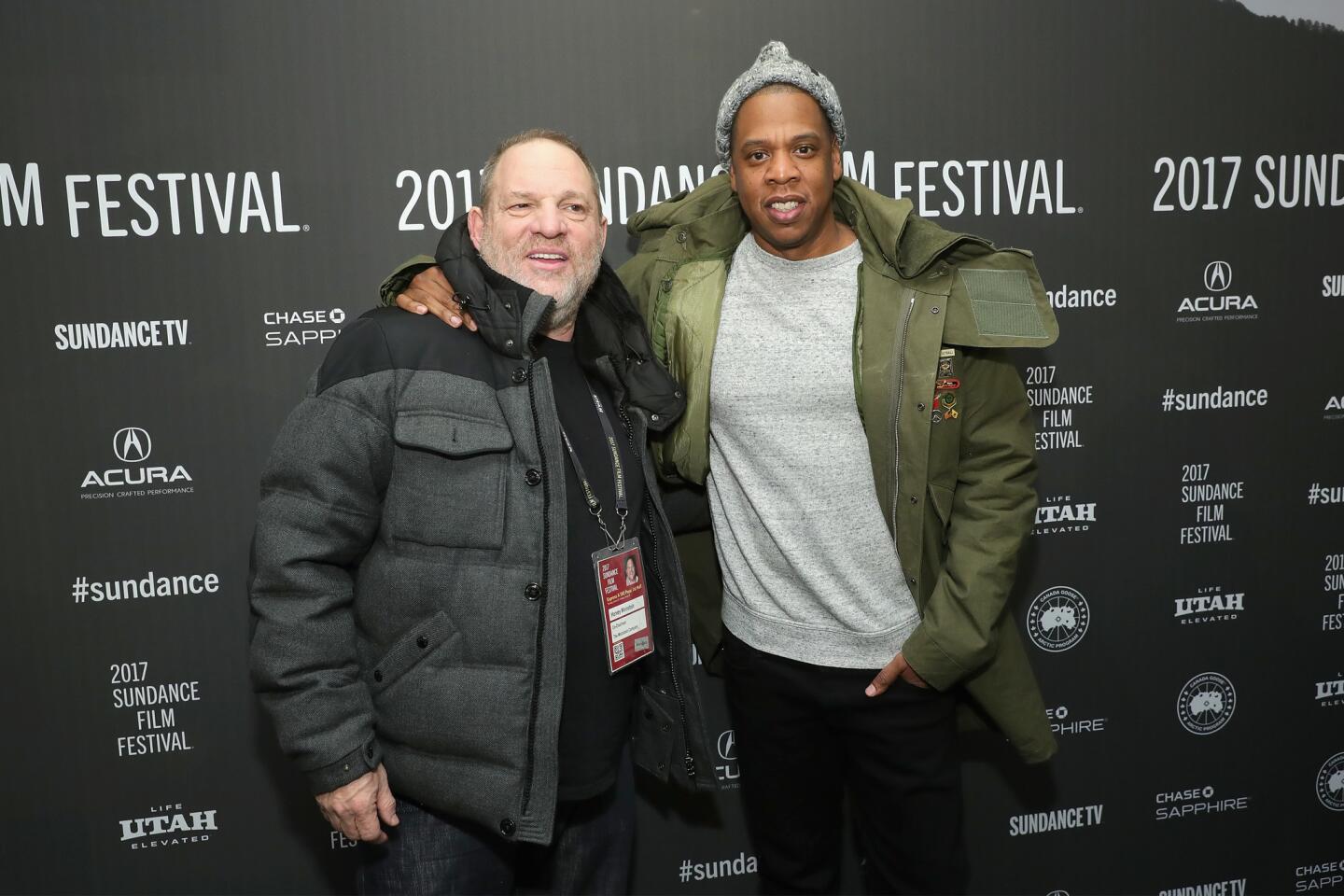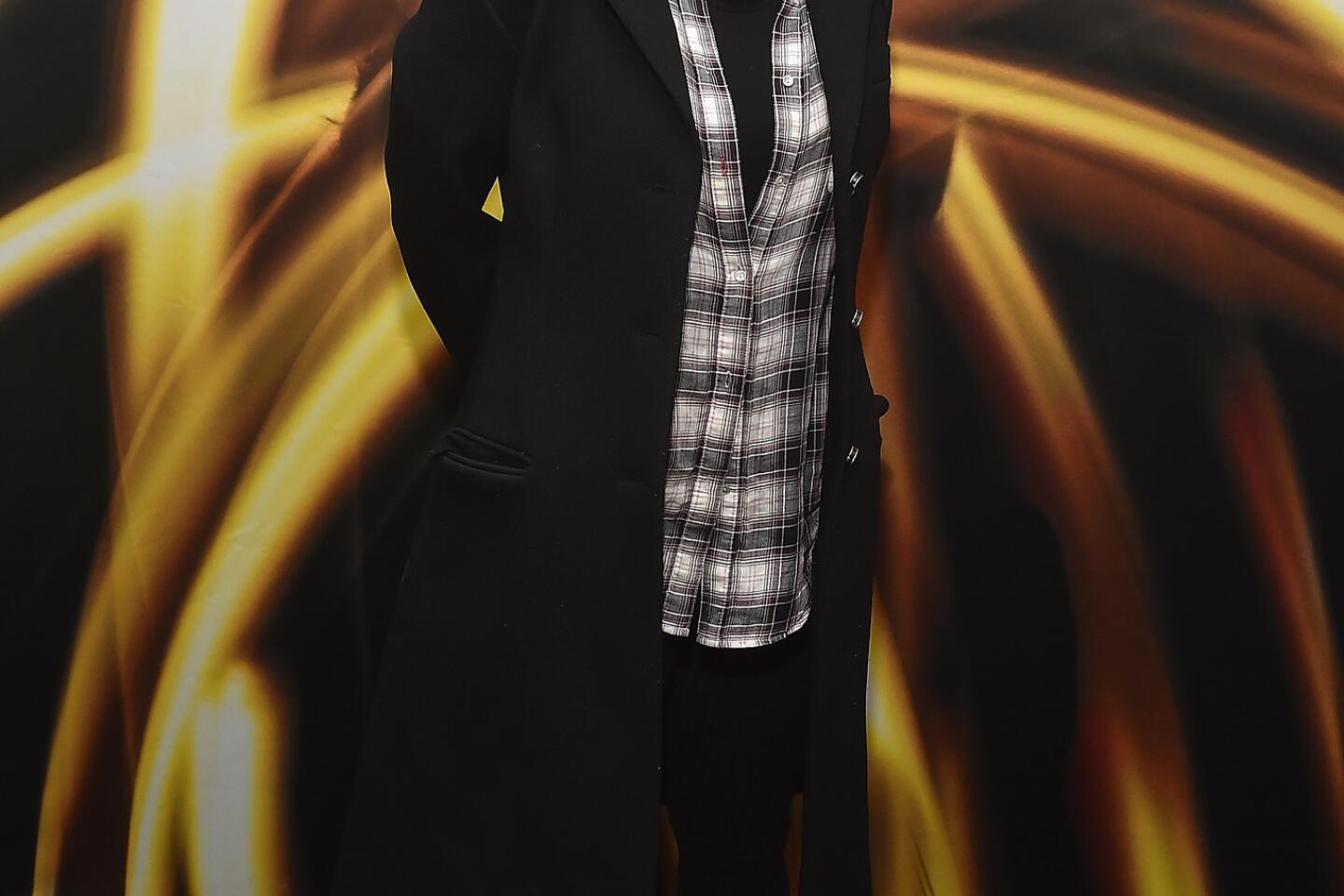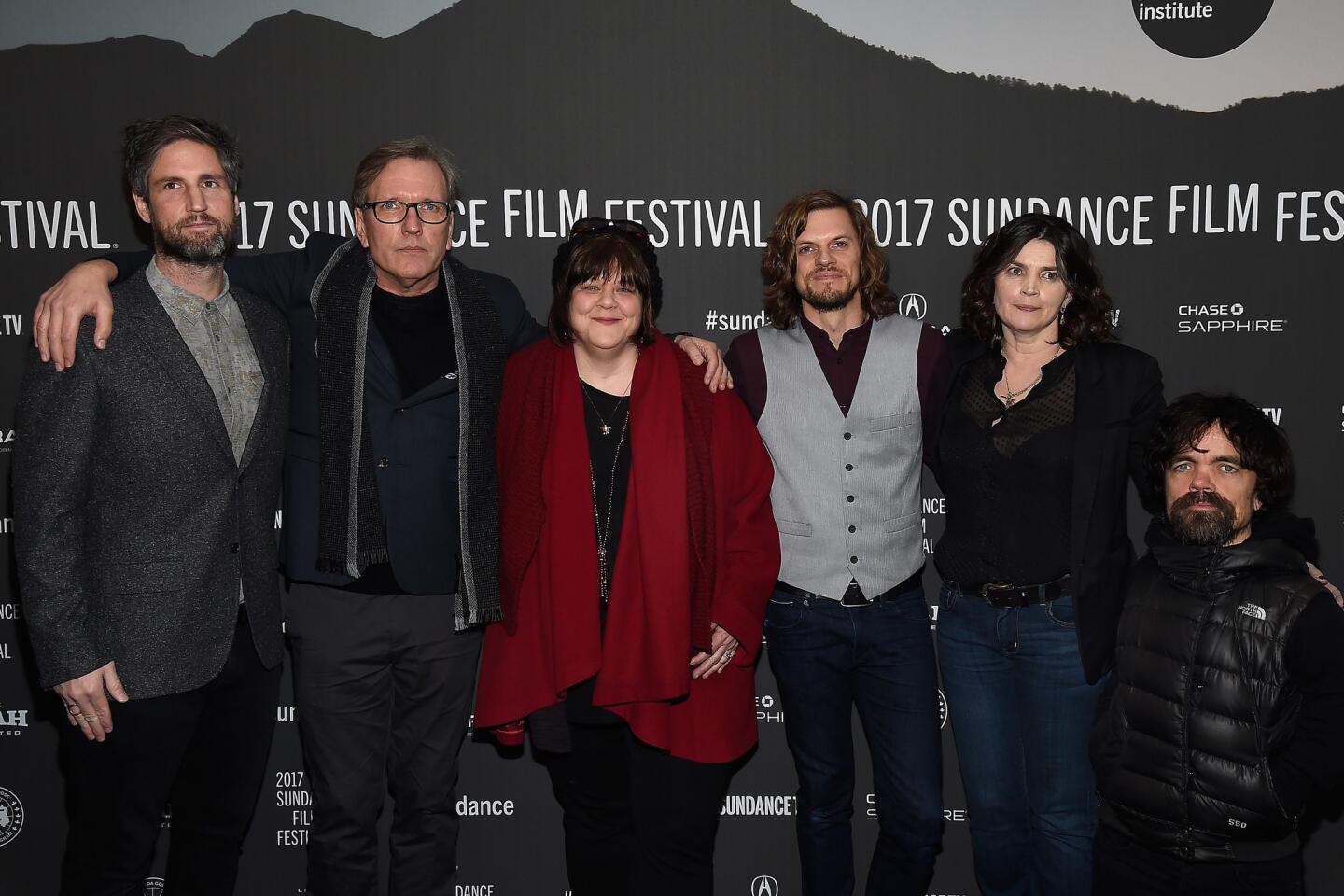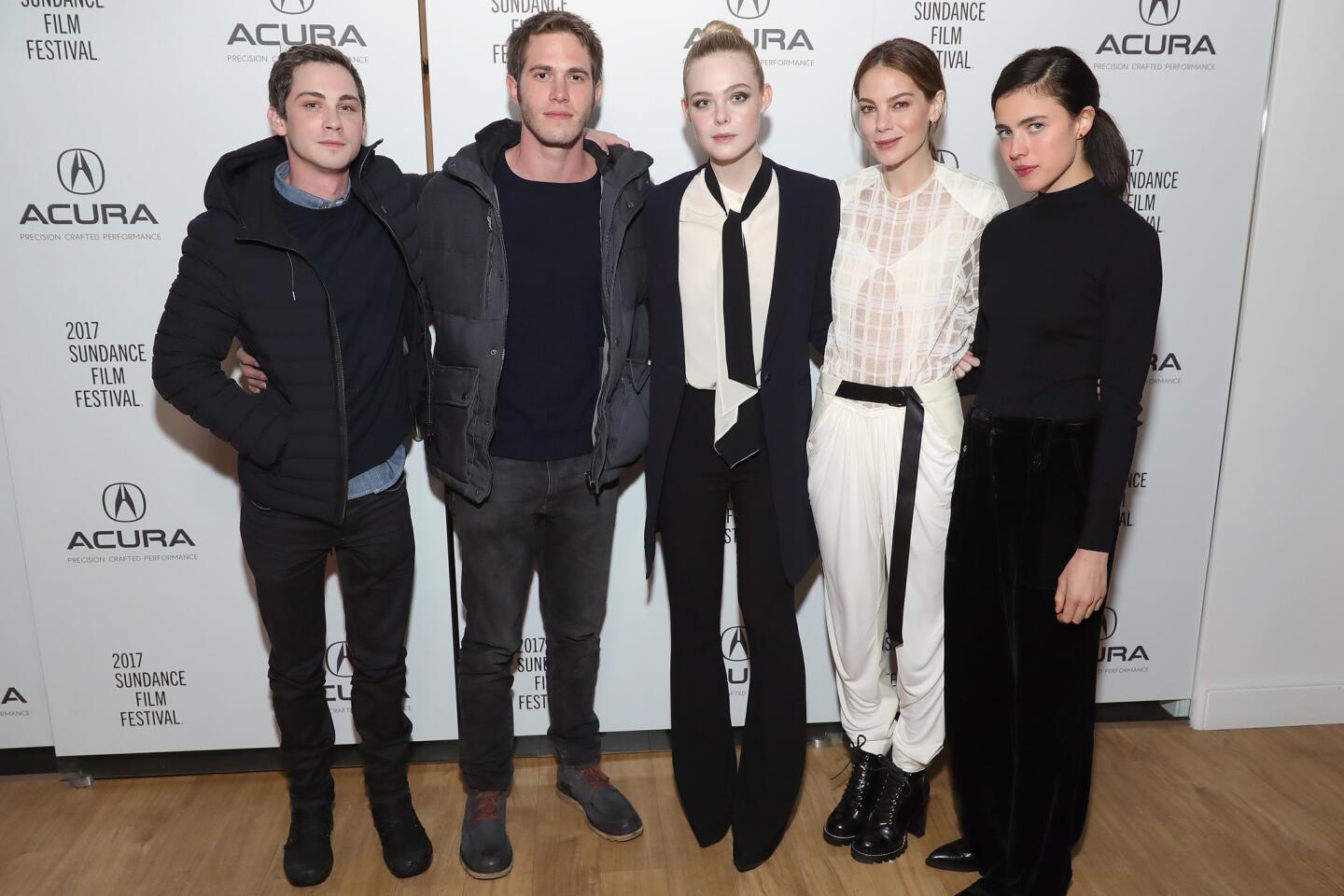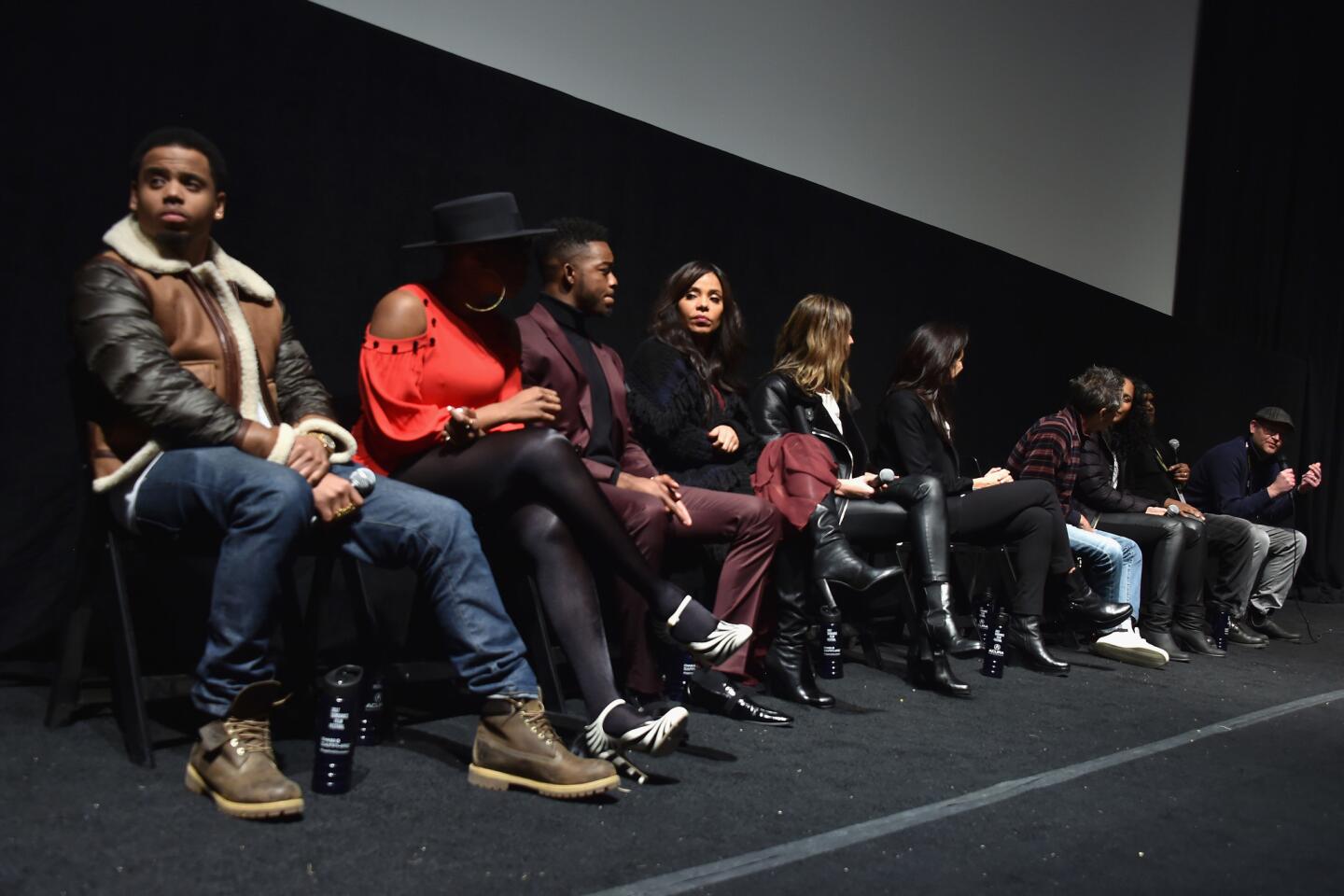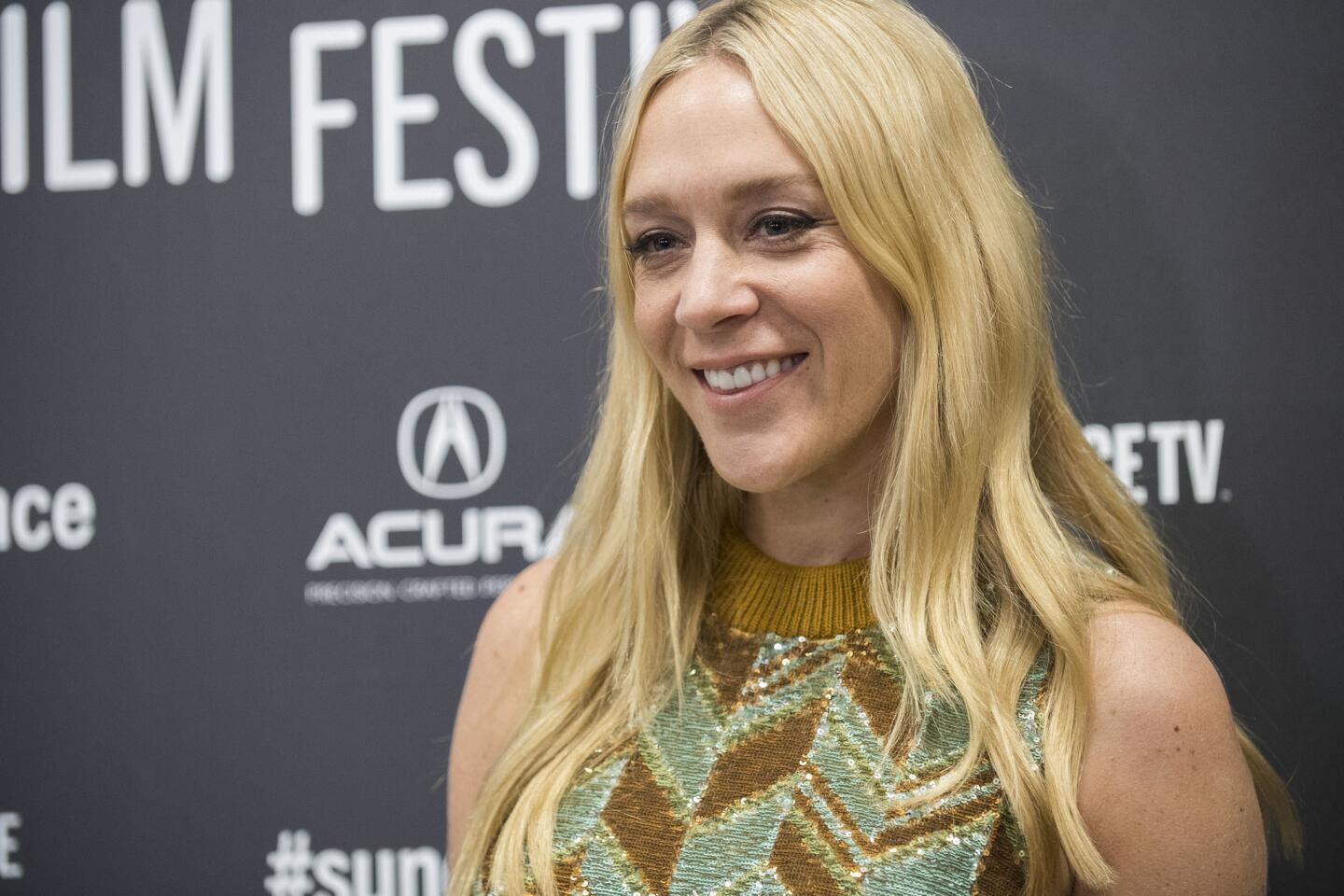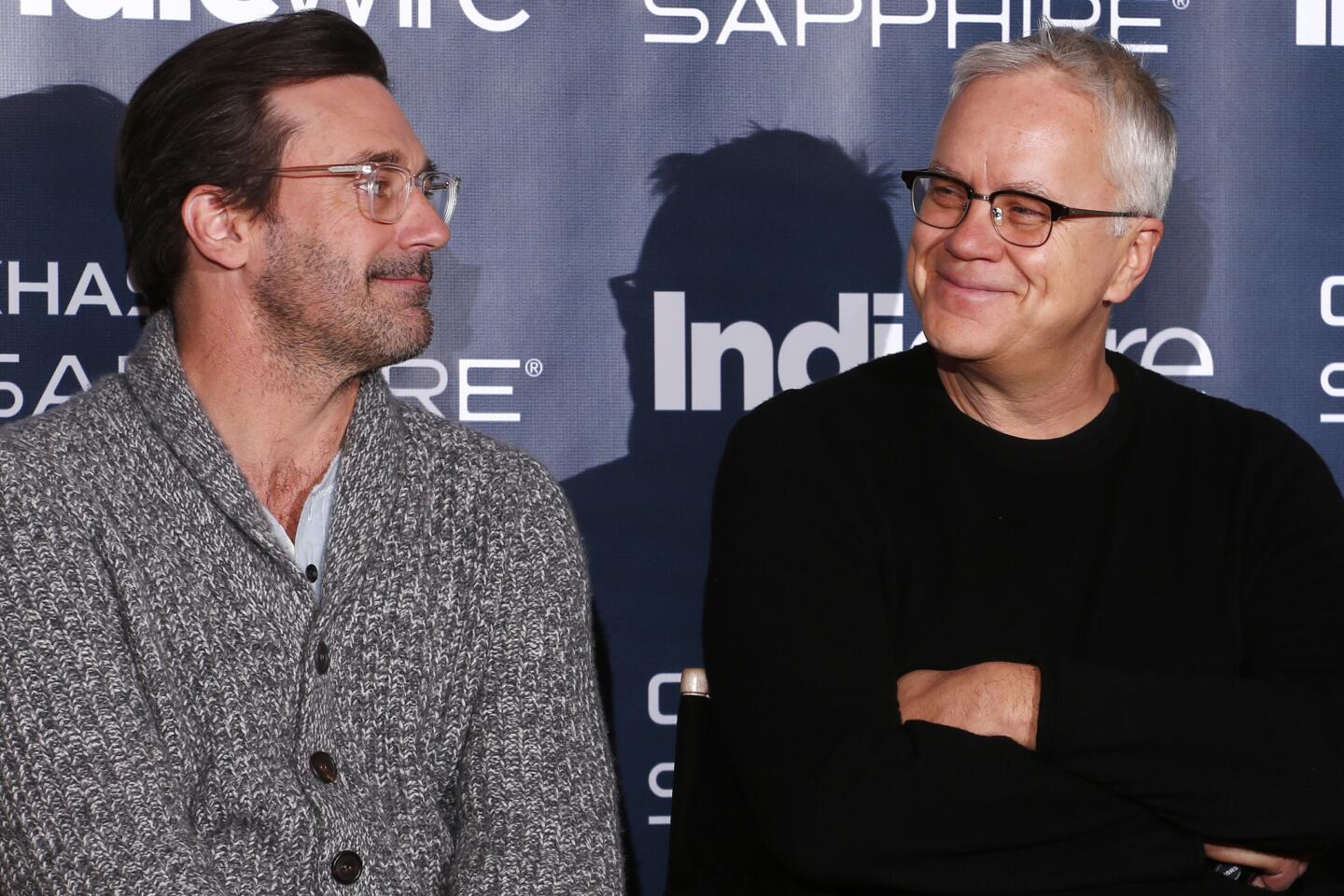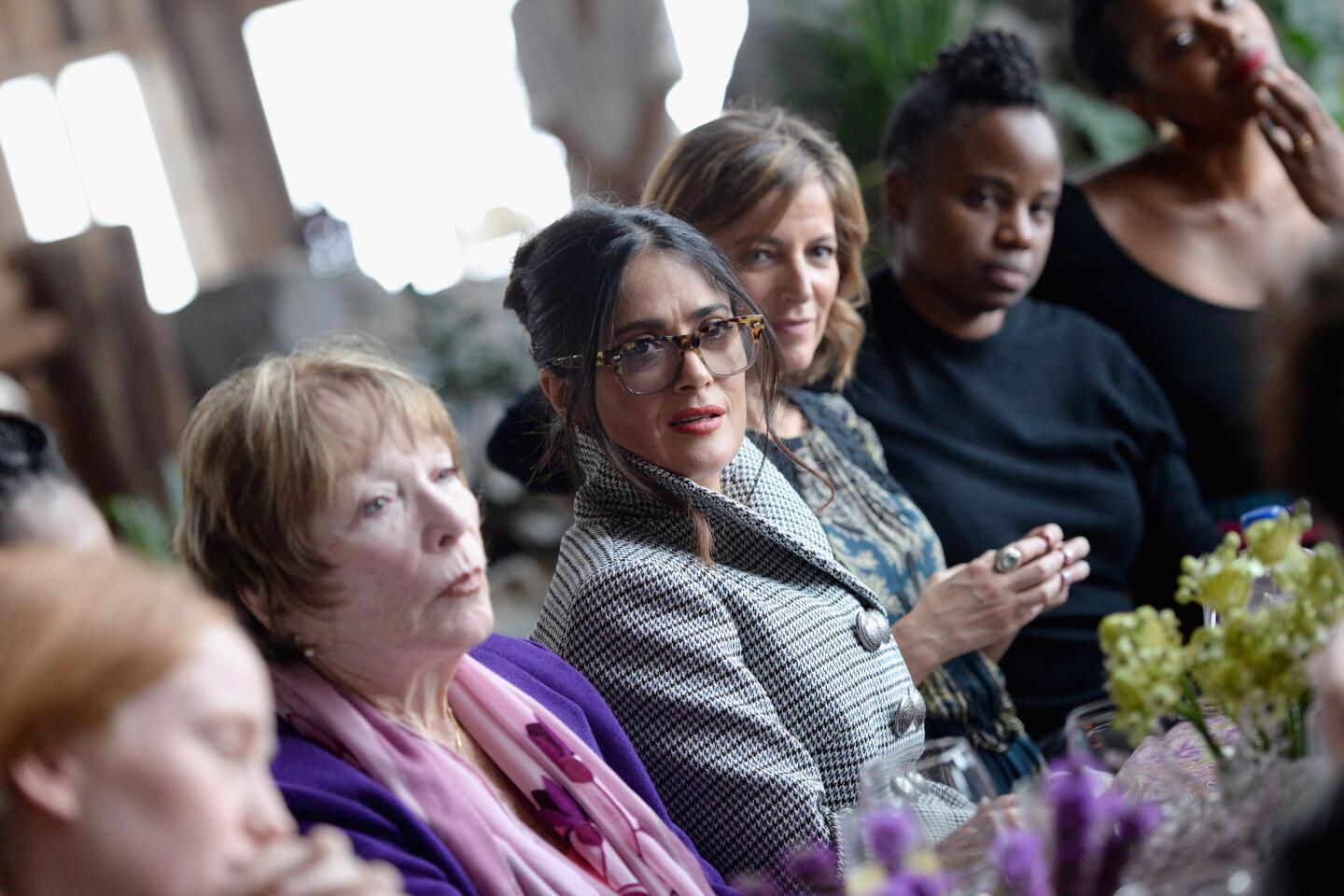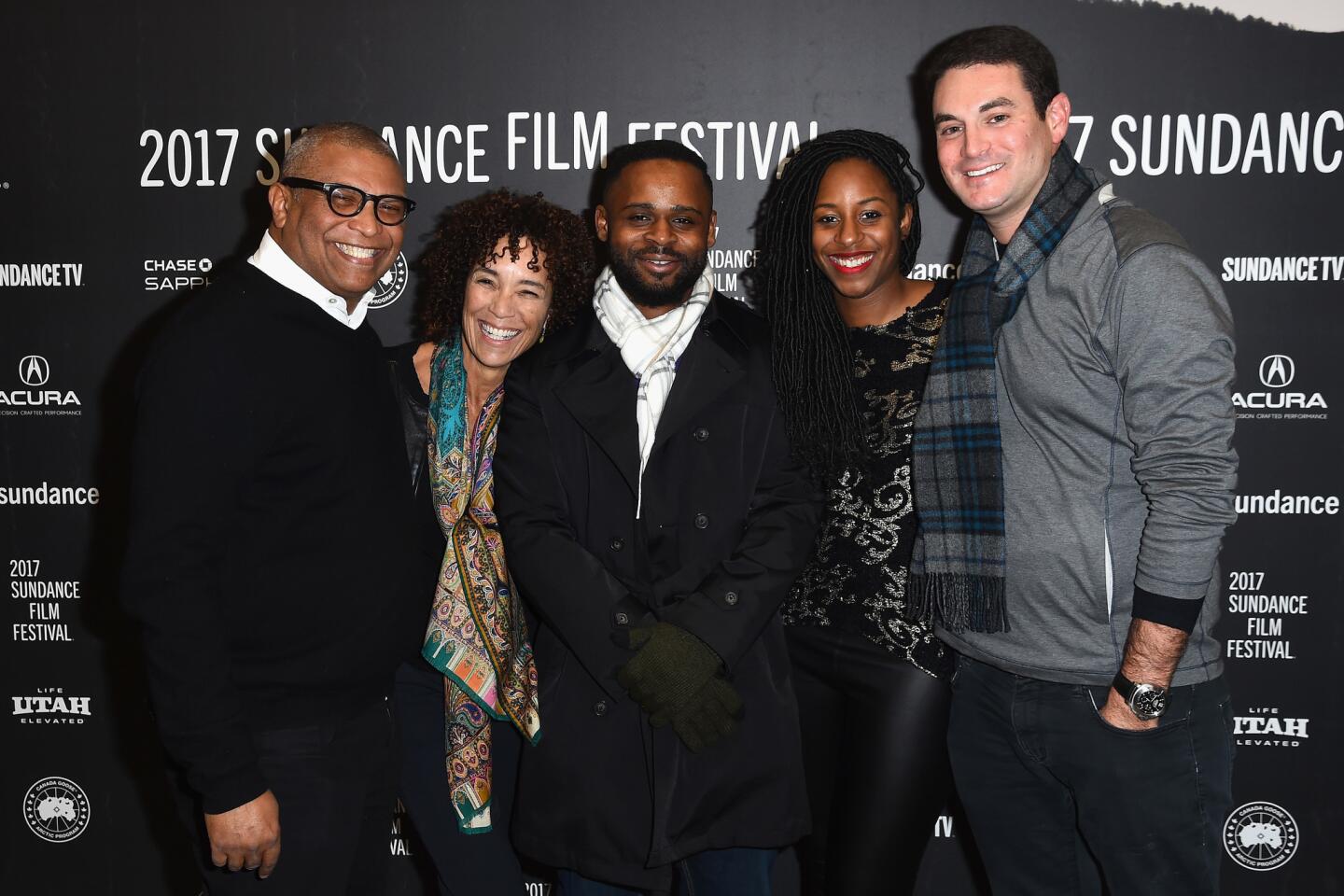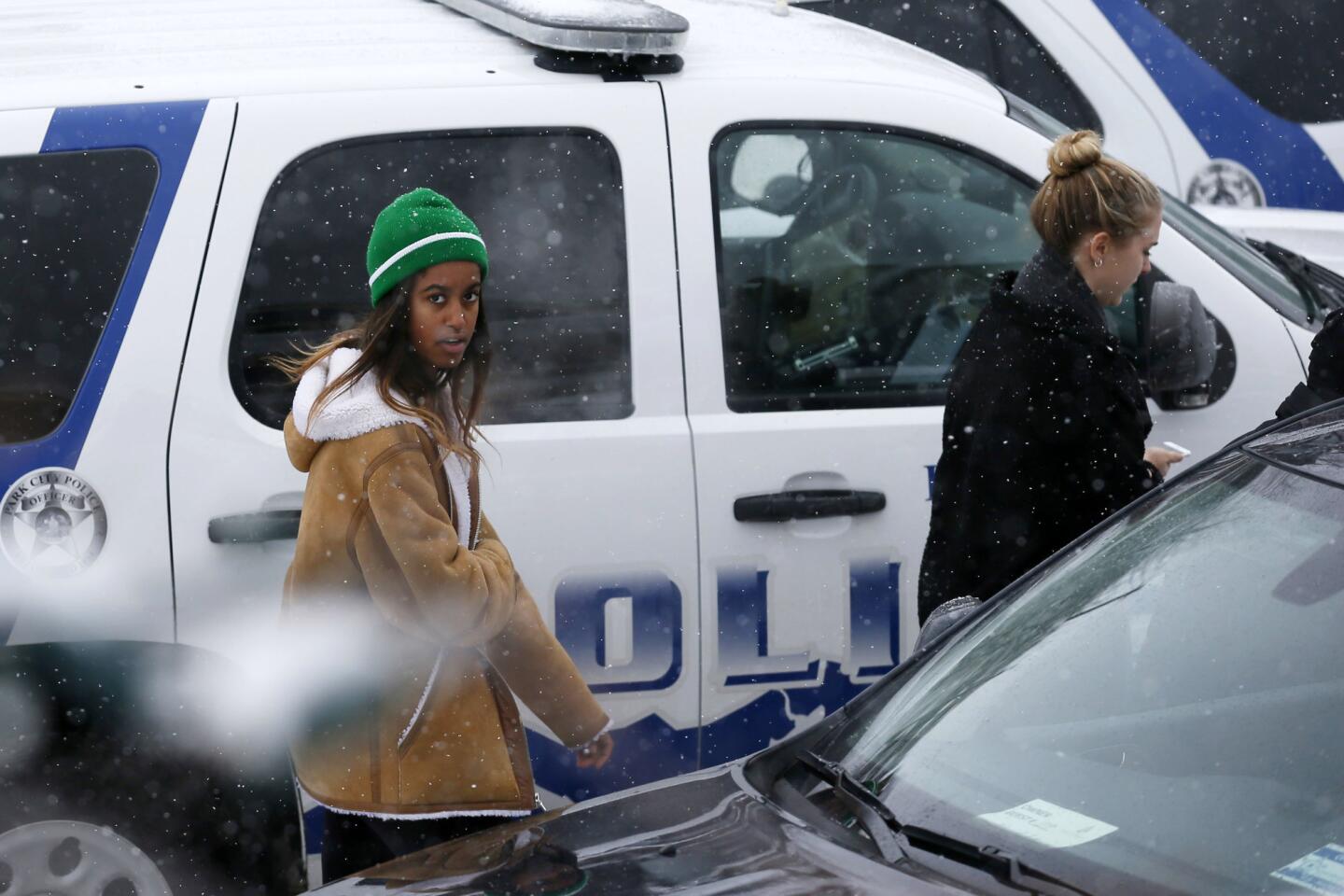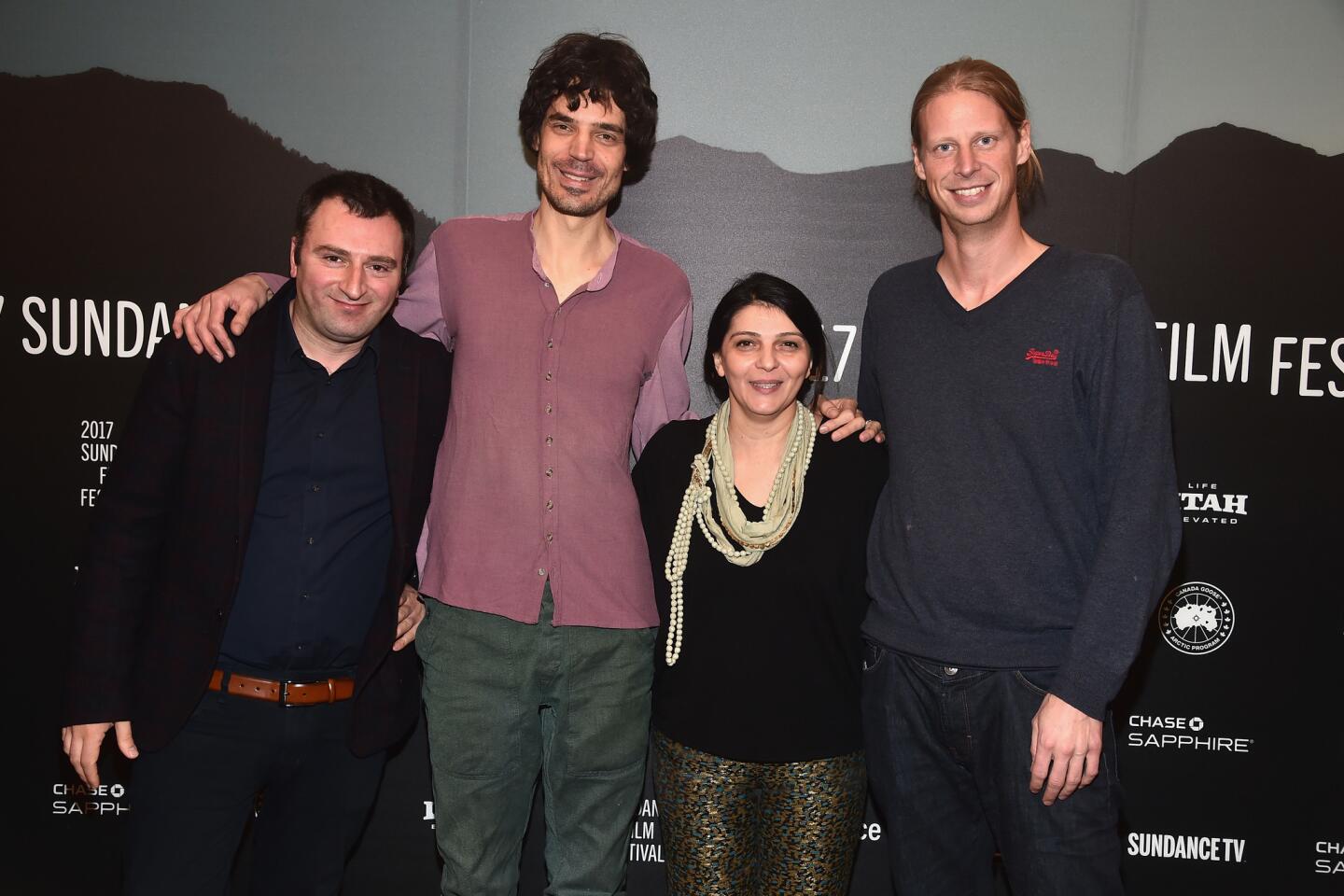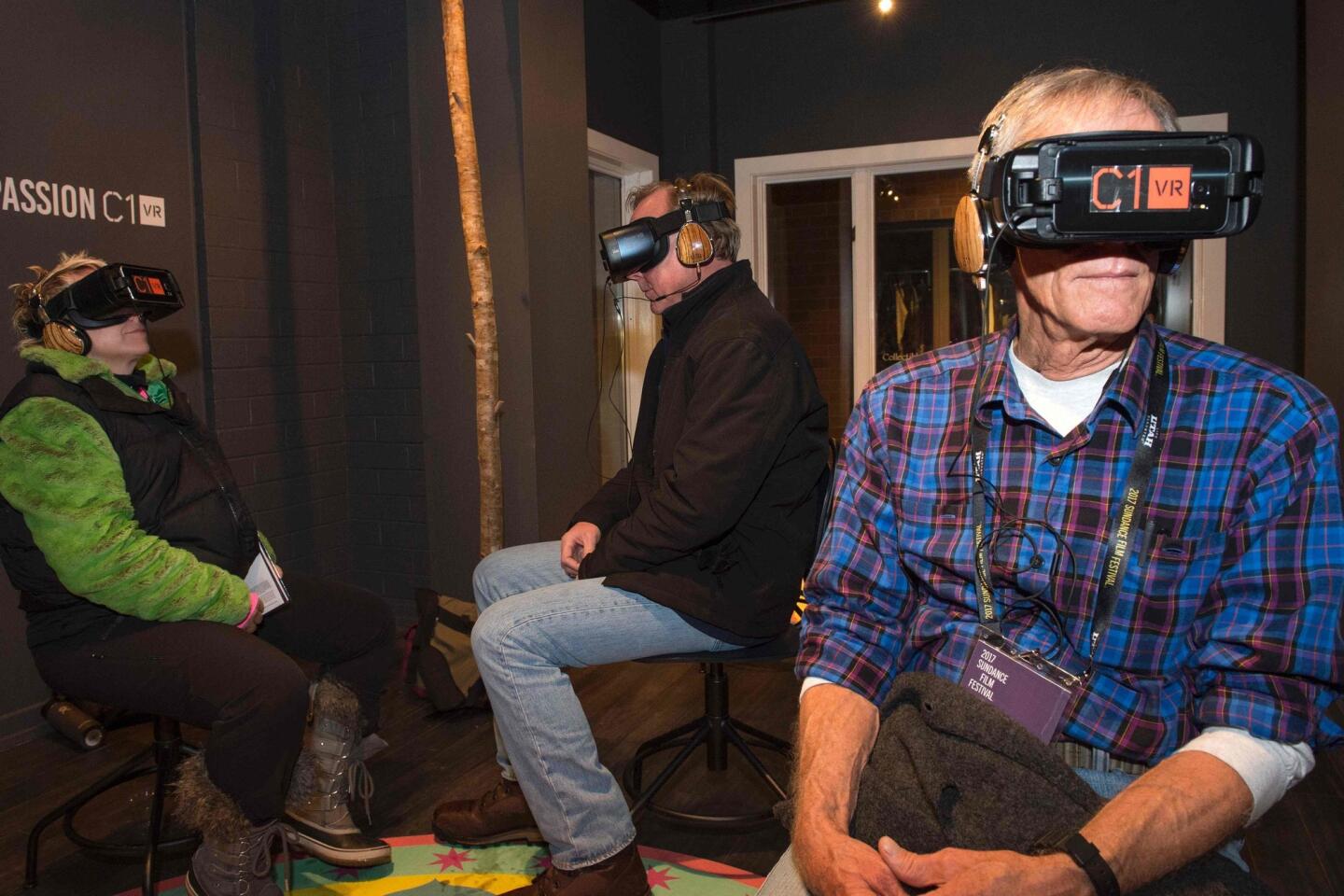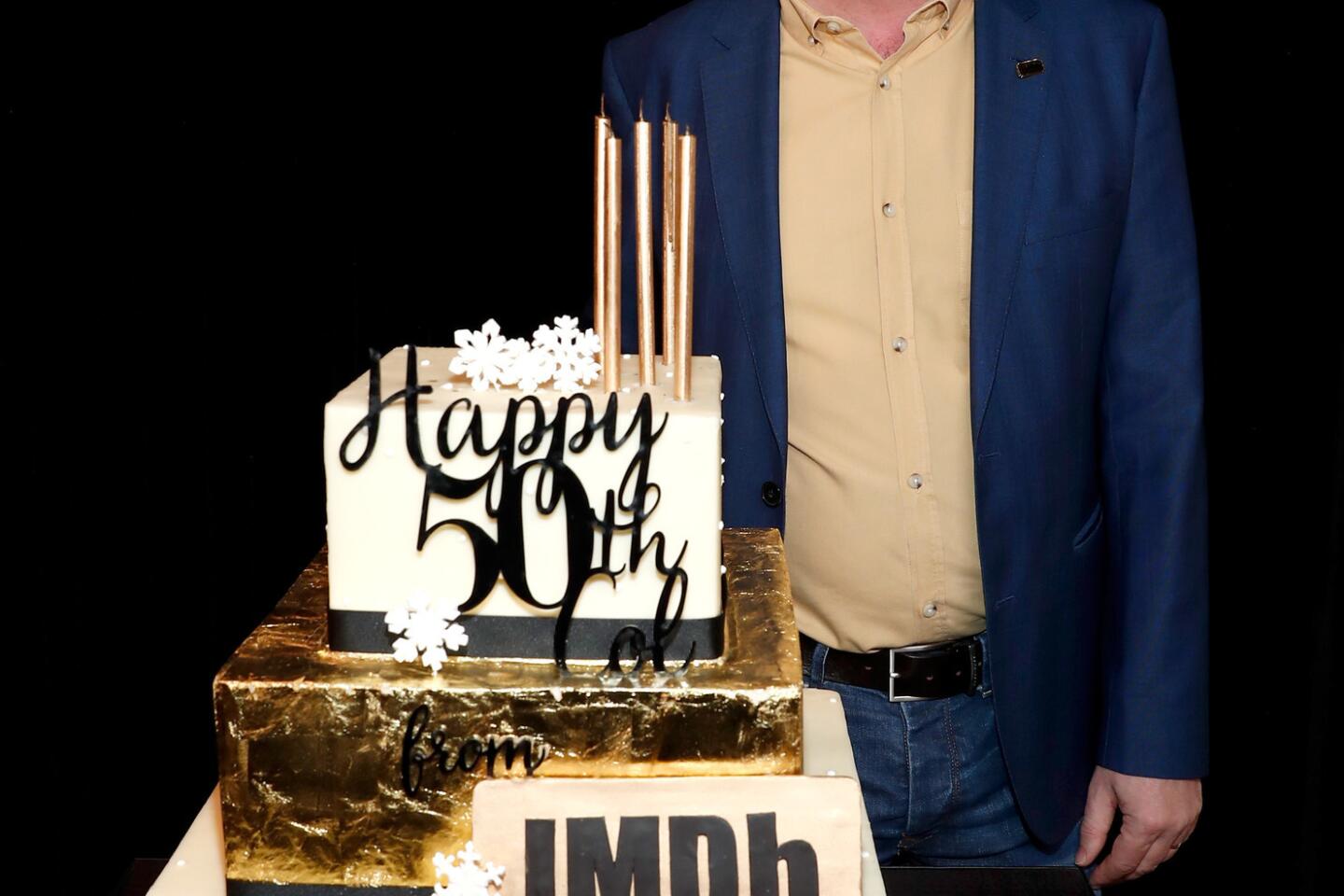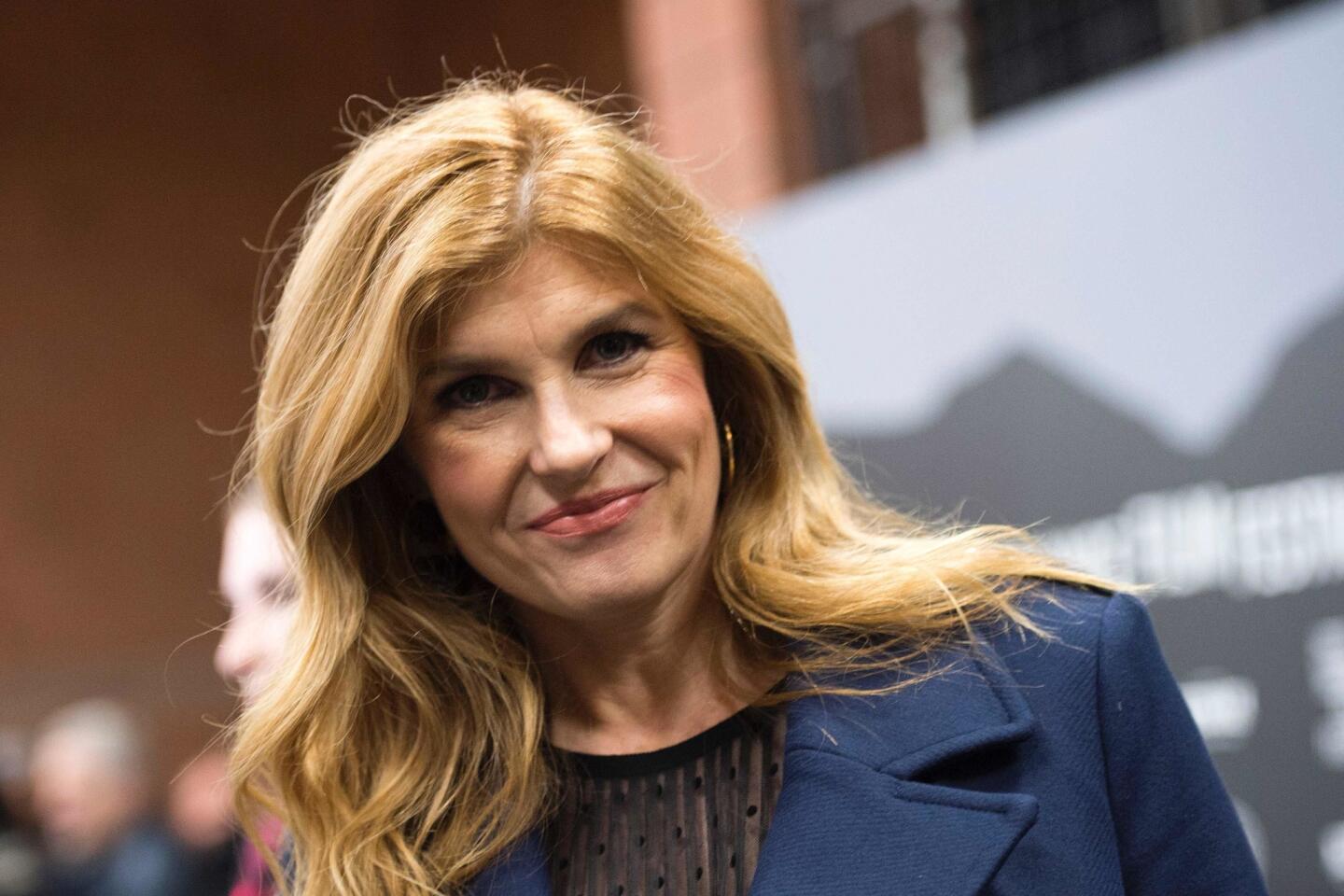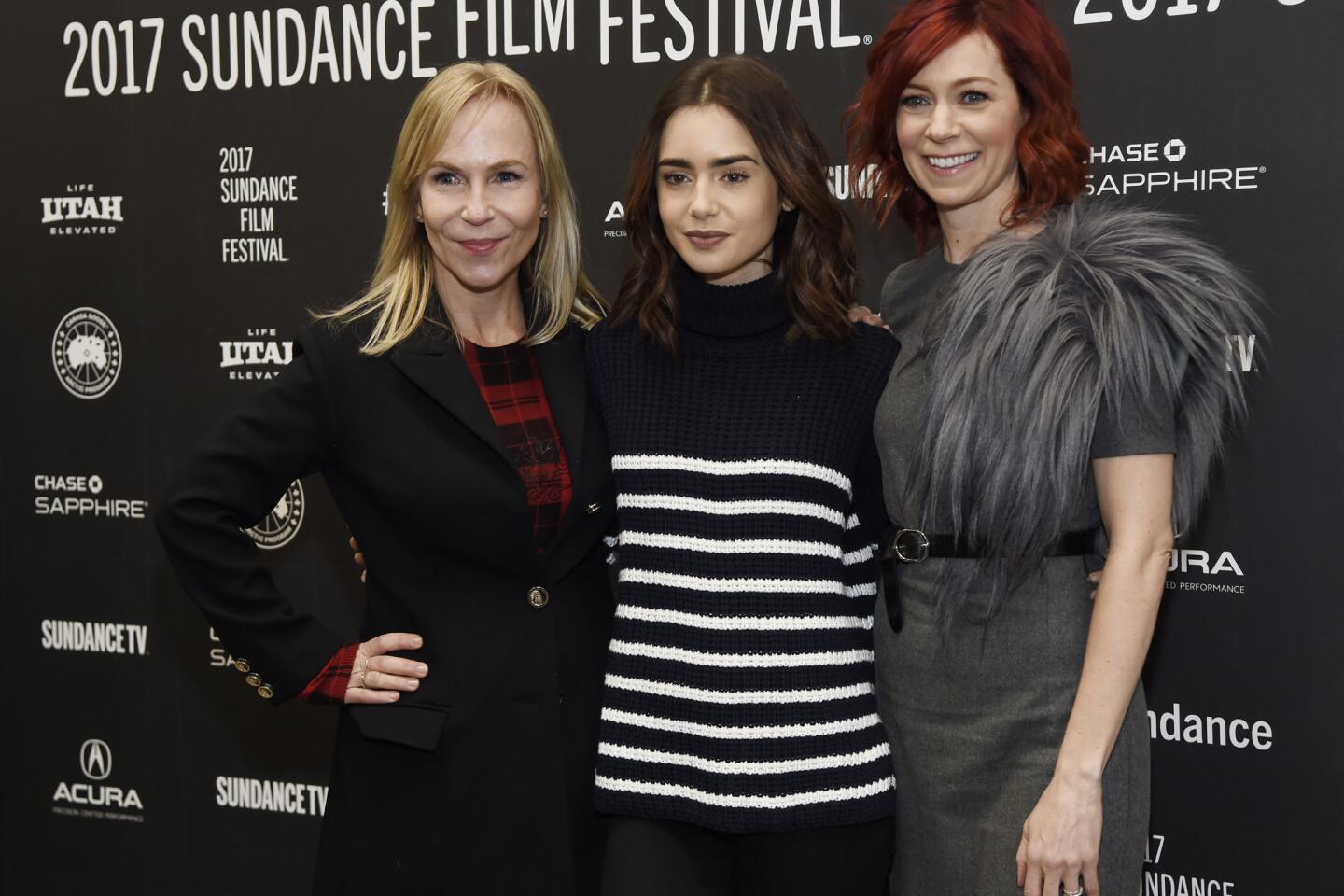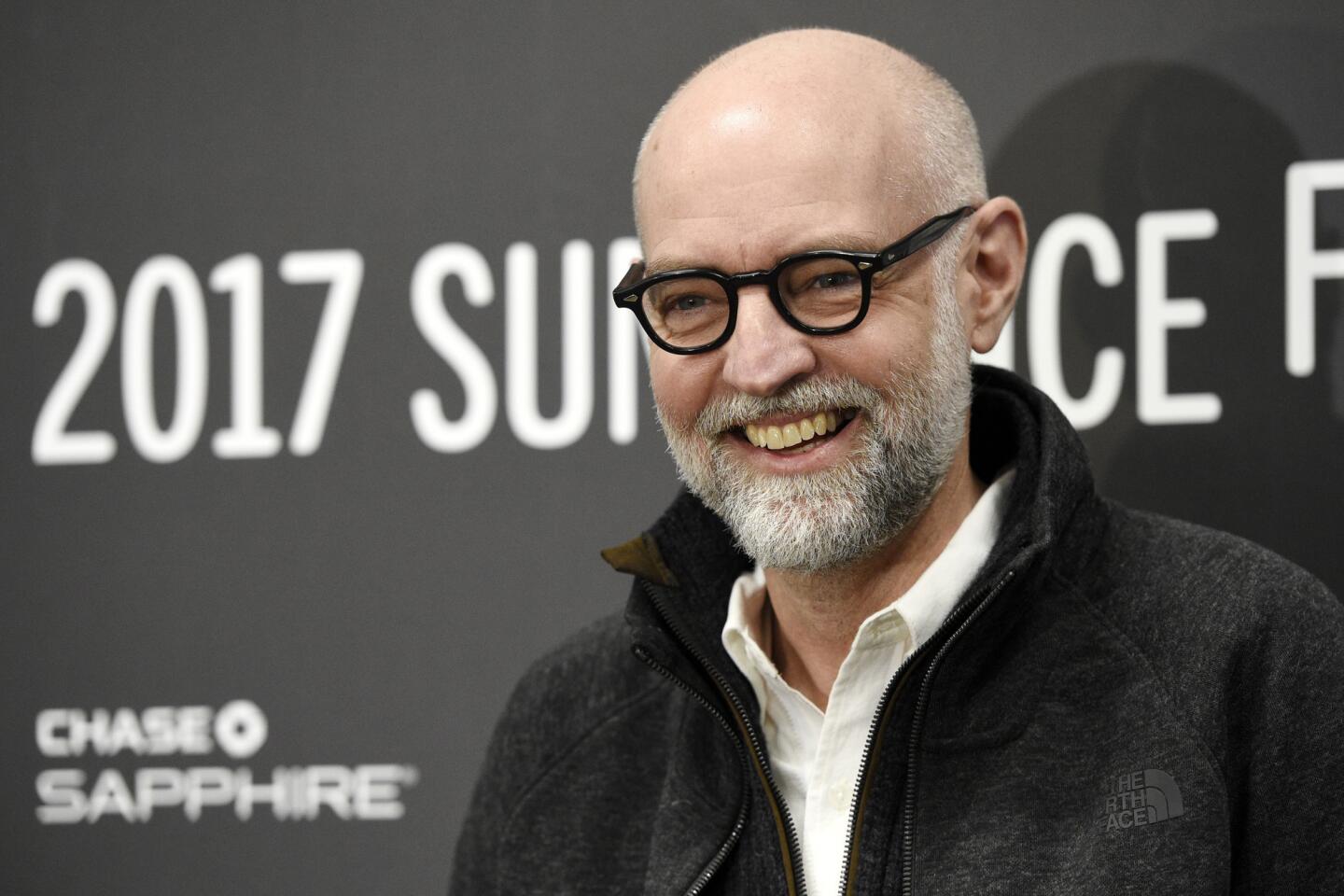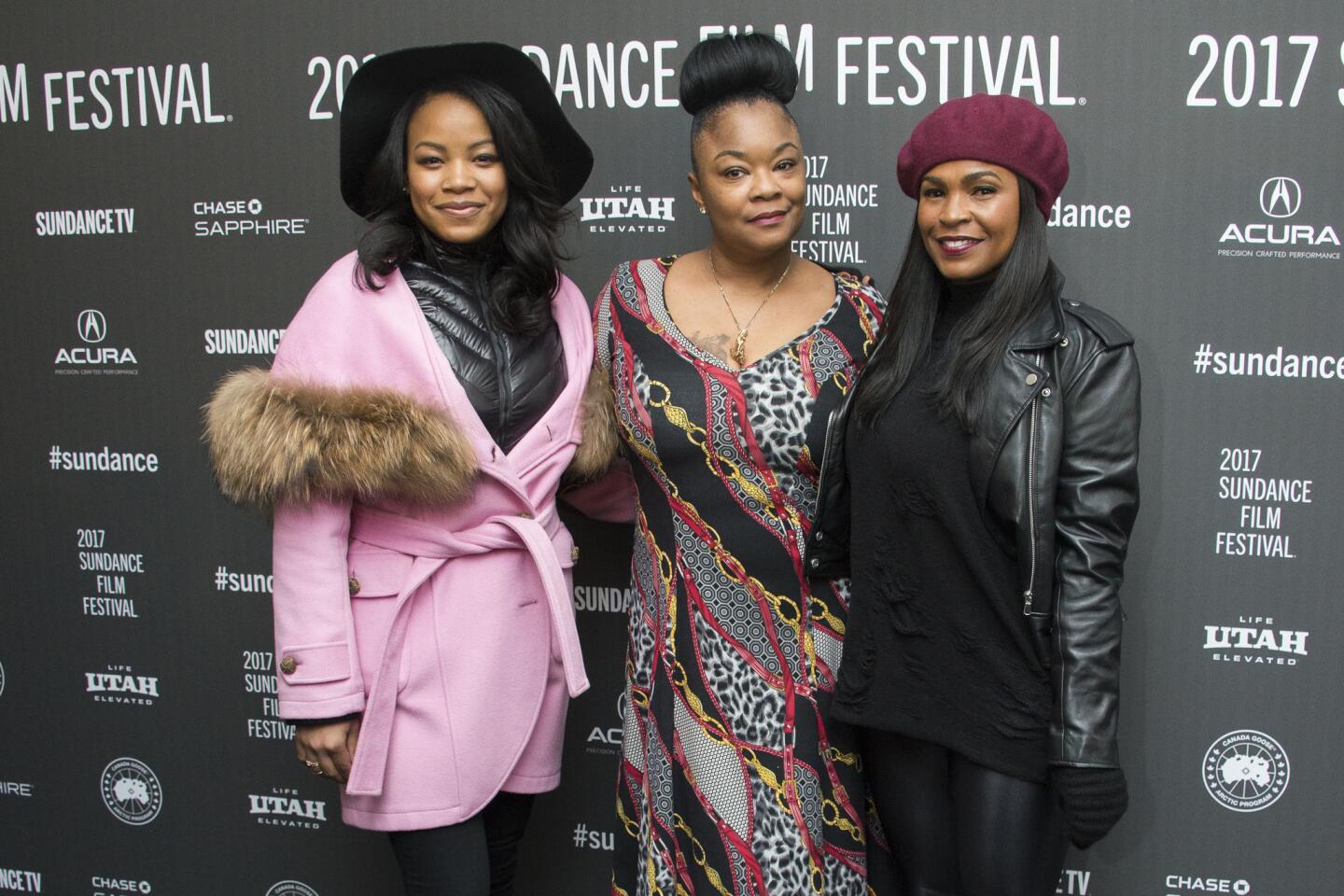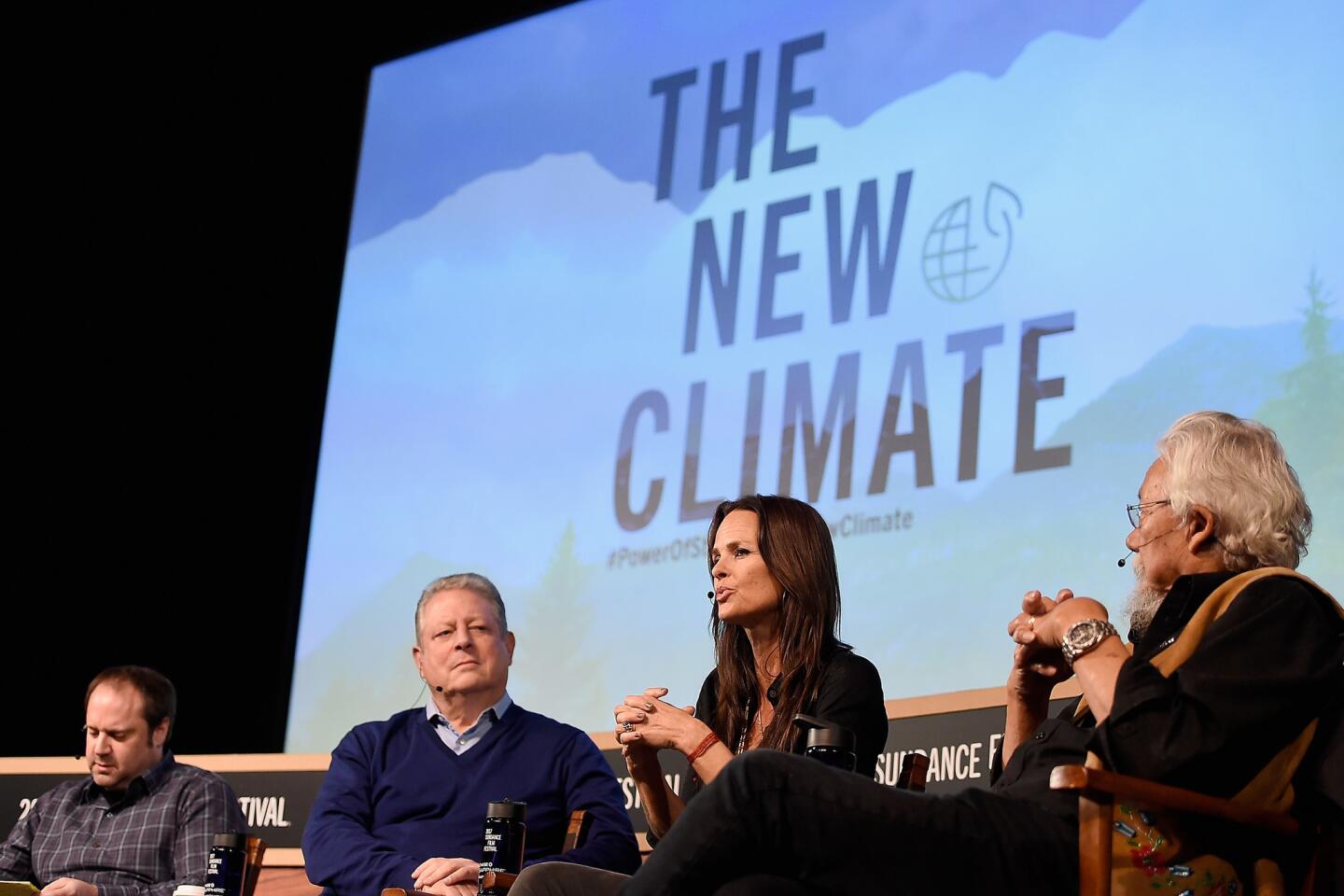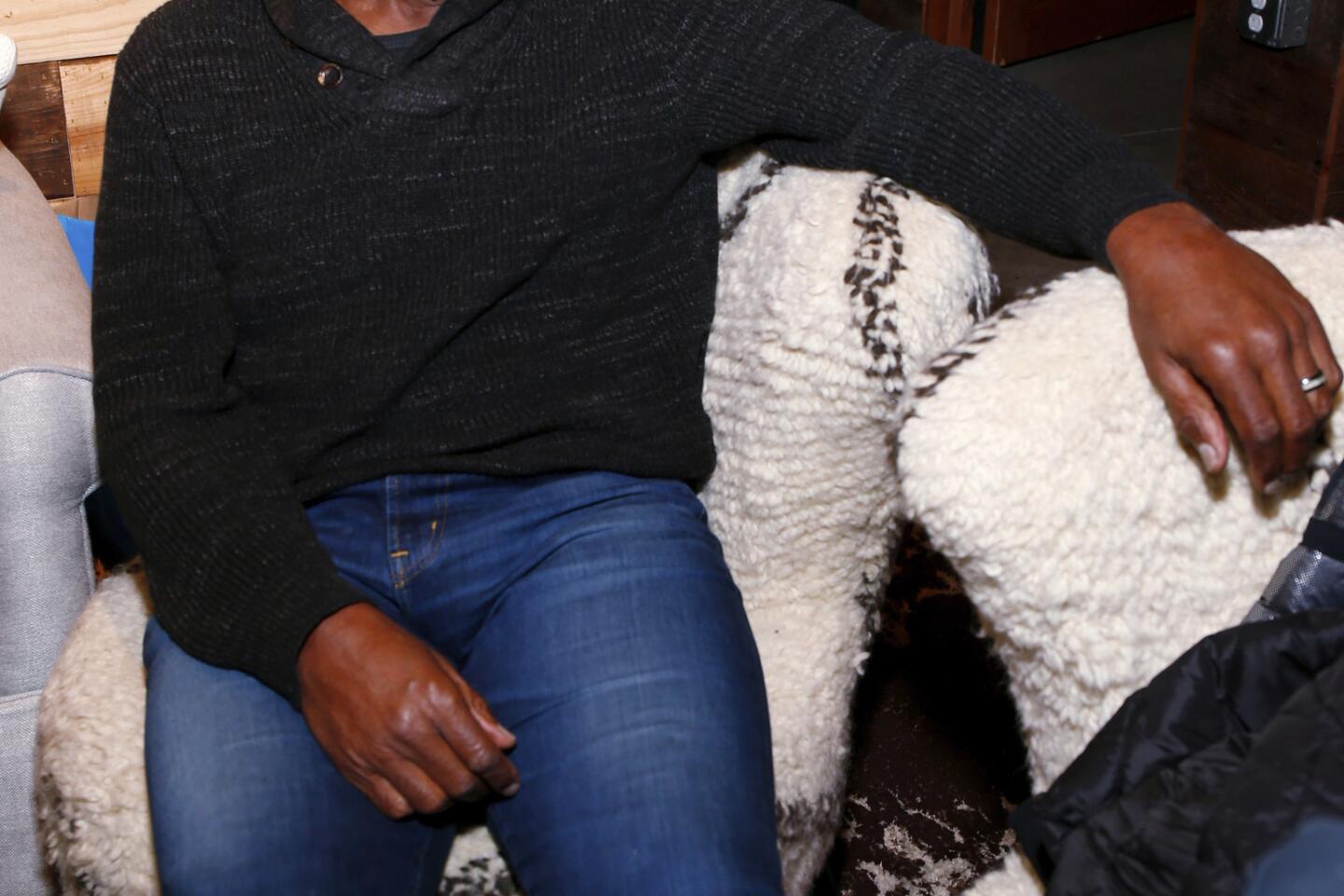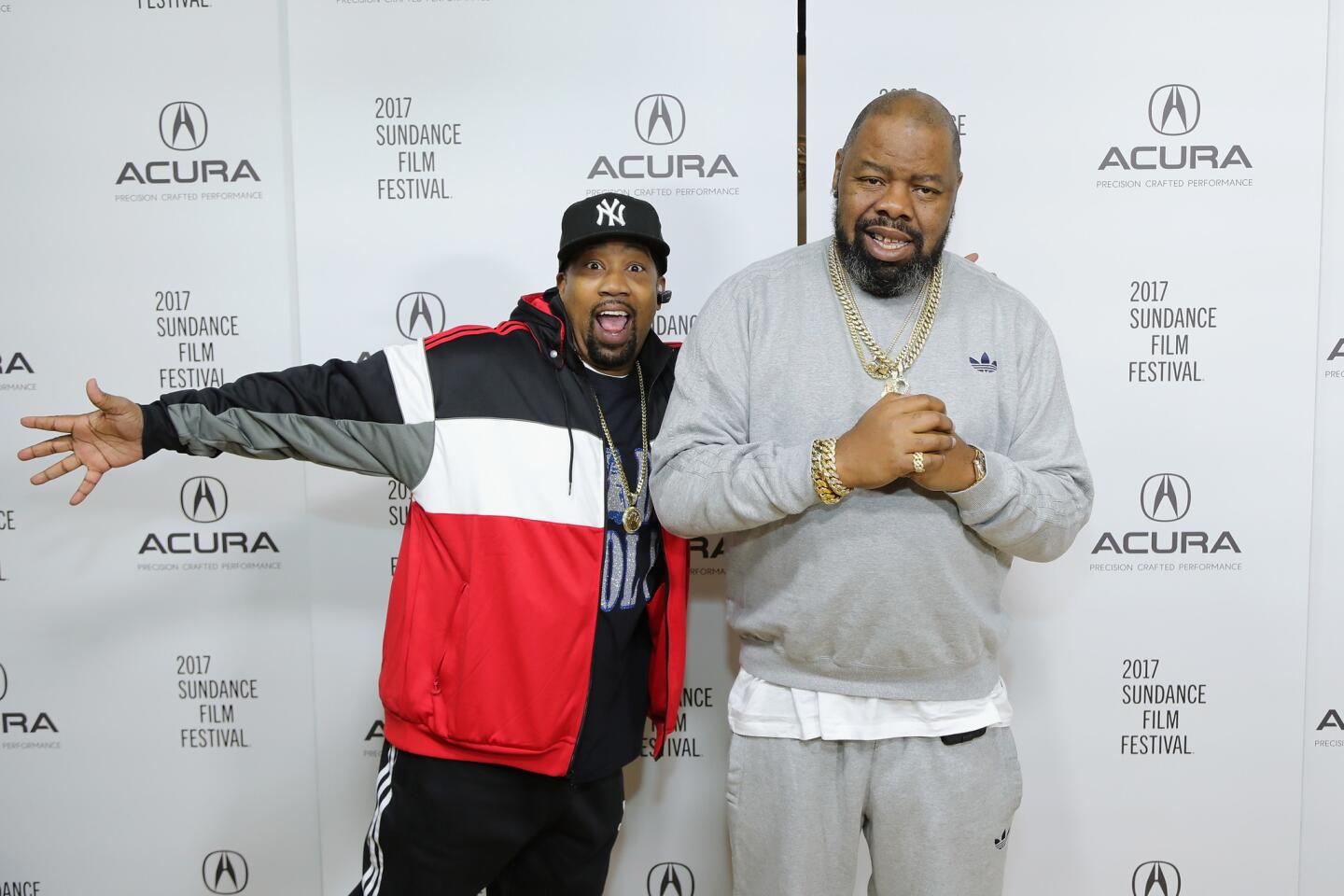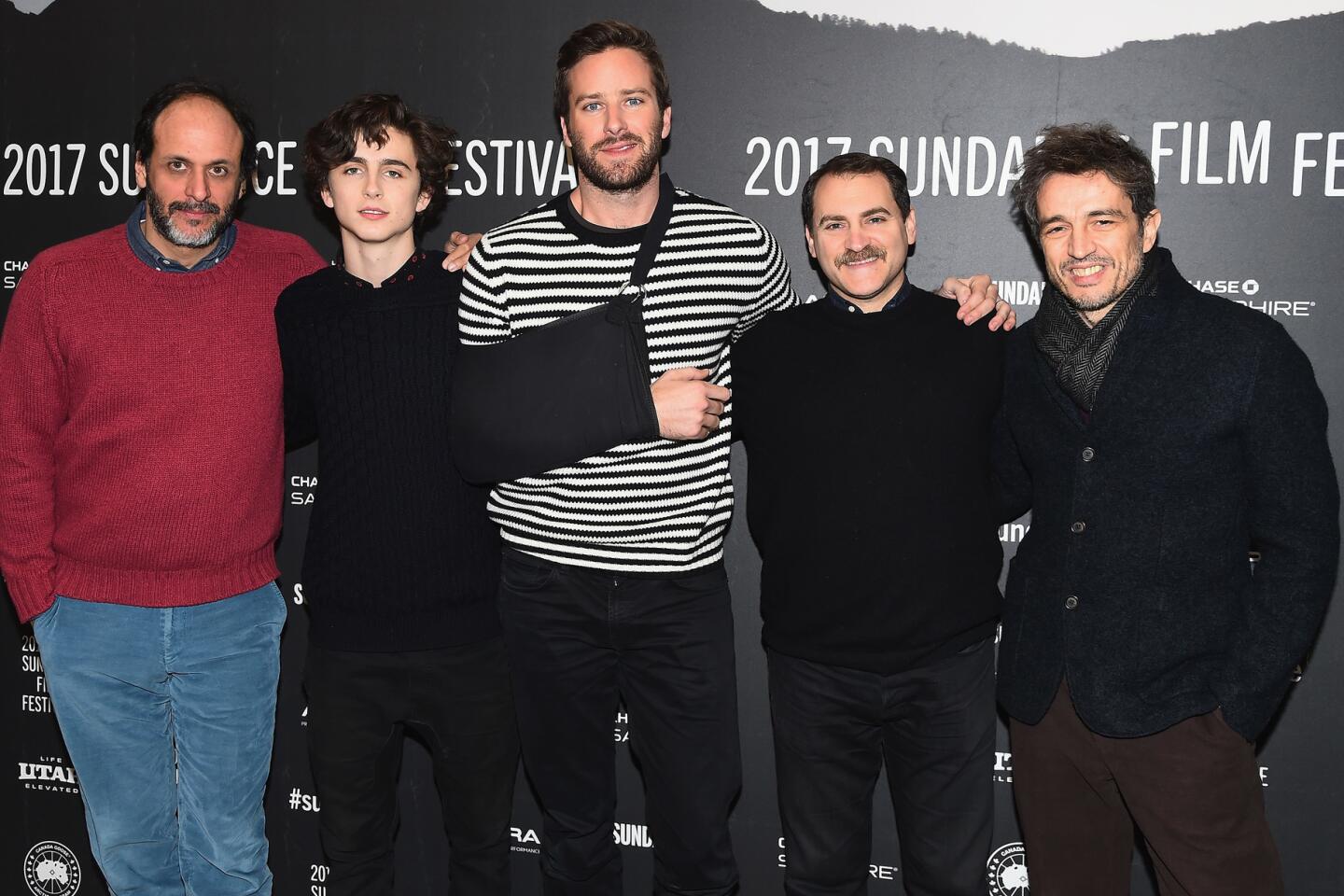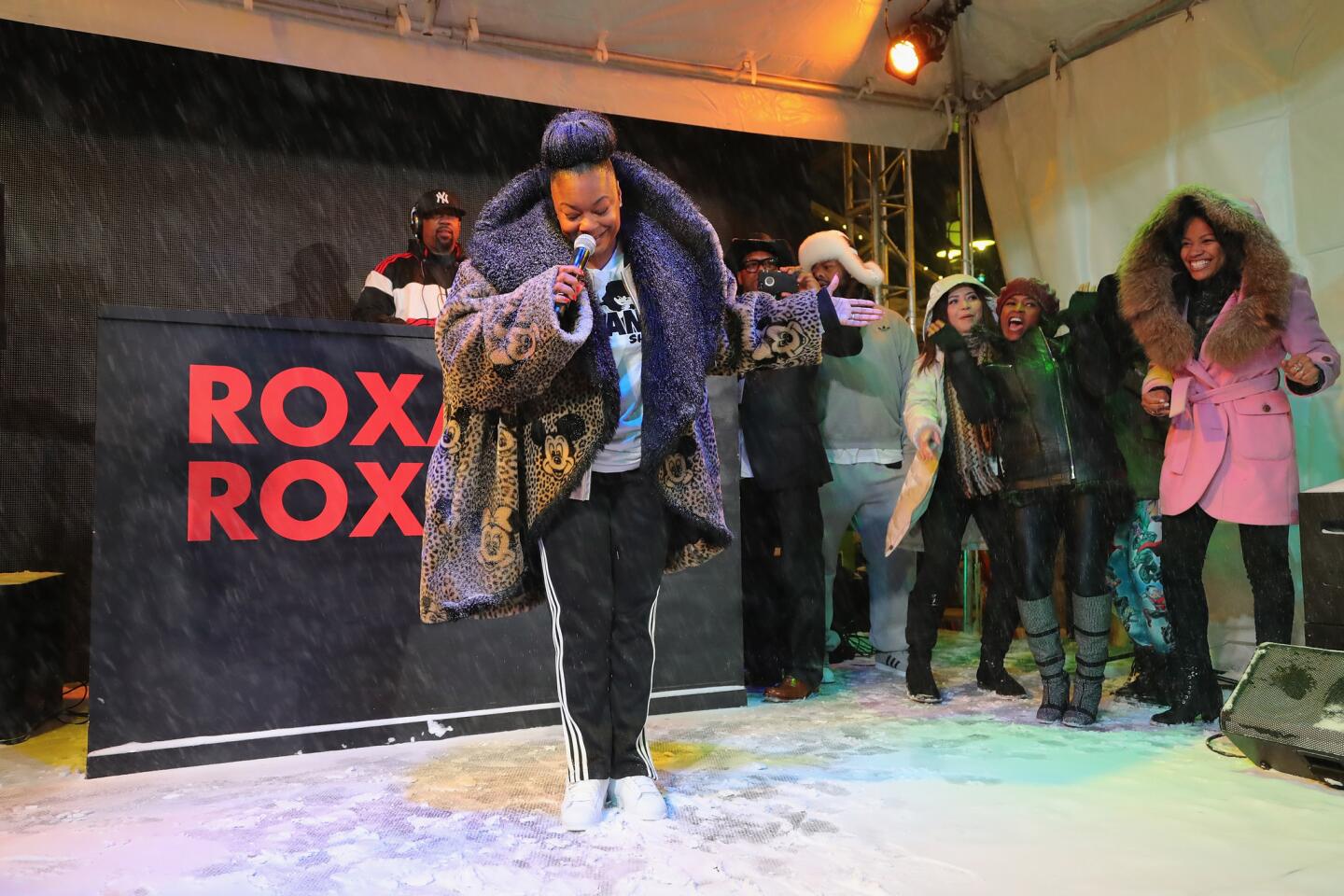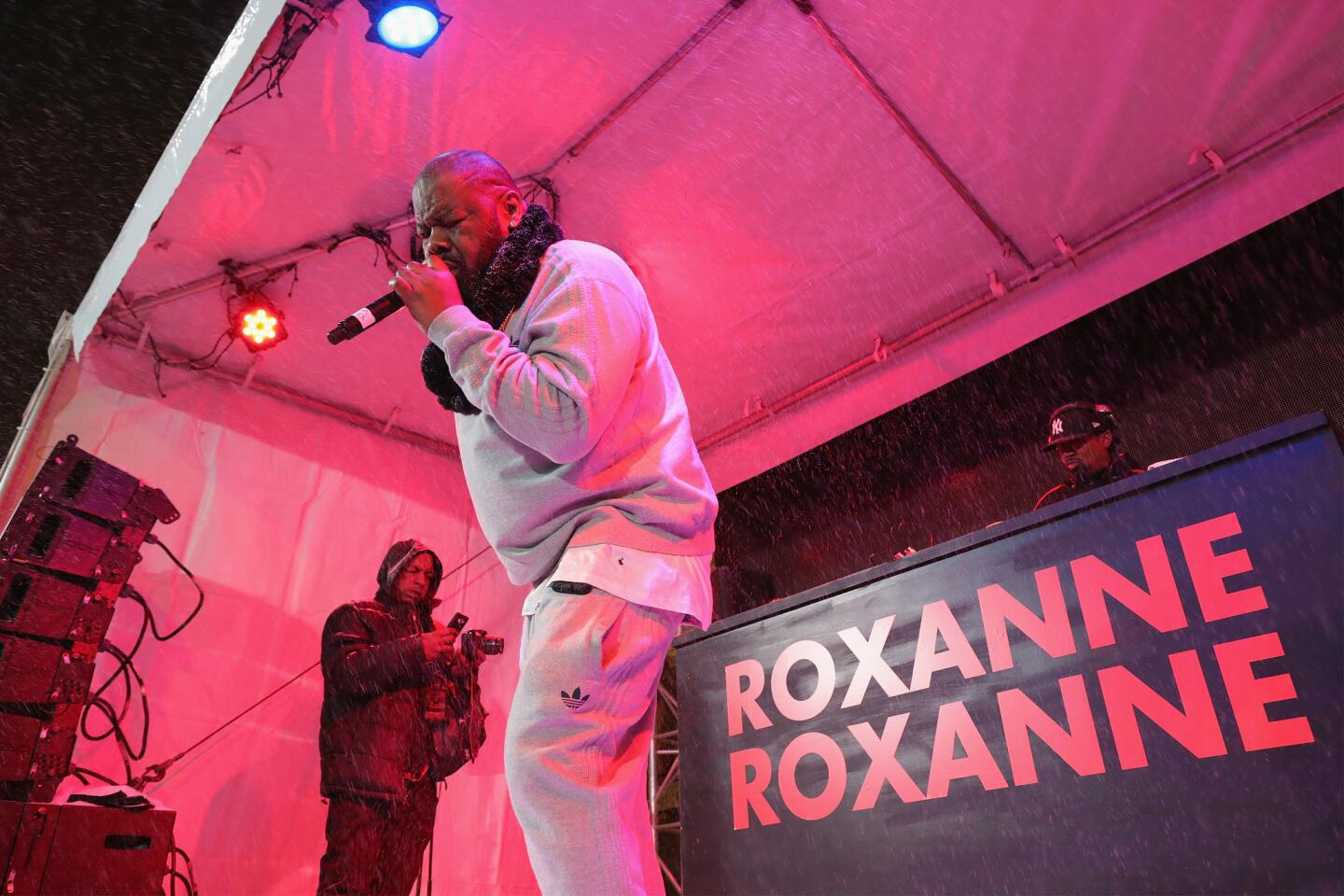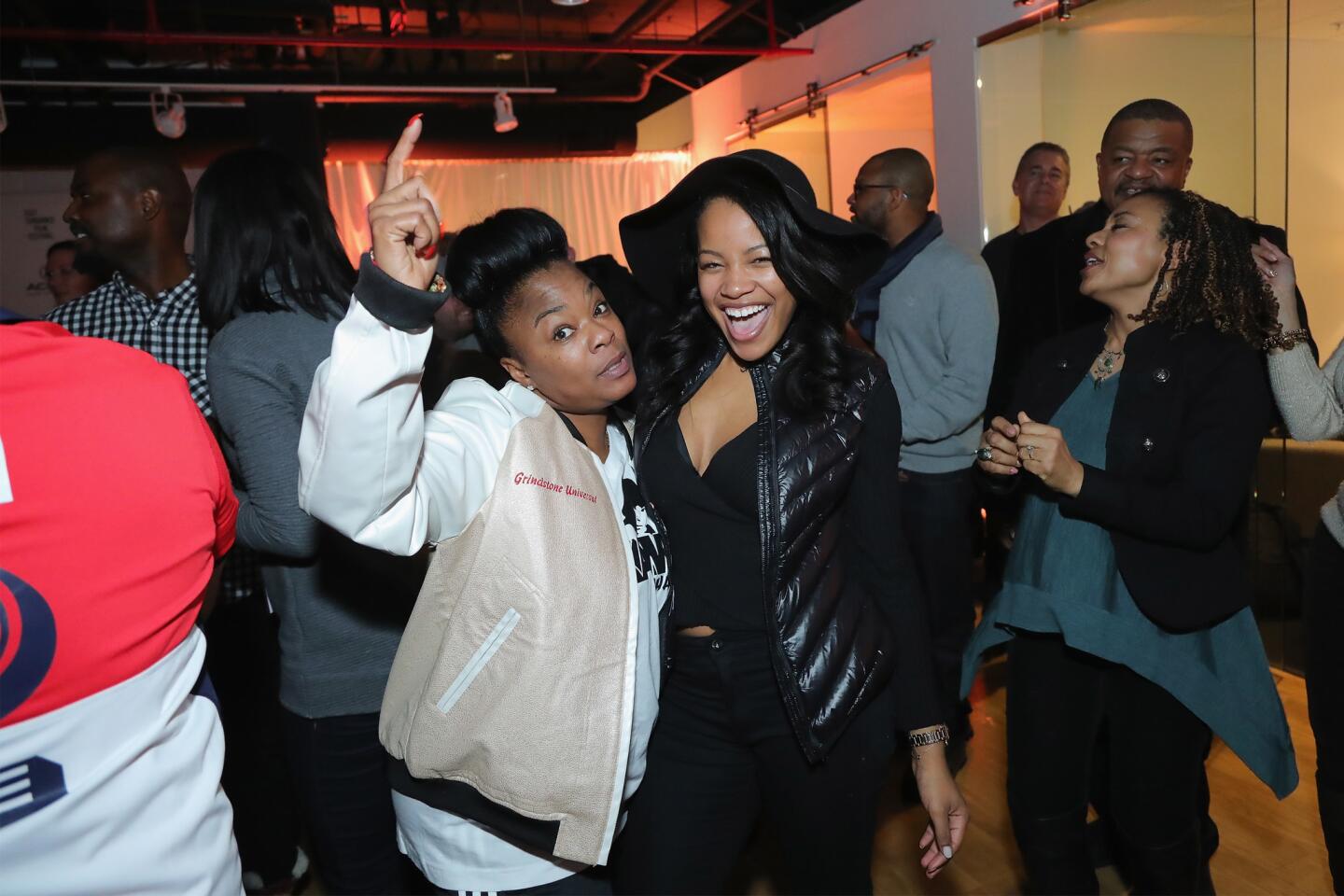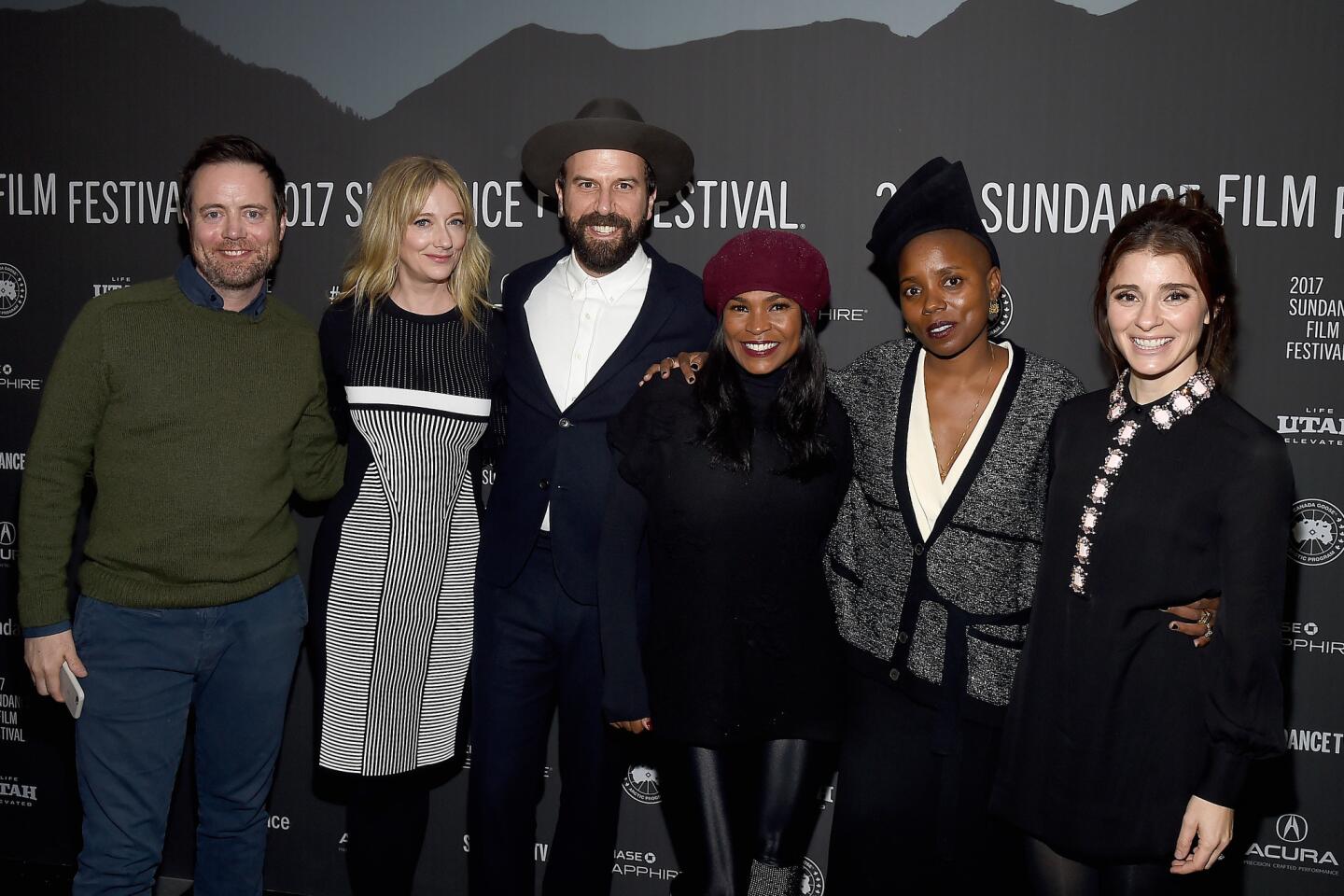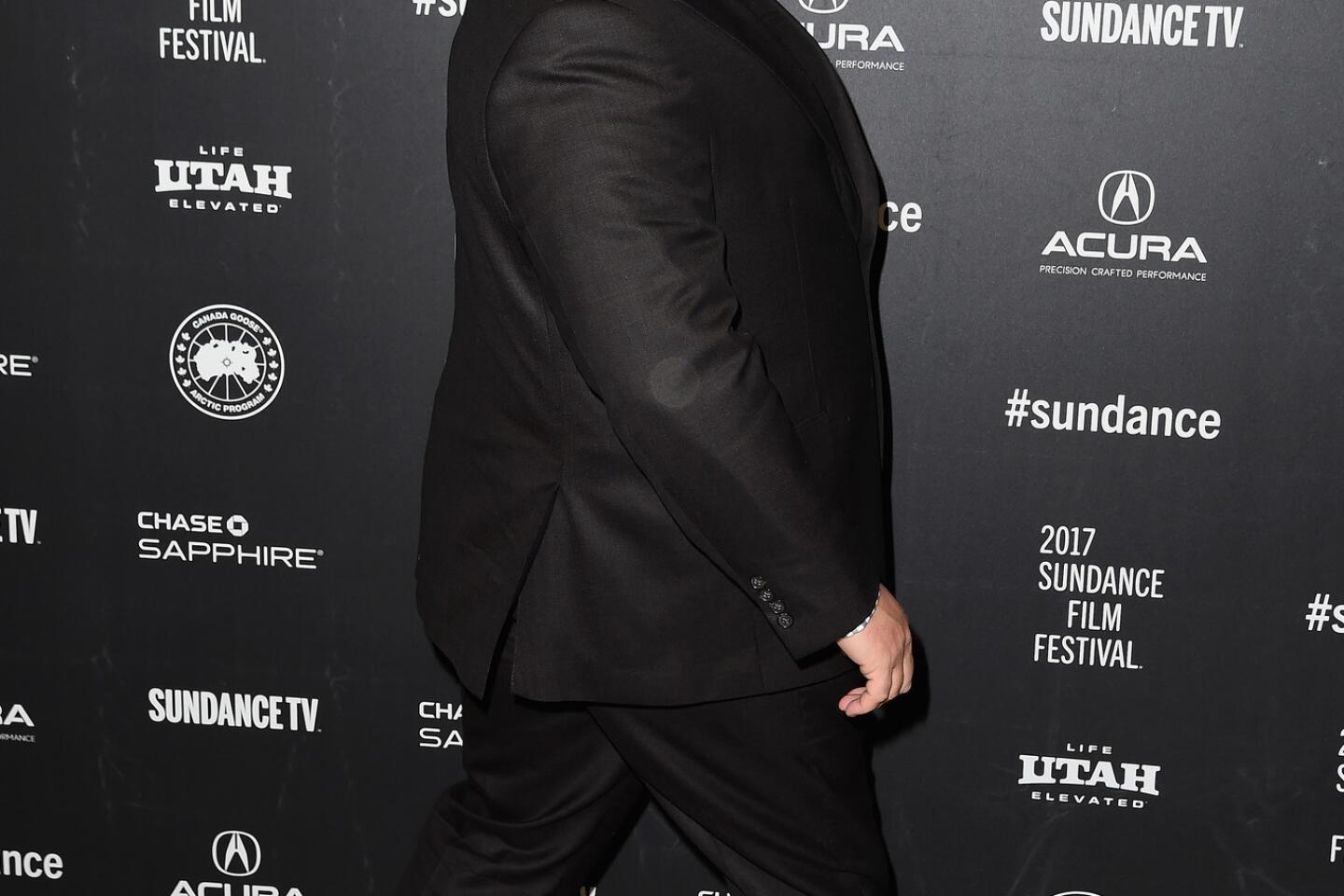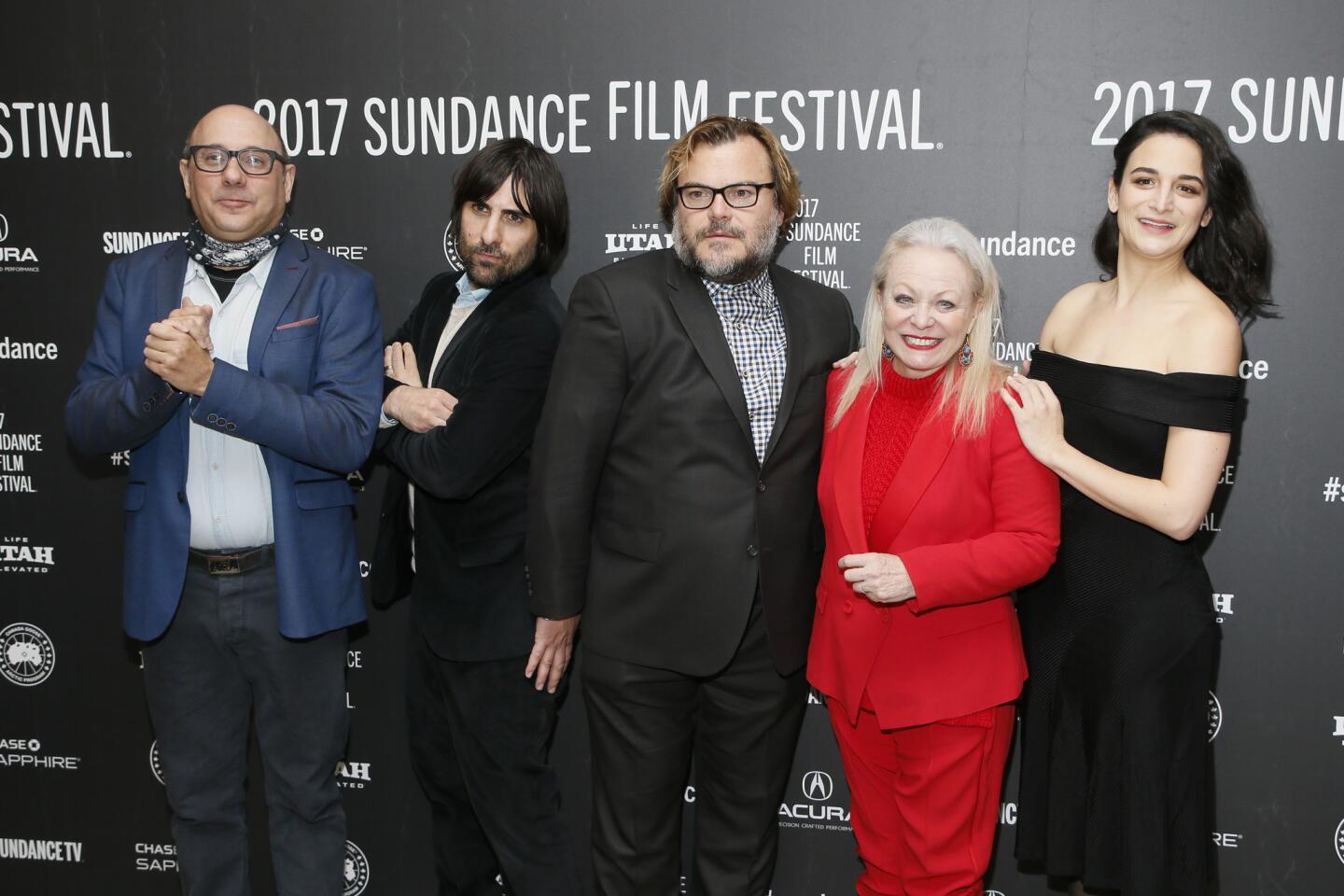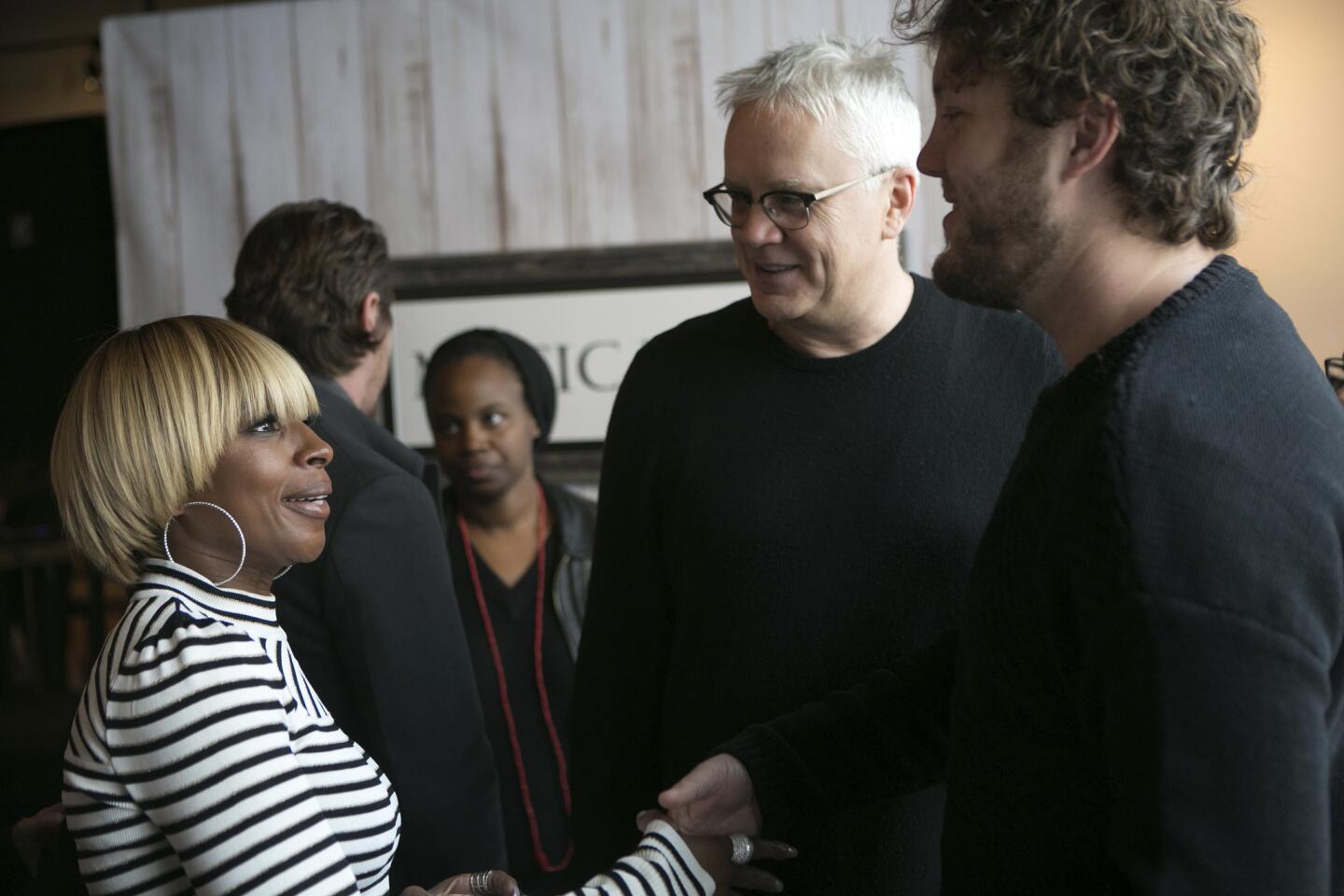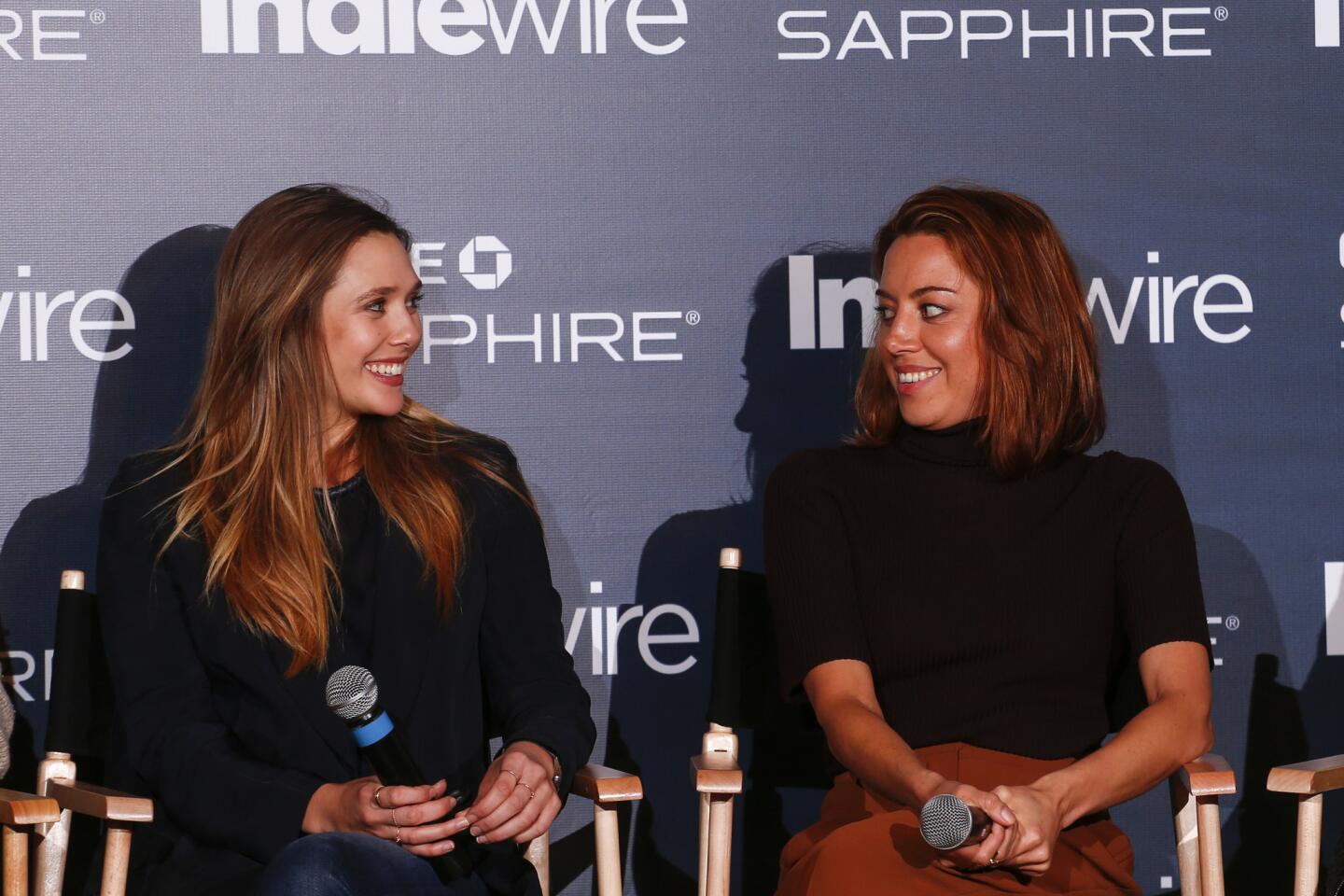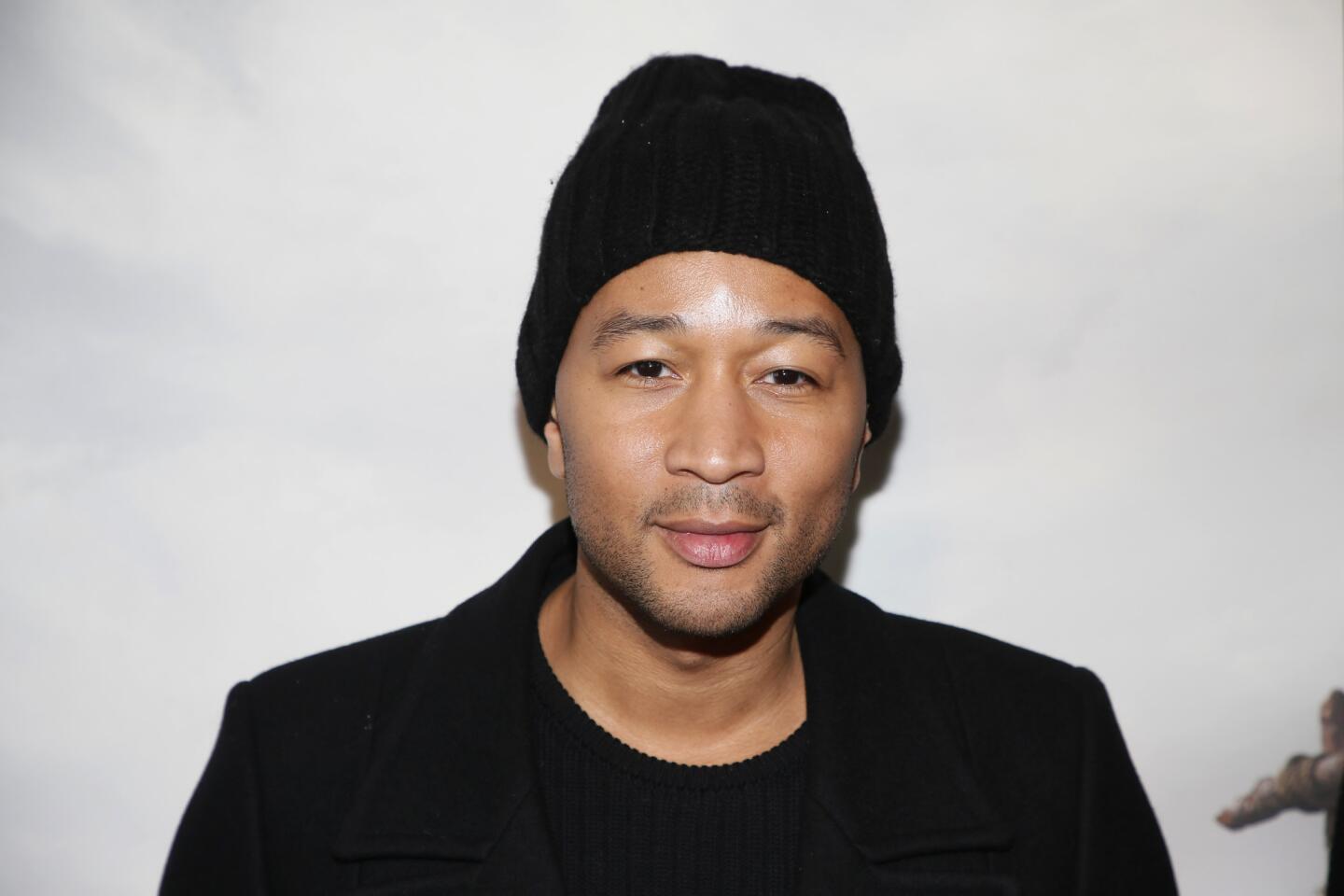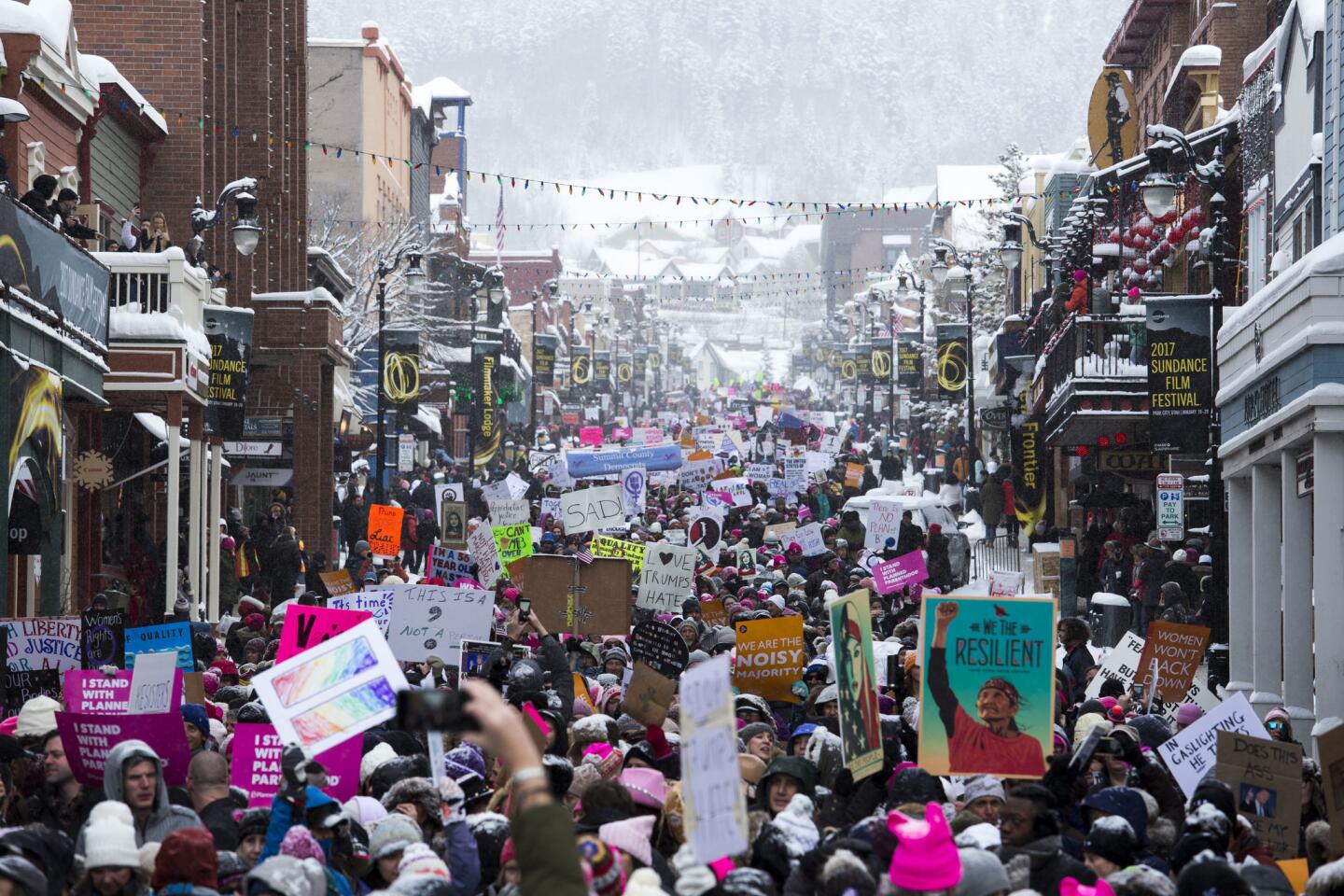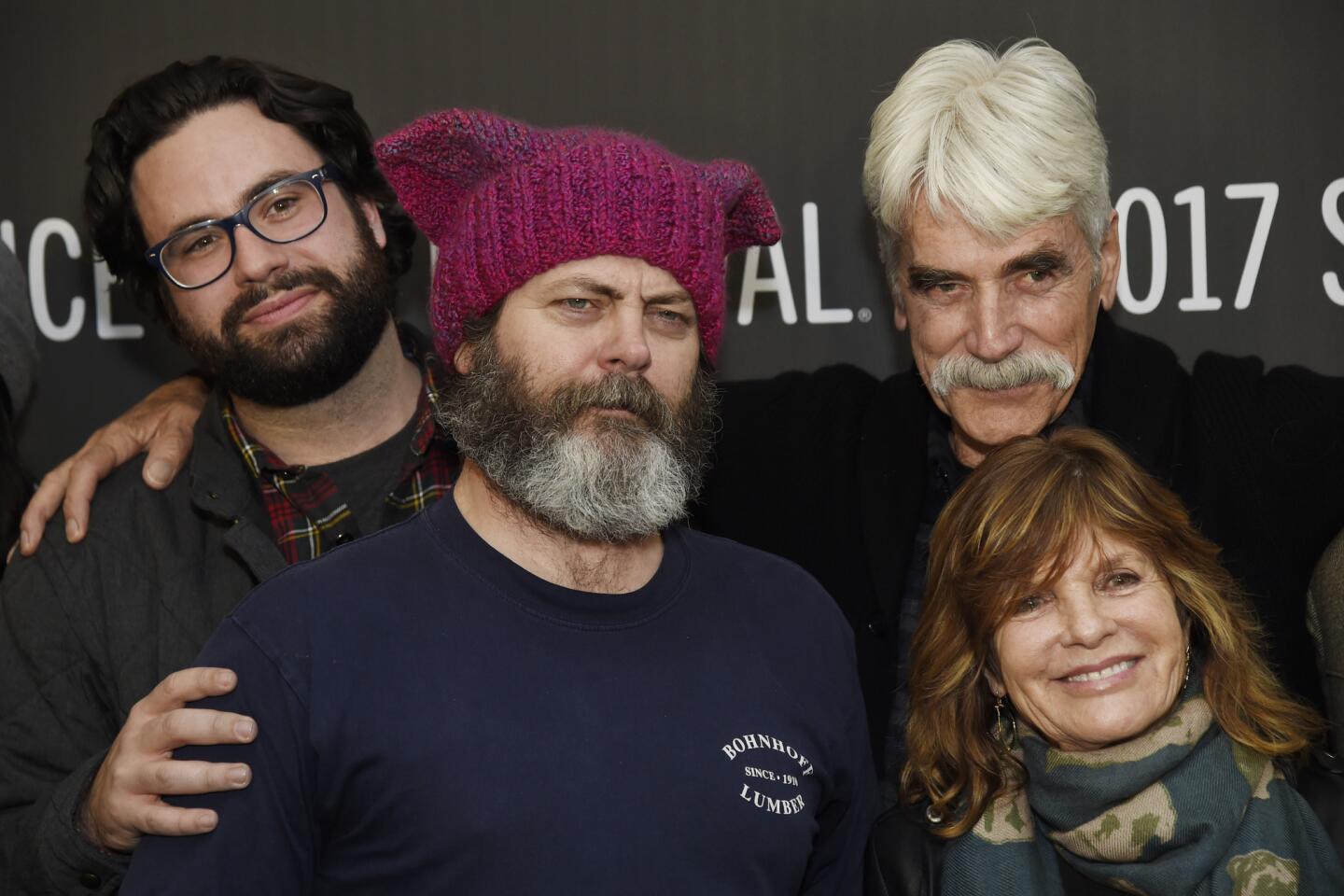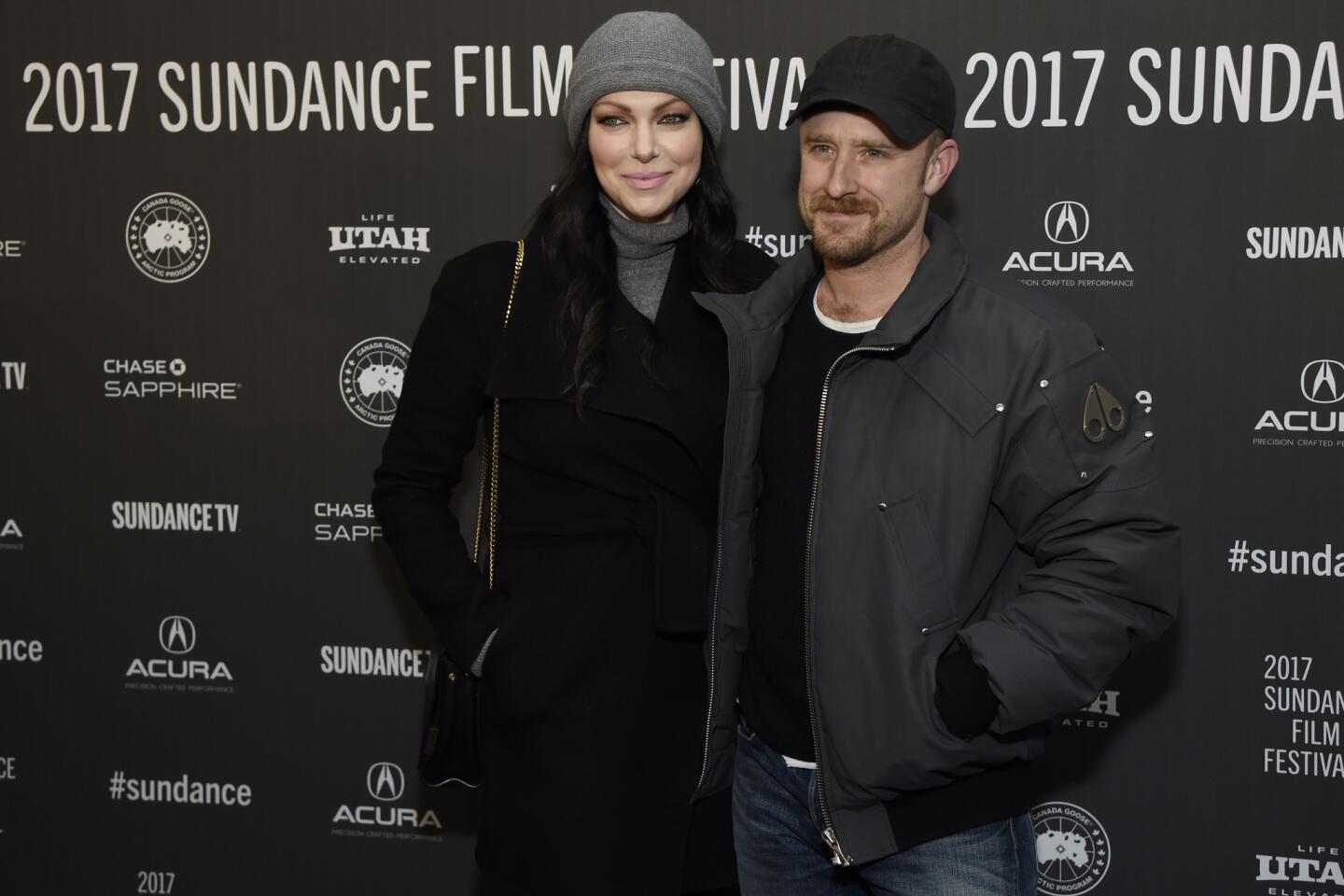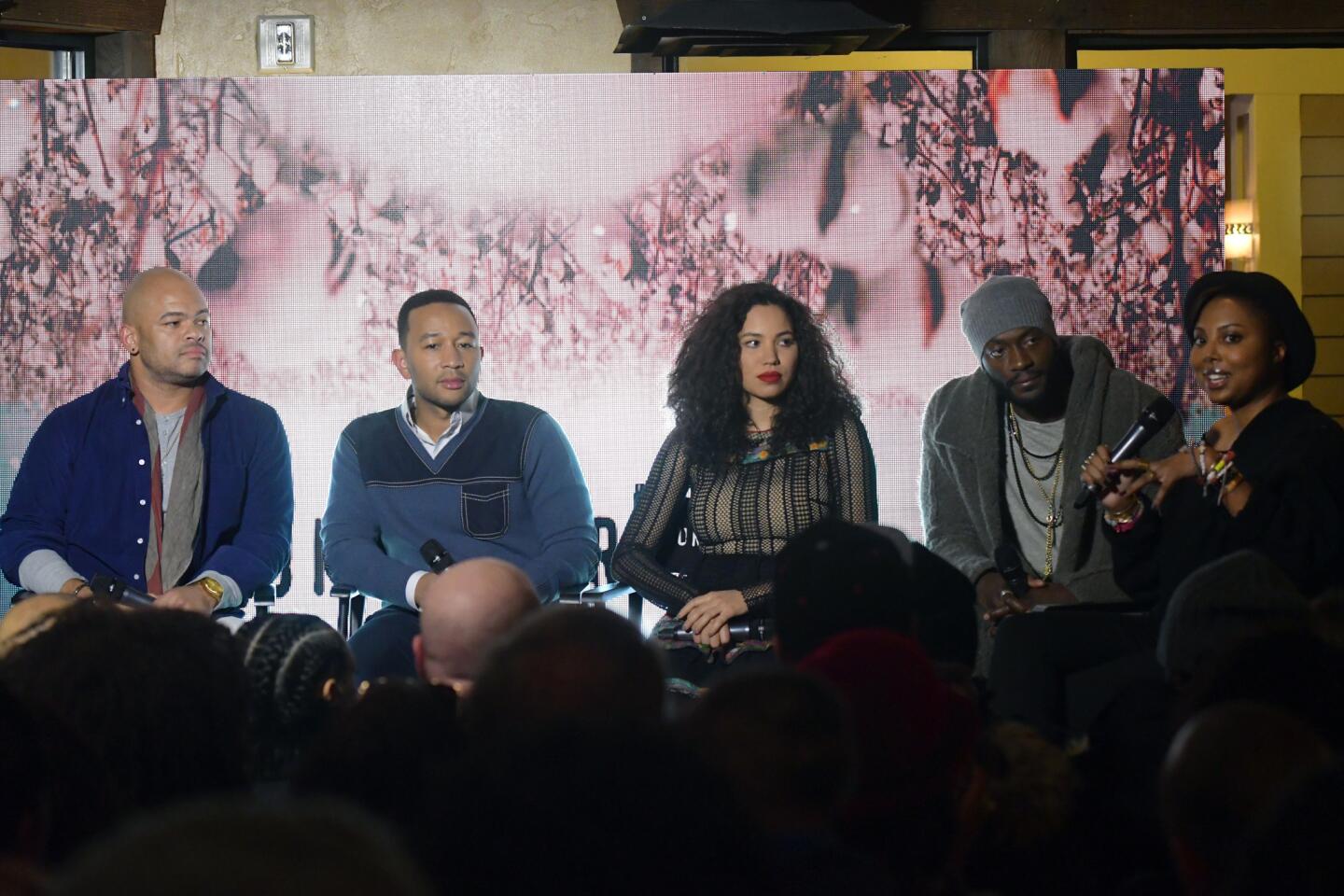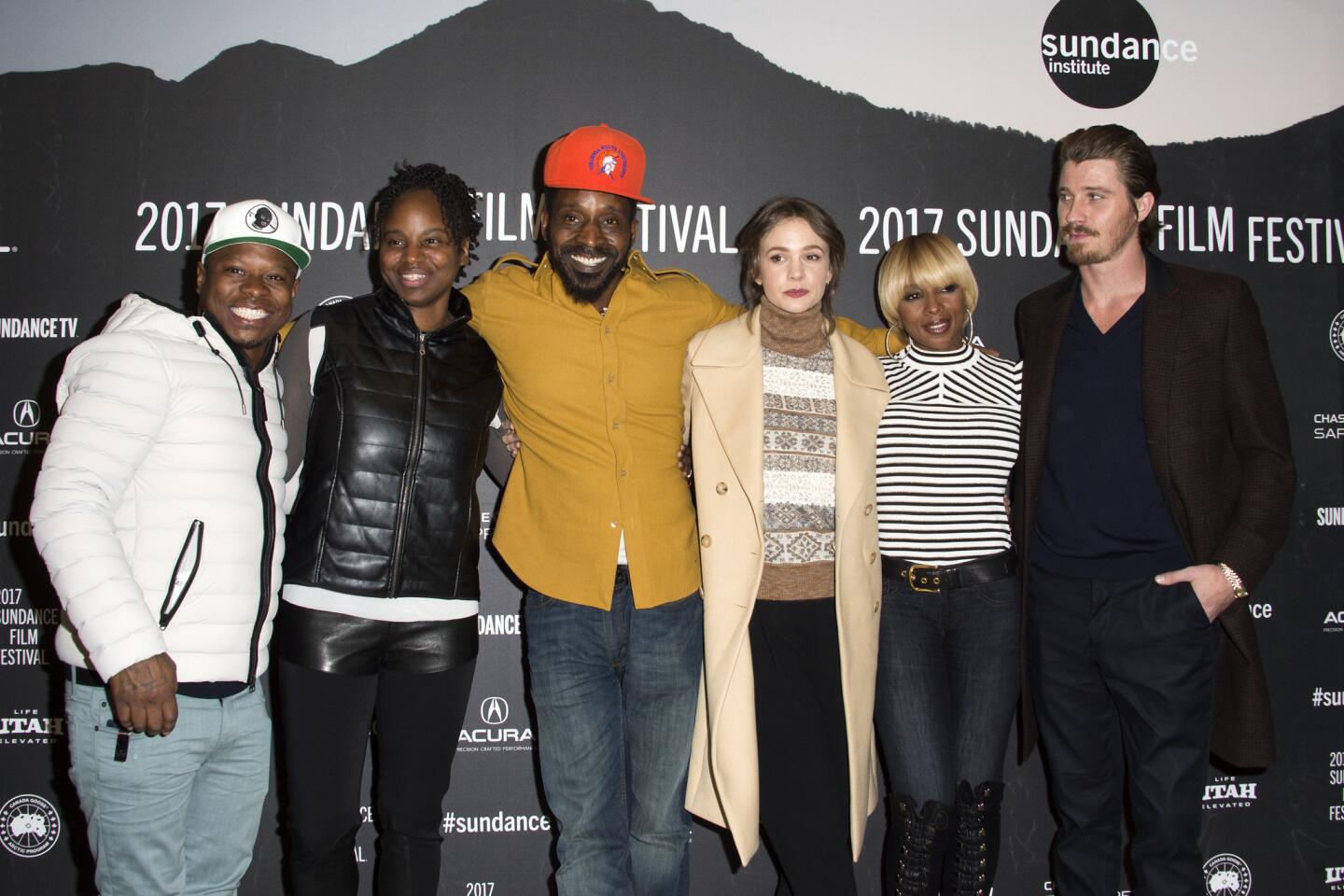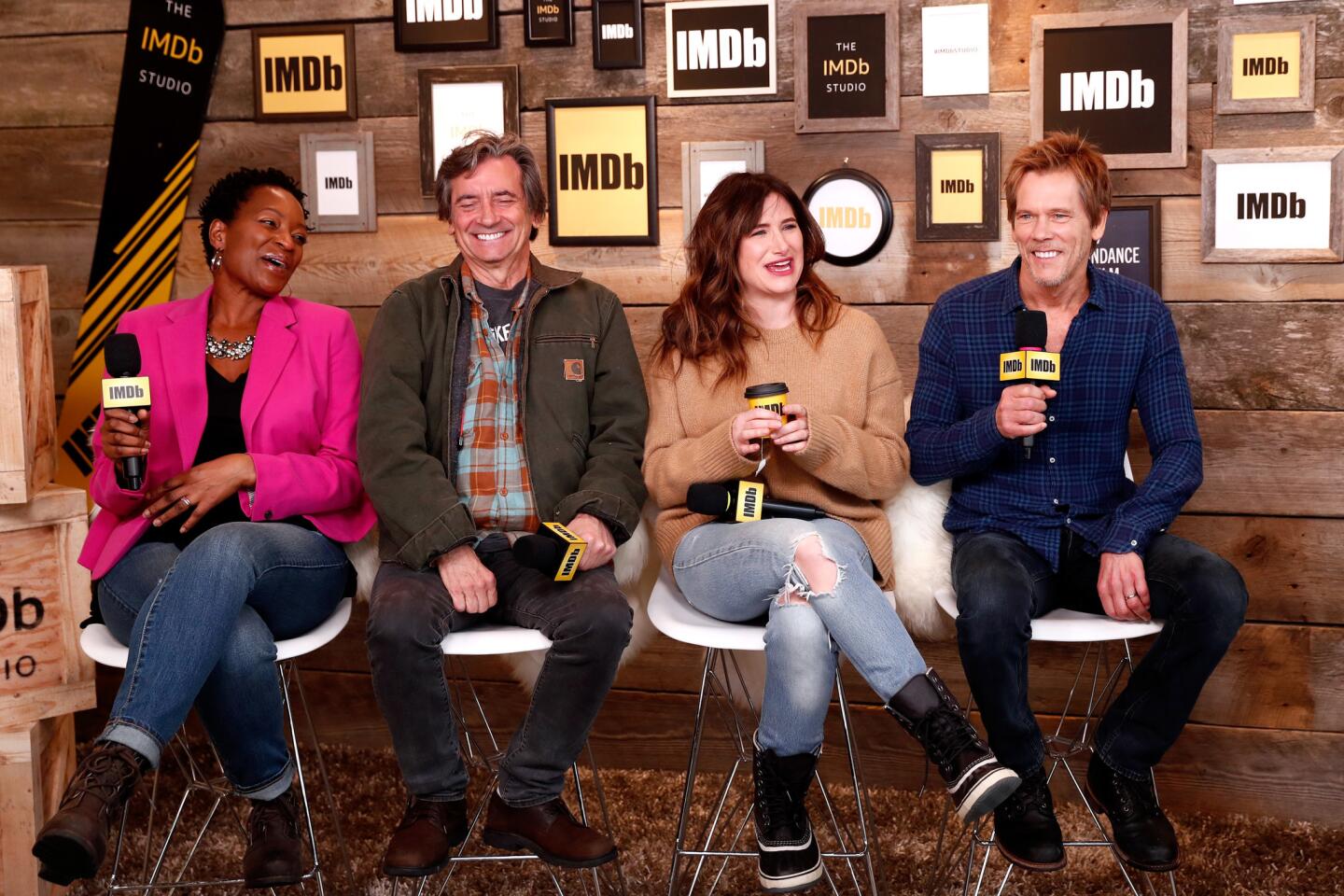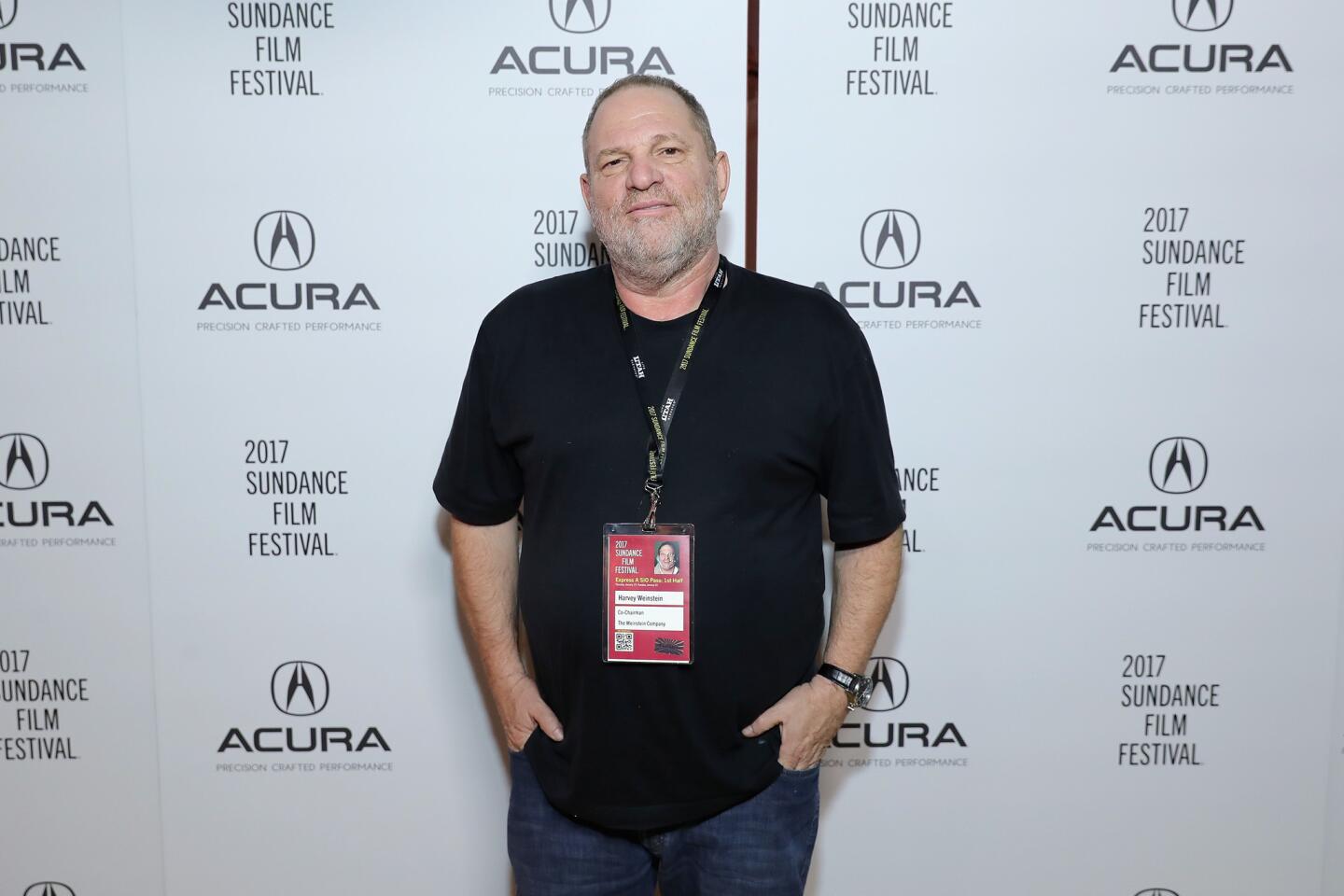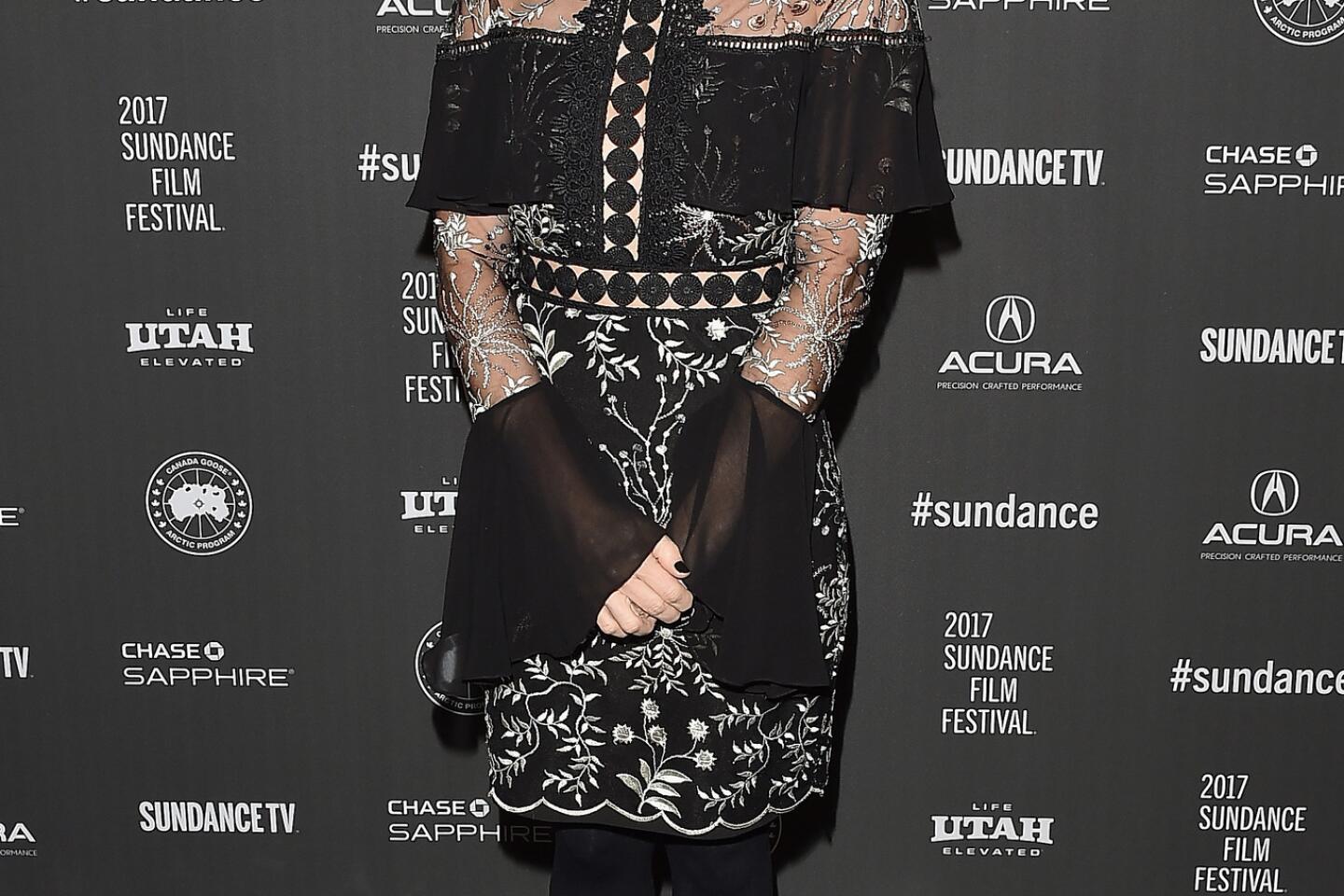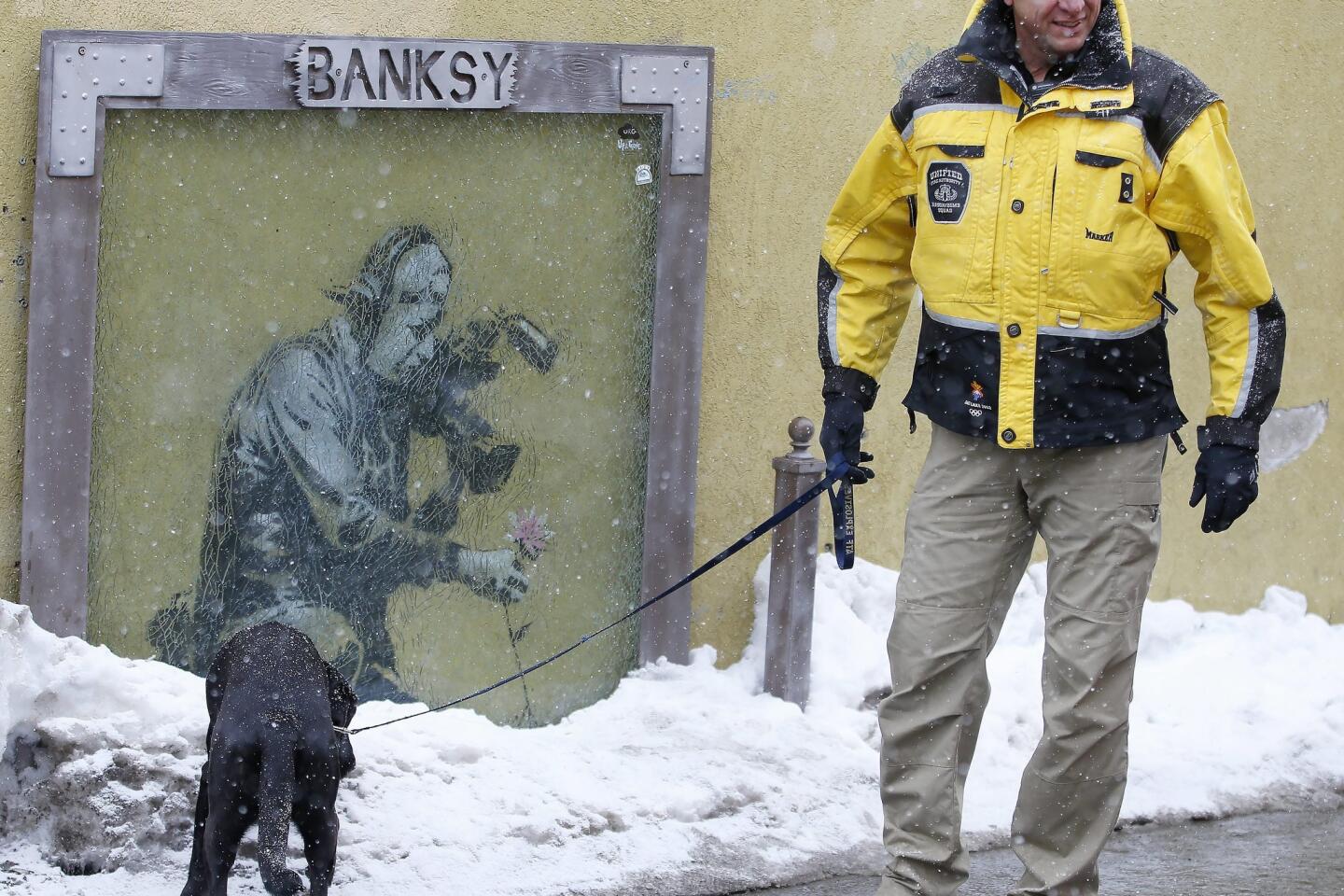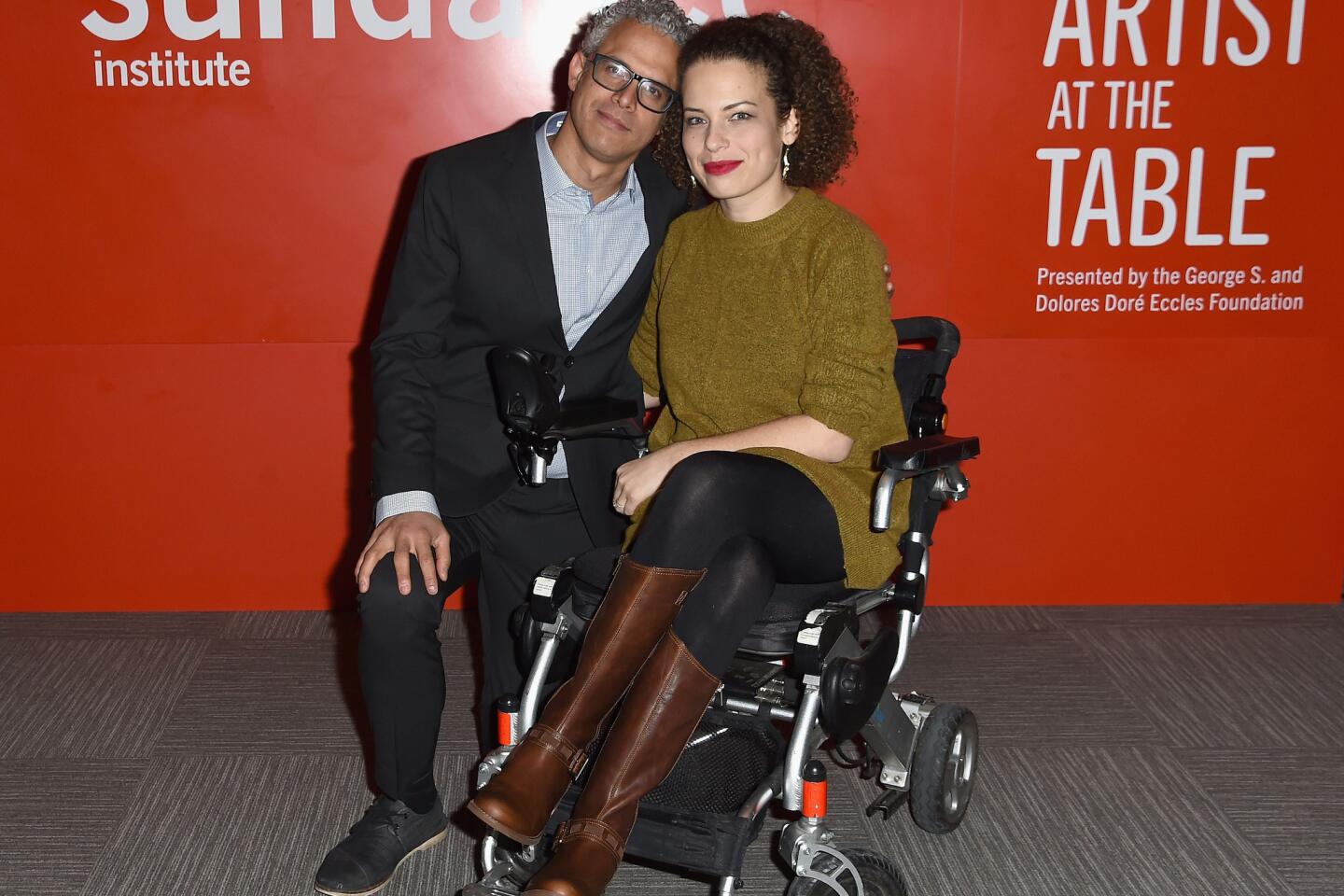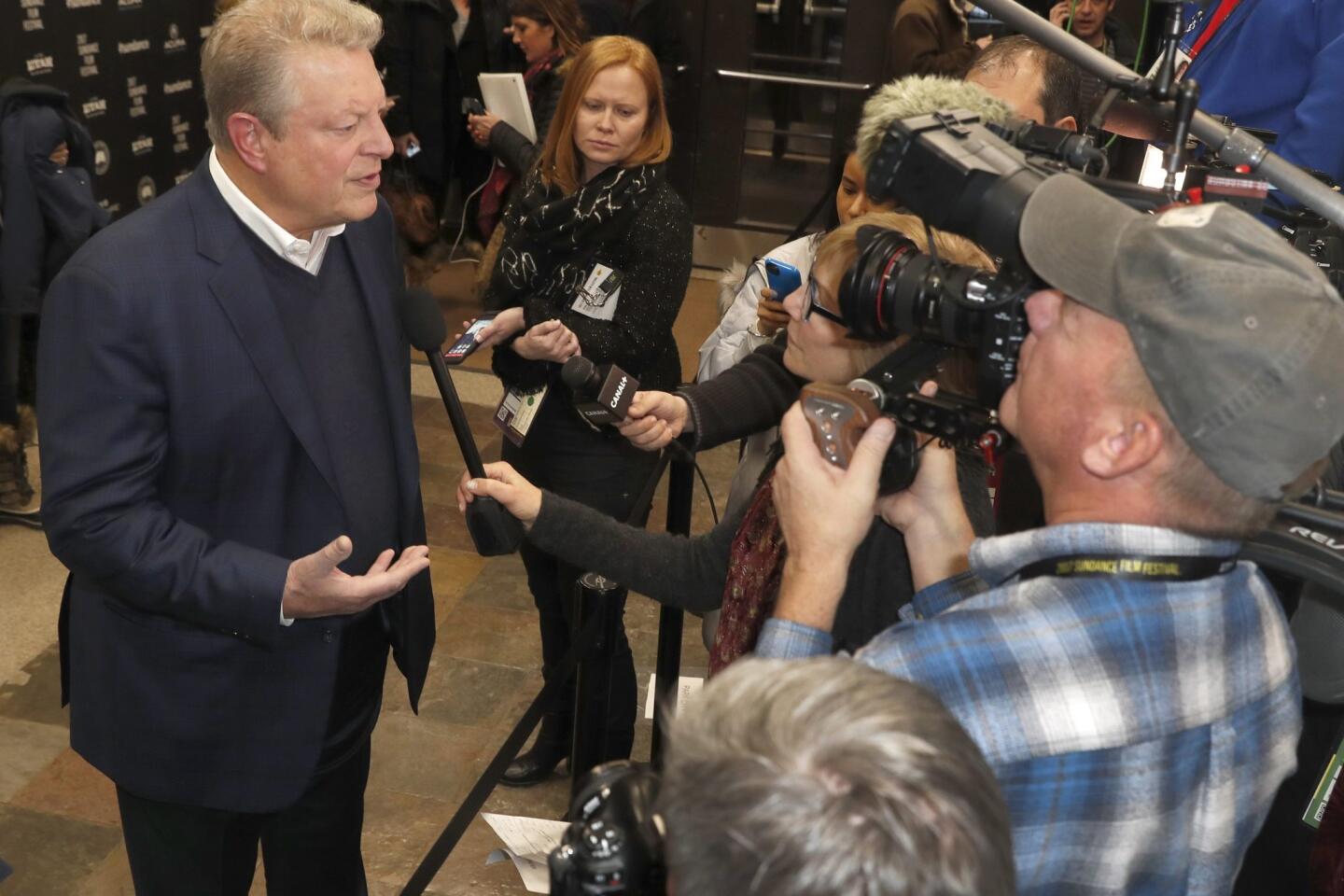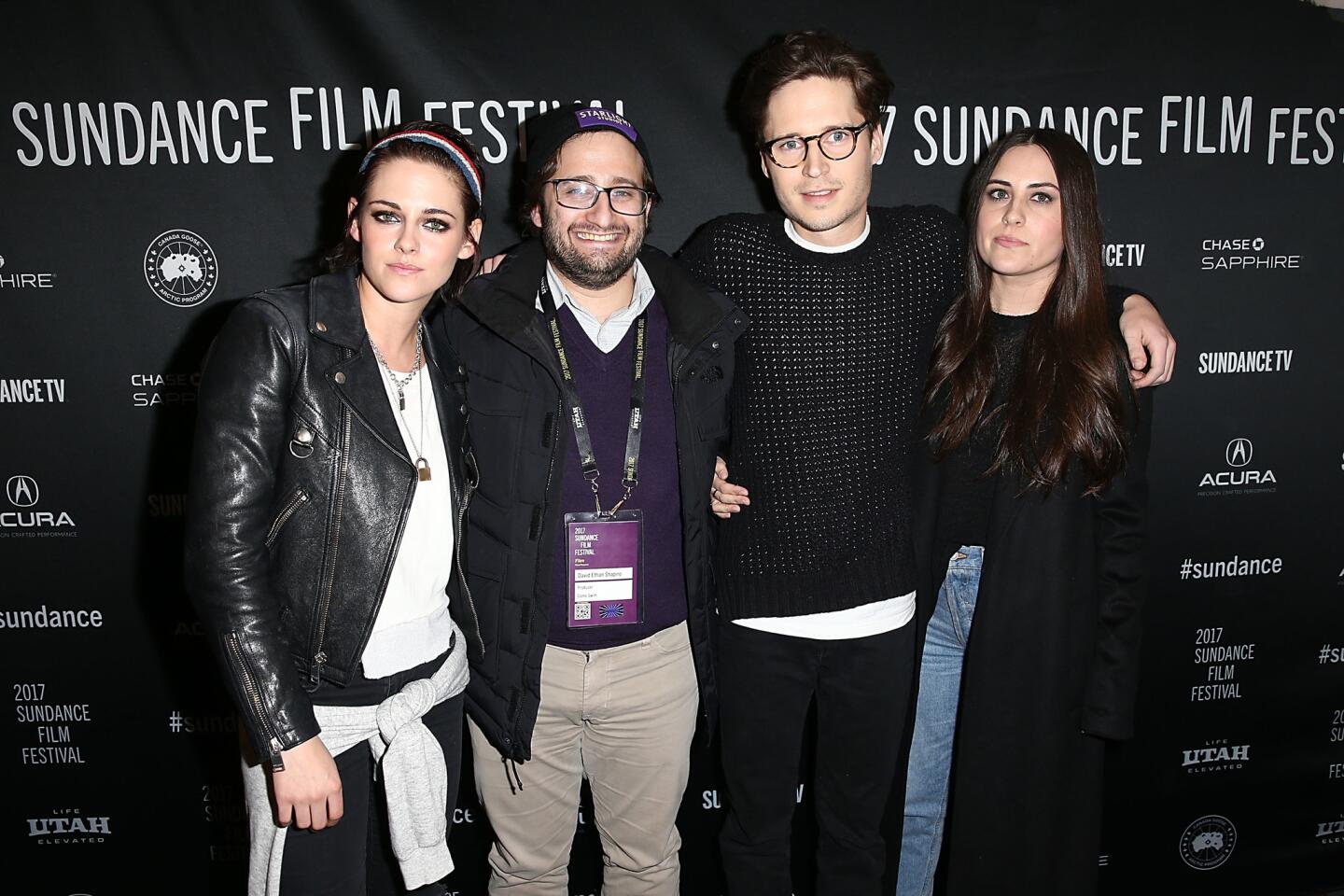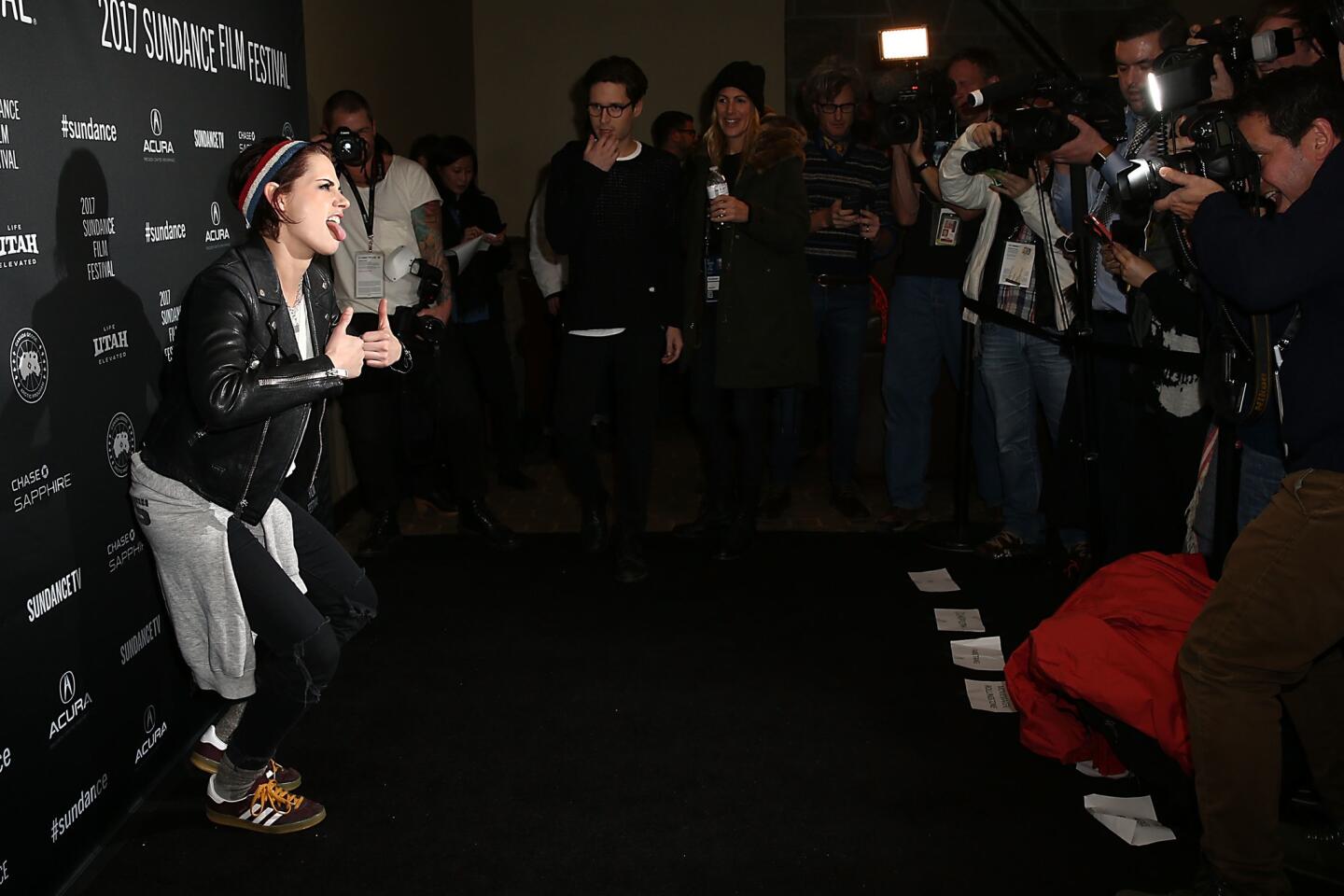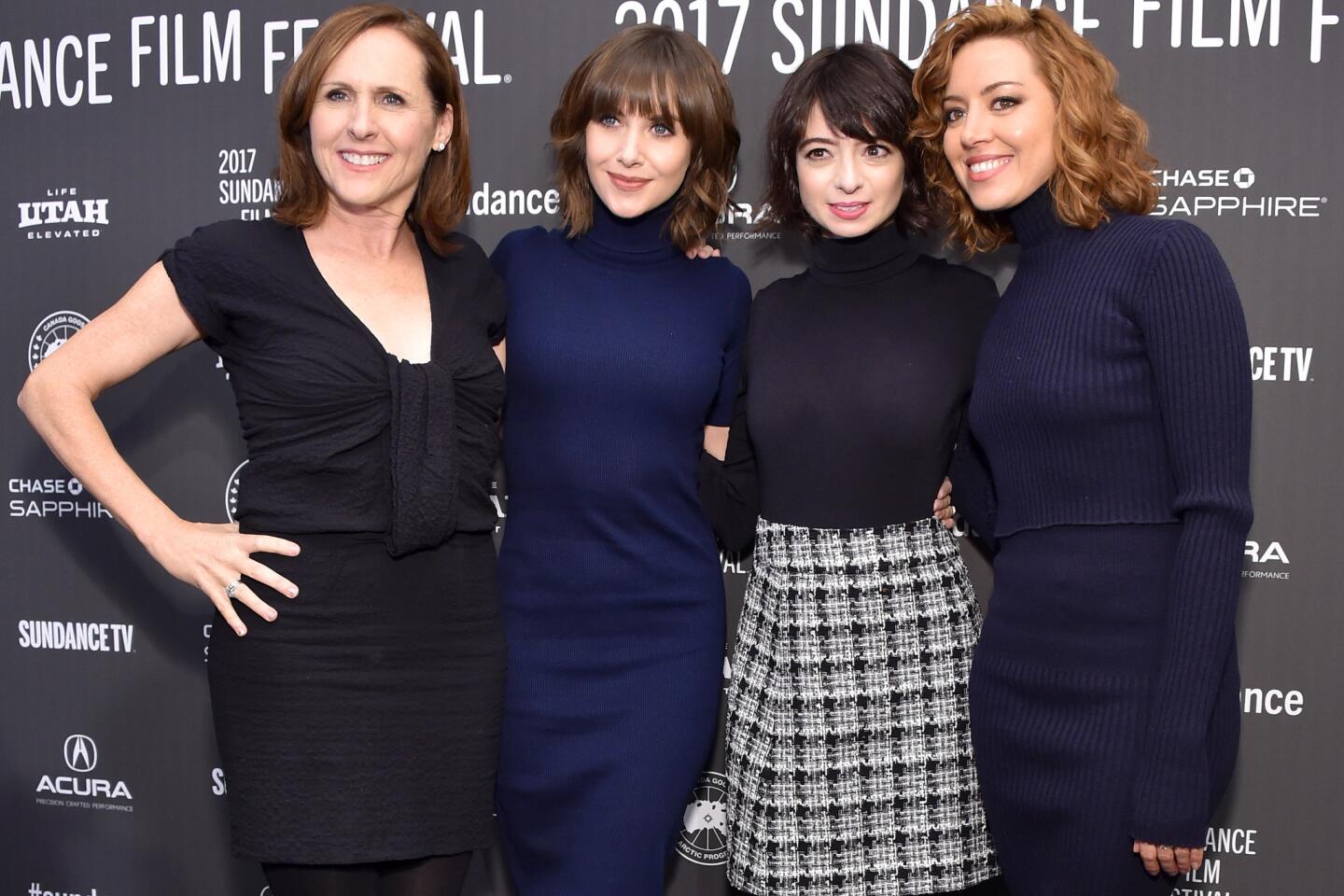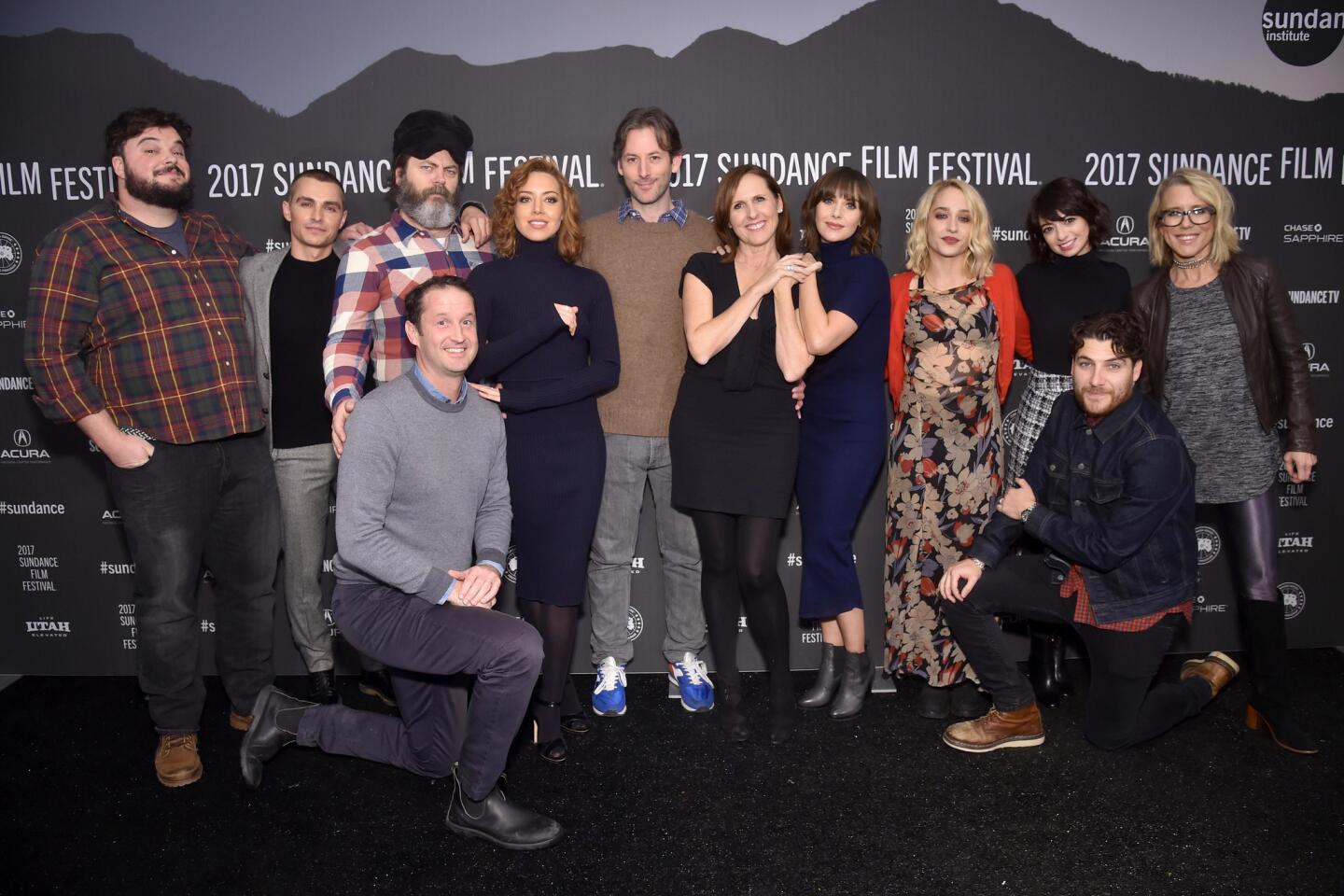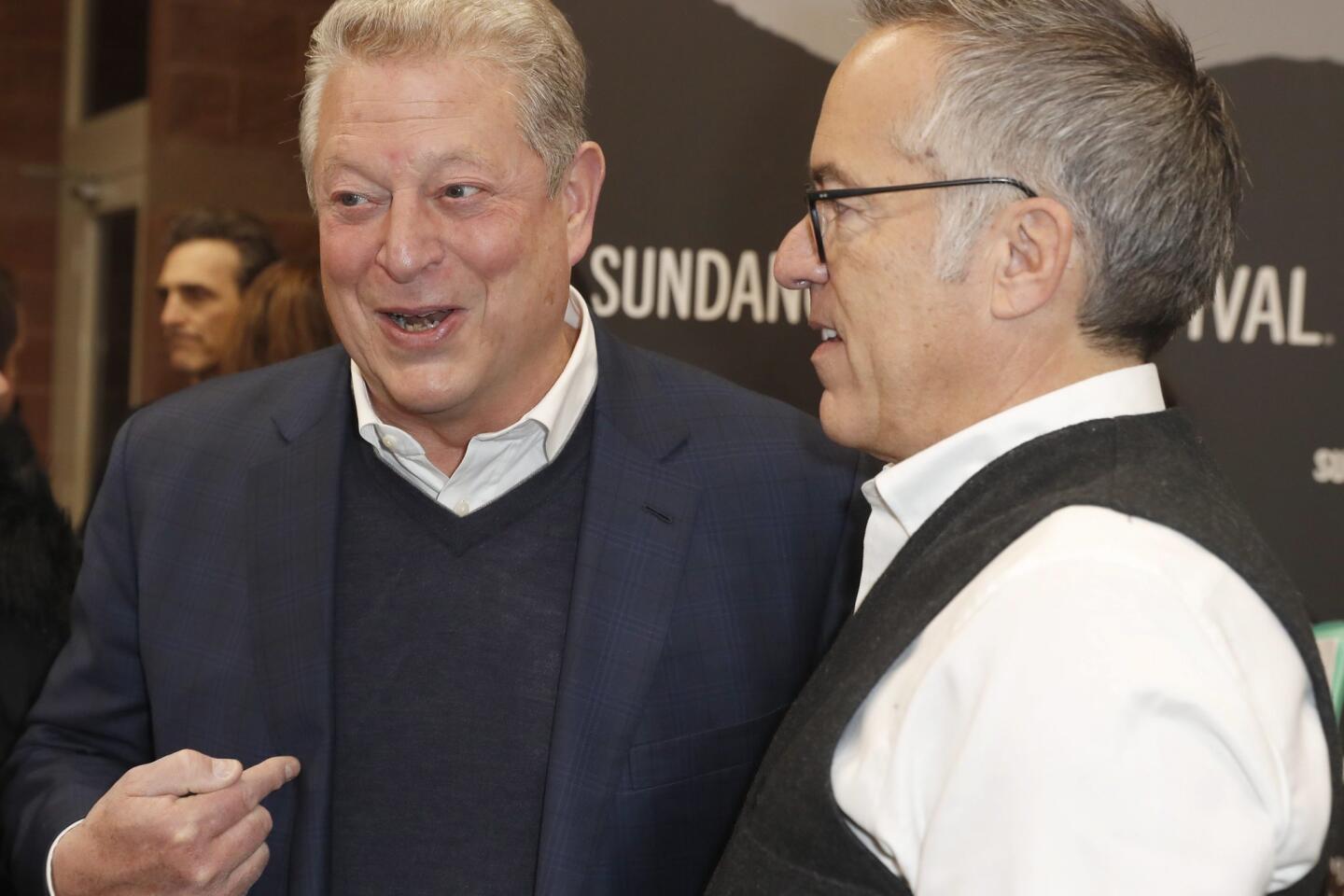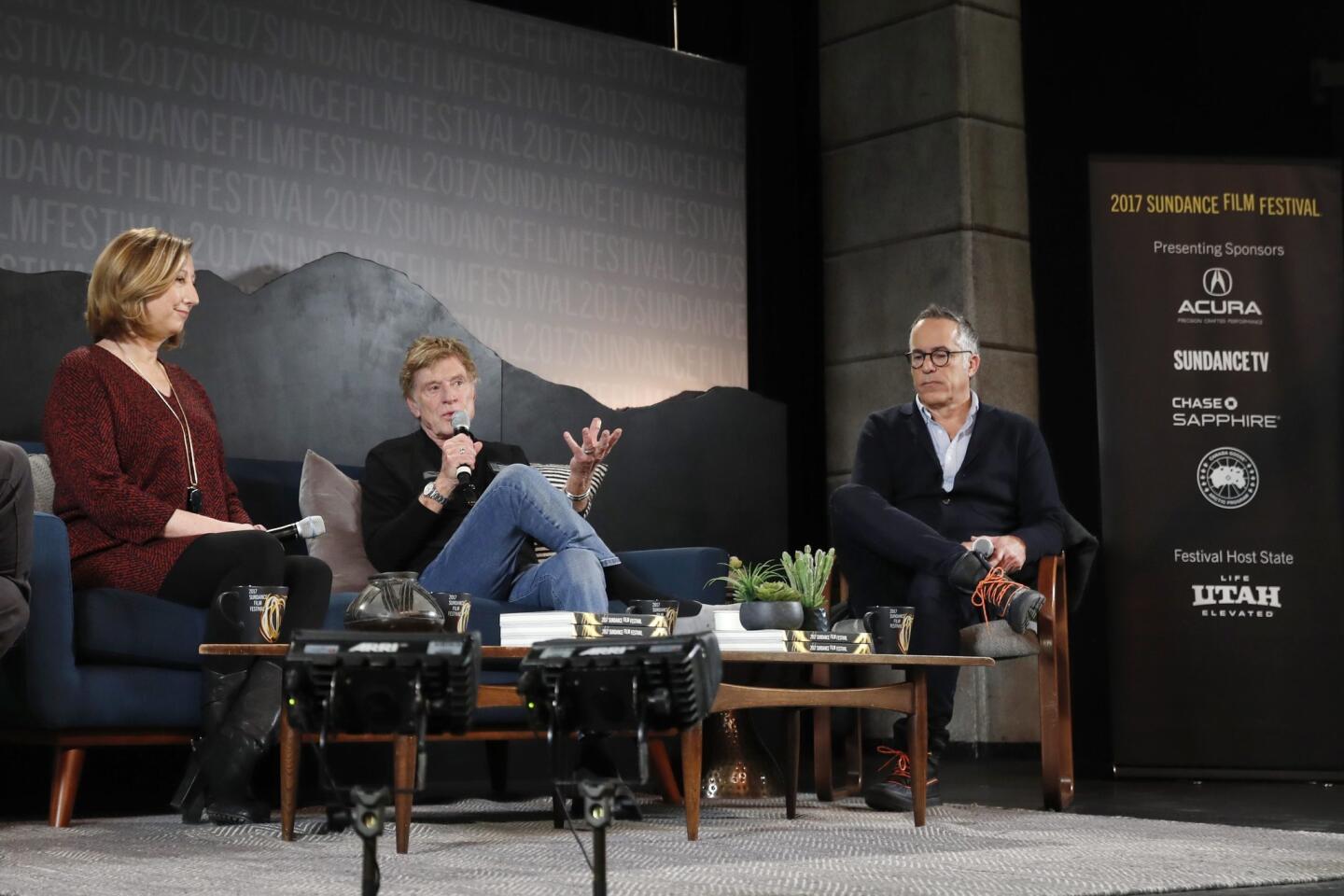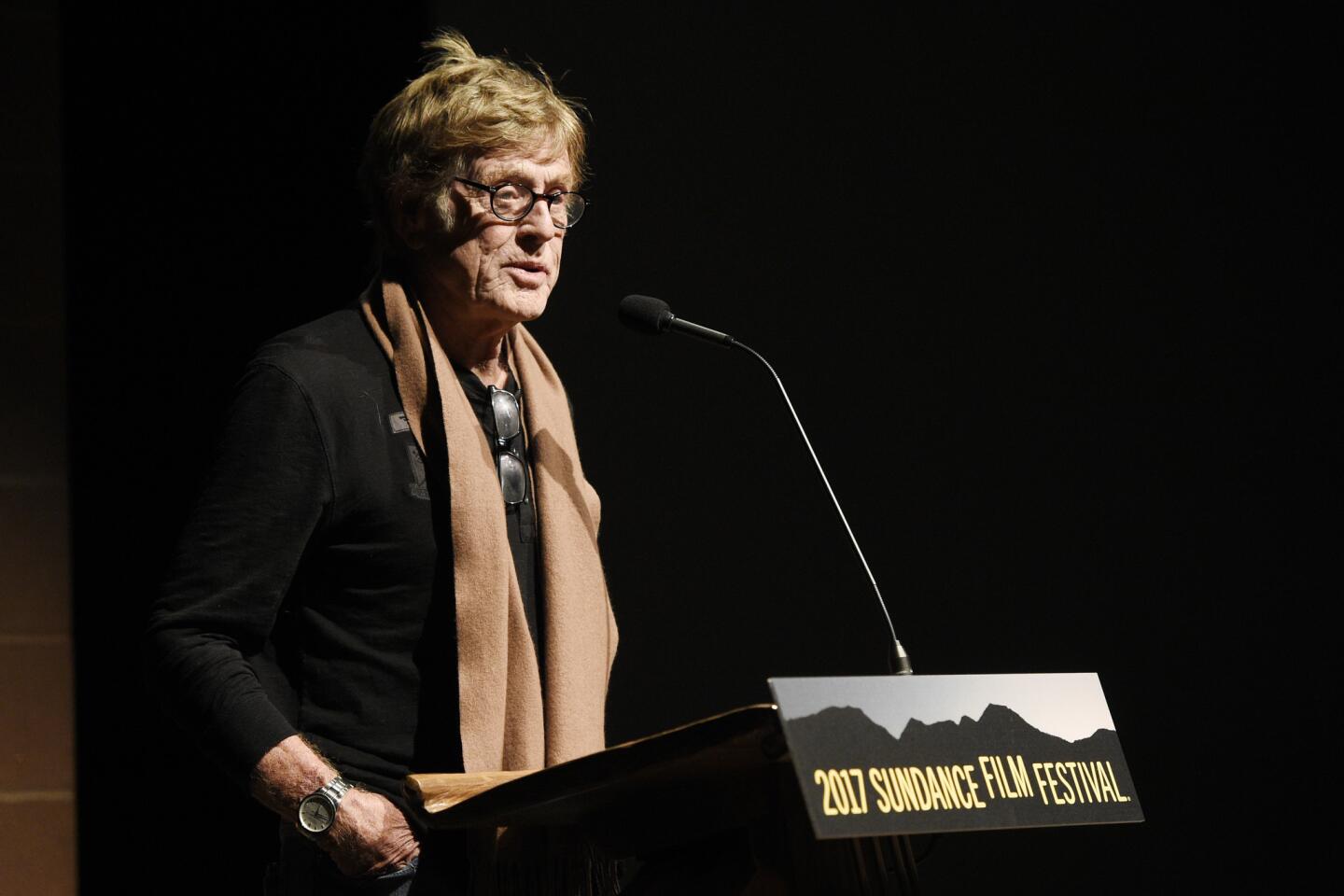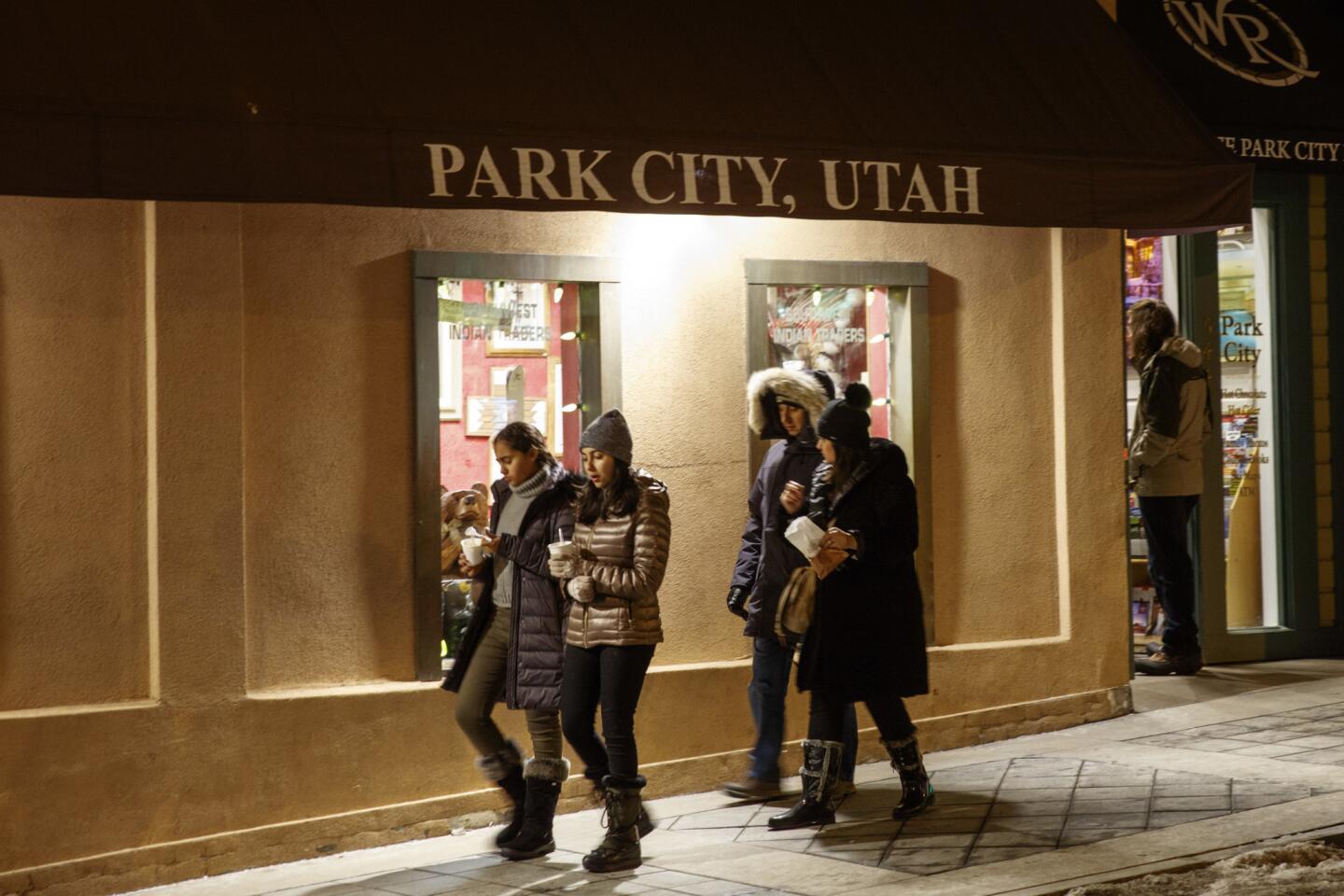Reporting from PARK CITY, Utah — A Sundance Film Festival that was colored, gripped and sometimes overshadowed by the early days of the Donald Trump administration saw a slew of feminist films win big at the gathering’s awards. Multiple female filmmakers nabbed top prizes, while a tale of a woman reasserting control over her life scored the festival’s highest honor.
Macon Blair’s “I Don’t Feel At Home In This World Anymore,” in which Melanie Lynskey plays an ordinary woman who becomes empowered as a detective-avenger after she is robbed, won the U.S. grand jury prize in the dramatic category. To its fans, the genre-tinged film, which Netflix will release next month, serves as a tonic to the perceived anti-female policies of the Trump administration.
And Eliza Hittman’s gay-oriented coming-of-age story “Beach Rats” won the directing award for the U.S. dramatic section — ensuring that a gathering that began with a march down this city’s Main Street championing feminist values closed out with the same motif.
“There’s nothing more taboo in this country than a woman with ambition,” Hittman said in her acceptance speech. “I’m going to work my way through a system that’s completely discriminatory toward women. Hollywood, I’m coming for you,” she finished to loud cheers.
Hittman joined “Step’s” Amanda Lipitz, “Winnie’s” Pascale Lamche and “Novitiate’s” Maggie Betts as female filmmakers receiving top honors Saturday night, among others.
Meanwhile, a pair of issue-oriented movies took the top two audience prizes in U.S. sections. Matt Ruskin’s tale of wrongful imprisonment, “Crown Heights,” about a real-life Trinidadian immigrant who fought for 20 years to exonerate his friend, took the audience award in the U.S. dramatic section, while “Chasing Coral,” Jeff Orlowski’s environmentally oriented story about a disappearing natural resource, won for documentary.
“Can we have a shout-out to science?” Orlowski said, accepting the prize, adding, “Climate change and science shouldn’t be political.”
Meanwhile in U.S. documentary, “Dina,” Dan Sickles’ and Antonio Santini’s unconventional love story, won the grand jury prize. Joe Piscatella’s “Joshua: Teenager vs. Superpower,” about a teenage dissident in Hong Kong, won the audience award in world documentary.
Sundance awards can bestow a kind of pixie dust on films; three years ago, “Whiplash” won both U.S. jury and audience awards and went on to break out in the awards season that followed.
But currency in Utah doesn’t always translate outside the festival bubble. Last year’s double winner “The Birth of a Nation” and 2015’s twofer title-holder “Me and Earl and the Dying Girl” both sputtered, for different reasons, when released commercially. This marked the first time in five years that jury and audience prizes did not go to the same film in the U.S. dramatic category.
President Trump’s executive order banning many visitors from some Muslim-heavy countries also came up repeatedly at the ceremony Saturday night, held at an event space about five miles away from the festival’s hub.
These girls show nothing is impossible when you surround yourself with a group of powerful women.
— Amanda Lipitz, director of “Step”
At the podium, Sundance Institute chief Keri Putnam saluted the “artists and subjects from Muslim-majority countries who joined us at this year’s festival.”
She continued, to a standing ovation, “Closing our borders to these and other international artists will stop the flow of ideas and inspiration that are so vital to the global community. We stand with you and we stand with all people risking their lives for our values or seeking refuge from persecution.”
Winners also invoked the issue. The world documentary grand jury prize went to Firas Fayyad and Steen Johannessen’s Syria-themed “Last Men in Aleppo”; the former made a plea to people in the U.S. to help fight for the rights of Syrians, noting a need for “freedom and justice.”
Later, the grand jury prize for world cinema dramatic went to the Egypt-set “The Nile Hilton Incident,” a detective story set against the backdrop of the Arab Spring from director Tarik Saleh — who told a story about a security agent at Los Angeles International Airport who allowed him to board the plane to Sundance despite the director forgetting his passport at a hotel.
“It wasn’t the majority that voted for [Trump],” Saleh said. “I just want to say that.”
Meanwhile, accepting a cinematographer prize for his documentary about a textile factory in India, “Machines” director Rahul Jain noted, “The smell at the detention center at the airport. It’s not fun. You feel like a rat. You feel like you smell for something you didn’t do. Now many people are going to have to smell the smell of fear,” he added.
Throughout much of the night, statements about the Muslim ban shared the spotlight with feminist issues.
“Step,” Lipitz’s documentary examination of the senior class at an all-girls charter school in an African American section of Baltimore, won a special jury prize for inspirational filmmaking.
“Being a young woman today isn’t easy,” Lipitz said. “These girls show nothing is impossible when you surround yourself with a group of powerful women. So let’s keep doing that.”
Earlier, accepting the world documentary prize for director, “Winnie” helmer Lamche noted that “for those who know, history is not made by great men.” A story of unheralded women of a different sort is told in the period convent drama “Novitiate,” for which Betts won a special prize for breakthrough director in U.S. dramatic.
And the comedic performer Jessica Williams, who hosted the ceremony, paired Trump and feminism when she quipped, “The audience award — when you think about the election, that’s sort of the award that Hillary Clinton won.”
“Gook,” Justin Chon’s story set against the backdrop of the 1992 L.A. riots, won the Next audience prize; he accepted by embracing concrete action on diversity. “To me a lot of times it’s been just talk,” he said. “The most effective way I can make a difference is to create.”
As many directors offered political statements, festival director John Cooper suggested a lesson for beyond the fest.
”Let’s take this into the future as we head off the mountain,” he said. “Our strength is in our number and our power is in our ideas.”
But the most stirring speech of the night came from Yance Ford, director of the criminal justice documentary “Strong Island,” which won a special jury prize for storytelling in U.S. documentary.
Ford, whose movie examines the killing of his brother and the injustice that followed, cited Elie Wiesel’s line that “neutrality helps the oppressor, never the victim,” then said:
“That moment is now. When we leave this place we must interfere, disrupt, document and prevent our nation from folding in upon itself,” he told the film community, both inside the room and outside of it. “Summon your courage. Gather your cameras.”
Here is the complete list of winners:
U.S. Dramatic Competition
Grand Jury Prize: “I Don’t Feel At Home In This World Anymore.”
Audience Award: “Crown Heights”
Directing: Eliza Hittman, “Beach Rats”
Waldo Salt Screenwriting Award: Matt Spicer and David Branson Smith, “Ingrid Goes West”
Special Jury Award for Breakthrough Performance: Chanté Adams, “Roxanne Roxanne”
Special Jury Award for Breakthrough Director: Maggie Betts, “Novitiate”
Special Jury Award for Cinematography: Daniel Landin, “Yellow Birds”
U.S. Documentary Competition
Grand Jury Prize: “Dina”
Directing: Peter Nicks, “The Force”
Orwell Award: “Icarus”
Audience Award: “Chasing Coral”
Special Jury Award for Editing: Kim Roberts and Emiliano Battista, “Unrest”
Special Jury Award for Storytelling: Yance Ford, “Strong Island”
Special Jury Award for Inspirational Filmmaking: Amanda Lipitz, “Step”
World Cinema Dramatic Competition
Grand Jury Prize: “The Nile Hilton Incident”
Audience Award: “I Dream in Another Language”
Directing Award: Francis Lee, “God’s Own Country”
Screenwriting: Kirsten Tan, “Pop Aye”
Special Jury Award for Cinematic Visions: Jun Geng, “Free and Easy”
Special Jury Award for Cinematography: Manu Dacosse, “Axolotl Overkill”
World Cinema Documentary Competition
Grand Jury Prize: “Last Men in Aleppo”
Audience Award: “Joshua: Teenager vs. Superpower”
Directing Award: Pascale Lamche, “Winnie”
Special Jury Award for Masterful Storytelling: Catherine Bainbridge, Alfonso Maiorana, “Rumble: The Indians Who Rocked the World”
Special Jury Award for Editing: Ramona S. Diaz, “Motherland”
Special Jury Award for Cinematography: Rodrigo Trejo Villanueva, “Machines”
Other Awards
Next Audience Award: “Gook”
Alfred P. Sloan Feature Film Prize: “Marjorie Prime”
1/193
John Lithgow and Salma Hayek from the film “Beatriz at Dinner.”
(Jay L. Clendenin / Los Angeles Times) 2/193
Director and actress Michelle Morgan from the film “L.A. Times.”
(Jay L. Clendenin / Los Angeles Times) 3/193
Director Dan Sickles, left, director Antonio Santini and director of photography Adam Uhl from the film “Dina.”
(Jay L. Clendenin / Los Angeles Times) 4/193
Director of photography Adam Uhl from the film “Dina.”
(Jay L. Clendenin / Los Angeles Times) 5/193
Director Danny Strong, left, actor Nicholas Hoult and actress Zoey Deutch from the film “Rebel in the Rye.”
(Jay L. Clendenin / Los Angeles Times) 6/193
Actress Lois Smith from the film “Marjorie Prime.”
(Jay L. Clendenin / Los Angeles Times) 7/193
Actor Jon Hamm from the film “Marjorie Prime.” (Jay L. Clendenin / Los Angeles Times)
8/193
Actor Mark Hamill from the film “Brigsby Bear.”
(Jay L. Clendenin / Los Angeles Times) 9/193
Actor Nick Offerman from the film “The Hero.”
(Jay L. Clendenin / Los Angeles Times) 10/193
Director Jovanka Vuckovic from the film, “XX.”
(Jay L. Clendenin / Los Angeles Times) 11/193
Actress India Menuez from the Amazon series “I Love Dick.” (Jay L. Clendenin / Los Angeles Times)
12/193
Actress Laura Prepon from the film “The Hero.”
(Jay L. Clendenin / Los Angeles Times) 13/193
Actor Sam Elliott from the film “The Hero.”
(Jay L. Clendenin / Los Angeles Times) 14/193
Director Annie Clark (also known as the musician, St. Vincent) from the film “XX.”
(Jay L. Clendenin / Los Angeles Times) 15/193
Director Joshua Z. Weinstein, left, and Menashe Lustig from “Menashe” at the Sundance Film Festial in Park City, Utah, on Jan. 23.
(Jay L. Clendenin / Los Angeles Times) 16/193
Actress Zoe Chao, left, co-director Celia Rowlson-Hall, co-director Mia Lidofsky and actress Meredith Hagne from the television movie “Strangers.”
(Jay L. Clendenin / Los Angeles Times) 17/193
Actor Martin Donovan, left, actress Julia Ordmond, director Mark Palansky and actor Peter Dinklage from the film “Rememory.”
(Jay L. Clendenin / Los Angeles Times) 18/193
Actress Madeline Weinstein from the film “Beach Rats.”
(Jay L. Clendenin / Los Angeles Times) 19/193
Ryan Horrigan, left, Paul Raphael, Felix Jajeunesse and Sebastian Sylvan from the film “Miyubi.”
(Jay L. Clendenin / Los Angeles Times) 20/193
Actor Harris Dickinson from the film “Beach Rats.”
(Jay L. Clendenin / Los Angeles Times) 21/193
Director Eliza Hittman from “Beach Rats.”
(Jay L. Clendenin / Los Angeles Times) 22/193
Actresses Nefessa Williams, left, Adriyan Rae, Steve Harris, Seryah and Imani Hakim from the film “Burning Sands.”
(Jay L. Clendenin / Los Angeles Times) 23/193
Actor Jon Daly, left, director Janicza Bravo, actress Judy Greer, actress Shiri Appelby and actor Brett Gelman of “Lemon.”
(Jay L. Clendenin / Los Angeles Times) 24/193
Director Julia Ducournau from the film “Raw.” (Jay L. Clendenin / Los Angeles Times)
25/193
Actress Anya Taylor-Joy, director Cory Finley and actress Olivia Cooke from the film “Thoroughbred.”
(Jay L. Clendenin / Los Angeles Times) 26/193
Director Matt Heineman, second from right, and citizen journalists Mohamad Almusari, left, Hamoud Almousa and Abdalaziz from the documentary film “City of Ghosts.”
(Jay L. Clendenin / Los Angeles Times) 27/193
Subjects Raj Majethia and Victoria Harrelson from the documentary film “The Mars Generation.”
(Jay L. Clendenin / Los Angeles Times) 28/193
Subject Raj Majethia, left, director Michael Barnett and subject Victoria Harrelson from the documentary film “The Mars Generation.”
(Jay L. Clendenin / Los Angeles Times) 29/193
Actor Adam Horowitz, left, actress Emily Browning, director Alex Ross Perry and actress Analeigh Tipton from the film “Golden Exits.”
(Jay L. Clendenin / Los Angeles Times) 30/193
Director Wally Wolodarsky, left, actor Jack Black, actress Jenny Slate, director Maya Forbes, actress Jacki Weaver and actor Willie Garson from the film “The Polka King.”
(Jay L. Clendenin / Los Angeles Times) 31/193
Director Rory Kennedy and surfer Laird Hamilton, from the documentary film “Take Every Wave: The Life of Laird Hamilton.”
(Jay L. Clendenin / Los Angeles Times) 32/193
Actress Julia Jones from the film “Wind River.”
(Jay L. Clendenin / Los Angeles Times) 33/193
Actress Kelsy Asbille from the film “Wind River.”
(Jay L. Clendenin / Los Angeles Times) 34/193
Director Kogonada from the film “Columbus.”
(Jay L. Clendenin / Los Angeles Times) 35/193
Actor Rory Culkin, left, actor John Cho, actress Michelle Forbes, actress Haley Lu Richardson and actor Parker Posey from the film, “Columbus.”
(Jay L. Clendenin / Los Angeles Times) 36/193
Director Taylor Sheridan from the film “Wind River.”
(Jay L. Clendenin / Los Angeles Times) 37/193
Actress Gigi Gorgeous and director Barbara Kopple from the film “This Is Everything: Gigi Gorgeous.”
(Jay L. Clendenin / Los Angeles Times) 38/193
Actress Gigi Gorgeous, from “This Is Everything: Gigi Gorgeous.”
(Jay L. Clendenin / Los Angeles Times) 39/193
Executive Producer Danny Glover, left, and director Yance Ford from the documentary film “Strong Island.”
(Jay L. Clendenin / Los Angeles Times) 40/193
Actor Sam Elliott, left, actor Nick Offerman, director Brett Haley, actress Katharine Ross and actress Laura Prepon from the film “The Hero.”
(Jay L. Clendenin / Los Angeles Times) 41/193
Co-Executive Producer Sarah Gubbins, left, actor Griffin Dunne, actress India Menuez (kneeling), actress Roberta Colindrez, actor Kevin Bacon, director Jill Soloway, actress Kathryn Hahn and Lily Mojekwu from the Amazon series “I Love Dick.”
(Jay L. Clendenin / Los Angeles Times) 42/193
Actress Kathryn Hahn, actress Roberta Colindrez and director Jill Soloway from the Amazon series “I Love Dick.”
(Jay L. Clendenin / Los Angeles Times) 43/193
Actor Jason Isaacs and Crash from the film “Red Dog: True Blue.” (Jay L. Clendenin / Los Angeles Times)
44/193
Actor Sasheer Zamata, director Sydney Freeland, actress Danielle Nicolet, actor David Sullivan, actress Rachel Crow and actress Ashleigh Murray, from the film “Diedra and Laney Rob a Train.”
(Jay L. Clendenin / Los Angeles Times) 45/193
Actor Daniel Houck and director Stefan Avalos from the documentary film “Strad Style.”
(Jay L. Clendenin / Los Angeles Times) 46/193
Actor Jeremy Renner from the film “Wind River,.”
(Jay L. Clendenin / Los Angeles Times) 47/193
Director/actor Zoe Lister-Jones from the film “Band Aid.”
(Jay L. Clendenin / Los Angeles Times) 48/193
Actress Chloe Sevigny from the film “Golden Exits.”
(Jay L. Clendenin / Los Angeles Times) 49/193
Actor Jack Black from the film “The Polka King.”
(Jay L. Clendenin / Los Angeles Times) 50/193
Surfer Laird Hamilton, subject of the documentary film “Take Every Wave: The Life of Laird Hamilton.” (Jay L. Clendenin / Los Angeles Times)
51/193
Actress Julia Jones from the film “Wind River.”
(Jay L. Clendenin / Los Angeles Times) 52/193
Actress Kelsy Asbille from the film “Wind River.”
(Jay L. Clendenin / Los Angeles Times) 53/193
Actress America Ferrera from the new Web series “Gente-fied.”
(Jay L. Clendenin / Los Angeles Times) 54/193
Director Miguel Arteta from the film “Beatriz at Dinner.”
(Jay L. Clendenin / Los Angeles Times) 55/193
Actress Connie Britton from the film “Beatriz at Dinner.”
(Jay L. Clendenin / Los Angeles Times) 56/193
Actress Salma Hayek from the film “Beatriz at Dinner.”
(Jay L. Clendenin / Los Angeles Times) 57/193
Actor Jay Duplass jumps behind writer-director Gillian Robespierre, actress Jenny Slate, actress Edie Falco and actress Abby Quinn from the film “Landline.”
(Jay L. Clendenin / Los Angeles Times) 58/193
Actor Blake Jenner, actor Logan Lerman, actress Elle Fanning and actress Michelle Monaghan from the film “Sidney Hall.”
(Jay L. Clendenin / Los Angeles Times) 59/193
Actress Natalie Paul, left, actor Lakeith Stanfield, screenwriter Matt Ruskin and actor-producer Nnamdi Asomugha, from the film “Crown Heights.”
(Jay L. Clendenin / Los Angeles Times) 60/193
Actress Judy Greer, left, actor Woody Harrelson and actress Laura Dein, from the film “Wilson.”
(Jay L. Clendenin / Los Angeles Times) 61/193
Actress Isabella Amara, from the film “Wilson.” (Jay L. Clendenin / Los Angeles Times)
62/193
Actor Josh O’Connor, left, director Francis Lee and actor Alec Secareanu, from the film “God’s Own Country.”
(Jay L. Clendenin / Los Angeles Times) 63/193
Jaque Fragua, director Michelle Latimer, center, and Sarain Carson-Fox, from the documentary film “Rise.”
(Jay L. Clendenin / Los Angeles Times) 64/193
Director Amir Bar-Lev, left, Steve Parrish and Trixie Garcia, from the documentary film “Long Strange Trip.”
(Jay L. Clendenin / Los Angeles Times) 65/193
Actress Connie Britton, from the film “Beatriz at Dinner.” (Jay L. Clendenin / Los Angeles Times)
66/193
Actor-producer Nnamdi Asomugha, from the film “Crown Heights.”
(Jay L. Clendenin / Los Angeles Times) 67/193
Director Andrew Dosunmu from the film “Where Is Kyra.”
(Jay L. Clendenin / Los Angeles Times) 68/193
Actor John Lithgow, from the film “Beatriz at Dinner.” (Jay L. Clendenin / Los Angeles Times)
69/193
Director Shawn Christensen from the film “Sidney Hall.”
(Jay L. Clendenin / Los Angeles Times) 70/193
Actor Garrett Hedlund, director Dee Rees, actor Rob Morgan, musician Mary J. Blige, and actress Cary Mulligan from the film “Mudbound.”
(Jay L. Clendenin / Los Angeles Times) 71/193
Geremy Jasper, director and writer of the film “Patti Cake$.”
(Jay L. Clendenin / Los Angeles Times) 72/193
Actress Danielle Macdonald from the film “Patti Cake$.” (Jay L. Clendenin / Los Angeles Times)
73/193
Actress Laia Costa from the film “Newness.” (Jay L. Clendenin / Los Angeles Times)
74/193
Actor Mamoudou Athie from the film “Patti Cake$.” (Jay L. Clendenin / Los Angeles Times)
75/193
Actor Nicholas Hoult from the film “Newness.” (Jay L. Clendenin / Los Angeles Times)
76/193
Actor Siddharth Dhananjay from the film “Patti Cake$.” (Jay L. Clendenin / Los Angeles Times)
77/193
Actor Mamoudou Athie, left, actress Cathy Moriarty, actor Siddharth Dhananjay, director-writer Geremy Jasper, actress Bridget Everett and actress Danielle Macdonald from the film “Patti Cake$.”
(Jay L. Clendenin / Los Angeles Times) 78/193
Director Evgeny Afineevsky and subject Kholoud Helmi from the HBO documentary film “Cries From Syria.”
(Jay L. Clendenin / Los Angeles Times) 79/193
Subject Marli Renfro and director Alexandre O. Philippe from the documentary film “78/52.”
(Jay L. Clendenin / Los Angeles Times) 80/193
Actress Cathy Moriarty from the film “Patti Cake$.” (Jay L. Clendenin / Los Angeles Times)
81/193
Actress Bridget Everett from the film “Patti Cake$.” (Jay L. Clendenin / Los Angeles Times)
82/193
Actor Nicholas Hoult and director Drake Doremus from the film “Newness.” (Jay L. Clendenin / Los Angeles Times)
83/193
Ben York Jones, screenwriter of the film “Newness.”
(Jay L. Clendenin / Los Angeles Times) 84/193
Actress Aisha Tyler, who participated in the Women’s March through Park City.
(Jay L. Clendenin / Los Angeles Times) 85/193
Rashida Jones, Jill Bauer, and Ronna Gradus of the film, “Hot Girls Wanted: Turned On.”
(Jay L. Clendenin / Los Angeles Times) 86/193
Co-writer Justin Lader, Director Charlie McDowell, and Alex Orlovsky of the film, “The Discovery.”
(Jay L. Clendenin / Los Angeles Times) 87/193
Actor David So of the film, “Gook.”
(Jay L. Clendenin / Los Angeles Times) 88/193
Actress Hania Amar of the film “The Nile Hilton Incident.”
(Jay L. Clendenin / Los Angeles Times) 89/193
Actor Fares Fares of the film “The Nile Hilton Incident.”
(Jay L. Clendenin / Los Angeles Times) 90/193
Director Tarik Saleh of the film, “The Nile Hilton Incident.”
(Jay L. Clendenin / Los Angeles Times) 91/193
Director Dee Rees of the film “Mudbound.”
(Jay L. Clendenin / Los Angeles Times) 92/193
Director Jim Strouse of the film “The Incredible Jessica James.”
(Jay L. Clendenin / Los Angeles Times) 93/193
Actor Tye Sheridan of the film, “Yellow Birds.”
(Jay L. Clendenin / Los Angeles Times) 94/193
Actress Pom Klementieff of the film, “Ingrid Goes West” and “Newness.”
(Jay L. Clendenin / Los Angeles Times) 95/193
Actor Jack Huston of the film, “Yellow Birds.”
(Jay L. Clendenin / Los Angeles Times) 96/193
Director Matt Spicer of the film “Ingrid Goes West.”
(Jay L. Clendenin / Los Angeles Times) 97/193
Directors Cary Murnion and Jonathan Milott of the film, “Bushwick.”
(Jay L. Clendenin / Los Angeles Times) 98/193
Actress Jasna Fritzi Bauer and Director Helene Hegemann of the film “Axolotl Overkil.”
(Jay L. Clendenin / Los Angeles Times) 99/193
Co-Director Sabbah Folyan, Kayla Reed, Tef Poe, Co-director Damon Davis of the documentary film, “Whose Streets.”
(Jay L. Clendenin / Los Angeles Times) 100/193
Actress Elizabeth Arjok, actor Fares Fares, director Tarik Saleh, actress Hania Amar, and actress Mari Malek of the film, “The Nile Hilton Incident.”
(Jay L. Clendenin / Los Angeles Times) 101/193
Roxanne Shanté, and actress Nia Long of the film “Roxanne, Roxanne.”
(Jay L. Clendenin / Los Angeles Times) 102/193
Actor Michael Larnell, actress Chante Adams, Roxanne Shanté, actor Elvis Nolasco, and actress Nia Long of the film “Roxanne, Roxanne.”
(Jay L. Clendenin / Los Angeles Times) 103/193
Director Morgan Neville, Cristoph Neimann, Tinker Hatfield, and Scott Dadich of the Netflix series, “Abstract: Art of Design.”
(Jay L. Clendenin / Los Angeles Times) 104/193
Cristoph Neimann of the Netflix series, “Abstract: Art of Design.”
(Jay L. Clendenin / Los Angeles Times) 105/193
Director Morgan Neville of the Netflix series, “Abstract: Art of Design.”
(Jay L. Clendenin / Los Angeles Times) 106/193
Scott Dadich of the Netflix series, “Abstract: Art of Design.”
(Jay L. Clendenin / Los Angeles Times) 107/193
Actress Omono Okojie of the film “Gook.”
(Jay L. Clendenin / Los Angeles Times) 108/193
Actor Curtiss Cook Jr., and actress Simone Baker of the film “Gook.”
(Jay L. Clendenin / Los Angeles Times) 109/193
Actress Brittny Snow and actor Dave Bautista of the film, “Bushwick.”
(Jay L. Clendenin / Los Angeles Times) 110/193
Director Austin Peter of the documentary film “Give Me Future.”
(Jay L. Clendenin / Los Angeles Times) 111/193
Actress Cary Mulligan of the film “Mudbound.”
(Jay L. Clendenin / Los Angeles Times) 112/193
Director and actor Justin Chon of the film, “Gook.”
(Jay L. Clendenin / Los Angeles Times) 113/193
Director Lone Scherfig of the film “Their Finest.”
(Jay L. Clendenin / Los Angeles Times) 114/193
Actress Pom Klementieff of the film “Ingrid Goes West.”
(Jay L. Clendenin / Los Angeles Times) 115/193
Director Alexandre Moors of the film, “Yellow Birds.”
(Jay L. Clendenin / Los Angeles Times) 116/193
Actor O’Shea Jackson Jr., actress Aubrey Plaza, director Matt Spicer, and actress Pom Klementieff of the film “Ingrid Goes West.”
(Jay L. Clendenin / Los Angeles Times) 117/193
Richard Vevers, Director Jeff Orlowski and Zackery Rago of he film, “Chasing Coral.”
(Jay L. Clendenin / Los Angeles Times) 118/193
Actress Chelsea Handler.
(Jay L. Clendenin / Los Angeles Times) 119/193
Director Austin Peters, musician Jillionare, and singer/songwriter Diplo, of the documentary film “Give Me Future.”
(Jay L. Clendenin / Los Angeles Times) 120/193
Singer/songwriter Diplo, Thomas Wesley Pentz of the documentary film “Give Me Future.”
(Jay L. Clendenin / Los Angeles Times) 121/193
Musician Jillionaire of the documentary film “Give Me Future.”
(Jay L. Clendenin / Los Angeles Times) 122/193
Actor Lakeith Stanfield of the film “The Incredible Jessica James.”
(Jay L. Clendenin / Los Angeles Times) 123/193
Actor Chris O’Dowd of the film “The Incredible Jessica James.”
(Jay L. Clendenin / Los Angeles Times) 124/193
Actress Jessica Williams of the film “The Incredible Jessica James.” (Jay L. Clendenin / Los Angeles Times)
125/193
Actress Aubrey Plaza of the film, “Ingrid Goes West.”
(Jay L. Clendenin / Los Angeles Times) 126/193
Actor O’Shea Jackson Jr. of the film “Ingrid Goes West.”
(Jay L. Clendenin / Los Angeles Times) 127/193
Actress Jessica Williams of the film “The Incredible Jessica James.”
(Jay L. Clendenin / Los Angeles Times) 128/193
Actress Mari Malek of the film “The Nile Hilton Incident.”
(Jay L. Clendenin / Los Angeles Times) 129/193
Actress Jasna Fritzi Bauer of the film “Axolotl Overkil.”
(Jay L. Clendenin / Los Angeles Times) 130/193
Executive Producer Tim Robbins and his son, Director Jack Henry Robbins, from the short “Hot Winter, A Film By Dick Pierre.”
(Jay L. Clendenin / Los Angeles Times) 131/193
Actor Michael Larnell of the film “Roxanne, Roxanne.”
(Jay L. Clendenin / Los Angeles Times) 132/193
Actor Garrett Hedlund of the film “Mudbound.”
(Jay L. Clendenin / Los Angeles Times) 133/193
Executive Producers Christopher Cohen, Sean Hayes, Mark Herzog (kneeling) and Todd Milliner of the CNN series, “History of Comedy.”
(Jay L. Clendenin / Los Angeles Times) 134/193
Executive Producer Sean Hayes of the television series, “History of Comedy.”
(Jay L. Clendenin / Los Angeles Times) 135/193
Actress Melanie Lynskey of the film, “I Don’t Feel at Home in This World Anymore.”
(Jay L. Clendenin / Los Angeles Times) 136/193
Actress Nia Long of the film “Roxanne, Roxanne.”
(Jay L. Clendenin / Los Angeles Times) 137/193
Actress Simone Baker of the film, “Gook.”
(Jay L. Clendenin / Los Angeles Times) 138/193
Actress Elizabeth Arjok of the film, “The Nile Hilton Incident.”
(Jay L. Clendenin / Los Angeles Times) 139/193
Roxanne Shante of the film “Roxanne, Roxanne.”
(Jay L. Clendenin / Los Angeles Times) 140/193
Actor Elvis Nolasco of the film “Roxanne, Roxanne.”
(Jay L. Clendenin / Los Angeles Times) 141/193
Jack Henry Robbins, from the short, “Hot Winter, A Film By Dick Pierre.”
(Jay L. Clendenin / Los Angeles Times) 142/193
Actress Mari Malek of the film “The Nile Hilton Incident.”
(Jay L. Clendenin / Los Angeles Times) 143/193
Actress Jasna Fritzi Bauer of the film “Axolotl Overkil.”
(Jay L. Clendenin / Los Angeles Times) 144/193
Actress Maya Stange, director Damien Power and actor Aaron Glenna from the film “Killing Ground.”
(Jay L. Clendenin / Los Angeles Times) 145/193
Actress Tavi Gevinson with the film “Person to Person.” (Jay L. Clendenin / Los Angeles Times)
146/193
Dolores Huerta from the documentary “Dolores.”
(Jay L. Clendenin / Los Angeles Times) 147/193
Director
(Jay L. Clendenin / Los Angeles Times) 148/193
Actor Jorma Taccone from the film “L.A. Times.”
(Jay L. Clendenin / Los Angeles Times) 149/193
Actor Aaron Glenane from the film “Killing Ground.”
(Jay L. Clendenin / Los Angeles Times) 150/193
Actress Kate Micucci with the film “The Little Hours.” (Jay L. Clendenin / Los Angeles Times)
151/193
Dree Hemingway with the film “L.A. Times.” (Jay L. Clendenin / Los Angeles Times)
152/193
Directors Andrew Smith and Alex Smith with the film “Walking Out.”
(Jay L. Clendenin / Los Angeles Times) 153/193
Actress Molly Shannon from the film “The Little Hours.”
(Jay L. Clendenin / Los Angeles Times) 154/193
Actor Jason Ritter with the film “Bitch.” (Jay L. Clendenin / Los Angeles Times)
155/193
Lauren Weedman, actor Jon Gabrus, actress Kate Micucci, director Jeff Baena, actress Alison Brie, actor Dave Franco, Adam Pally and actress Molly Shannon with the film “The Little Hours.”
(Jay L. Clendenin / Los Angeles Times) 156/193
Actor Dave Franco with the film “The Little Hours.” (Jay L. Clendenin / Los Angeles Times)
157/193
Actress/director Michelle Morgan and actors Jorma Taccone and Dree Hemingway from the film “L.A. Times.”
(Jay L. Clendenin / Los Angeles Times) 158/193
Director Marina Zenovich of the film “Water and Power.”
(Jay L. Clendenin / Los Angeles Times) 159/193
Actress Abbi Jacobson with the film “Person to Person.” (Jay L. Clendenin / Los Angeles Times)
160/193
Actress Florence Pugh and director William Oldroyd from the film “Lady MacBeth.”
(Jay L. Clendenin / Los Angeles Times) 161/193
Producer Ryland Aldrich, from the film “L.A. Times.”
(Jay L. Clendenin / Los Angeles Times) 162/193
Actress Maya Stange with the film “Killing Ground.” (Jay L. Clendenin / Los Angeles Times)
163/193
Front: Actors Kingston Foster and Jason Maybaum; back: actors Rio Mangini Jason Ritter and Brighton Sharbino from the film “Bitch.”
(Jay L. Clendenin / Los Angeles Times) 164/193
Actress Kingston Foster, director Marianna Palka, actress Brighton Sharbino, actor Rio Mangini, actor Jason Ritter, actor Jason Maybaum, actress Jaime King and actor Zac Clark with the film “Bitch.”
(Jay L. Clendenin / Los Angeles Times) 165/193
Director Marianna Palka with the film “Bitch.” (Jay L. Clendenin / Los Angeles Times)
166/193
Actress Brighton Sharbino mingles with the rest of the cast of the film “Bitch.” (Jay L. Clendenin / Los Angeles Times)
167/193
Director Amanda Lipitz, center, and step team members, from left, Tayla Solomon, Cori Granger and Blessin Giraldo from the documentary “Step.”
(Jay L. Clendenin / Los Angeles Times) 168/193
Directors Jon Shenk and Bonni Cohen with the film “Follow Up to An Inconvenient Truth.” (Jay L. Clendenin / Los Angeles Times)
169/193
Producer Carlos Santana with the film “Dolores.” (Jay L. Clendenin / Los Angeles Times)
170/193
Team members, from left, Tayla Solomon, Cori Granger and Blessin Giraldo from the documentary “Step.”
(Jay L. Clendenin / Los Angeles Times) 171/193
Director Kristen Stewart and actor Josh Kaye with the film “Come Swim.” (Jay L. Clendenin / Los Angeles Times)
172/193
Actress Zoe Kazan with the film “The Big Sick.”
(Jay L. Clendenin / Los Angeles Times) 173/193
Joshua Wong and director Joe Piscatella with the documentary “Joshua: Teenager vs. Superpower.”
(Jay L. Clendenin / Los Angeles Times) 174/193
From left, producer Barry Mendel, actress Holly Hunter, director Michael Showalter, actress Zoe Karan, writer Emily V. Gordon, writer Kumail Nanjiani, and producer Judd Apatow with the film “The Big Sick.”
(Jay L. Clendenin / Los Angeles Times) 175/193
Husband and wife co-writers Kumail Nanjiani and Emily V. Gordon from “The Big Sick.”
(Jay L. Clendenin / Los Angeles Times) 176/193
Consulting Producer Benjamin Bratt of the film “Dolores.”
(Jay L. Clendenin / Los Angeles Times) 177/193
Director Kristen Stewart of the film “Come Swim.”
(Jay L. Clendenin / Los Angeles Times) 178/193
Actress Holly Hunter with the film “The Big Sick.”
(Jay L. Clendenin / Los Angeles Times) 179/193
Actor Logan Miller, actress Cynthy Wu, director Ry-Russo Young and actresses Zoey Deutch, Elena Kampouris, Medalion Rahimi and Jennifer Beals, from the film “Before I Fall.”
(Jay L. Clendenin / Los Angeles Times) 180/193
Actress Zoey Deutch, from the film “Before I Fall.”
(Jay L. Clendenin / Los Angeles Times) 181/193
Actress Medalion Rahimi, from the film “Before I Fall.”
(Jay L. Clendenin / Los Angeles Times) 182/193
Actress Elena Kampouris, from the film “Before I Fall.”
(Jay L. Clendenin / Los Angeles Times) 183/193
Actress Jennifer Beals, from the film “Before I Fall.”
(Jay L. Clendenin / Los Angeles Times) 184/193
Actress Cynthy Wu, from the film “Before I Fall.”
(Jay L. Clendenin / Los Angeles Times) 185/193
Actor Logan Miller, from “Before I Fall.”
(Jay L. Clendenin / Los Angeles Times) 186/193
Actor Miles Fischer, from the television show “Playdates.”
(Jay L. Clendenin / Los Angeles Times) 187/193
Composer Dan Romer, from the films “The Little Hours” and “Chasing Coral.”
(Jay L. Clendenin / Los Angeles Times) 188/193
Director Jamie Greenberg, who’s at Sundance with the film “Future ’38.”
(Jay L. Clendenin / Los Angeles Times) 189/193
Directors Shaul Schwarz and Christina Clusiau, with the documentary “Trophy.”
(Jay L. Clendenin / Los Angeles Times) 190/193
Peter Nicks director of the documentary film “The Force.”
(Jay L. Clendenin / Los Angeles Times) 191/193
Composer Dan Romer, attending Sundance with the films “The Little Hours” and “Chasing Coral.”
(Jay L. Clendenin / Los Angeles Times) 192/193
Actors Paul Scheer and Carla Gallo, from the television show “Playdates.”
(Jay L. Clendenin / Los Angeles Times) 193/193
Actors Paul Scheer, left, Carla Gallo and Miles Fisher, from the television show “Playdates.”
(Jay L. Clendenin / Los Angeles Times) FULL COVERAGE: Sundance 2017 »
1/77
Gael Garcia Bernal speaks during the 2017 Sundance Film Festival Awards at Basin Recreation Field House in Park City, Utah, on Saturday.
(Nicholas Hunt / Getty Images) 2/77
Bryan Fogel, right, with cast and crew members, accepts the Orwell Award for his film “Icarus.”
(Michael Loccisano / Getty Images) 3/77
Director Michael Larnell, right, and Sean Kirkland accept the US Dramatic, Breakthrough Performance award on behalf of Chante Adams for the film “Roxanne Roxanne.”
(Nicholas Hunt / Getty Images ) 4/77
Peter Dinklage presents the U.S. Dramatic Grand Jury Prize at Sundance.
(Nicholas Hunt / Getty Images for Sundance Film Festival) 5/77
Larry Wilmore speaks during the 2017 Sundance Film Festival Awards ceremony.
(Nicholas Hunt / Getty Images for Sundance Film Festival) 6/77
Actors Kevin Bacon, left, and Kathryn Hahn at the premiere of “I Love Dick” at the MARC Theatre.
(Arthur Mola / Invision / Associated Press) 7/77
Actor Peter Dinklage, left, and filmmaker Mark Palansky of “Rememory” attend The IMDb Studio featuring the Filmmaker Discovery Lounge.
(Rich Polk / Getty Images for IMDb) 8/77
Analeigh Tipton and Jason Schwartzman attend the Creators League Studio.
(Jonathan Leibson / Getty Images for Creators League) 9/77
Actor Mark Hamill attends the “Brigsby Bear” premiere at Eccles Center Theatre.
(Valerie Macon / AFP/Getty Images) 10/77
Actors Anne Heche, Thomas Sadoski and AnnJewel Lee Dixon of “The Last Word” attend The IMDb Studio featuring the Filmmaker Discovery Lounge.
(Rich Polk / Getty Images for IMDb) 11/77
Actors Zoey Deutch and Nicholas Hoult, director Danny Strong of “Rebel in the Rye” and Kevin Smith, top, attend the IMDb Studio featuring the Filmmaker Discovery Lounge.
(Rich Polk / Getty Images ) 12/77
Actors Tim Robbins, Jon Hamm, Lois Smith and Geena Davis attend the “Marjorie Prime” premiere at Eccles Center Theatre.
(Nicholas Hunt / Getty Images for Sundance Film Festival) 13/77
Brigsby Bear attends the “Brigsby Bear” premiere at Eccles Center Theatre.
(Nicholas Hunt / Getty Images for Sundance Film Festival) 14/77
Actor Lakeith Stanfield, left, and the film subject he plays, Colin Warner, attend the “Crown Heights” premiere at Library Center Theater.
(Sonia Recchia / Getty Images) 15/77
Actor Nicholas Hoult at the premiere of “Rebel In The Rye.”
(Danny Moloshok / Invision / Associated Press) 16/77
Comedian Patton Oswalt speaks onstage at the Shorts Program Awards and party at Jupiter Bowl.
(Matt Winkelmeyer / Getty Images for Sundance Film Festival) 17/77
Times reporter Amy Kaufman and Logan Lerman speak at the Cinema Cafe at Filmmaker Lodge.
(Michael Loccisano / Getty Images for Sundance Film Festival) 18/77
Actress Ann’Jewel Lee attends the “The Last Word” premiere at Eccles Center Theatre.
(Alberto E. Rodriguez / Getty Images for Sundance Film Festival) 19/77
Executive producer Harvey Weinstein and executive producer and rapper Shawn “Jay-Z” Carter attend the “Time: The Kalief Browder Story” Sundance world premiere at The Marc Theatre.
(Neilson Barnard / Getty Images for Spike TV) 20/77
Actress Sanaa Lathan attends the “Shots Fired” premiere.
(Michael Loccisano / Getty Images for Sundance Film Festival) 21/77
Marti Noxon attends the Feature Fillm Competition dinner.
(Alberto E. Rodriguez / Getty Images for Sundance Film Festival) 22/77
Director Mark Palansky, actor Martin Donovan, actress Katheryn Kirkpatrick, Matt Ellis, actress Julia Ormond and actor Peter Dinklage attend the “Rememory” premiere.
(Matt Winkelmeyer / Getty Images for Sundance Film Festival) 23/77
Actors Logan Lerman, Blake Jenner, Elle Fanning, Michelle Monaghan and Margaret Qualley attend the “Sidney Hall” party at the Acura Studio at Sundance Film Festival 2017.
(Neilson Barnard / Getty Images for Acura) 24/77
Cast and crew speak onstage during the “Shots Fired” premiere.
(Michael Loccisano / Getty Images for Sundance Film Festival) 25/77
Actress Chloe Sevigny at the premiere of the film “Beatriz at Dinner” at the Eccles Theatre.
(Arthur Mola / Invision/Associated Press) 26/77
Chef Cat Cora prepares entrees during a luncheon hosted by Glamour editor Cindi Leive and photographer Amanda de Cadenet.
(Vivien Killilea / Getty Images) 27/77
Actresses Alfre Woodard and Elle Fanning attend the Lunch Celebrating Films Powered by Women.
(Vivien Killilea / Getty Images for Glamour) 28/77
Jon Hamm, left, and Tim Robbins of the “Indiewire in Conversation” panel.
(Jack Dempsey / Invision / Associated Press) 29/77
Shirley MacLaine, left, Salma Hayek, Cindi Leive, and Dee Rees at the Lunch Celebrating Films Powered by Women event.
(Vivien Killilea / Getty Images for Glamour) 30/77
Reginald Hudlin, left, Stephanie Allain, Gerard McMurray, Mel Jones and Jason Michael Berman at the premiere of director McMurray’s “Burning Sands.”
(Nicholas Hunt / Getty Images ) 31/77
Malia Obama strolls on Main Street at the Sundance Film Festival at Park City, Utah.
(Danny Moloshok / Invision / Associated Press) 32/77
Producer Noshre Chkhaidze, left, director Simon Grob, actress Ia Shugliashvili and producer Jonas Katzenstein attend the “My Happy Family” premiere at Egyptian Theatre.
(Alberto E. Rodriguez / Getty Images) 33/77
Viewers take in Al Gore’s film “Melting Ice” on Condition One’s virtual-reality system at the Sundance VR release party.
(Valerie Macon / AFP/Getty Images) 34/77
IMDb founder and Chief Executive Col Needham enjoys his 50th birthday party.
(Rich Polk / Getty Images ) 35/77
Actress Connie Britton attends the “Beatriz at Dinner” premiere at Eccles Theatre.
(Valerie Macon / AFP/Getty Images) 36/77
Marti Noxon, left, writer and director of “To the Bone,” poses with cast members Lily Collins, center, and Carrie Preston at the Jan. 22 premiere of the film in Park City Utah, during the 2017 Sundance Film Festival.
(Chris Pizzello / Invision /Associated Press) 37/77
Cartoonist Daniel Clowes, the screenwriter of “Wilson,” poses at the Jan. 22 premiere of the film in Park City, Utah, during the Sundance Film Festival.
(Chris Pizzello / Invision / Associated Press) 38/77
Chanté Adams, Roxanne Shanté and actress Nia Long pose at the Jan. 22 premiere of the film “Roxanne Roxanne” in Park City, Utah, during the Sundance Film Festival.
(Arthur Mola / Invision / Associated Press) 39/77
From left, Jeff Skoll, Al Gore, Heather Rae and David Suzuki speak on stage Jan. 22 at the New Climate Lunch Roundtable during the Sundance Film Festival in Park City, Utah.
(Matt Winkelmeyer / Getty Images ) 40/77
David Suzuki speaks on stage Jan. 22 at the New Climate Lunch Roundtable during the Sundance Film Festival in Park City, Utah.
(Matt Winkelmeyer / Getty Images for Sundance Film Festival) 41/77
“Strong Island” executive producer Danny Glover relaxes Jan. 22 at the Indiewire Photo Studio at Chase Sapphire on Main during Sundance Film Festival in Park City, Utah.
(Jack Dempsey / Invision / Associated Press) 42/77
Actress Brittany Snow of “Bushwick” attends the Acura Studio on Jan. 22 during Sundance Film Festival in Park City, Utah.
(Neilson Barnard / Getty Images ) 43/77
DJ Cool V and Biz Markie attend the Acura Studio Jan. 22 during the Sundance Film Festival in Park City, Utah.
(Neilson Barnard / Getty Images) 44/77
Luca Guadagnino, Timothee Chalamet, Armie Hammer, Michael Stuhlbarg and Walter Fasano attend the Jan. 22 “Call Me By Your Name” premiere at Eccles Center Theatre during the Sundance Film Festival in Park City, Utah.
(Nicholas Hunt / Getty Images ) 45/77
Roxanne Shante performs onstage at the Jan. 22 “Roxanne, Roxanne” party in the Acura Festival Village during the Sundance Film Festival in Park City, Utah.
(Neilson Barnard / Getty Images ) 46/77
Biz Markie performs onstage at the Jan. 22 “Roxanne, Roxanne” party in the Acura Festival Village during the Sundance Film Festival in Park City, Utah.
(Neilson Barnard / Getty Images ) 47/77
Michaela Watkins, Jill Soloway, Jessica Williams and Stacey Wilson Hunt speak onstage Jan. 22 at an event hosted by the Bentonville Film Festival during the Sundance Film Festival in Park City, Utah.
(Joe Scarnici / Getty Images) 48/77
Roxanne Shante and Chante Adams attend the Jan. 22 “Roxanne, Roxanne” party during the Sundance Film Festival in Park City, Utah.
(Neilson Barnard / Getty Images ) 49/77
Jon Daly, Brett Gelman, Nia Long, Judy Greer, Janicza Bravo and Shiri Appleby attend the Jan. 22 “Lemon” premiere at Library Center Theater during the Sundance Film Festival in Park City, Utah.
(Matt Winkelmeyer / Getty Images for Sundance Film Festival) 50/77
Jack Black attends the Jan. 22 premiere of “The Polka King” at the Eccles Center Theatre during the Sundance Film Festival in Park City, Utah.
(Nicholas Hunt / Getty Images ) 51/77
Willie Garson, Jason Schwartzman, Jack Black, Jacki Weaver and Jenny Slate pose at the Jan. 22 premiere of “The Polka King” during the Sundance Film Festival in Park City, Utah.
(Danny Moloshok / Invision / Associated Press) 52/77
Tim Robbins, center, shakes hands with Mary J. Blige, left, while introducing Blige to his son, Jack Robbins, at Sundance at the Music Lodge during the Sundance Film Festival.
(Jud Burkett / Invision for The Music Lodge) 53/77
Actresses Elizabeth Olsen, left, and Aubrey Plaza from “Ingrid Goes West” during the “Indiewire in Conversation” panel at Chase Sapphire on Main.
(Jack Dempsey / Invision for Chase Sapphire) 54/77
Executive producer John Legend poses at WGN America’s “Underground” Sundance red carpet screening.
(Danny Moloshok / Invision / Associated Press) 55/77
Actors Aldis Hodge, left, and Jurnee Smollett-Bell at WGN America’s “Underground” Sundance red carpet screening during the 2017 Sundance Film Festival.
(Danny Moloshok / Invision / Associated Press) 56/77
People march down Main Street during the March on Main event during the Sundance Film Festival.
(Kent Nishimura / Los Angeles Times) 57/77
Brett Haley, left, director of “The Hero,” poses with cast members Nick Offerman, Sam Elliott and Katharine Ross at the premiere of the film at the Library Center Theatre.
(Chris Pizzello / Invision / Associated Press) 58/77
Laura Prepon, left, a cast member in “The Hero,” with her fiancé, actor Ben Foster, at the premiere of the film at the Library Center Theatre.
(Chris Pizzello / Invision / Associated Press) 59/77
Director Anthony Hemingway, left, producer John Legend, actors Jurnee Smollett-Bell and Aldis Hodge, and writer Misha Green speak at WGN America’s “Underground” panel at the Blackhouse Foundation.
(Gustavo Caballero / Getty Images for WGN AMERICA) 60/77
Jason Mitchell, left, Dee Rees, Rob Morgan, Carey Mulligan, Mary J. Blige and Garrett Hedlund attend the “Mudbound” premiere at Eccles Center Theatre.
(Valerie Macon / AFP/Getty Images) 61/77
Actors Lily Mojekwu, left, Griffin Dunne, Kathryn Hahn and Kevin Bacon of “I Love Dick” attend The IMDb Studio featuring the Filmmaker Discovery Lounge.
(Rich Polk / Getty Images for IMDb) 62/77
Harvey Weinstein attends the “Wind River” party at the Acura Studio at Sundance Film Festival.
(Neilson Barnard / Getty Images for Acura) 63/77
Actress Brittany Snow attends the “Bushwick” premiere.
(Alberto E. Rodriguez / Getty Images) 64/77
A policeman with a bomb sniffing dog checks out a snow pile next to a Banksy artwork along Old Main Street on the first day of the 2017 Sundance Film Festival in Park City, Utah.
(George Frey / EPA) 65/77
Omar Wasow, left, an assistant professor at Princeton in the department of politics, and director Jennifer Brea attend An Artist at the Table benefit during the 2017 Sundance Film Festival at DeJoria Center in Kamas, Utah.
(Nicholas Hunt / Getty Images for Sundance Film Festival) 66/77
Former Vice President and cast member Al Gore speaks as he arrives for the premiere of “An Inconvenient Sequel: Truth to Power” at the 2017 Sundance Film Festival in Park City, Utah.
(George Frey / EPA) 67/77
Kristen Stewart, left, David Shapiro, Josh Kaye and Sydney Lopez attend the world premiere of director Kristen Stewart’s “Come Swim” at Prospector Square Theatre.
(Joe Scarnici / Getty Images for Refinery29) 68/77
Kristen Stewart attends the world premiere of “Come Swim.”
(Joe Scarnici / Getty Images for Refinery29) 69/77
Actresses Molly Shannon, Alison Brie, Kate Micucci, and Aubrey Plaza attend “The Little Hours” premiere at Library Center Theater.
(Michael Loccisano / Getty Images for Sundance Film Festival) 70/77
Jon Gabrus, Dave Franco, Nick Offerman, Trevor Groth, Aubrey Plaza, Jeff Baena, Molly Shannon, Alison Brie, Jemima Kirke, Kate Micucci, Adam Pally and Lauren Weedman, from left, attend “The Little Hours” premiere.
(Michael Loccisano / Getty Images for Sundance Film Festival) 71/77
Former Vice President and cast member Al Gore, left, and Director of the Sundance Film Festival John Cooper arrive for the premiere of “An Inconvenient Sequel: Truth to Power.”
(George Frey / EPA) 72/77
Actors Nick Offerman, left, Molly Shannon, and Dave Franco attend “The Little Hours” premiere.
(Michael Loccisano / Getty Images for Sundance Film Festival) 73/77
Executive director of the Sundance Institute Keri Putnman, left, founder and president of the Sundance Film Festival Robert Redford and director of the Sundance Film Festival John Cooper talk to the media to open the 2017 Sundance Film Festival in Park City, Utah.
(George Frey / EPA) 74/77
Robert Redford, founder of the Sundance Institute, addresses the audience at the opening night premiere of the film “An Inconvenient Sequel: Truth to Power,” at the Eccles Theater.
(Chris Pizzello / Invision / Associated Press) 75/77
People are bundled up as temperatures dropped below 20 degrees along Main Street in Park City, Utah, as the start of the Sundance Film Festival approached.
(Jay L. Clendenin / Los Angeles Times) 76/77
A trolley rolls up Main Street in Park City, Utah, as the Sundance Film Festival approached.
(Jay L. Clendenin / Los Angeles Times) 77/77
The Egyptian Theatre on Main Street, one of the major venues for the Sundance Film Festival, is lit up a few nights before the festival’s opening in Park City, Utah.
(Jay L. Clendenin / Los Angeles Times) [email protected]
Twitter: @ZeitchikLAT
